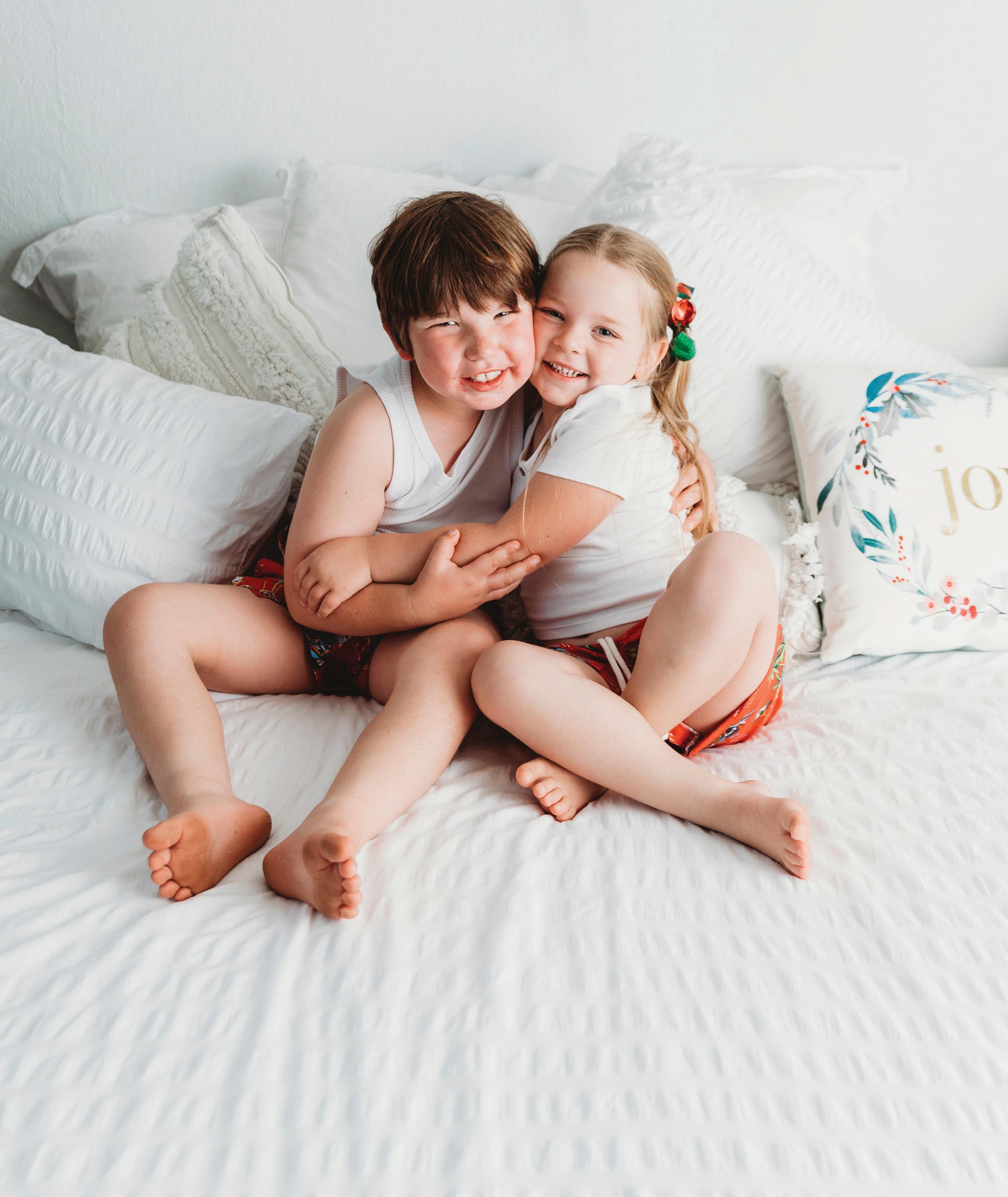
Dylan alcottReflects on his remarkable year SMART WATCHES Choosing the right one Cystic fibrosis THE WONDER DRUG CHANGING LIVES THE SOURCE AWARDS Celebrating your child’s achievements INTRODUCING Season the SPOTLIGHT ON ADHD Myths, benefits and adapting your approach + + BIKES & TRIKES ISSUE 33 / SUMMER 2022 IN ASSOCIATION WITH WHY SO MANY ARE MAKING THE SWITCH HOMESCHOOLING PRODUCT REVIEW
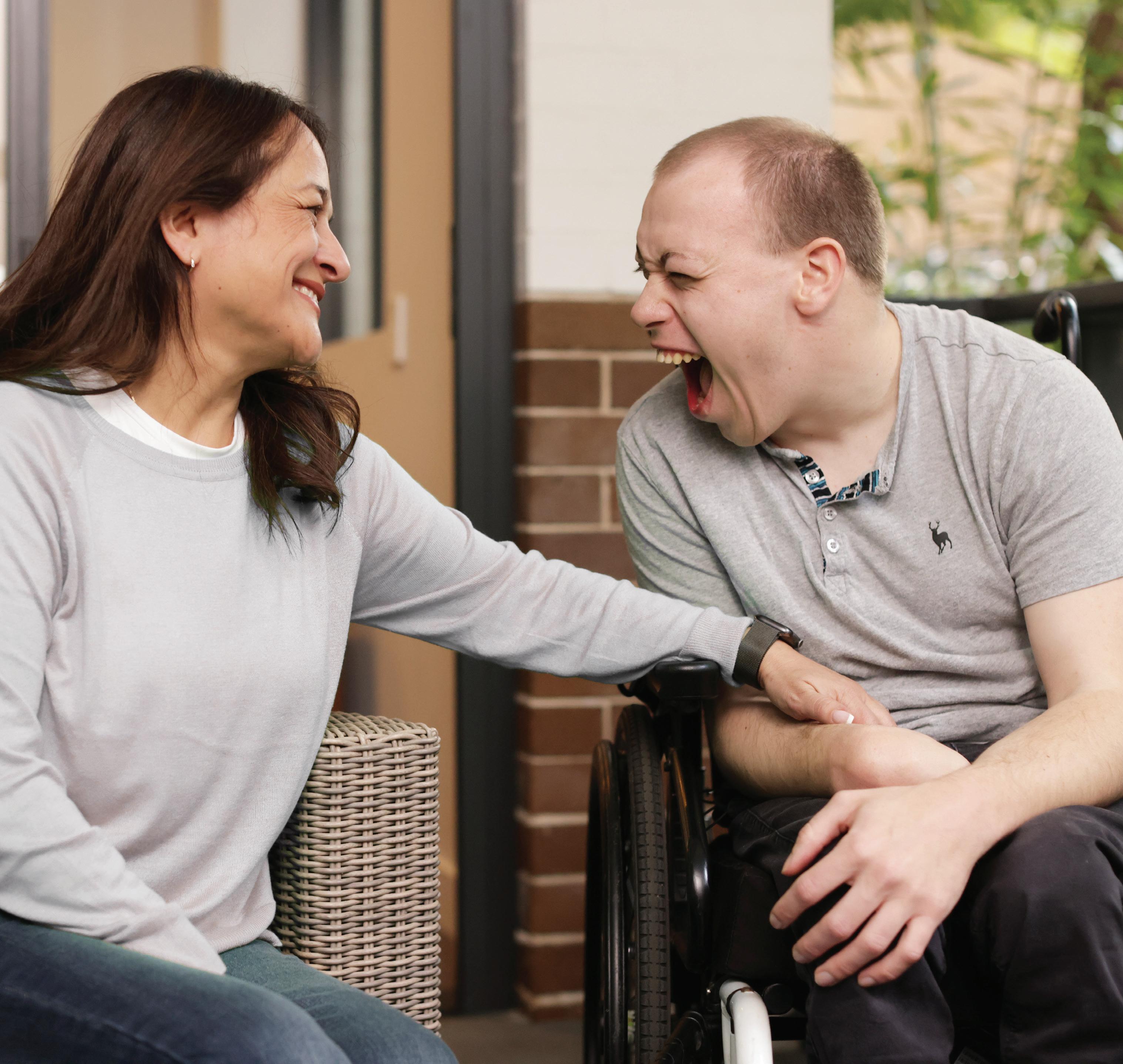

Phew,
Well done on surviving the third year of a pandemic, and all that you have done to advocate for, encourage and support your child or young adult.
On this theme, I am thrilled to be introducing a new initiative, The Source Awards.

The idea came from a friend’s appointment with psychologist and autism expert, Tony Attwood. It was end of the year and she was distraught at her autistic son’s school report, which seemed to take none of his victories into account, focusing instead on deficits and unfair comparisons to his classmates.
Tony, in his wisdom, encouraged her to create an alternate “report card” for her son, listing all the kind things he’d done throughout the year, the achievements, his bravery and his resilience. And told her when she was feeling low, to look through this report card instead, and remember how far he’d come and all that he had achieved.
From this suggestion, The Source Awards grew.
We want to celebrate and honour our amazing humans with you.
Too often society measures success and achievement in neat little boxes.
But we all know our kids climb their own mountains each and every day.
These awards are for those who may not ever be called onto stage for academic achievement, or win a running race, but whose achievements are no less deserving of celebration. In many cases, they’re probably more worthy.
So please get involved, let’s fill the world with news of success and positivity.
Our Source Kids and young adults are deserving of all the praise coming their way.
MAGAZINE
SUMMER 2022 contents
summer giveaway
Getting back in the swim – the importance of swim lessons 54 Primitive reflexes – what are they and how do they affect your child’s development?
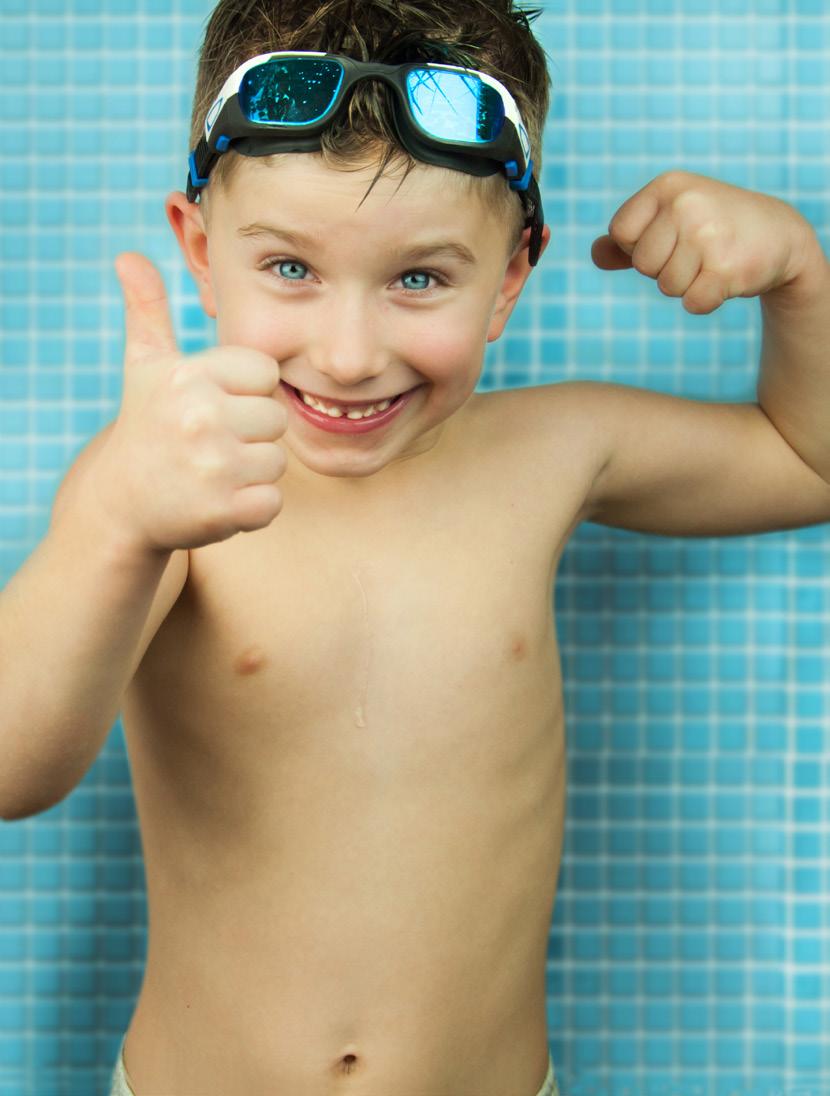
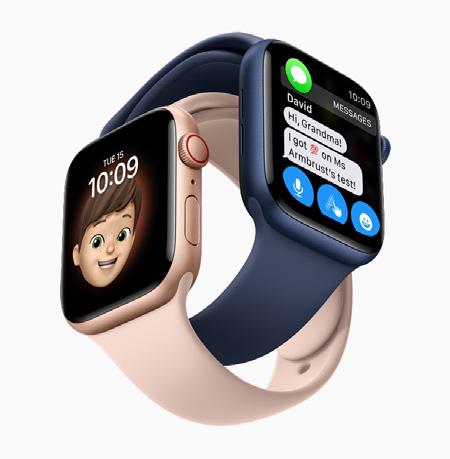
Smart watch review 61 Creating a one pager for your school 62 Reasonable adjustments – what your school should be doing 64 Christmas gift guide 66 Watches and reads 68 Making the outdoors great again
ON THE COVER: Will and Belle getting into the Christmas spirit.
5 We Love 8 The Source Awards –celebrating your child’s achievements 12 Homeschooling –Why so many are making the switch 18 Dylan Alcott reflects on his remarkable year 25 Cystic fibrosis wonder drug 28 Our miracle Trikafta girl 34 Taking the stress out of travelling 38 Spotlight on ADHD 40 Myths about ADHD 42 Adapting your approach
48
SOURCE CO.
LTD: PO Box
ABN
489 //
Send
is based on
provided
45 Mega
48
58
70 Product Review –Trikes and Bikes
HEAD OF CONTENT: Rebekah Devlin PRODUCT EDITOR: Kelly Wilton HEAD OF SALES & BUSINESS DEVELOPMENT: Matthew Rainsford, matthew@sourcekids.com.au // 0409 418 362 HEAD OF EVENTS: Naomi Sirianni, naomi@sourcekids.com.au // 0447 755 043 GRAPHIC DESIGN: Emma Henderson PUBLISHER/CEO: Emma Price
PTY
690, Noosaville QLD 4566
63 650 961
sourcekids.com.au
all letters and submissions to info@sourcekids.com.au Editorial and advertising in Source Kids
material, written and verbal,
by contributors and advertisers. No responsibility is taken for errors or omissions, and opinions expressed do not necessarily reflect those of the publisher. All material in Source Kids is subject to copyright provisions. No part of this publication may be reproduced without written permission by the publisher.
we made it to the end of 2022. Is it just me, or has this year been BIG?
Bek 58
4 SOURCEKIDS.COM.AU
HELLO
BRIGHTBERRY SILICONE PLATES
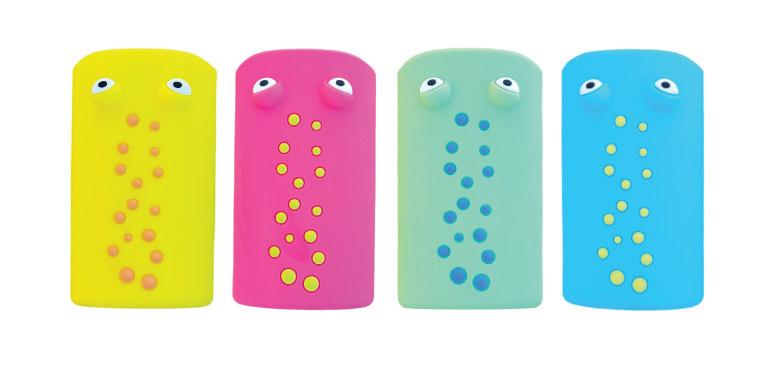
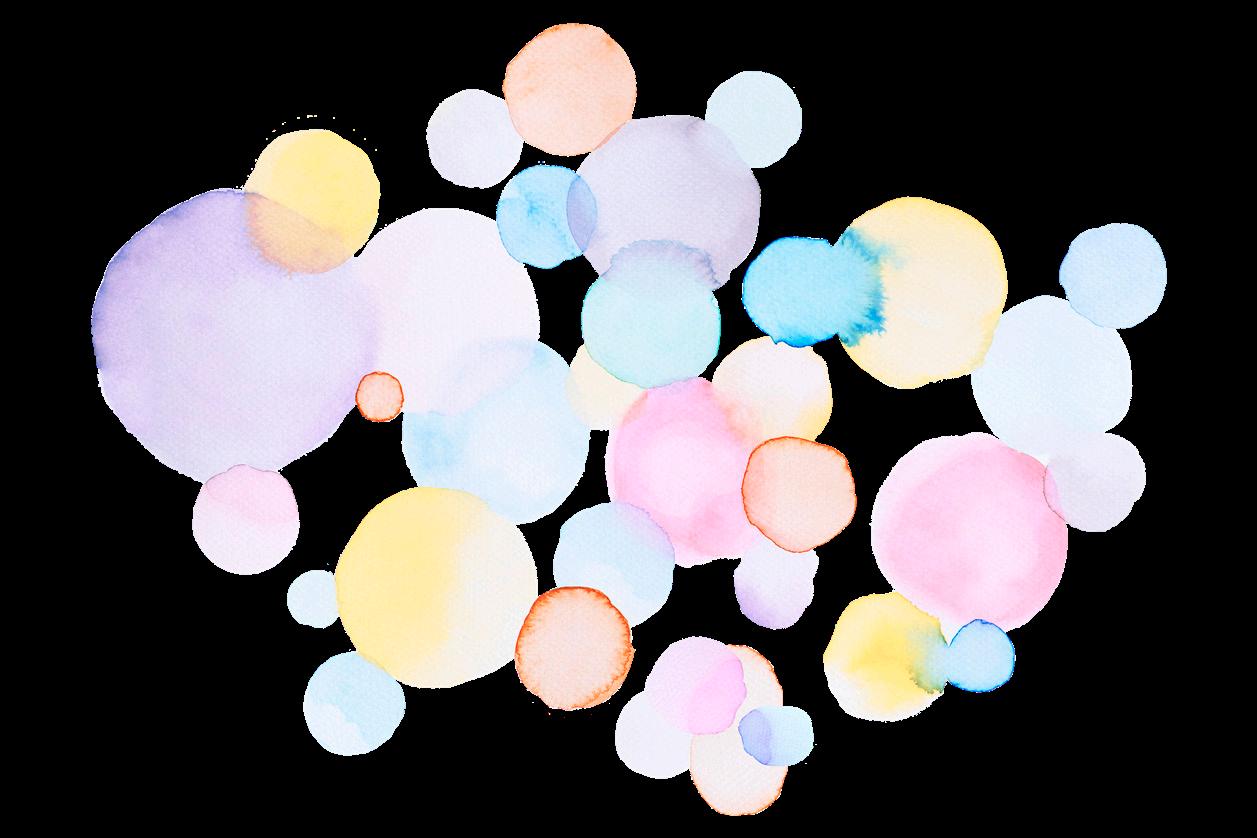
Brightberry’s range of easy-scooping rimmed silicone plates are perfect for independent eating, while avoiding spillage and mess during mealtimes. And anything that saves cleaning time is a win in our books. They come in an assortment of gorgeous colours too. brightberry.com.au
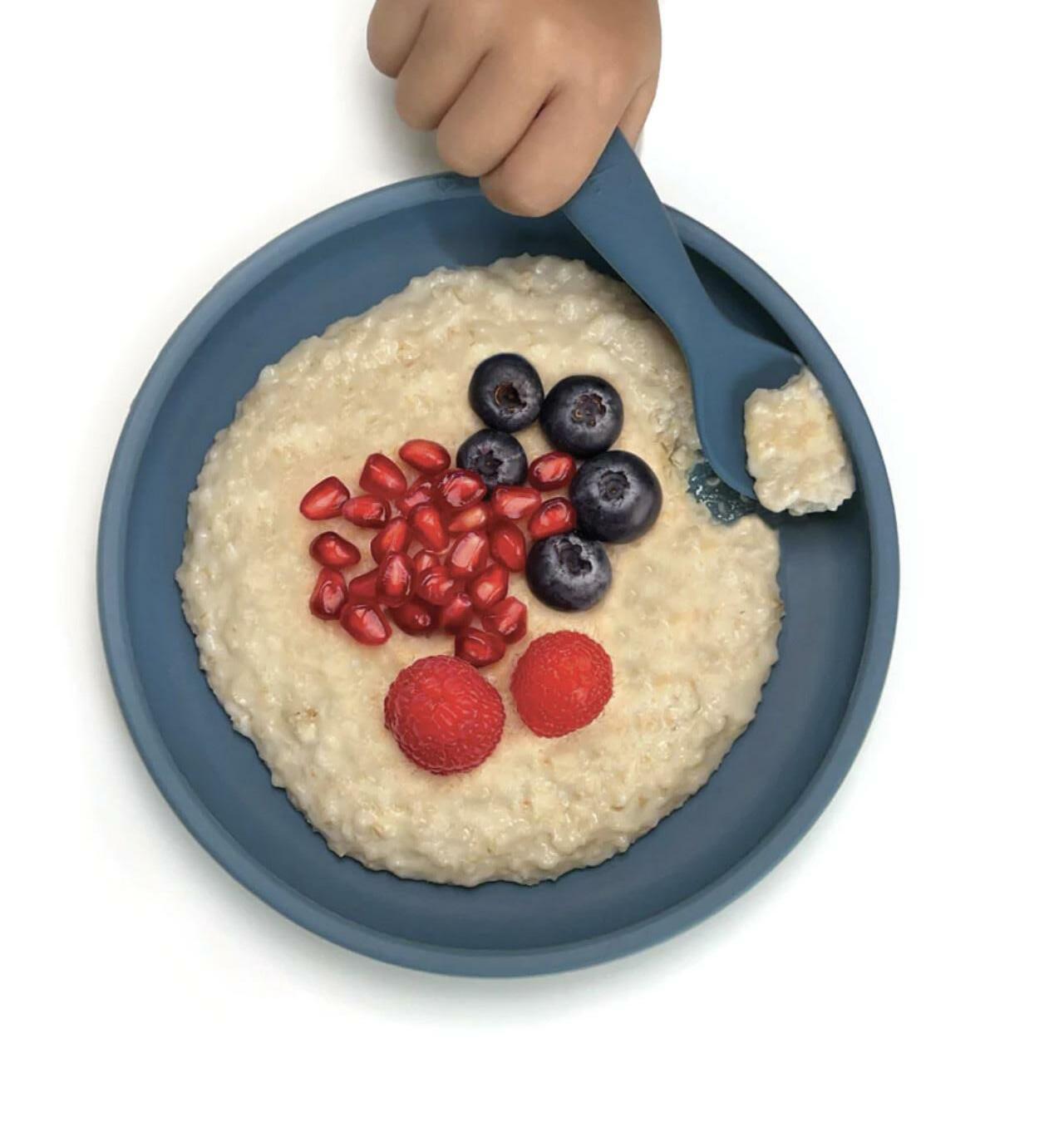
POP ZILLA
Who doesn’t love a Zooper Dooper in summer (or any time really)? But they sure can get messy and cold to hold! The Pop Zilla is a soft and flexible holder that makes gripping those slippery little suckers a cinch, and also stops hand freeze. Now if only they’d invent something to prevent brain freeze too. mumsnbubs.net.au
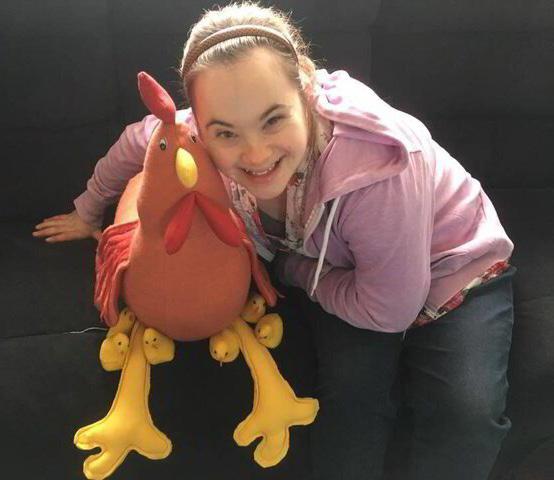
MELLOW MAT
The Mellow Mat is as relaxed as it sounds. A mat for the whole family, which encourages both rest and play, but also looks and feels great. Made with 30mm-thick slow rebound memory foam, it turns any area into a soft, inviting spot for play or sitting around. It is especially helpful for kids prone to falls, or those seeking sensory input. And best of all, they come in a range of colours to match your décor. neptuneblanket.com.au
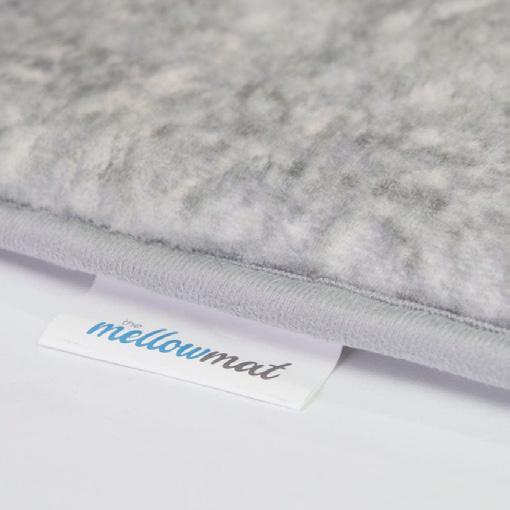

HARMONY THE FORGETFUL HEN
Harmony the Forgetful Hen and the T-Rex is the latest instalment in Naomi Lake’s series, which is inspired by Naomi’s very own chickens. All three books came from watching her chickens scratching in the yard, observing their antics and how they interact with their surroundings. Naomi has Down syndrome and travels to schools throughout WA to share her books, teaching children to believe in themselves and reach for their dreams. harmonyhen.com
ISSUE 33 | SUMMER 2022 5 FUN STUFF
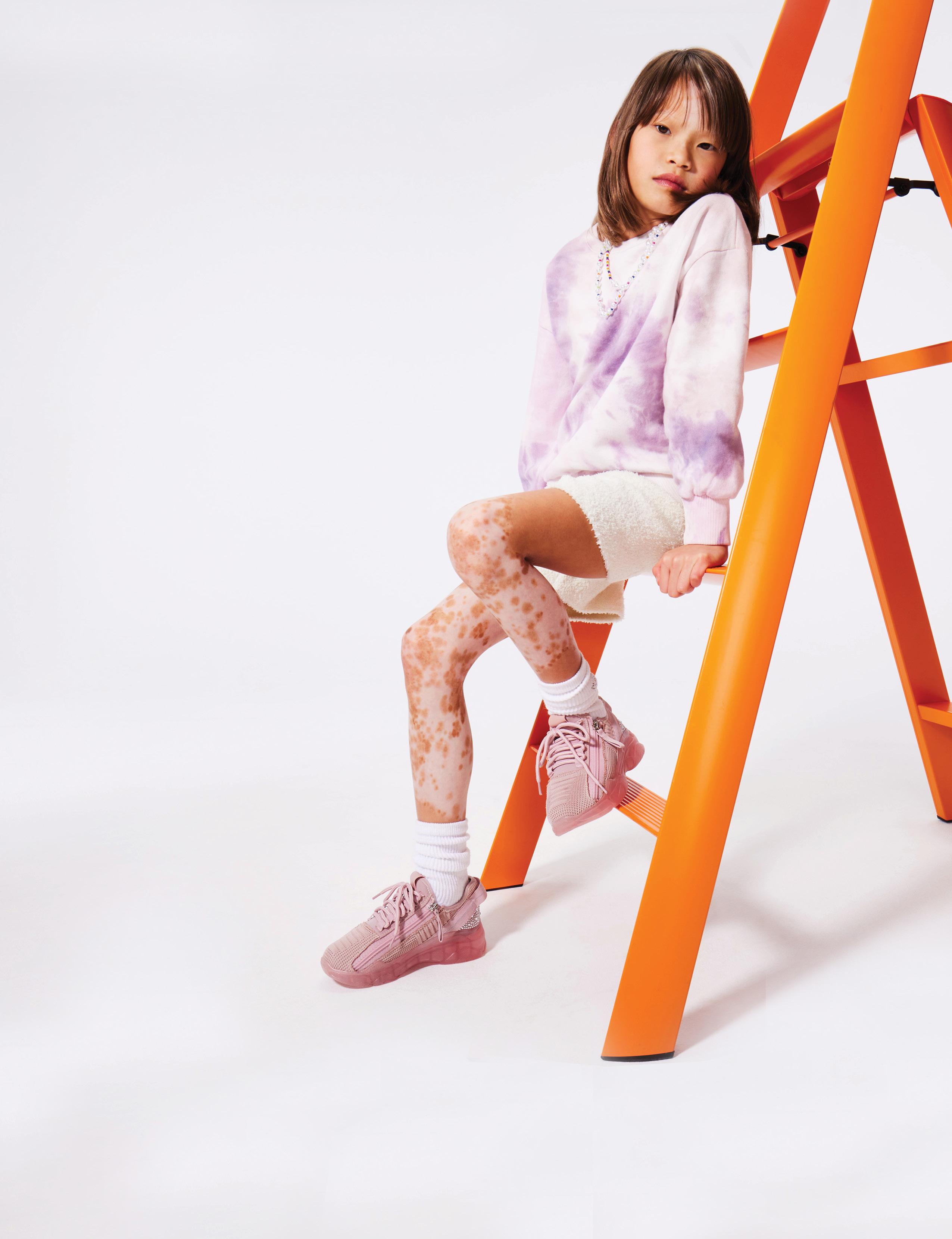
Steve Madden Wide fits everyhuman.com.au Easy Zips Velcro Adjustability
WONSIE BACK ZIP SWIMSUIT
The Wonsie Back Zip Swimsuit is designed to prevent unwanted undressing and nappy access when having fun in the outdoors. The surfsuit style offers high UV protection and is crafted from durable, chlorineresistant fabric in sizes suitable for all ages. Peace of mind all summer long. wonsie.com.au


THE FEELIX LIBRARY –FOR LOW VISION LEARNERS
The Feelix Library means children and families can enjoy the magic of stories with braille and tactile storybook kits. Children who are blind or have low vision can have story kits delivered to their home wherever they live in Australia, thanks to this incredible free service. visionaustralia.org
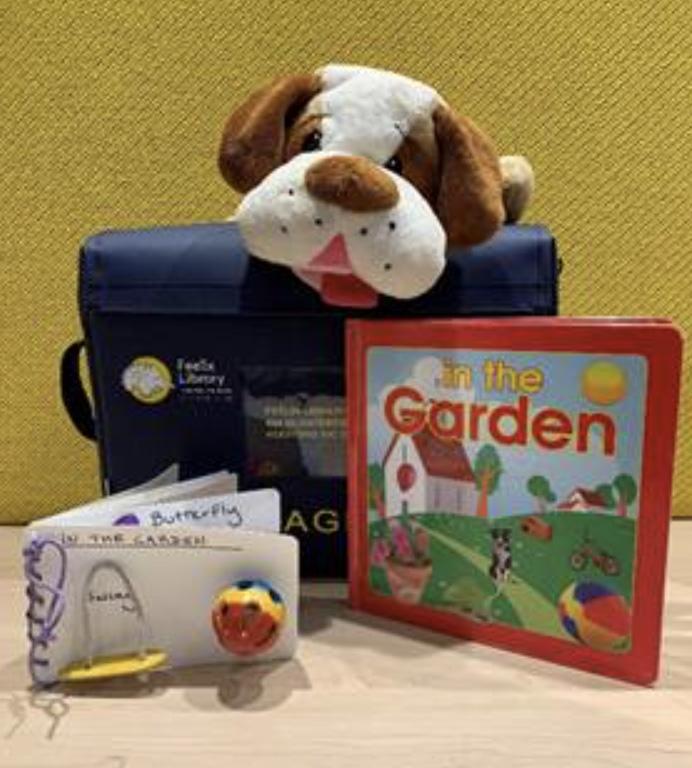
BRIGHT
STAR


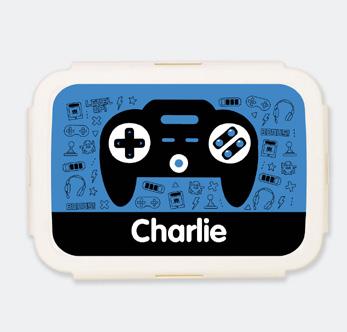


KIDS
LABELS FOR LUNCHBOXES AND UNIFORMS
Customisable, dishwasher-proof and last the whole year? Sign us up! Bright Star Kids also have bag tags with symbols, which can be used to alert for things like an asthma puffer, diabetes kits, or EpiPen inside. Our personal fave are the ultimate time saverwrap around clothing labels, which simply stick around clothing tags. Job done! And for those who don’t like scratchy clothing labels, they also have iron-on options. brightstarkids.com.au
NEW PODCAST
CARER CONVERSATIONS
The Benevolent Society, in association with Carer Gateway, has launched Carer Conversations, a podcast that provides tips and resources to help the 2.7 million carers in Australia look after their emotional, mental and physical wellbeing. Host Patty Kikos – who is a qualified counsellor and coach for Carer Gateway at The Benevolent Society – says the podcast is a great resource for anyone caring for a family member or friend who has a medical condition, disability, mental illness or someone who is frail due to age. carer-conversations.simplecast.com

ISSUE 33 | SUMMER 2022 7 FUN STUFF
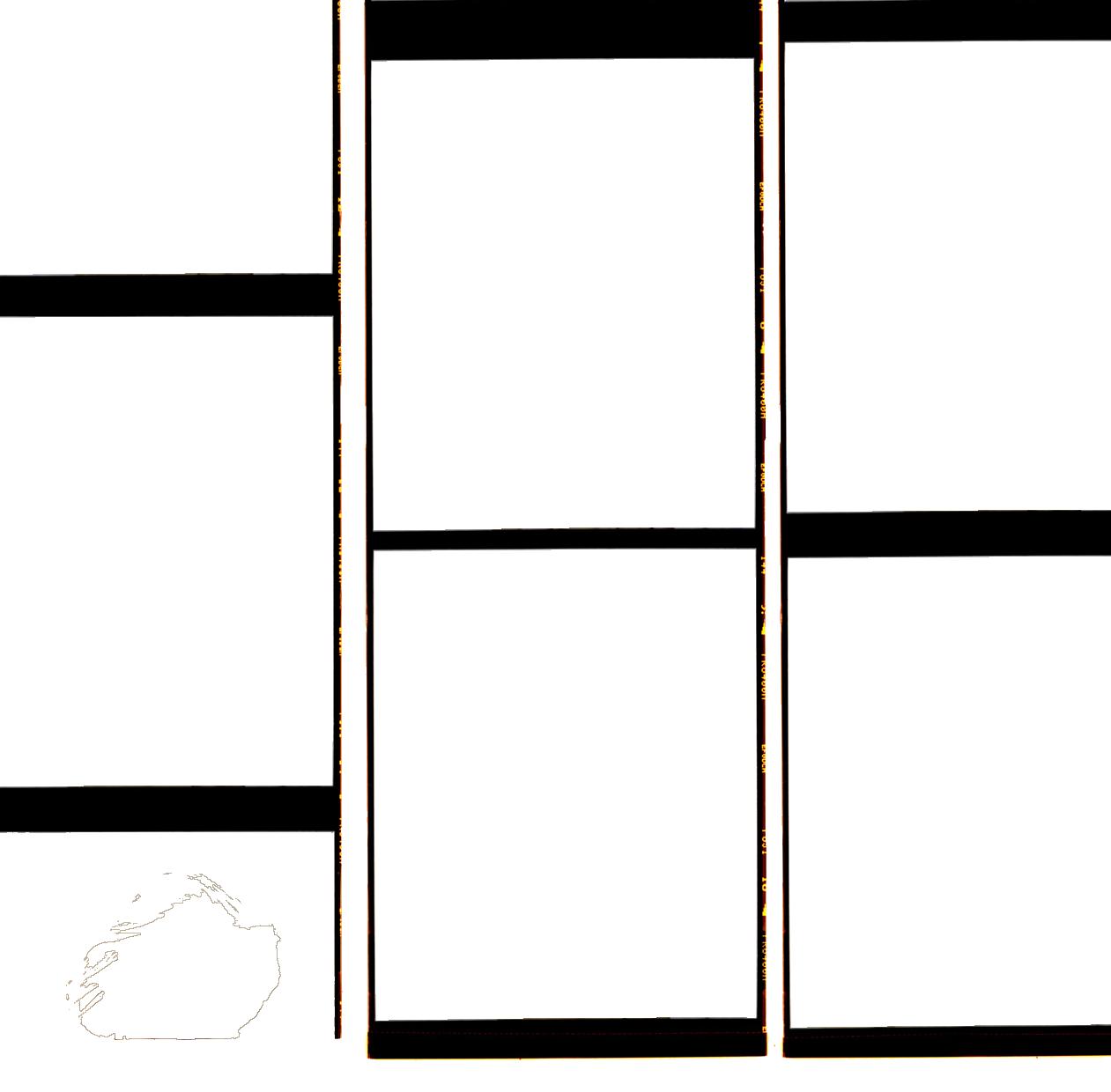
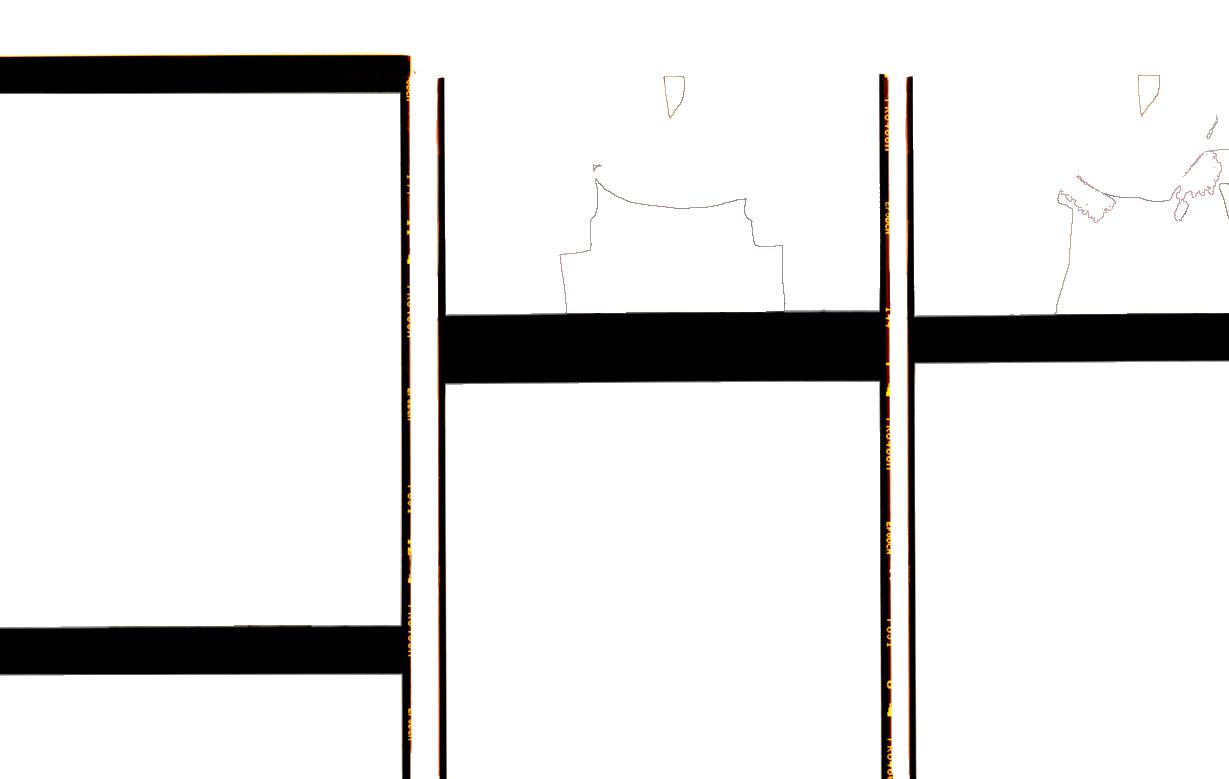


8 SOURCEKIDS.COM.AU
Unveiling our inaugural
SOURCE AWARDS…
The Source Awards recognise that achievement comes in many different forms.


End of year school presentations can be tough on everyone.


Sure, academic and sporting performance are important, and kids should be honoured for that. But our kids and young adults climb their own mountains each and every day.
With this in mind, we proudly unveil the Source Awards.
We want to honour and celebrate the determination, courage and triumphs of our kids, for all that they have achieved this year.
It might be toilet training, learning to ride a bike, developing the physical control to shake their head, learning to use their communication device, coping with yet another surgery or trying a new food.
Whatever this year’s achievement, we want to recognise and applaud them.
We want to give our kids and young adults their moment in the spotlight, to bask in their achievement and reflect on what it took to get there.
We have created Source Award certificates for parents, carers, therapists and educators to download. You can add the child’s name, achievement and a special note.

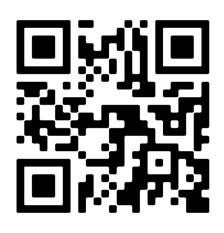
Then, we want to celebrate them with you.
HOW TO GET STARTED
Upload a pic of your award winner with their certificate and let’s give these amazing humans the recognition and praise they deserve.
There are four different certificate designs to choose from.
You can print them at home, or take them to your local print store.
You can even give that laminator a workout!
Either send your child’s pic back to us via email info@sourcekids.com.au or post a pic of your child with their certificate and make your profile public on Facebook or Instagram with the hashtag #sourceawards, and we will be able to find it. You can also post your award winner under the Source Awards threads on our socials.
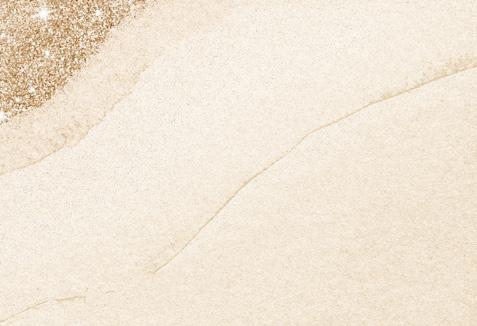
If you’re emailing, we’d love you to include a short write-up about your child. Include their first name, age, and a brief explanation about their achievement and why it’s so significant.
We will be featuring some of these champions in the coming editions of Source Kids magazine, as well as sharing on social media.
So get downloading and let’s lift up these wonderful people in our lives.
By Rebekah Devlin
1. Download 2. Fill in 3. Print 4. Take happy snaps 5. Upload sourcekids.com.au/source-awards SCAN TO GET MORE INFOMATION Because every Source Kid deserves an award We honour and celebrate your achievements For: Date: AWARD SOURCE Congratulations We honour and celebrate your achievements For: Date: AWARD SOURCE Congratulations DATE: Congratulations We honour and celebrate your achievements for... AWARD SOURCE Congratulations We honour and celebrate your achievements for... AWARD SOURCE DATE: ISSUE 33 | SUMMER 2022 9 SOURCE AWARDS
Discover The Joy

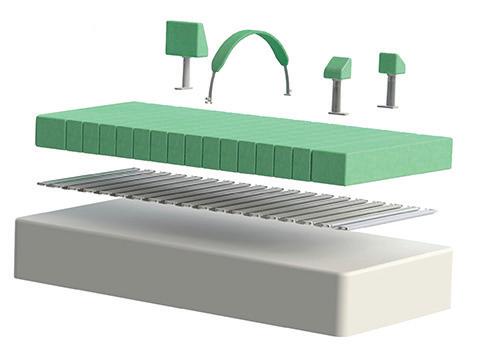



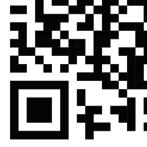







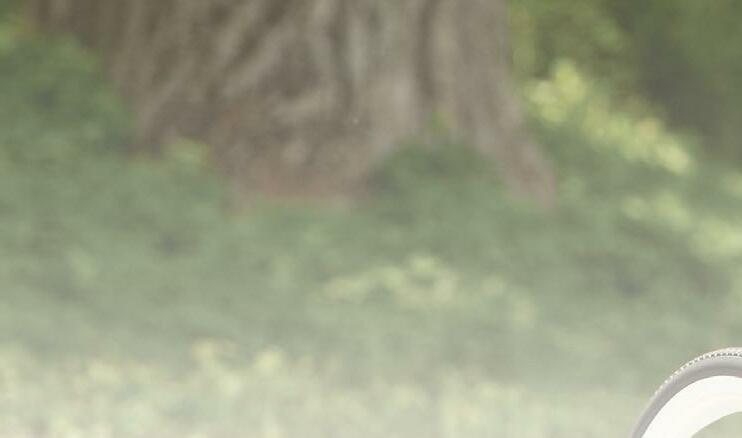


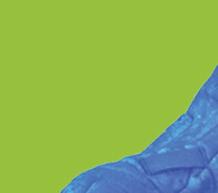
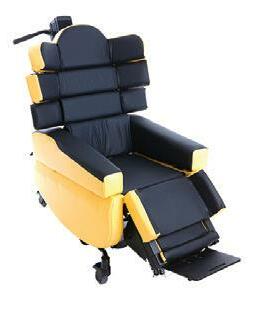

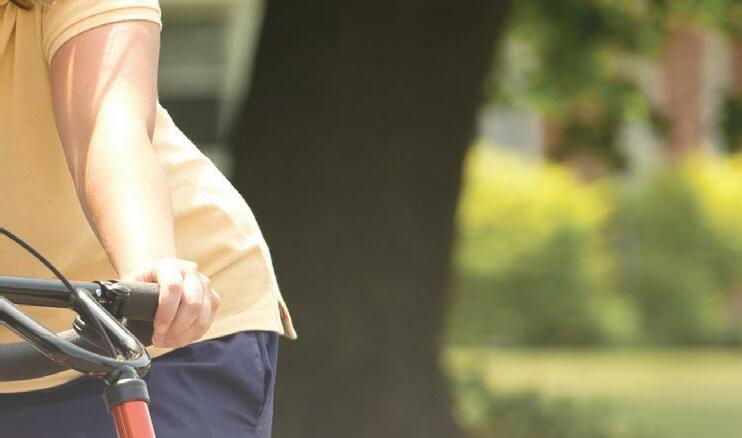

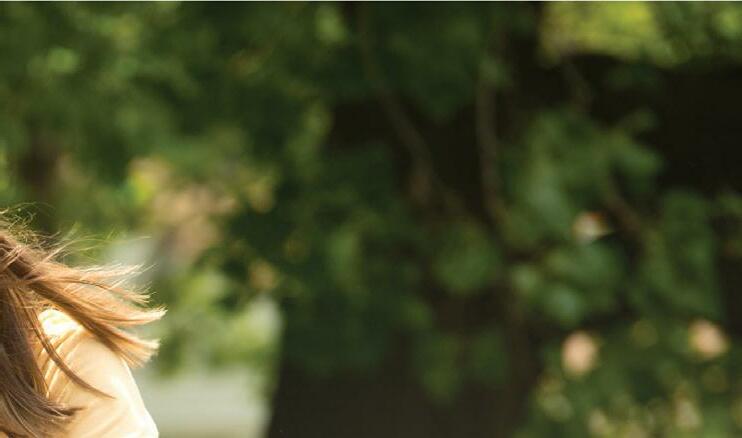



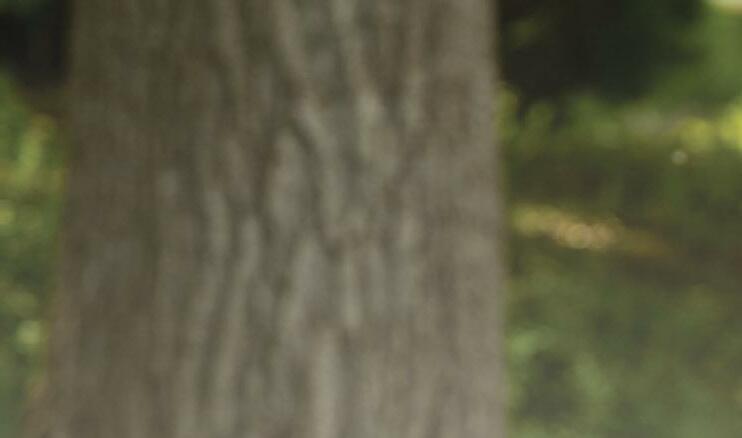
As market leaders in special needs equipment in Australia, Astris PME carries an extensive range of exercise and recreational equipment that have been created to meet the needs and requirements of people who want to improve their everyday lives by getting out and about independently. We can provide solutions that match the needs of people with a disability, and help therapists achieve the best outcomes for every client, in every age bracket. Astris PME have a huge range of trial equipment available so if you would like to make an appointment with one of our Specialist Consultants or enquire about any of the products and services we offer, please call us. We will be happy to help!
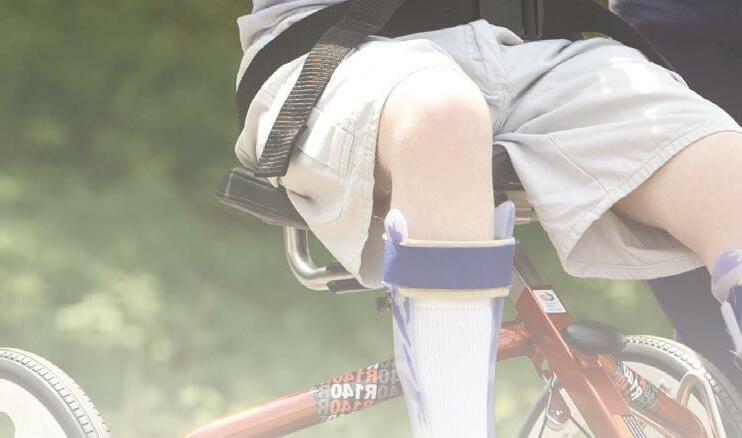
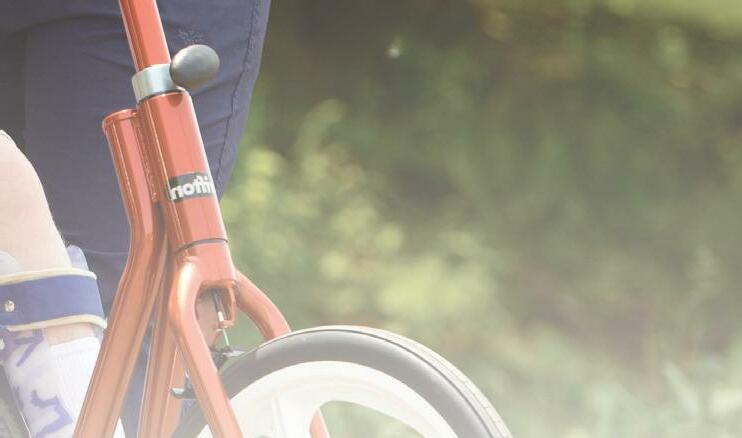

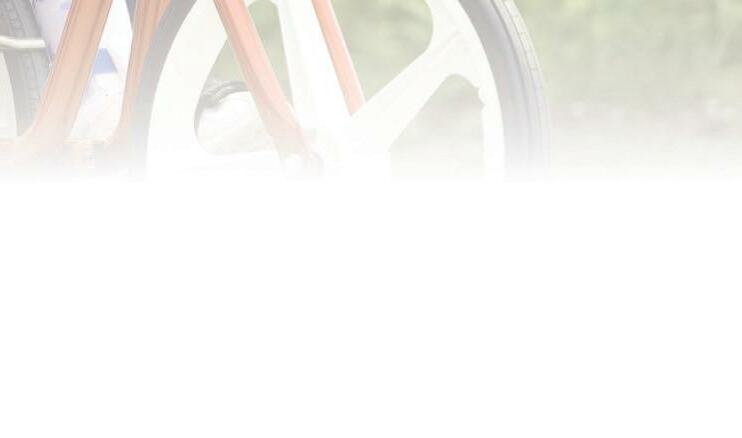

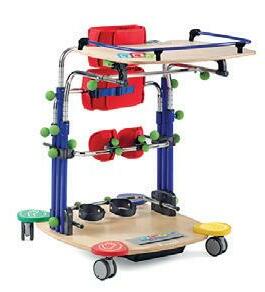
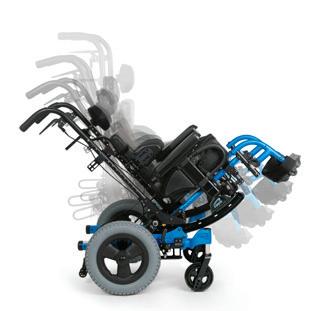
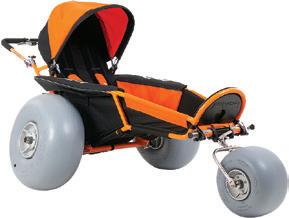
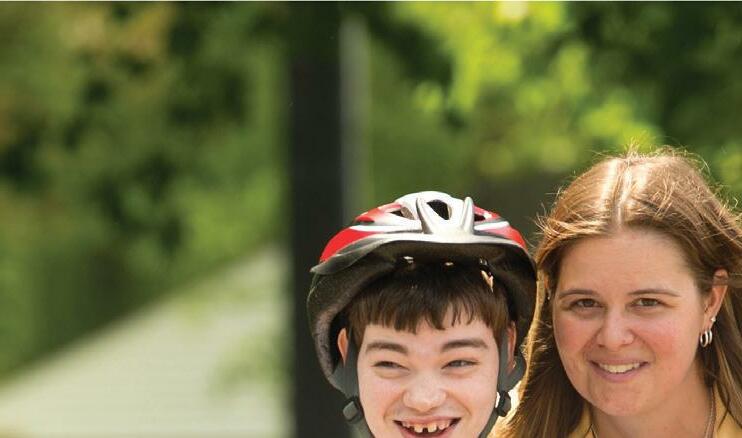

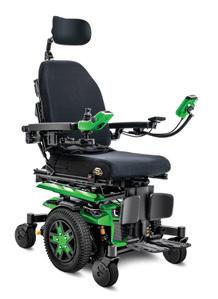

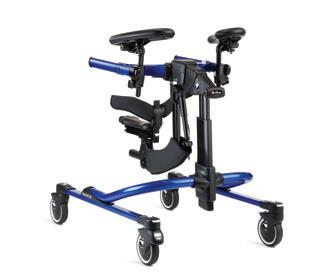
1300 131 884 | astris-pme.com.au Showrooms in Sydney • Newcastle • Young • Canberra • Melbourne • Brisbane FREE TRIALS PRODUCT SPOTLIGHT Free gift with purchase Scan the QR code to learn more Manual Wheelchairs Positioning & Sleep Systems Standing Frames Gait Training Tilt-In-Space Wheelchairs Shower & Toileting Supportive Pushchairs Powered Wheelchairs Exercise & Recreation Alternate Seating
























































24-Hour Positioning APEX Mobility supplies Australia’s largest range of specialised Assistive Technology equipment and supports for 24hr positioning, mobility and care. DEALERS AUSTRALIA-WIDE apexmobility.com.au 1300 212 192 Akces Med Kidoo Rifton HTS Ormesa Trollino 10AM12PM 8-10 AM 6-8 AM 9PM6AM 12-2 PM 2-4 PM 4-6 PM 6-9 PM Klaxon Klick Monster Rifton Activity Chair Hi-Lo Schuchmann TILL STABILObed Careflex MultiAdjust
NO PLACE LIKE HOME
Homeschooling, or home education, has steadily grown in popularity over the past decade. But since COVID, parents are leaving mainstream schools in huge numbers and many neurodiverse, children with chronic illnesses and disabilities are finding a better fit outside the traditional education model, writes Kirsty James, Assistant Coordinator of The Home Education Network (HEN).
When asked to describe homeschooling, many people think of remote learning as experienced during the pandemic, or will mention outback kids doing distance education, or fall back on the stereotype of faith-based home educators with large families sitting at neat desks whilst mum points at a blackboard. In Australia, many people prefer the term ‘home education’ as it’s a better reflection of what we do.
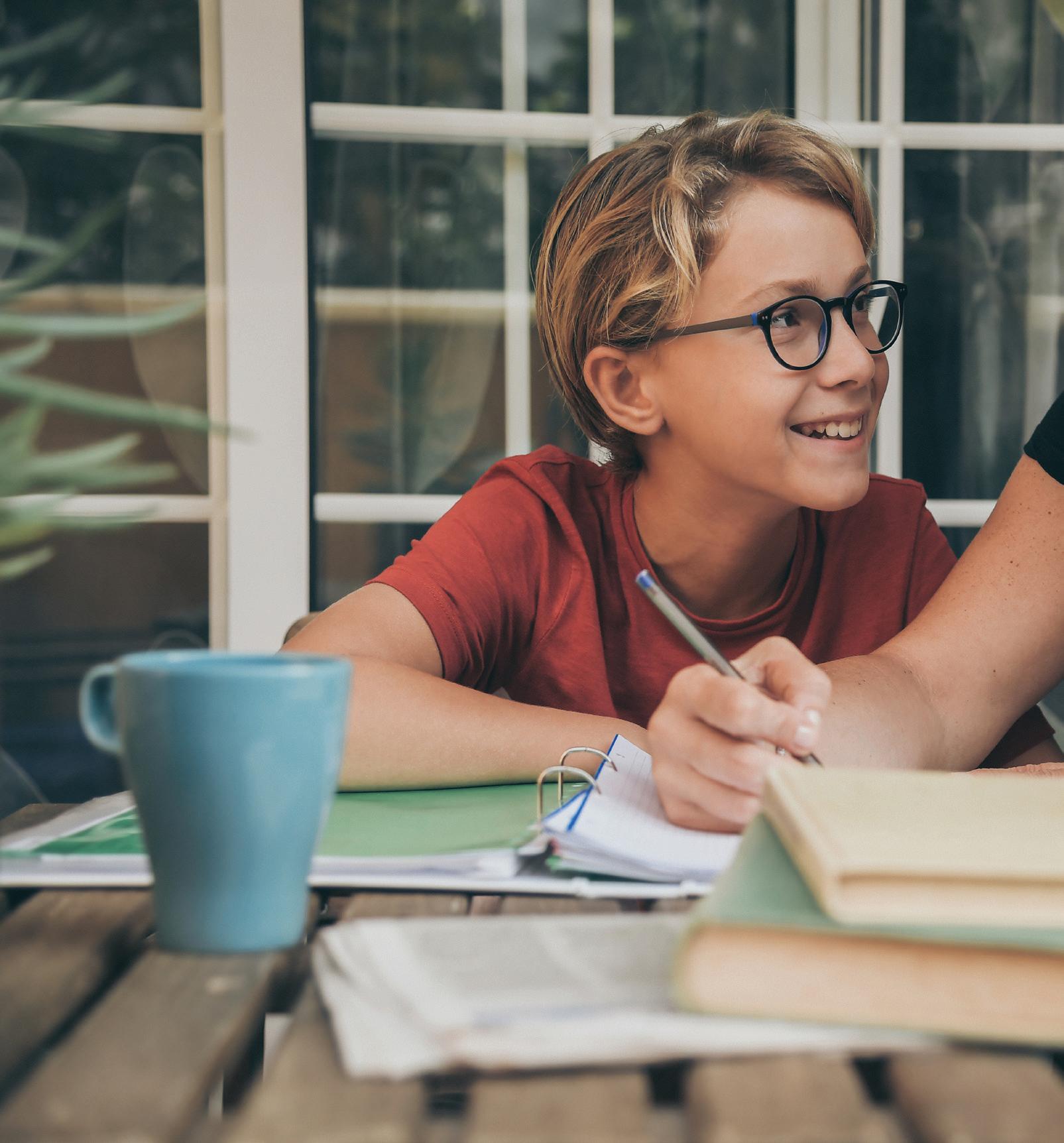
Home education looks different for every family, but it allows true individualisation of learning. Rules vary by state, but adherence to the standard curriculum is often not required, allowing children to pursue interest-based learning. For some children, this might look similar to school, for others it might be practical and hands-on, and for some, all learning will be self-directed (often called unschooling or natural learning) with parents primarily taking on the role of facilitator.

There has been a huge rise in the
popularity of home education in Australia over the last decade. The internet has been a boon, allowing families to research, connect and access support more easily. Every year the Home Education Network (HEN) conducts a national survey of its members, covering a variety of topics. Last year, “a happy family”, “a tailored education”, “school problems” and “specific learning needs” were the most common reasons families gave for their decision to home educate.
The survey found at least one third of families had one or more children with a disability, health condition or diverse learning need. The 2022 survey aims to gather more data about this cohort of families, but anecdotally, autism, anxiety, ADHD, dyslexia and intellectual disability are particularly common in the home ed community.
The pandemic saw a new influx of families. Some parents realised how much better their children were learning at home, or noted less anxiety or fewer
12 SOURCEKIDS.COM.AU
meltdowns. Others saw for the first time how disengaged their children were from their learning, or how unsuited the work was to their abilities. The increased amount of time at home also allowed many children to pursue hobbies, learn new skills, play games, bond with siblings and just ‘be children’. Early mornings, uncomfortable uniforms, and the rush to be at the school gate on time cause significant stress for some children, and with those expectations removed, and a more gentle schedule, many thrived.
EMBRACING SENSORY AND DIVERSE LEARNING NEEDS
Unlike the school system, where neurodiversity and atypical learning styles are often considered problems to be solved, home education offers families the opportunity to choose an educational experience where children can focus on their strengths, experience success, and build self-confidence. Support can be provided in areas where extra help is
Early mornings, uncomfortable uniforms, and the rush to be at the school gate on time cause significant stress for some children, and with those expectations removed, and a more gentle schedule, many thrived.
needed, but need not be the focus, allowing more time for interest-led learning.
Just being away from the institutional environment makes a huge difference for many children. No longer exposed to sensory overload in the classroom and playground, released from unrealistic expectations about attention span and keeping still, avoiding negative social interactions, and instead being in an environment where reading and writing are kings, children can embrace the style of learning which best suits them. Mainstream schools and teachers are not always equipped or funded to manage children whose needs vary significantly from the norm, leading to some children being blamed for behaviour that is outside their control.
YOU CHOOSE WHAT WORKS FOR YOUR FAMILY
Home education provides the flexibility to structure our own day, to banish unnecessary ‘busy work’, and to embrace learning at any time, in any way. For those with conditions that involve fatigue, pain, or concentration lapses, being able to take a break for a day, week, or month is vital. If multiple appointments and therapies are needed, these can be worked into the child’s schedule, and used to help meet the education requirements for each state. There’s no set timetable for home education, so we can grasp opportunities as they arise, and step back when it’s clear that the timing is wrong. Learning can be arranged in short blocks, with long breaks,
or allowed to continue unhindered by bells and external expectations during periods where children are focused and engaged.
THE FINANCIAL COMMITMENT
Most parents moving out of the school system have concerns about how home education will work for their family, and for parents of children with additional needs, there are extra worries.
Financially, home education requires a level of sacrifice for many families, as it may mean the loss of one income. However, there are many families on low incomes, single parents, parents on a pension, or two parent families combining part-time work or working from home. Home educators are not paid, but registered home educating parents are exempt from the Centrelink mutual obligation requirement, and qualifying children can also receive the Assistance for Isolated Children payment, which is around $4000 per year. Home education does not need to be expensive and there are many free and inexpensive curriculum products. Families with more than one child can reuse materials, and it’s common for children of different ages to work together.
THE BIGGEST WORRY FOR MANY PARENTS IS HOW THEY WILL TEACH THEIR CHILD
Parents may not have tertiary qualifications, or feel confident about teaching all the subjects that would be encountered in school. However, the

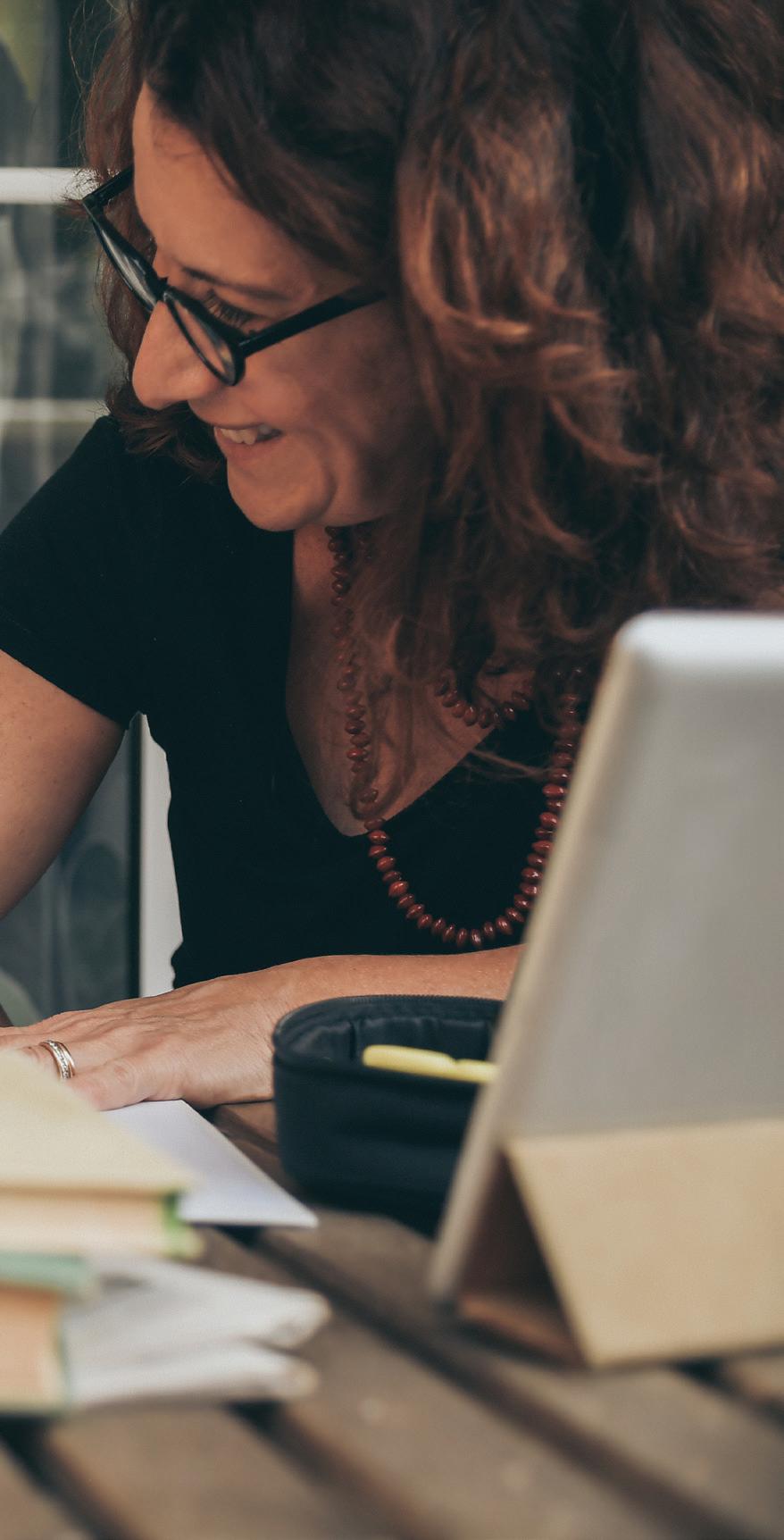
ISSUE 33 SUMMER 2022 13 HOMESCHOOLING
Students registered for home education
THE STATS!
reality of home education is that children are more invested in their own learning, because it can be made relevant to them. Most children learn independently to some degree, with parents facilitating by finding resources and support. We have the right to decide what’s important or necessary for each child, which may look very different to the school curriculum. We also have the ability to outsource teaching to family members, friends or tutors, if necessary.
In the 2021 HEN survey, parents reported that their initial level of structure was around 60 per cent, and experience shows that most families complete their structured learning in one to three hours per day, leaving plenty of time for unstructured learning. The survey results also showed that as parents become more experienced, the level of structure falls to around 40 per cent. Many parents find themselves learning alongside their child, or from them. There’s no pressure to know all the answers, and acknowledging that we don’t know something, then showing the child how to find the answer, is valuable learning in itself.

SOURCE: STATE GOVERNMENT REGISTRATION FIGURES
WHAT ABOUT FURTHER STUDY?
Many families starting out also have concerns about how their children will access tertiary education or work. Home educated students have attended every university in Australia, and due to the opportunity to focus on areas of interest, they often move into tertiary education at an earlier age than their schooled peers. TAFE entry usually requires an assessment of English and maths skills, often at a level achievable for many who would struggle with standard Year 11-12 schooling. Home educated students also have many opportunities to volunteer, undertake paid work, or do work experience, giving them well-rounded experience and interesting resumes.
SOCIAL INTERACTIONS
Just being away from the institutional environment makes a huge difference for many children. No longer exposed to sensory overload, released from unrealistic expectations about attention span and keeping still, able to avoid negative social interactions and an environment where reading and writing are kings, children can embrace the style of learning which best suits them.
The home education community is warm and welcoming, and we commonly share resources and skills. We also get together regularly for educational and social excursions and meet ups providing an additional level of support for new parents. Our community is extremely diverse, and because we choose to focus on what we have in common, rather than on our differences, there is very little bullying or negative social pressure. Children are far more accepting of those who appear or act differently, than their schooled peers may be. Socialisation is similar to that of adults, in that children connect over shared interests and feel no need to belittle others. Many get-togethers will be at a local park, but there are also sports, dance and drama sessions, camps (which children attend with their family), art classes, theatre and museum visits, cooperative learning groups, virtual excursions and home ed gaming groups. Anyone can start a group, arrange a class, or invite others to join them for an activity, and Facebook has made these kinds of connections much easier.
AN ALTERNATE OPTION
School works for some children, and not for others. In order for the school system to function, the focus can sometimes seem to be more about encouraging and

VIC
SA ACT
2011 2012 2013 2014 2015 2016 2017 2018 2019 2020 2021 9000 8000 7000 6000 5000 4000 3000 2000 1000 0
NSW WA QLD TAS
14 SOURCEKIDS.COM.AU
supporting children with disabilities or learning differences to change, than it is on changing the system. If your child is a square peg, who is being pushed into a round hole instead of having their ‘squareness’ embraced, then home education might be a good fit for you. If your child cannot, or will not, ‘fit in’, then maybe it’s time to find a place where individuality and quirks are considered the norm.
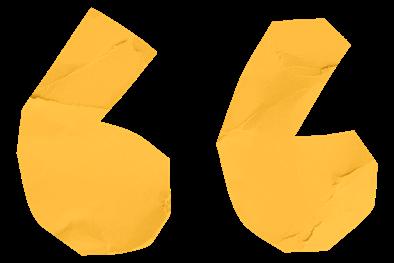
DO YOUR RESEARCH FIRST
If you are interested in exploring home education as an option for your child, it’s important to do some research. Find out the rules in your state, connect with local parents, and ensure that you get advice and support from people and organisations with no vested interest in selling you a product.
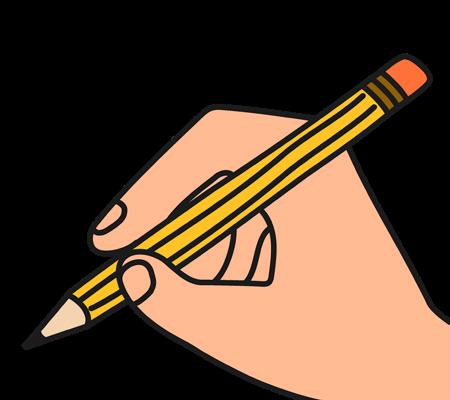
DESCHOOLING
One of the biggest predictors for successful home education is deschooling - the process of moving from thinking of education as it relates to school, to seeing education as part of life. For students, it’s about ensuring there is a transition period where they have the time and freedom to rediscover a love of learning, to work out what they want and need to know, and how they can best achieve that. Without this transition, home education may simply replicate many of the issues encountered at school. It’s important to acknowledge that like every other aspect of home ed, deschooling will be different for every family. It’s important to note that deschooling is just as necessary for the parent. It involves questioning the value of testing, being forced to learn things which are not relevant or interesting, requiring written ‘proof’ of learning and so on. Time spent considering your own schooling, and its relevance to your life can be very helpful. Most of us have forgotten the majority of our school studies, and find skills obtained outside school far more important. Conversely, we often retain feelings of shame, inadequacy and selfdoubt linked to seeds planted at school.
Home education is different to school learning, it allows children ownership of their own learning, and removes unnecessary comparison and competition
Rachel’s experience with home education
When the first lockdown came in Victoria, it provided a circuit breaker for Rachel and her children April, 12, and Kai, 14.
April had always struggled with severe separation anxiety which led to school refusal, a school change and an eventual autism diagnosis.

The family had considered home education in the past, so this was their chance to see how it would work.
One of the first noticeable changes was that April fell in love with reading, which she had previously hated. Within six months, April had worked her way through the whole Harry Potter series.
When school was due to return, the family experienced a week of meltdowns, and decided to register for home education instead.
“When April was going to school, she had constant stomach aches, and would cry at bedtime because she was so anxious about attending school the next day. She still needs support to attend in-person activities, but she’s so much happier now,” Rachel says.
Kai (who is autistic and has ADHD as well as being hyperlexic and intellectually gifted) chose to return to school to finish Grade six with friends, then transferred to a specialist school for twiceexceptional children. Unfortunately, frequent teacher changes, removal of the therapy dog, and a lack of academic enrichment meant that this experience was stressful and led to high anxiety.
The family chose to bring Kai home, which gave them the freedom to deschool and take time to prioritise improving Kai’s mental health. Now that things have settled, Kai enjoys a mix of classes and online learning which provide the academic enrichment he needs, and he has formed good friendships within the home ed community.
“If I had my time again, I’d homeschool from the start, but I’d want the hindsight I have now,” Rachel says. “I sometimes call what we do home managed education, as my children take responsibility for their own learning, with me as a guide.”
that leads students (particularly those who are already ‘different’ in some way) to feel ‘less than’. Home education replaces the rhetoric of individualised learning with a truly personalised experience. Home education is freedom!
Kirsty James is Assistant Coordinator of The Home Education Network (HEN), a volunteer-run support organisation for home education families. Based in Victoria, HEN provides support and information to families across Australia. home-ed.vic.edu.au
ISSUE 33 | SUMMER 2022 15 HOMESCHOOLING
Think homeschooling might be for you? Keep an eye out for our upcoming Facebook live with the HEN. More details coming soon on our socials.
New and improved
absorption channels - so nappies absorb fluids even faster. Minimises nappy rash.
New Bambo Nature Nappies & Pants
New Bambo Nature Nappies & Pants
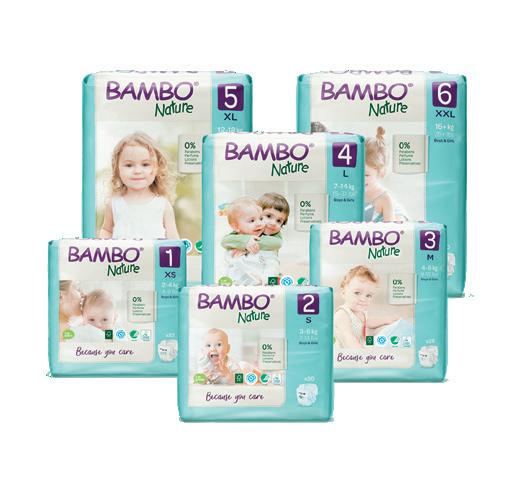

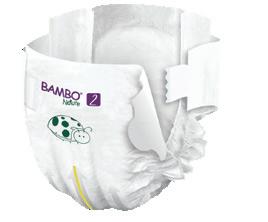
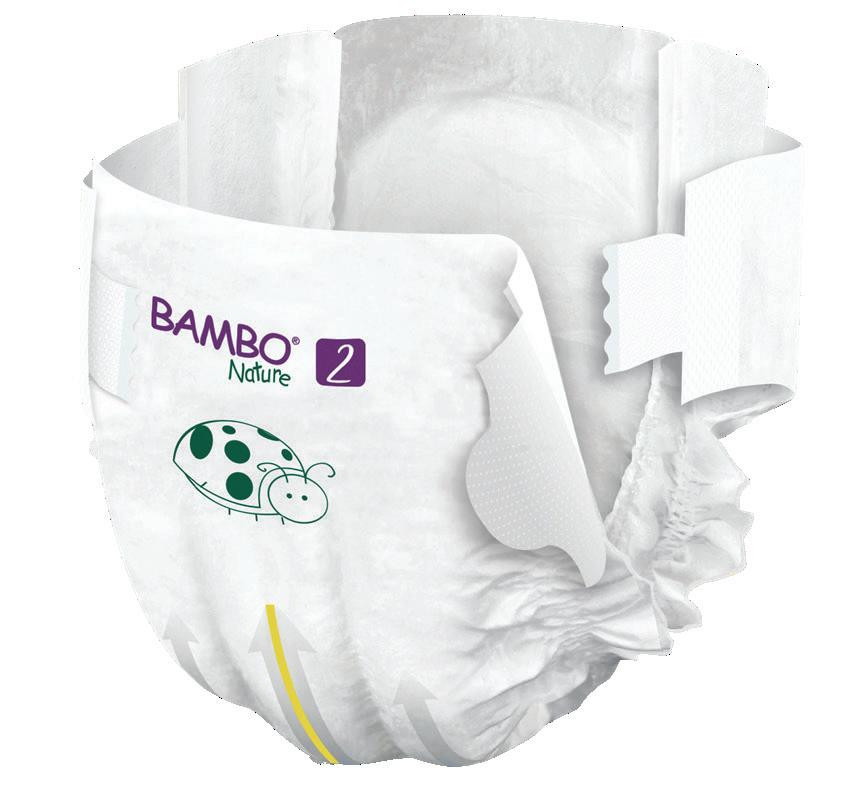
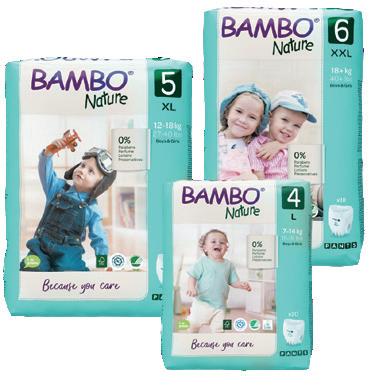
New and improved moisture absorption channels - so nappies absorb fluids even faster. Minimises nappy rash.
New and improved moisture absorption channels - so nappies absorb fluids even faster. Minimises nappy rash.
New wetness indicator – to easily check when nappy requires changing, reducing the risk of nappy rash and unnecessary changing. Save time, save nappies, save money.
New improved super soft back sheet - provides greater comfort and fit.

New wetness indicator – to easily check when nappy requires changing, reducing the risk of nappy rash and unnecessary changing. Save time, save nappies, save money.
New wetness indicator – to easily check when nappy requires changing, reducing the risk of nappy rash and unnecessary changing. Save time, save nappies, save money.
New look – a subtle Nordic-inspired ‘animals’ design that doesn’t show much through baby’s white fabrics.
New improved super soft back sheet - provides greater comfort and fit.
New improved super soft back sheet - provides greater comfort and fit.
New certification – Asthma Allergy Nordic ensures that all ingredients have been assessed to minimise the risks of allergy.


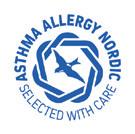
New look – a subtle Nordic-inspired ‘animals’ design that doesn’t show much through baby’s white fabrics.
New look – a subtle Nordic-inspired ‘animals’ design that doesn’t show much through baby’s white fabrics.
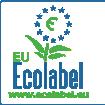
New certification – Asthma Allergy Nordic ensures that all ingredients have been assessed to minimise the risks of allergy.

The Nordic Swan Ecolabel ensures a high quality product and complies with the strict demands for the environment and your health.

New certification – Asthma Allergy Nordic ensures that all ingredients have been assessed to minimise the risks of allergy.
Abena Bambo Nature nappies contain 0% parabens, 0% perfume, 0% lotions and 0% preservatives – making them safer for baby and better for the environment. What’s in it for you? Their future.
The Nordic Swan Ecolabel ensures a high quality product and complies with the strict demands for the environment and your health.
The Nordic Swan Ecolabel ensures a high quality product and complies with the strict demands for the environment and your health.
Abena Bambo Nature nappies contain 0% parabens, 0% perfume, 0% lotions and 0% preservatives – making them safer for baby and better for the environment. What’s in it for you? Their future.
ABE1000019251
ABE1000019253
ABE1000019254
Incredibly Ultra
Soft
Flexible
Code Product Size (kg) Size Units per pack / ctn
4, Pants 7-14 kg L 20/100
5, Pants 12-18 kg XL 19/95
6, Pants 18+ kg XXL 18/90 Code Product Size (kg) Size Units per pack / ctn ABE1000019251 1, Nappy 2-4 kg XS 22/132 ABE1000019252 2, Nappy 3-6 kg S 30/180 ABE1000019253 3, Nappy 4-8 kg M 28/168 ABE1000019254 4, Nappy 7-14 kg L 24/144 ABE1000019255 5, Nappy 12-18 kg XL 22/132 ABE1000019256 6, Nappy 16+ kg XXL 20/120 Bambo Nature Nappies Bambo Nature Pants
Pants
ABE1000019257
ABE1000019258
ABE1000019259
New Bambo Nature Nappies &
moisture
Incredibly Soft Ultra Flexible Leak Protectors Breathable Wetness Indicator Ultra Absorb Channels Code Product Size (kg) Size Units per pack / ctn ABE1000019257 4, Pants 7-14 kg L 20/100 ABE1000019258 5, Pants 12-18 kg XL 19/95 ABE1000019259 6, Pants 18+ kg XXL 18/90 Code Product Size (kg) Size Units per pack / ctn ABE1000019251 1, Nappy 2-4 kg XS 22/132 ABE1000019252 2, Nappy 3-6 kg S 30/180 ABE1000019253 3, Nappy 4-8 kg M 28/168 ABE1000019254 4, Nappy 7-14 kg L 24/144 ABE1000019255 5, Nappy 12-18 kg XL 22/132 ABE1000019256 6, Nappy 16+ kg XXL 20/120 Bambo Nature Nappies Bambo Nature Pants
Incredibly Soft Ultra Flexible Leak Protectors Breathable Wetness Indicator Ultra Absorb Channels Code Product Size (kg) Size Units per pack / ctn ABE1000019257 4, Pants 7-14 kg L 20/100 ABE1000019258 5, Pants 12-18 kg XL 19/95 ABE1000019259 6, Pants 18+ kg XXL 18/90 Code Product Size (kg) Size Units per pack / ctn
1, Nappy 2-4 kg XS
2,
S
22/132 ABE1000019252
Nappy 3-6 kg
30/180
3,
4-8
M
Nappy
kg
28/168
4,
kg L 24/144
5,
XL
6,
16+
XXL
Bambo Nature Nappies Bambo Nature Pants
Nappy 7-14
ABE1000019255
Nappy 12-18 kg
22/132 ABE1000019256
Nappy
kg
20/120
Ultra
Leak Protectors Breathable
Abena Bambo Nature nappies contain 0% parabens, 0% perfume, 0% lotions and 0% preservatives – making them safer for baby and better for the environment. What’s in it for you? Their future. Indicator
Wetness
Absorb Channels
PERSONAL HYGIENE KIT
PERSONAL HYGIENE KIT
Contains
• Multi-purpose wipes (75% alc)
• 5x Protective Face Masks
• Hand Sanitiser Gel
Contains
• Sanitising Wipes
• Multi-purpose wipes (75% alc)
• Hand and Surface Sanitiser
• 5x Protective Face Masks
• Hand Cream
• Hand Sanitiser Gel
• Sanitising Wipes
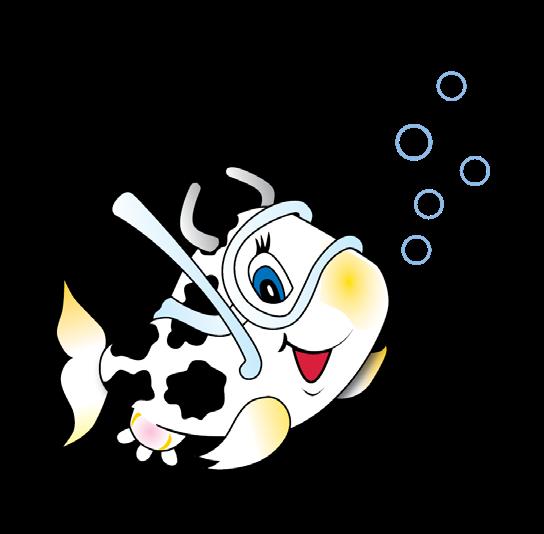
• Hand and Surface Sanitiser



• Hand Cream
The Bunzl Personal Hygiene Kit is the ideal solution for all your personal sanitiser needs.
For
more information on how to order SPC ProVital online, contact our team at sales@atlasmcneil.com.au No artificial colours, flavours, or preservatives 1 serve of fruit as per Healthcare guidelines Delicious Australian Grown Diced Fruit in Easy-Open Packaging
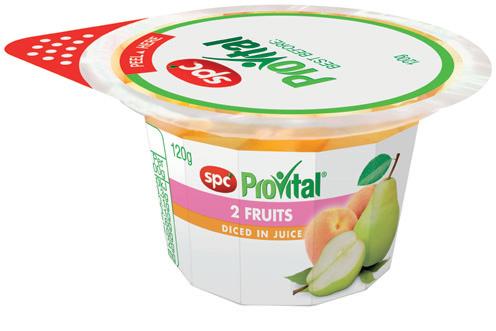

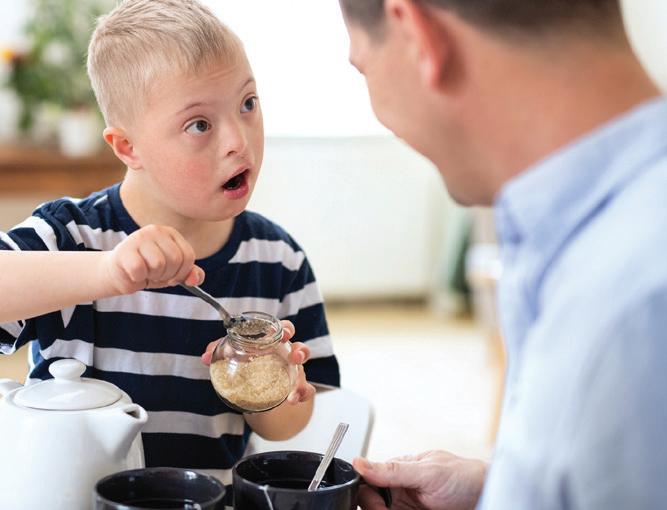
The Bunzl Personal Hygiene Kit is the ideal solution for all your personal sanitiser needs.
Abri-Flex Junior is a disposable pull-up style continence aid that is discreet, comfortable and can be worn just like normal underwear. Designed specifically to fit teenagers and children aged between 5-15 years.
Abri-Flex Junior is a disposable pull-up style continence aid that is discreet, comfortable and can be worn just like normal underwear. Designed specifically to fit teenagers and children aged between 5-15 years.


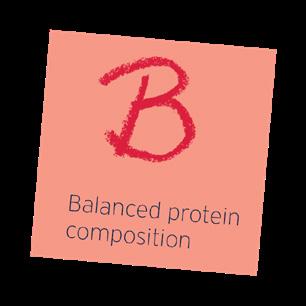

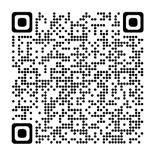


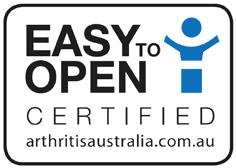

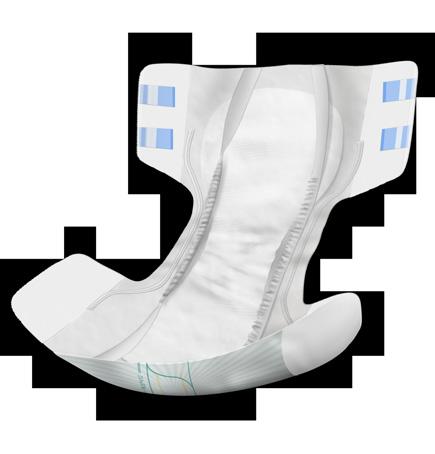



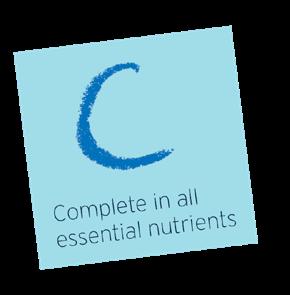
Abri-Flex Junior is a disposable pull-up style continence aid that is discreet, comfortable and can be worn just like normal underwear. Designed specifically to fit teenagers and children aged between 5-15 years.
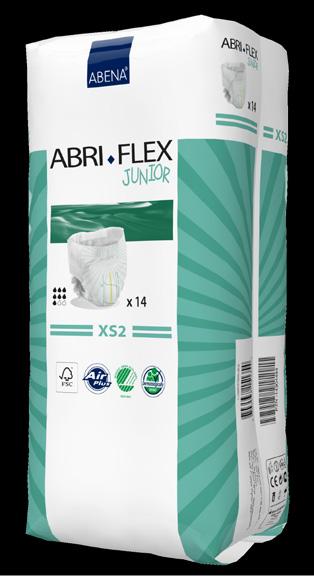

www.vichealth.com.au Contact us for a free sample
FREE DELIVERY ON WEB ORDERS OVER $100 HOME CARE PACKAGE COMMUNITY SUPPLIER Contact us for a free sample
Abri-Form Junior is a disposable continence pad specifically designed to fit teenagers and children aged between 5-15 years. Winged for comfort and security, absorbent and fully breathable.
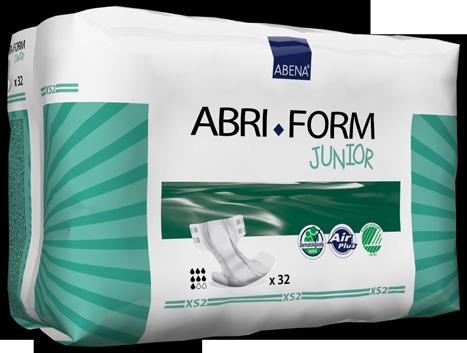
AUSTRALIA
DELIVERY
Call: 1800 888 541 Email: sales@atlasmcneil.com.au Web: www.amhcommunity.com.au
Call: 1800 888 541 Email: sales@atlasmcneil.com.au Web: www.amhcommunity.com.au
MKT-617
1800 888 541 AUSTRALIA WIDE DELIVERY FREE DELIVERY ON WEB ORDERS OVER $100 HOME CARE PACKAGE COMMUNITY SUPPLIER NATIONAL REGISTERED SUPPLIER Contact us for a free sample PERSONAL HYGIENE KIT $27.44 The Bunzl Personal Hygiene Kit is the ideal solution for all your personal sanitiser needs. FREE SAMPLE sales@atlasmcneil.com.au Contains • Multi-purpose wipes (75% alc) • 5x Protective Face Masks • Hand Sanitiser Gel • Sanitising Wipes • Hand and Surface Sanitiser • Hand Cream Banana, Strawberry, Vanilla & Chocolate Covering the ABC’s for optimal nutrition in paediatrics 1.5kcal/mL Energy DRINK in 4 Delicious Flavours *Frebini® is a food for special medical purposes and is intended for the nutritional management of malnutrition and therefore must be used under medical supervision. Click Here Delicious Australian Grown Diced Fruit in Easy-Open Packaging
MKT-617
1800 888 541
WIDE
Abri-Form Junior is a disposable continence pad specifically designed to fit teenagers and children aged between 5-15 years. Winged for comfort and security, absorbent and fully breathable. FREE DELIVERY ON WEB ORDERS OVER $100 HOME CARE PACKAGE COMMUNITY SUPPLIER NATIONAL REGISTERED SUPPLIER
$27.44
AUSTRALIA WIDE DELIVERY
$27.44
Call: 1800 888 541 Email: sales@atlasmcneil.com.au Web: www.amhcommunity.com.au
more information on how to order SPC ProVital online, contact our team at sales@atlasmcneil.com.au No artificial colours, flavours, or preservatives 1 serve of fruit as per Healthcare guidelines
Abri-Form Junior is a disposable continence pad specifically designed to fit teenagers and children aged between 5-15 years. Winged for comfort and security, absorbent and fully breathable.
For
Australian ACEING
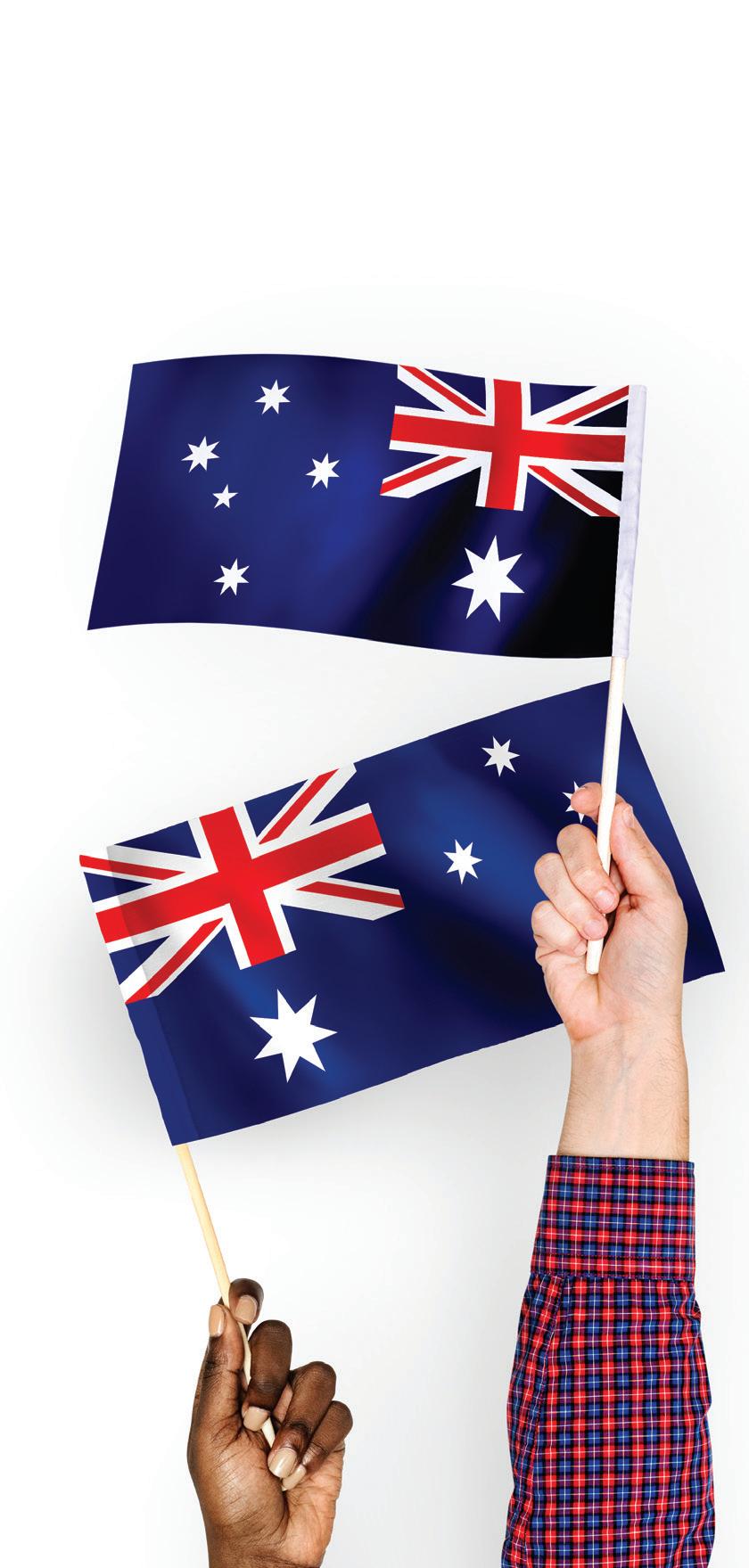
of the Year
When Dylan Alcott’s name was announced on January 25, it set the tone for what has been a momentous year for people with disability. Dylan reflects on a very big 2022 and shares his dreams for what lies ahead.
What was that moment like when you were named Australian of the Year? Was it excitement, relief, nervousness, terror? When did the enormity of what it meant hit you?
I was shocked! I was mid-way through the Australian Open and being named AOTY was the last thing on my mind, so I was incredibly humbled. At the time, I had to get straight back on a plane to make my AO final, so it certainly took a few weeks to sink in. I think it still is, to be honest, however as I said in my speech, it doesn’t change me or what I’m about. I’m the same Dylan I was the day before I was awarded, and the day after. Our social media blew up when you were announced. Could you feel the disability community’s absolute joy and pride in your success?
The response from everyone from all communities was overwhelming and had you told 14-year-old Dylan this would be happening, he certainly wouldn't have believed you. The incredible support from the general public has been a huge driving factor for me to continue striving for change, especially for us in the disability community.
Does the “responsibility” of representation and being a highprofile person with disability weigh heavily sometimes?
It does. You can’t do everything or advocate for everything, unfortunately but my team reminds me, and I remind myself, all I can do is my best. It’s been important to me to continually come back to my passion and purpose to ensure I am not letting all responsibilities fall on me, only those I can control.
How did you approach the year? Did you make a plan for things you wanted to say and achieve?
When I accepted my award, I did set out three key goals:
• A bipartisan guarantee for a fullyfunded, demand-driven NDIS.
• Support from the government to ensure people with disability had access to

18 SOURCEKIDS.COM.AU
no-cost RATs and PPE.
• More employment opportunities across the board for people living with disability.
Having clear goals proved to be really important, as while receiving AOTY is an award, not a role, the demands for your time and input are strenuous and at times, overwhelming. We as a team took time to come back to our goals when making any decisions, and also reminded each other to have fun in the process and enjoy the incredible honour that comes with being AOTY.
What is the thing you’re most proud of this year?
We’ve done some incredible work throughout our businesses; GSA, ListenABLE, Able Foods and The Field but I can’t get past the work we do at the Dylan Alcott Foundation. We have given
out more grants than ever this year and are seeing young Aussies with disability completing university degrees, winning gold medals and pursuing their dreams.
Tell us a bit about the Dylan Alcott Foundation — how it’s helping young people and what you hope to achieve through it.

I started my own foundation to ensure that young Australians living with disability could be provided with the equipment, education or opportunity that I was lucky enough to have growing up via scholarships, which I needed to play sport at an elite level. The DAF has to-date granted over 40 young Aussies and we’re growing quickly. We are diversifying our grant program and doing lots more in the education space with universities, which I’m really passionate about, so watch this space!
What do you think society has learnt about people with disability in 2022?
I hope they have learnt not to underestimate us and our capabilities. And I hope that society continues to broaden their mindset in terms of what people with disability can do and will continue to do.
You’ve spoken previously about how you felt about your disability as a kid growing up, you were angry and had very low selfesteem. What do you want to say to our readers, many who are kids with disabilities themselves?
I want to encourage all readers of Source Kids to dream big because anything is possible. I was lucky enough to have a very supportive family and as I got older, incredible friends who encouraged me to work hard towards my goals. With goals
DYLAN ALCOTT ISSUE 33 | SUMMER 2022 19
“There is an incredible life out there and embracing your difference and disability is what will bring you the greatest happiness and opportunities.”
come hard work and at times, voices inside your head that can feel dominating and overwhelming; remind yourself that it’s okay to feel this way and please speak up. I wish I had vocalised how I was feeling earlier, because the support is out there, you just have to ask for it.
What do you wish you could tell teenage Dylan?
Stop playing video games and eating doritos and start living! There is an incredible life out there and embracing your difference and disability is what will bring you the greatest happiness and opportunities.
What was your reaction to Kurt Fearnley’s appointment as chair of the NDIA board?
I’m stoked for him. He is one of the hardest workers I know and so I have complete faith that he will apply his knowledge and lessons, combined with incredible leadership skills to the role. One of my favourite things about Kurt is his ability to listen and I believe this will be integral for him in leaning into our community and making changes based on demand, rather than policy.
During the Federal government’s Jobs Summit, you suggested allowing people on a disability pension to earn more in paid employment. What was the reaction to this and is it something you will continue pushing to be adopted? Why is employment so pivotal to someone’s ongoing happiness and wellbeing?
The reaction was positive and supported by many in the room. The conversations
since have continued in the direction we all want them to go and it’s something we’ll all continue working on, together. Employment is a choice that everyone should have and further support for those who need it to achieve their employment goals, should they have them, is in progress.
You are so busy, with lots of different projects on the go. How do you balance it all?
It’s not I, it’s we. I am extremely lucky to have an incredible team around me who share the same goals and passions that I do. We feel lucky to be doing the work we’re doing and the passion we share continues to stimulate us to work hard.
We hear an acting future may be on the cards — tell us a bit about your aspirations.
As I’m writing this, I just finished my first role in a short film. I loved it! I’m also playing a part in an animation coming out soon, too. It’s an industry I’ve always been interested in, and I’d love to see more representation on our movie screens. I’m not sure if I’ll be any good at it, but I’m taking lessons. I’ll try my best and we’ll see!
As parents of kids with disability, it can be a tough balancing act in trying to protect our kids, but also allowing them to grow — which means trying and failing at things, and experiencing the world. What advice would you give to parents of kids with disability?
I can’t imagine what it was like for my parents. They didn’t know what they were doing but they just tried their best. As I’m not a parent myself, this is all I can
encourage parents of kids with disability to do. I do however suggest, where possible, please let your kids speak up for themselves. Express themselves. Being given the opportunity to do this when I was younger, it’s a skill I am forever grateful for as it’s shaped who I am today.
You’ve previously mentioned that you have a lot of family members in a caring role reach out to you at the Dylan Alcott Foundation who are feeling overwhelmed by the constant fight for inclusion and assistance. What is your advice to them?
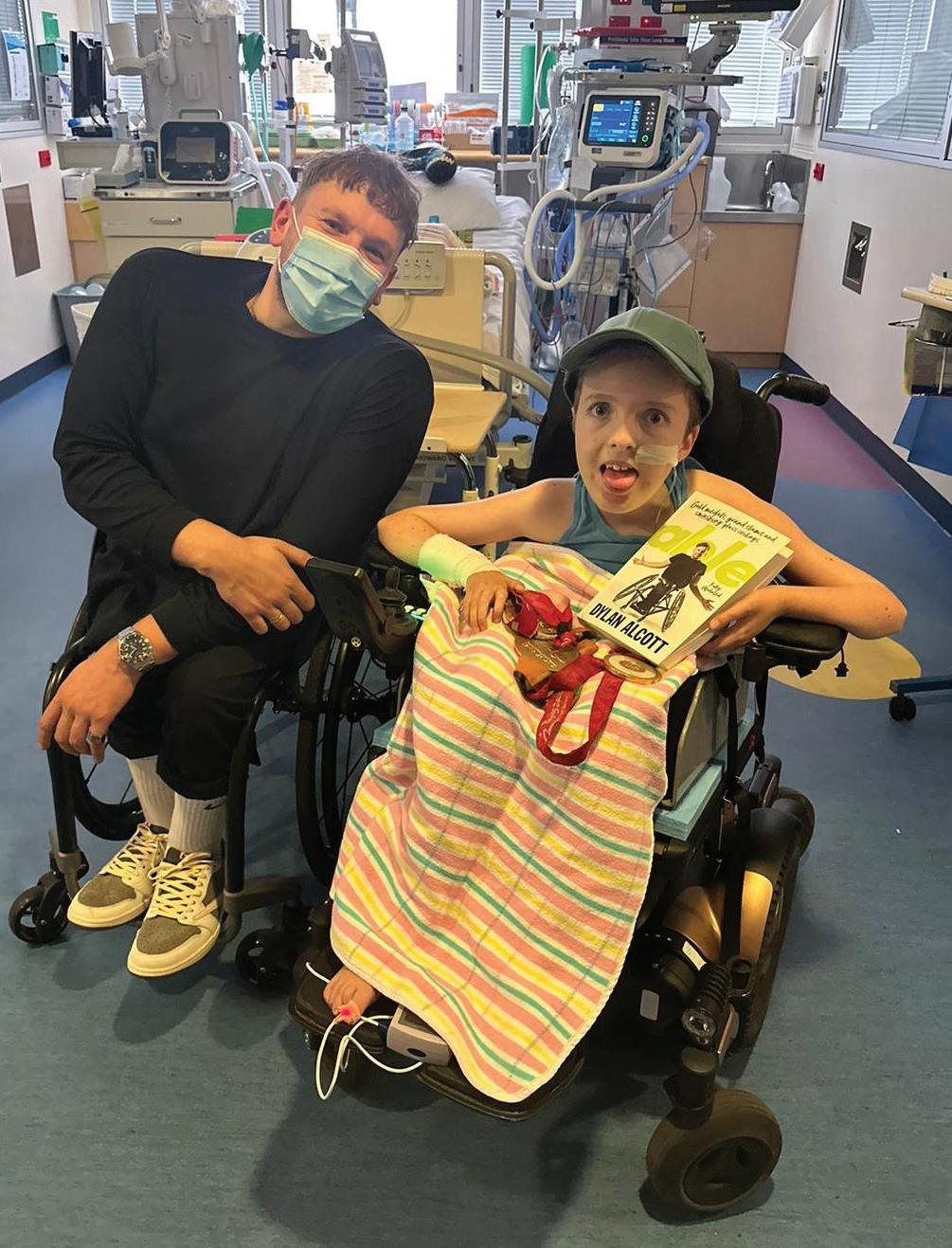
As a foundation, we are there to provide support in the form of grants but also there to support those who need it. My advice would be simply that you’re not doing it alone and the more you talk about it, the more impact we’re going to be able to have, together. Educating people who aren’t aware of what’s required is the first step in the right direction.
What is the legacy you hope to create for young kids seeing your success?
I don’t think of myself as a role model or someone who is leaving a legacy, however I guess my only hope would be that kids who connect with what I’m doing and what I’m about, are left motivated to not take no for an answer and be willing to put in the hard work to succeed at whatever they are passionate about.
By Rebekah Devlin
20 SOURCEKIDS.COM.AU DYLAN ALCOTT
“My only hope would be that kids who connect with what I’m doing and what I’m about, are left motivated to not take no for an answer and be willing to put in the hard work to succeed at whatever they are passionate about.”
Queensland
As a leading supplier of paediatric equipment for kids with disabilities, we are passionate about helping children with additional needs to live life to the fullest and to achieve their maximum potential.

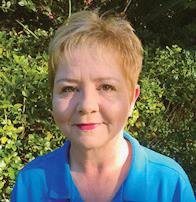
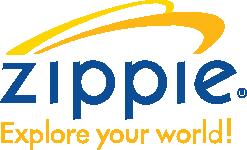
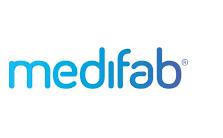
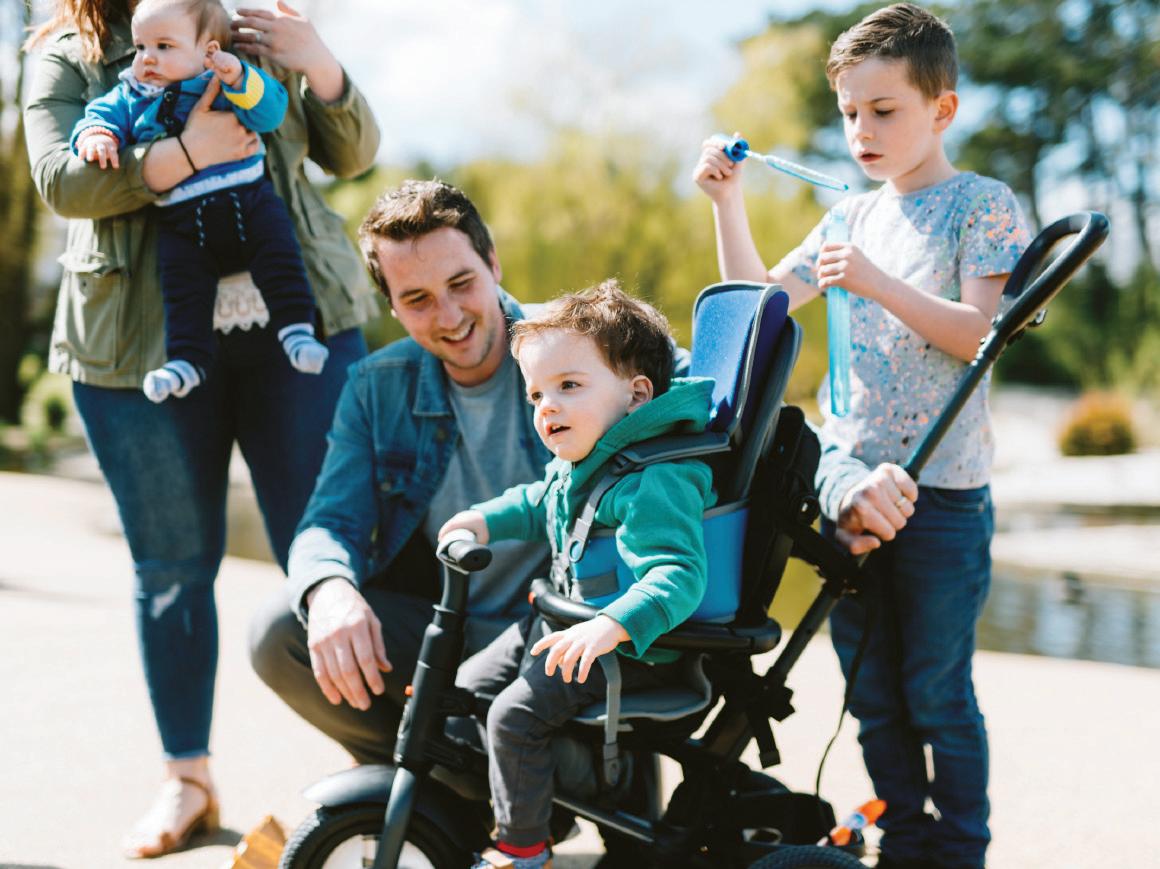


Our Team Specialises in Assistive Technology Equipment for Children
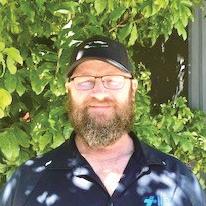
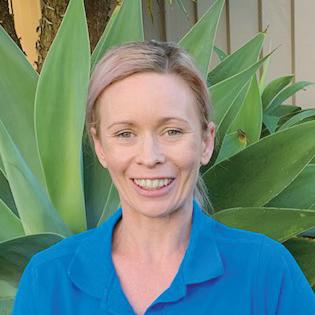



Clinical Approach
Our team has an in-depth knowledge of assistive technology equipment for children. We provide support before, during and after equipment trials to ensure families get the best outcomes.
Extensive Product Portfolio
ILS Kids accesses a wide product portfolio, which ensures our recommendations are not limited by access to certain products.
Fast Responses
Our friendly and experienced team understands the importance of responsiveness and provides timely information from equipment trials.
Julie Taylor Senior Paediatric Product Specialist
Benji Braund Paediatric Product Specialist Complex Rehab
Leigh McBurnie Paediatric Product Specialist
Hayley Knight Paediatric Product Specialist
Marcus James Paediatric Product Specialist & Technician
ilskids.com.au | 1300 366 398
Special Needs Solutions is now part of ILS Kids
Sign up for Leap in! plan management and get access to the exclusive L! Member Benefits Club.
The discounts and offers available in the Member Benefits Club can save you money on loads of everyday items – groceries, homewares, electronics, disability-related products and services and so much more.
It’s one of the many ways we give back to our Members. We think every little bit helps to make our Members’ money go further.
As a not-for-profit we put people first: from helping Members get the most out of their NDIS Plans, developing award-winning tools in consultation with people with disabilities to being an employer of choice for people with lived experience.
Talk with us to find out more about how we can make a difference for you.
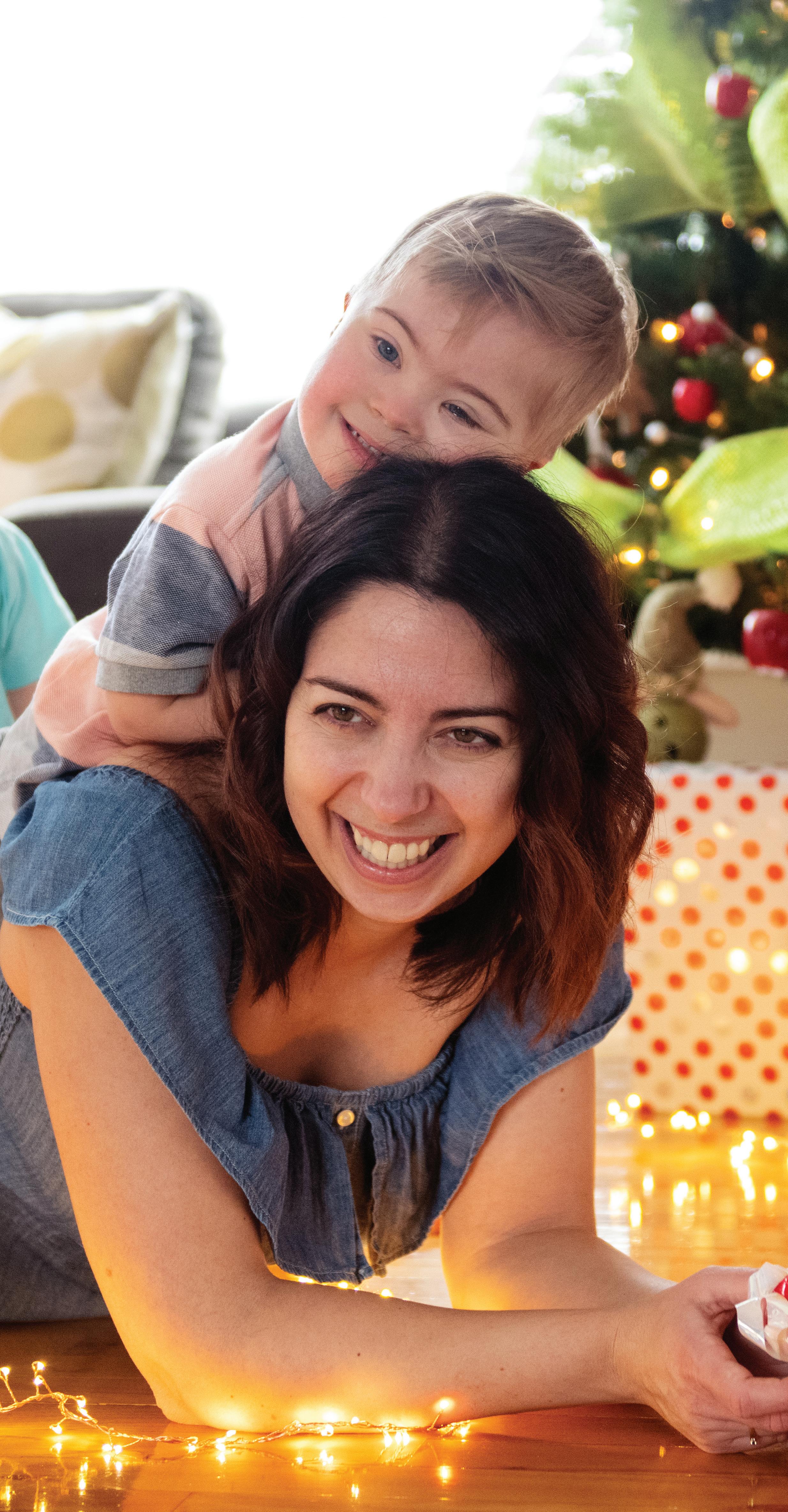
Plan management with exclusive benefits.
leapin.com.au Call us on 1300 05
78
Visit
78
Ask a PLAN MANAGER!
What exactly does “reasonable and necessary” mean?
Reasonable and necessary is the funding criteria used by the NDIS. Simply put, reasonable is something that is fair, and necessary is something your child, or young adult, needs because of disability.
The NDIS funds reasonable and necessary supports to help your child live an ordinary life and achieve their goals. Supports purchased with NDIS funding must:
• Relate to your child’s disability and support needs.
• Help your child pursue their goals.
• Be good value for money.
• Be likely to be effective and beneficial.
• Complement (not replace) other informal supports, including those provided by family and the community; and formal supports like health and education.
• Be the responsibility of the NDIS to fund (not another organisation or government service).
Everyday living expenses that people without disability have to pay, like food, train travel or movie tickets are not covered.
How does respite care work under the NDIS?
You may have heard the term “short term accommodation (STA) and assistance” used in relation to the NDIS. This is a broad description covering various types of short-term accommodation supports, which also include respite care.
Respite care provides an opportunity for a child, or young adult, to get support from someone else while parents or regular carers take a break. It is the alternative care that is put in place while a usual care giver is unavailable.
The NDIS may fund respite in your home or at a respite centre for up to 14 days at a time and includes accommodation, assistance with self-care, overnight support, food and additional negotiated activities.
Do I need a quote to purchase consumables?
The Core – Consumables budget covers the purchase of items required to manage your child’s personal disability-related needs. Examples include pull-ups and nappies, absorbent products, food preparation products and modified eating aids. Items under $1500 generally don’t need a quote.
Does the NDIS fund prescription medication?
The NDIS does not fund prescription or over the counter pharmaceutical products. Prescription medicines are the responsibility of the health system, while over the counter medicines such as cough medicines or supplements are day-today living costs which the NDIS does not fund.
There seem to be two community participation budgets with similar names. What’s the difference?
Assistance with Social, Economic and Community Participation funding from the Core budget can be used for a support worker to help your child participate in social, employment and community activities.
Increased Social and Community Participation funding from the Capacity Building budget is used for development and training to build independence and help your child access the community. Examples include peer support, public transport training and funds to try out new activities connected with the goals in their NDIS Plan.
Tabitha is an experienced plan manager with Leap in! She answers some of the most frequently asked questions about kids and the NDIS.
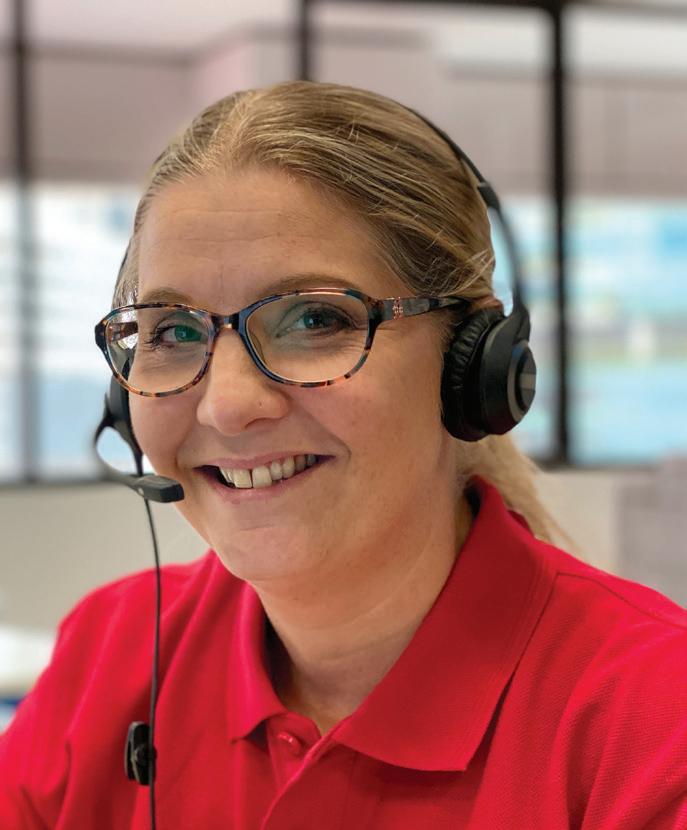
Can a provider charge my child’s NDIS Plan for transport costs?
Core funding can be used flexibly for support worker costs associated with transport to and from NDIS-funded community-based activities.
There are clear rules regarding providers claiming travel costs from your child’s NDIS Plan. All the following conditions must be met:
• Providers can only claim costs for travel if agreed in advance.
• NDIS Pricing Arrangements and Price Limits indicate that providers are eligible to claim travel costs for the support item and the proposed claim must comply with the price limits guide.
• The activity must be related to delivering a specific disability support.
• The support must be delivered in person, not online.
• The provider must explain why paying for travel is a good use of NDIS funds.
Travel time can only be claimed if the provider has to pay the worker for their travel time or if the worker is a sole trader.
Leap in! can help you navigate the NIDS and get the most from your child’s plan. We also take care of all the NDIS bookkeeping for you! Call us on 1300 05 78 78 to find out if plan management is right for you.
ISSUE 33 SUMMER 2022 23 IN ASSOCIATION WITH
DO YOU HAVE A QUESTION YOU’D LIKE US TO ANSWER IN THE NEXT EDITION OF SOURCE KIDS? WE’D LOVE TO HEAR FROM YOU. SEND YOUR QUESTION TO MYSTORY@LEAPIN.COM.AU
Q Q Q Q Q Q
Do you have questions about your child’s NDIS Plan or what the NDIS may fund? Our friends at Leap in! plan management support thousands of families across Australia to get the most value from their child’s NDIS Plan.
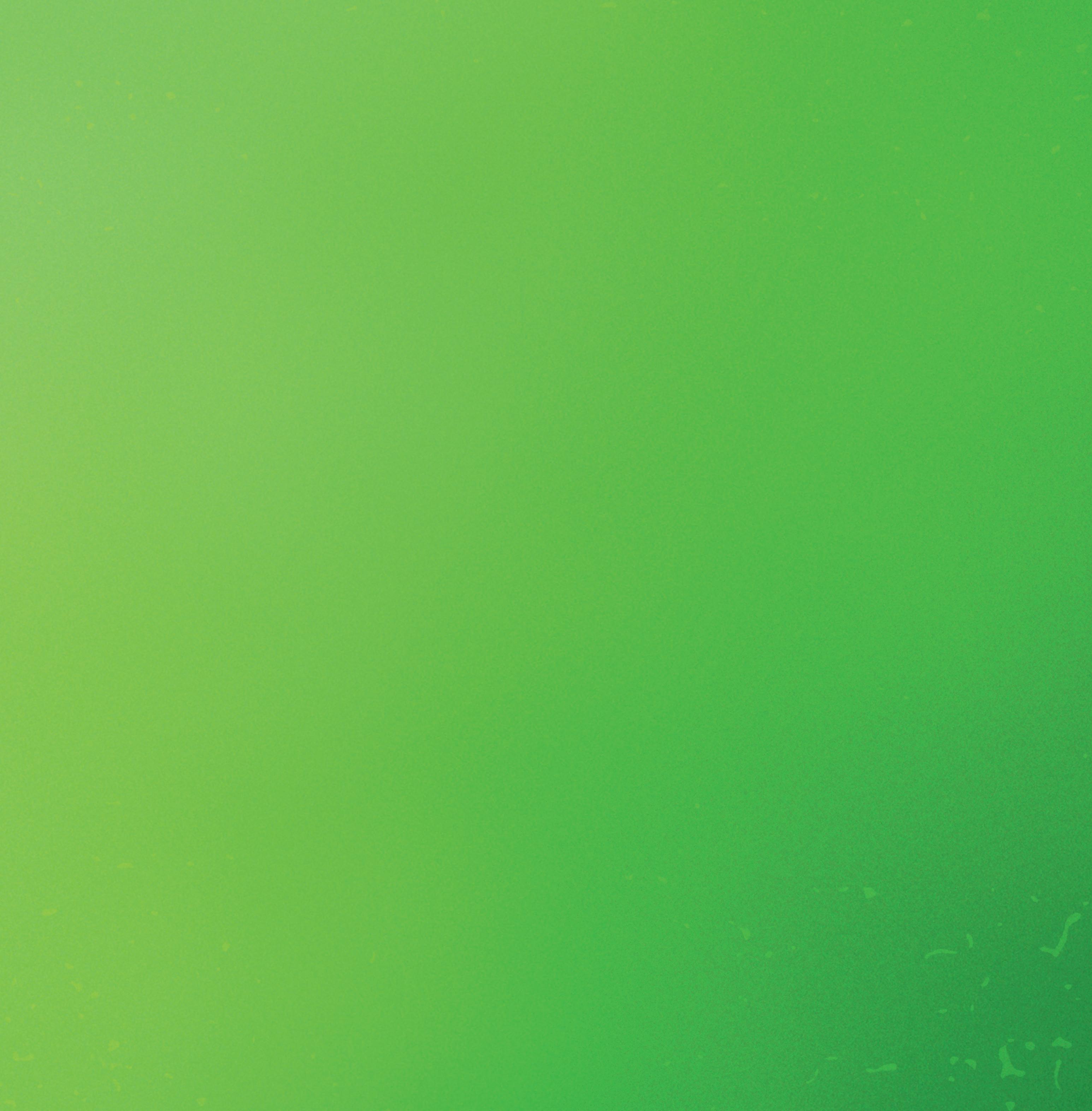
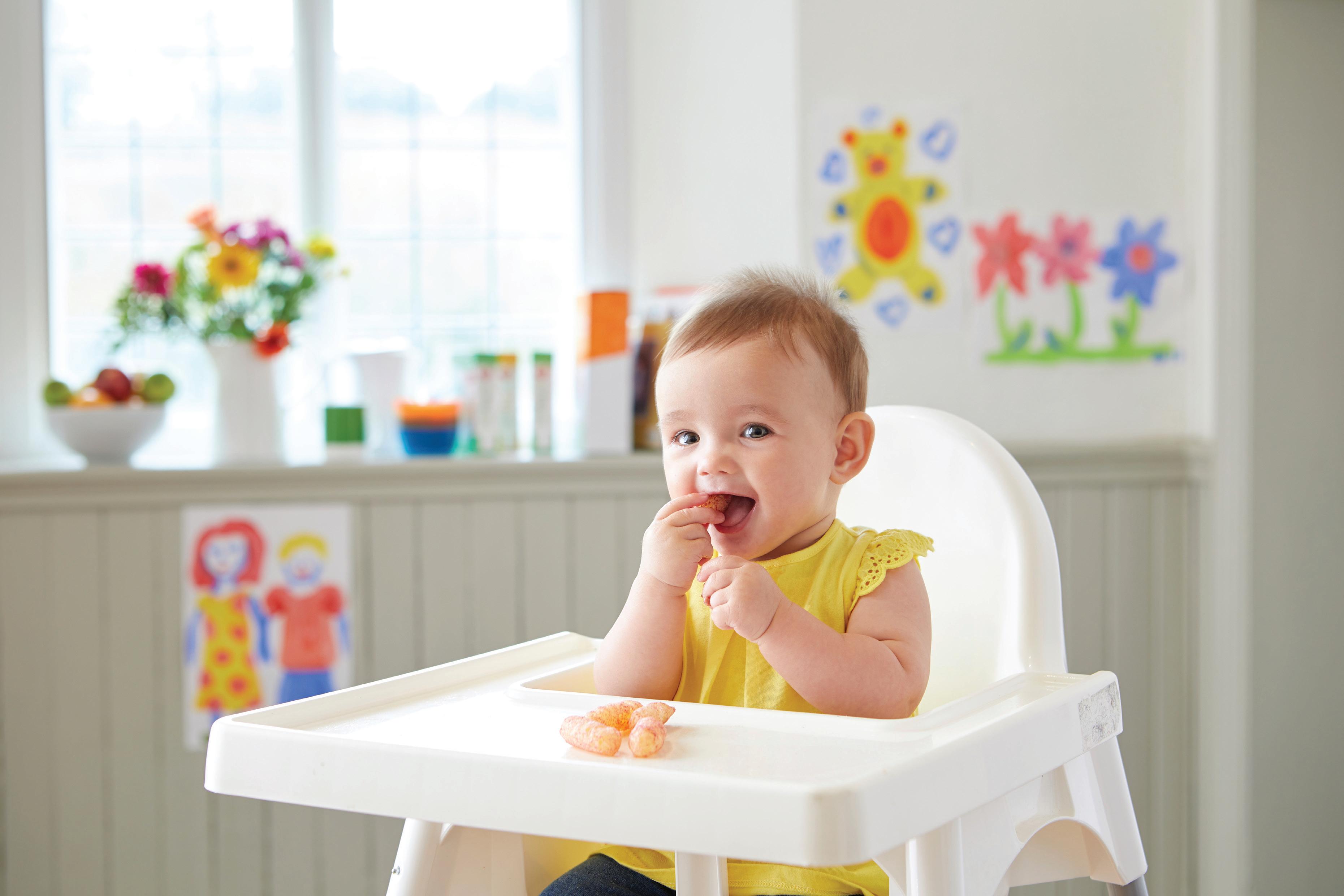
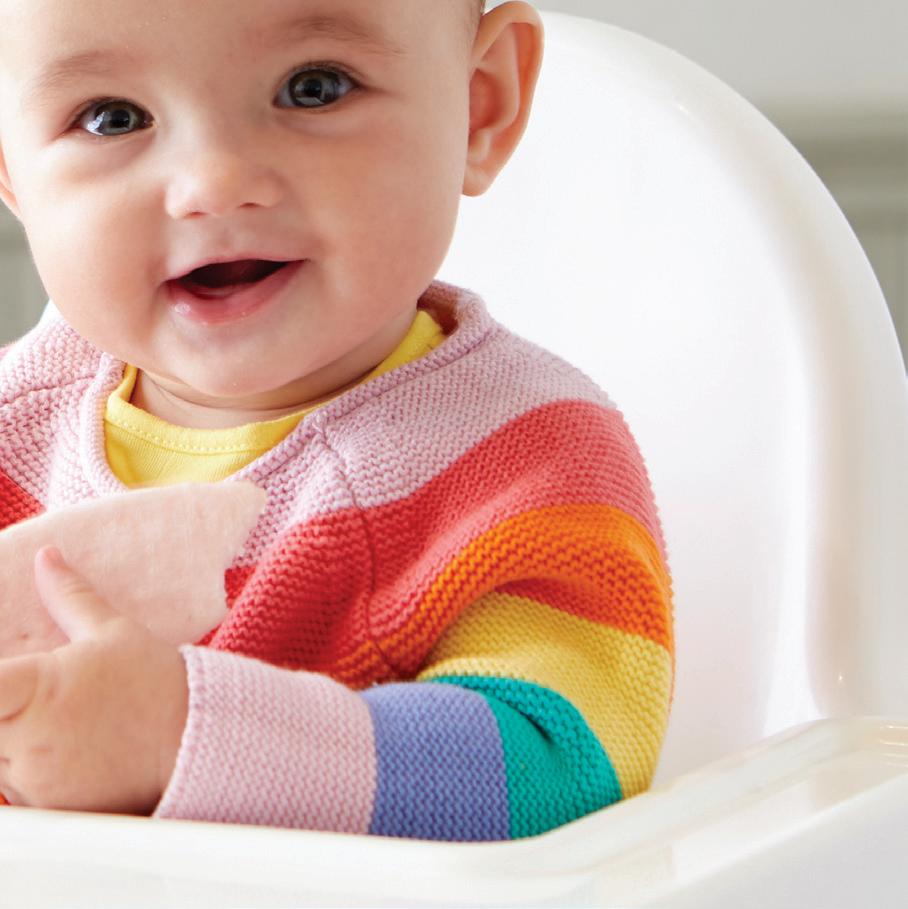

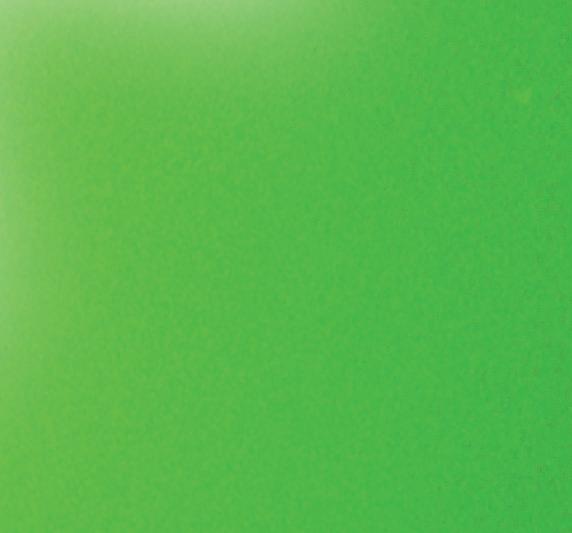



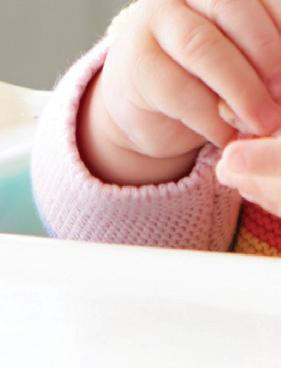






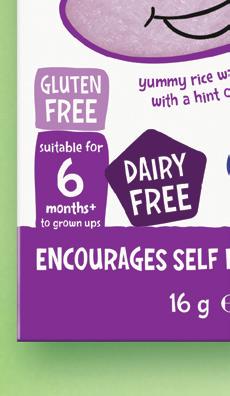
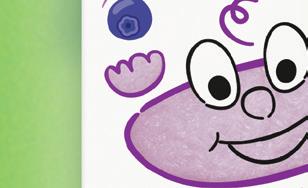
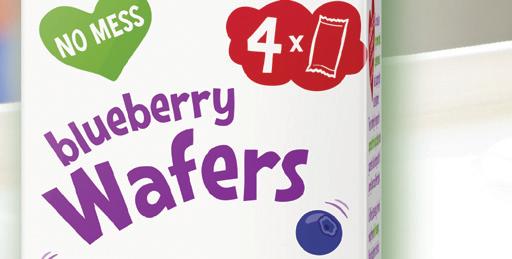
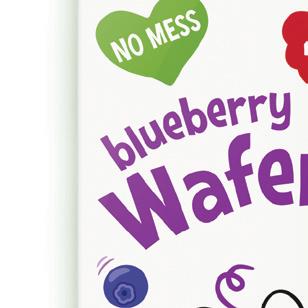








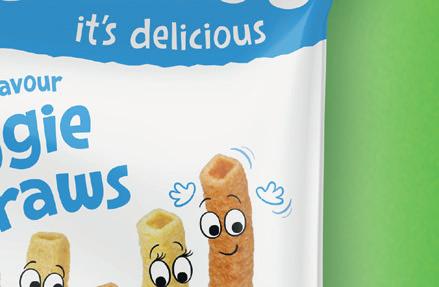
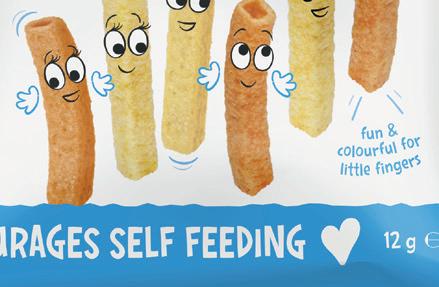


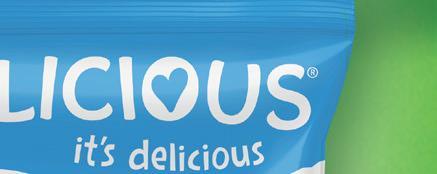



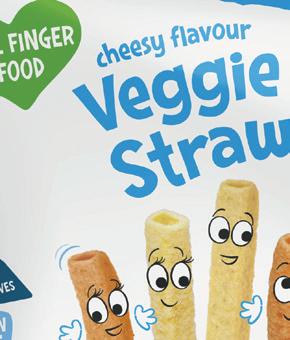
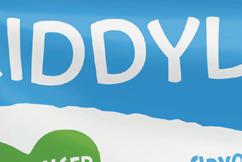


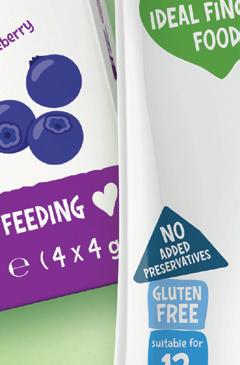

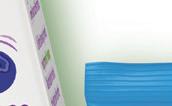





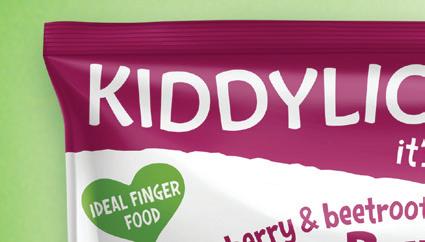
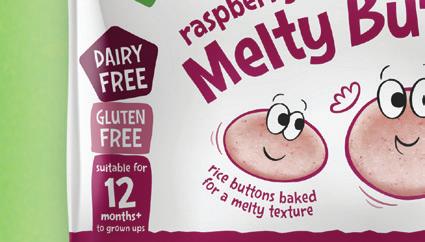
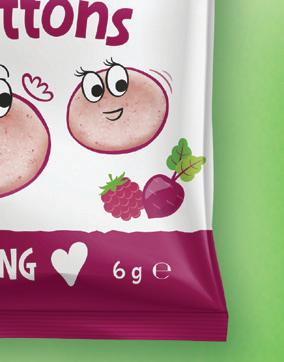



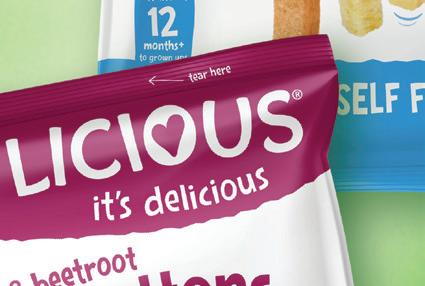
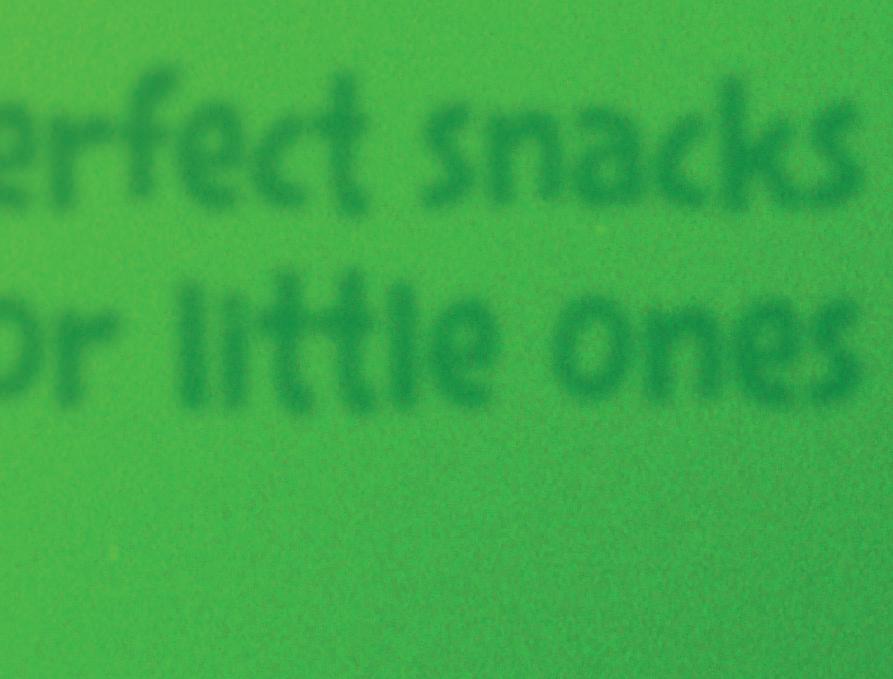









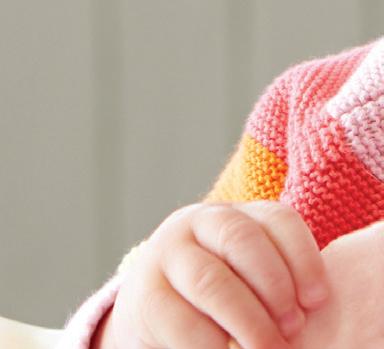








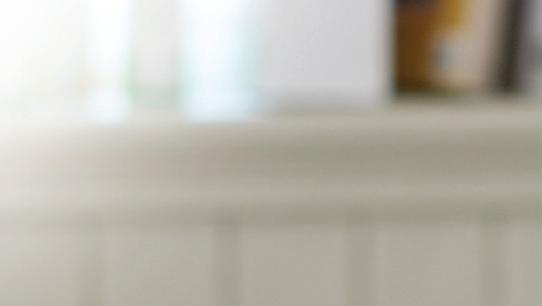









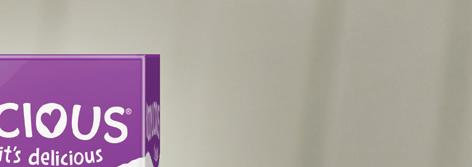














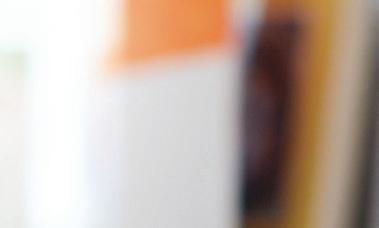





















































Find out more at kiddylicious.com.au @kiddyliciousANZ Our snacks keep tiny tummies topped up between meals as well as supporting little ones’ development such as practising their pincer grip. There is something for everyone from 6 months old (perfect for weaning and teething) and we guarantee it will be bursting with lots of yummy flavours and different textures. Perfect snacks for little ones
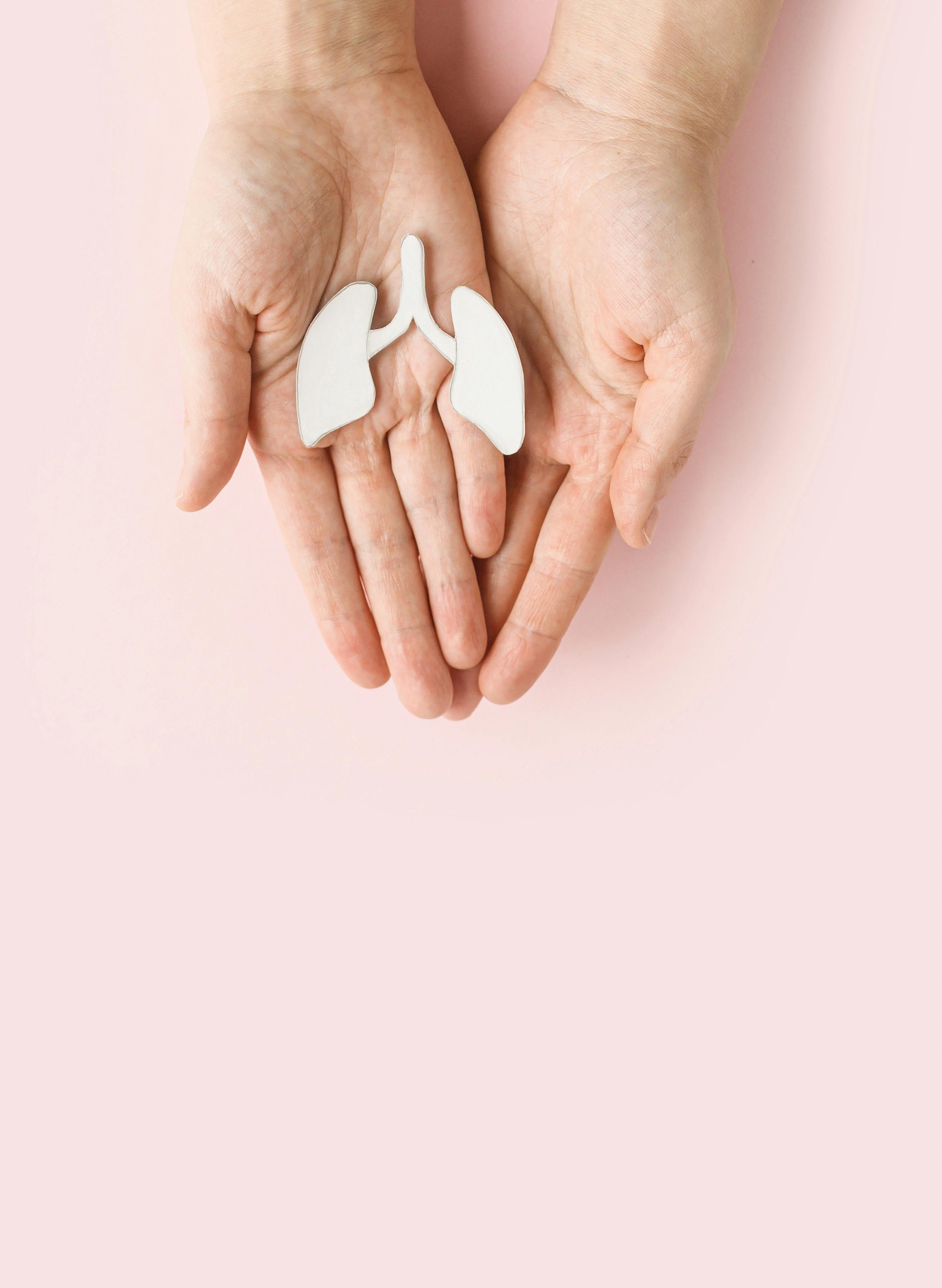

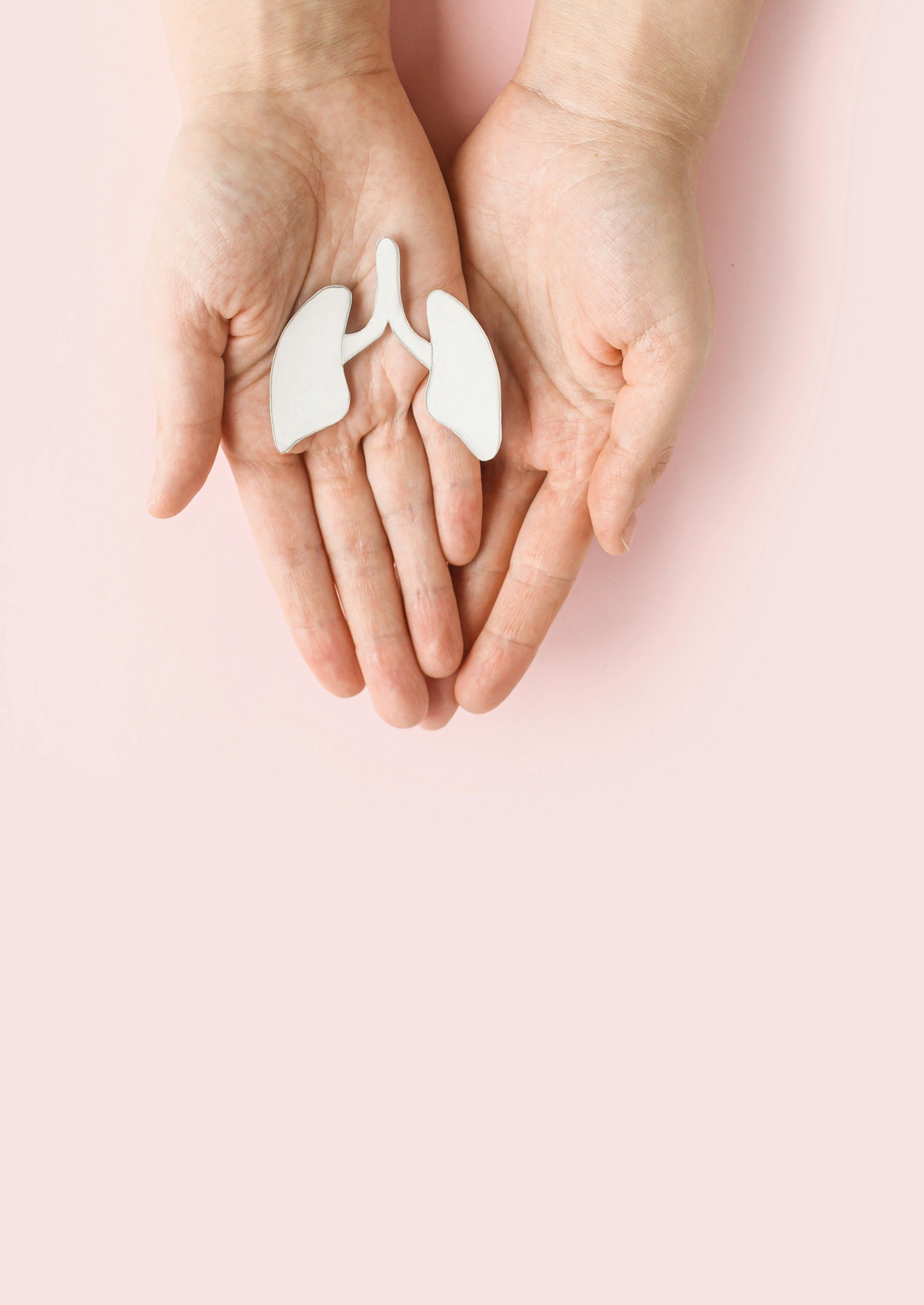
CYSTIC FIBROSIS ISSUE 33 SUMMER 2022 25
“There has been great progress for our community but there is a long way to go.”
In Australia, all babies are screened at birth for CF – and one in 2500 are born with the condition. More than one million Australians are carriers of CF genes.
MIRACLE MEDICINE TRIKAFTA IS CHANGING LIVES IN THE CF COMMUNITY
Developed on the back of other CF modulators including Orkambi and Symdeko, Trikafta is a new triple combination modulator therapy that addresses the cause of CF.
It was given FDA approval in the US in October, 2019 for people aged 12 and older who have at least one F508del mutation.
For many people, the results have been life-changing, and as close to a cure for cystic fibrosis as is currently possible.
So Cystic Fibrosis Australia went to work to bring the drug here.
“We believe that all people with CF should have the opportunity to lead full, productive, and valuable lives with access to the best treatments and high-quality clinical care,” says CFA chief executive officer, Jo Armstrong.
“One of the critical ways we support the community is through our relentless advocacy, research, and clinical improvement funding. CFA is committed to improving clinical practice and patient outcomes and experiences.”
In Trikafta’s case, it meant lobbying the Federal government and decision makers behind the Pharmaceutical Benefits Scheme to ensure the drug was subsidised and not financially inaccessible for families.
And they won!
In March, Trikafta was made available on the PBS for people aged 12 and over, who have at least one F508del mutation,

which is the most common mutation.
“Without PBS subsidy, around 1900 Australians would pay more than $250,000 a year for access to Trikafta,” then Health Minister, Greg Hunt, said at the time.
“This treatment is out of reach for most Australians, and now that it will be available on the PBS, patients will only pay a maximum of $42.50 per script, or as little as $6.80 with a concession card.”
While this was cause for huge celebration for the CF community, the strict guidelines around age limits and gene mutation meant that many missed out on accessing the wonder drug, including children aged six to 11.
“This was a great step, but we know there are many more people who have the potential to benefit from this medication who are yet to have access to it,” Jo says.
“We have already seen and heard the amazing impact Trikafta has had on the lives of those who are taking it in the 12-plus age group, and now we want more people to benefit. The stories are incredible and bring hope to the community.
“We know that the sooner the listing is made, the sooner young Australians with CF can benefit. Prevention is critically important, especially to minimise damage to the lungs. “
And so CFA is gearing up for the fight once again.
TRIKAFTA FOR SIX TO 11-YEAR-OLDS MAY BE ON THE HORIZON
Internationally, Trikafta has already been made available to children aged 6 and over
and CFA wants Australia to follow suit.

Trikafta has been included on the November Pharmaceutical Benefits Advisory Committee (PBAC) agenda for this age group – a key step in it being subsidised here in Australia.
In late September, submissions to the PBAC were closed and more than 270 submissions are now being considered, including one from Cystic Fibrosis Australia.
“As the peak consumer body for Australians living with cystic fibrosis, it is our role to lead this conversation and ensure all Australians get access to the medications they require – without delay,” Jo says.
While the breakthroughs with Trikafta are life-changing, there remain many people in the CF community who will not respond to it or may not be eligible to access it.
“This means that our work must continue so that everyone has access to the medicine and therapies they need to have a full life,” Jo says. “We invest in research, National Standards of Care, peer review, advocacy, and the Australian Cystic Fibrosis Data Registry to help support all Australians with CF.”
Cystic Fibrosis Australia is committed to improving clinical practice and patient outcomes with the aim of extending life expectancy from 47 to 55-years by 2026.
“Increasing life expectancy and quality of life is central to our work at Cystic Fibrosis Australia and we will be relentless to achieve this important goal,” Jo says. “Every day we strive to do all we can so that people living with cystic fibrosis can have a full and meaningful life.”
For more information on the work of Cystic Fibrosis Australia, head to cysticfibrosis.org.au
CYSTIC FIBROSIS
By Rebekah Devlin
“We have already seen and heard the amazing impact Trikafta has had on the lives of those who are taking it in the 12+ age group… The stories are incredible and bring hope to the community.”
26 SOURCEKIDS.COM.AU
“Prevention is critically important, especially to minimise damage to the lungs.”

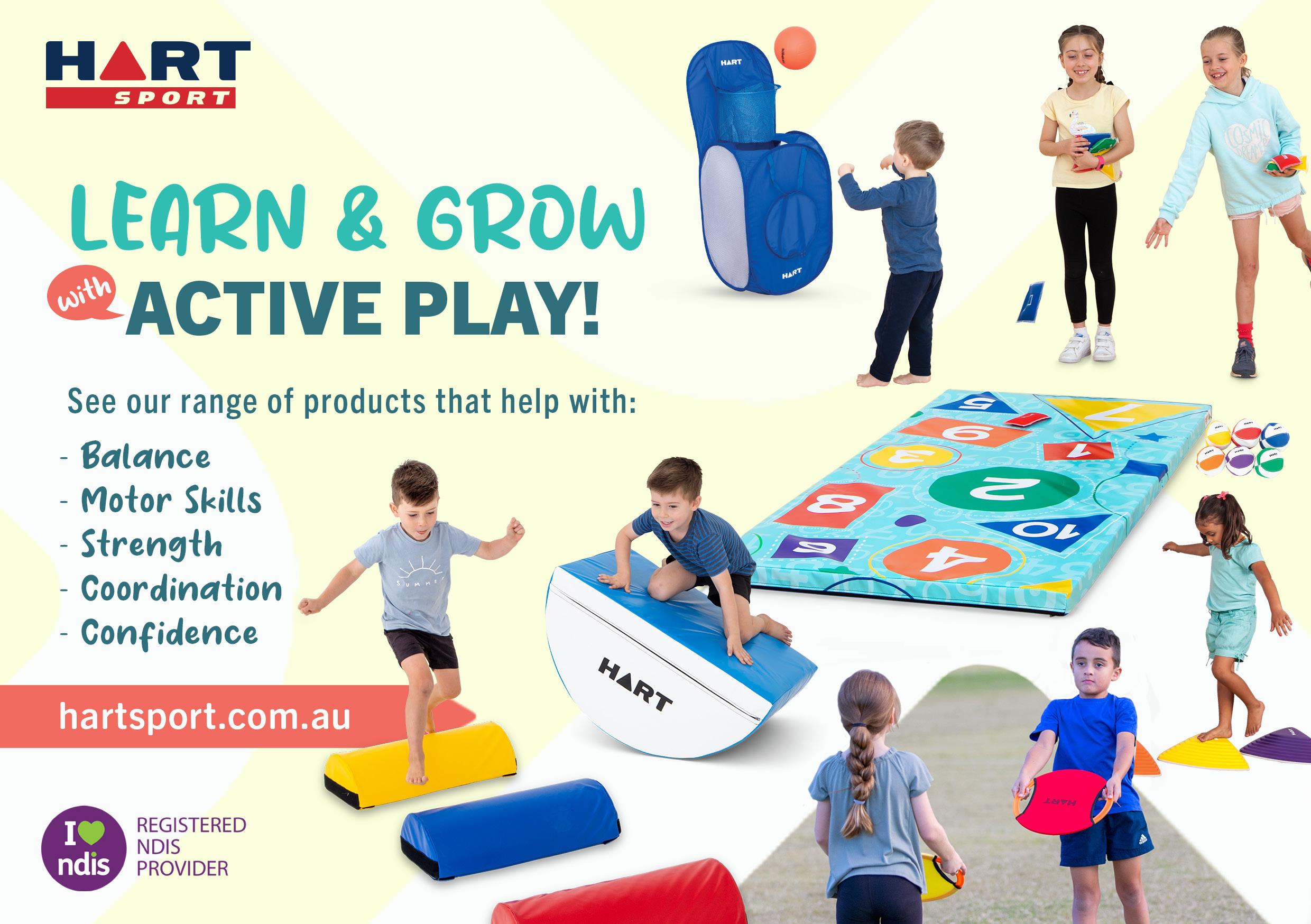
ISSUE 33 | SUMMER 2022 27
From gravely ill
miracle




Our Trikafta girl
The day your child is born is supposed to be one of the best days of your life, and it was definitely like that for me. I had my second child, Meesha, just 14 months after my first. I knew it would be tough with two little ones, but I was ready for it. What I wasn’t ready for was a call four weeks later from my obstetrician, a call that changed the course of my life forever. My daughter was diagnosed with cystic fibrosis.
I had NO idea what CF was and immediately googled it. I was confronted by phrases like ‘life expectancy of 35’, ‘transplant’, ‘diabetes’ and ‘death’. I was in absolute, utter shock, hyperventilating while trying to relay the news to my family. The next few
days were full of meetings with genetic counsellors, CF consultants, dieticians and physiotherapists. All of a sudden, the weight of the world was on my shoulders.
I found myself grieving for the healthy child I thought I had, simultaneously overwhelmed with the responsibility of having to care for a child with a complex multi-system disease.
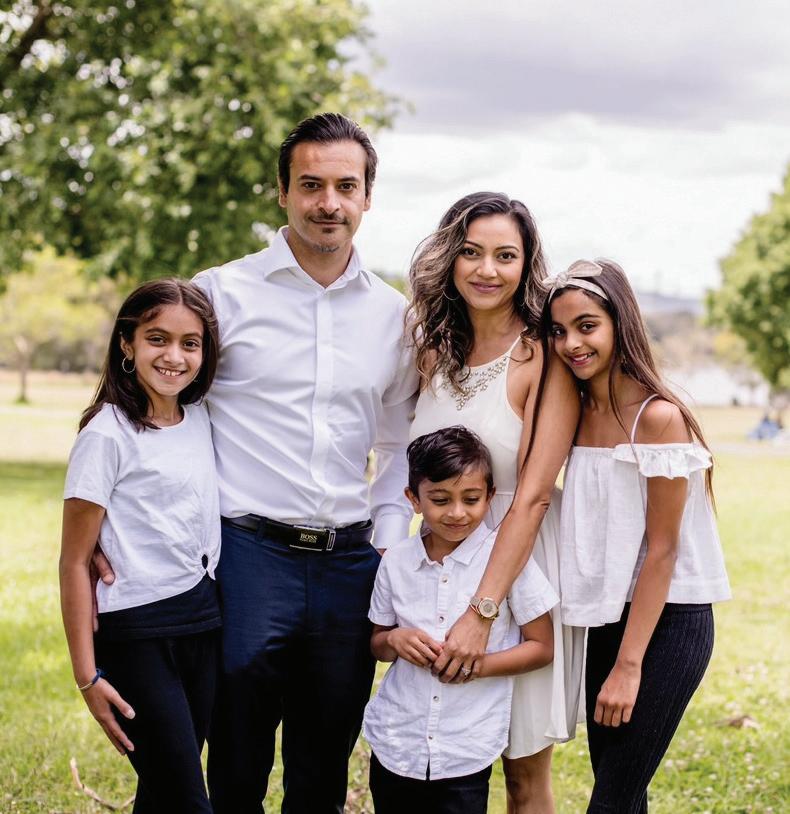
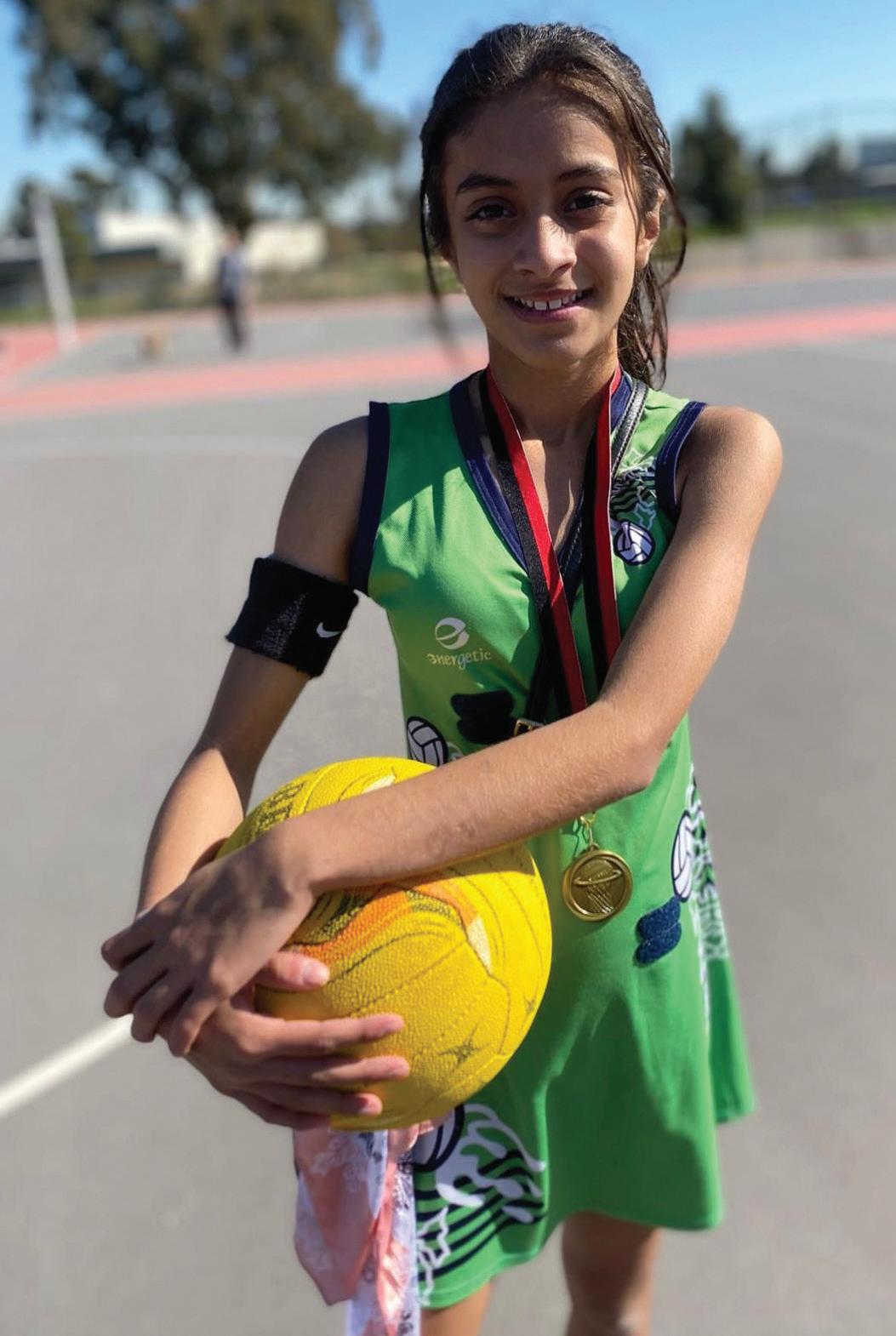
As days and months went on, I became an expert on CF. I came to realise it’s a cruel, relentless invisible disease. No matter how careful I was, or how hard I tried, my baby was constantly ill and in hospital. At four, she had reoccurring chest infections lasting six weeks at a time with only a week or two between her next infection. She spent many weeks in hospital and would
Getting a hug from her beloved CF physio.
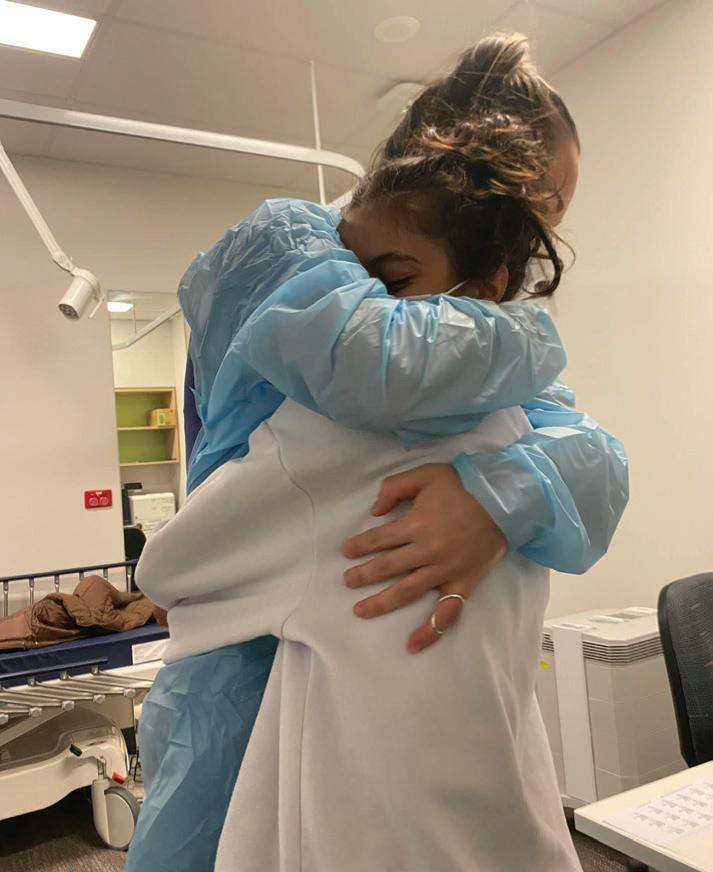


continue IV treatment at home. She went to kinder, and eventually primary school with PICC lines (a catheter inserted in the upper arm) to pump strong IV antibiotics 24-hours-a-day into her fragile veins.
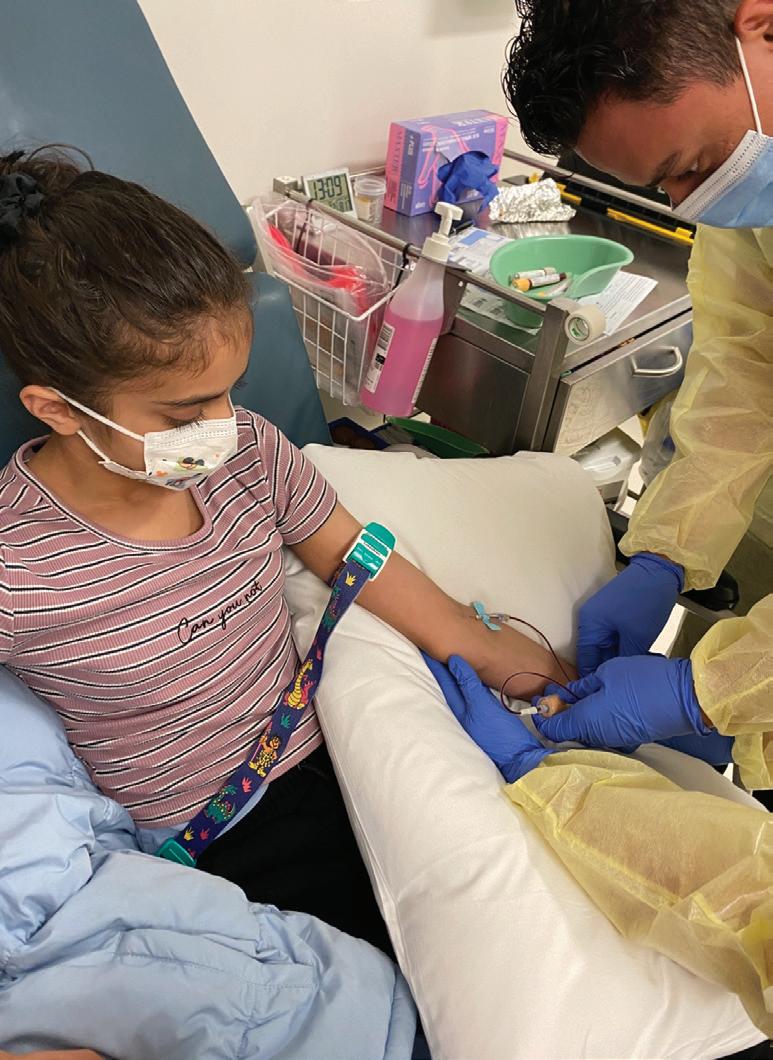
By six, she was drastically underweight and had a feeding tube (Peg) inserted in her stomach, which she still has today.
Our days were filled with hours upon hours of medical therapy and my remaining hours were looking for any advancements within the CF world. My husband and I came across a pharmaceutical company researching new drug therapies − gene modulators! This brought a glimmer of hope that maybe, in our lifetime, my daughter would be fortunate enough to have a drug that would prolong her life. However, as months and years rolled on, Meesha’s health deteriorated. I didn’t want to think about it at the time, but her future looked grim and all those statistics on young
12-year-old Meesha went from near death and needing a double lung transplant to dancing and playing sport, all thanks to the new CF wonder drug.
“My soul was crushed, with no hope in sight.”
to playing netball. What a transformation.
28 SOURCEKIDS.COM.AU
children with CF dying were becoming a close reality.
I tried to hold onto hope, after all, we were adhering to a strict regime of treatments and physiotherapy to preserve what was left of her precious lungs. But Meesha wasn’t so lucky - she ended up with advanced lung disease by the age of eight and she was further diagnosed with CF-related diabetes. She had dangerously low oxygen levels, extremely low lung function and was on oxygen for a period. She could no longer run, dance, or even laugh without choking and vomiting. All the things she loved to do were ripped away.
She was now at the end of the road for treatment. She needed a double lung transplant to survive. My soul was crushed, with no hope in sight.
A few months later, we were given an opportunity to access a new drug only available in America. A magic pink pill called Orkambi, which our CF clinic managed to obtain on compassionate grounds, as there were no other alternatives to keep Meesha alive than to use this new, unapproved drug. She was one of only a few on this medication in Australia at the time. These pills took a little while to work, but she eventually went from needing a double lung transplant to going back to school part-time. Her lung function increased
slightly, and she was able to put her transplant on hold.
As fortunate and as happy as we were to receive this medication, her CF was so severe, and her body was so compromised, that she started declining once again. By age 11, she could barely walk 150m, she was still 100 per cent tube fed, and her diabetes was wreaking havoc on her body. She was on over 40 pills a day, including strong antibiotics with very scary side effects like hearing loss. I was once again losing my daughter to CF.
At this stage a miracle drug called Trikafta was developed. It had just passed through FDA approval in America for children 12 years and up. Every story we read was about “life-changing” results − people claiming they didn’t feel like they even had CF anymore.
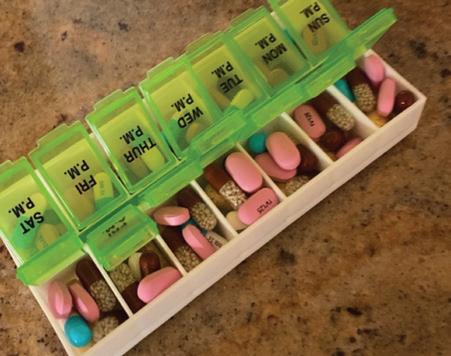




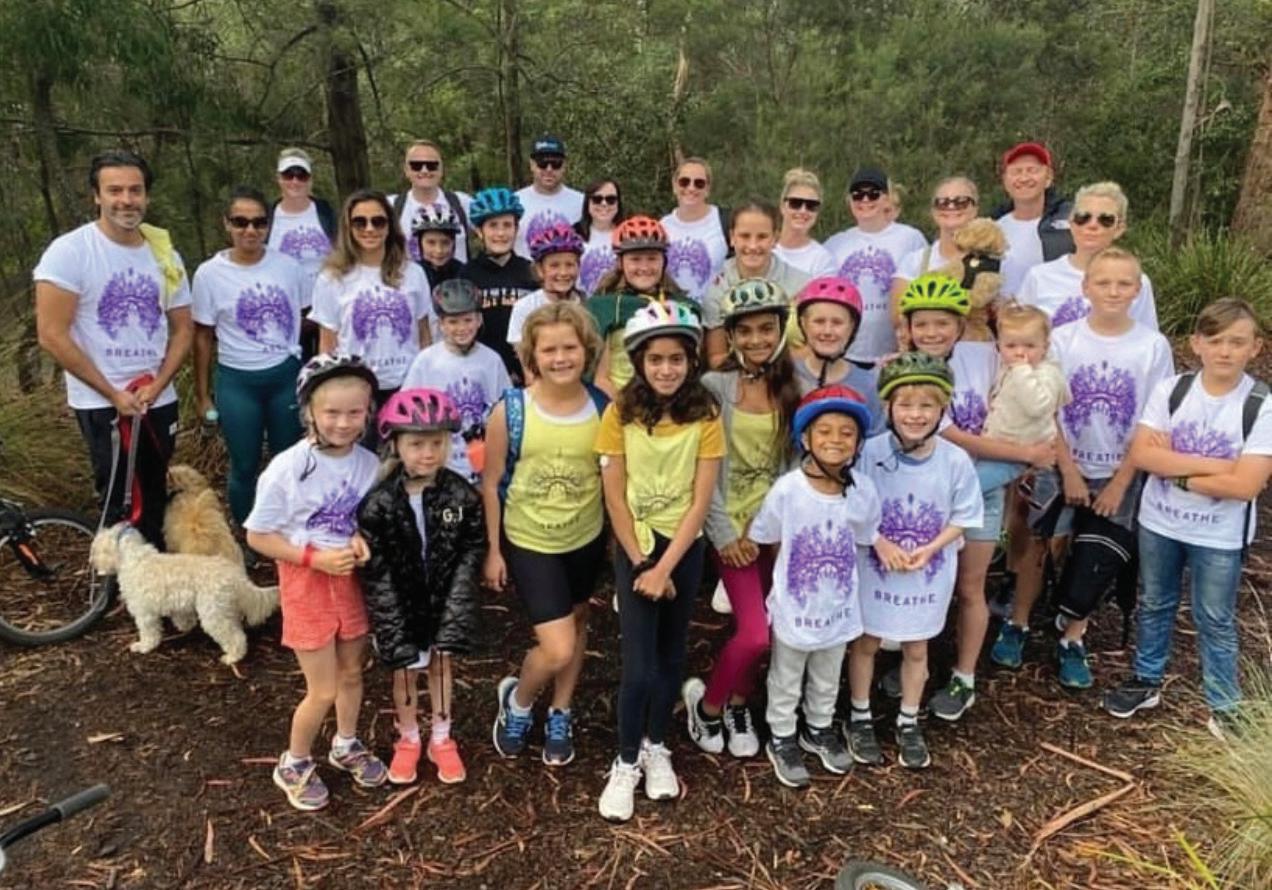
Trikafta was adding years to people’s lives. We NEEDED this drug!! My husband and I decided to sell everything we had to purchase Trikafta. The cost would be $US300,000 for just a year’s supply.

Amazingly, with a little luck and the phenomenal CF clinic at the Monash Children’s Hospital on our side, we were granted access to Trikafta on compassionate grounds, which meant we were given it for free.

March 26, 2021, was the best day of my life. In the midst of a global pandemic, I

was the happiest I have ever been. Meesha started Trikafta!! Aside from her body going through a purge for a few weeks, the effects were almost instantaneous. Meesha gained a kilogram in a week, she stopped coughing, her lung function increased, and she started eating food. It was incredible.
Meesha took her first deep breath a few months later which brought tears to my eyes! It’s something we take for granted every single day, but she had never experienced it.
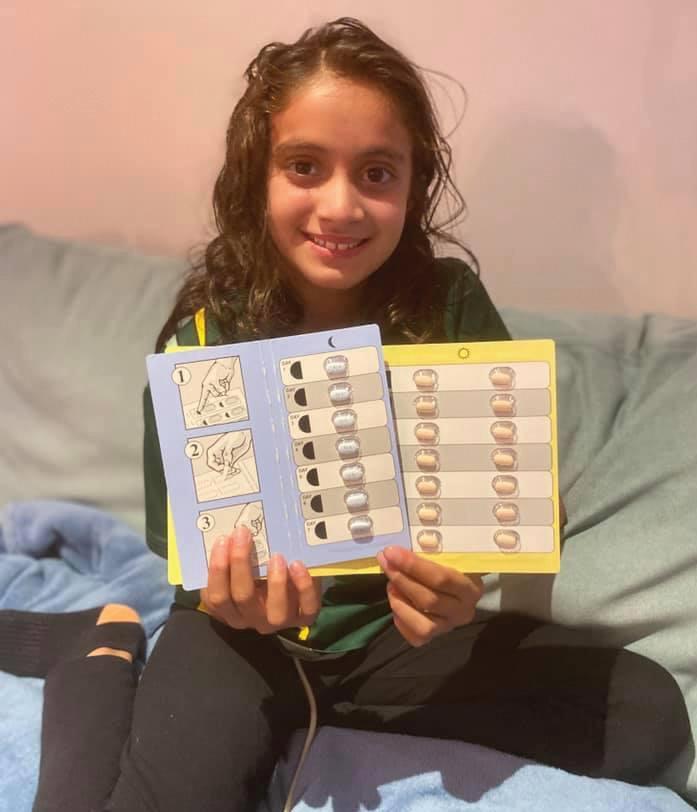
Meesha’s transformation has been nothing short of miraculous − the difference between life and death. I am truly thankful and appreciative for researchers, scientists and doctors who have all played their role in CF. Without them, I would not have my baby girl.

If you would like to follow Meesha’s story, you can join her Facebook Group - My journey on Trikafta.
By Sonalee Ghelani
“Meesha took her first deep breath a few months later which brought tears to my eyes! It’s something we take for granted every single day, but she had never experienced it.”
Much-loved, Meesha’s local community supported her every step of the way.
ISSUE 33 SUMMER 2022 29 MY STORY
Joy! First doses of Trikafta.
Independence and joy
FRANCESCO IS LOVING HIS NEW TRICYCLE
No matter your needs, Dejay has a trike to suit
Fun and fitness are combining perfectly for Francesco Squillacioti, who has started exploring his local area on a tricycle from Dejay Medical.
Francesco received a Theraplay IMP tricycle in February and his family is overjoyed by the new level of independence the equipment has given him in less than 10 months.
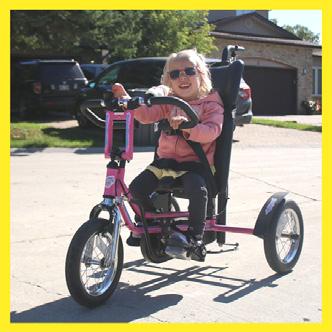

The four-year-old from southern Sydney has a number of physical challenges. He suffered a brain injury at birth and has quadriplegic cerebral palsy, global developmental delay, cortical vision impairment and epilepsy.
While Francesco already enjoyed moving around and dancing to The Wiggles in a walker, and loves to participate in Frame Football, the IMP tricycle has given the family more flexibility when it comes to outdoor activities.
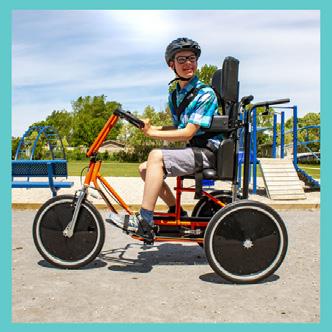
His mum, Caterina, says it’s been a fantastic piece of equipment and would highly recommend it.

“I had lengthy discussions with Francesco’s physiotherapist about the benefits including increasing his
cardiovascular fitness, improving motor planning and increasing his overall strength,” Caterina says.
“We are really starting to see those benefits now as he initiates peddling, which he couldn't do prior.”
Francesco rides his tricycle every day (when the weather permits), spending time enjoying their neighbourhood or the local cafe. Given the local park is beckoning as the summer months approach, Francesco is expecting to enjoy
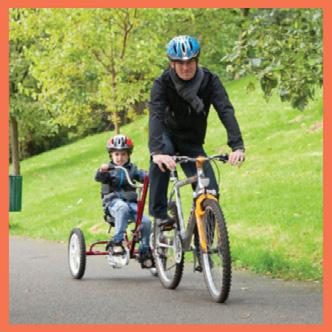
amount of support for Francesco, which is super important he always feels very supported in it without it looking and feeling clunky.”
The IMP is the smallest tricycle in the Theraplay range and is suitable for children aged from two-and-a-halfyears-old. It has a low gear ratio for easier pedalling, and small diameter handlebars for little fingers to operate. A wide range of support options are available to cater for all children.
more outdoor freedom alongside his oneyear-old sister, Elena.
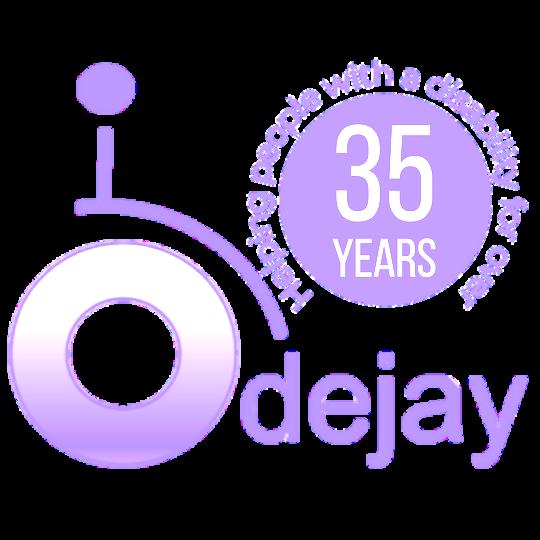
““The physical benefits are great, but he also has so much fun,” Caterina says. “We really enjoy witnessing Francesco participate in age-appropriate activities that give him a sense of independence and joy that no other item of equipment has done for him thus far.
“It’s been great — it has the best
When Francesco outgrows the IMP he can transition to the Terrier Tricycle — an easy to pedal cycle designed for younger riders. It is constructed from a strong, yet lightweight frame that will fold for easy transport to take on new adventures. With the “Hitch” option (which hooks on to another bike, for example a parent’s bike), Francesco will be able to ride for longer journeys with family and friends.
Dejay Medical’s Steve Andrew says the Theraplay range is versatile and extremely popular.
"We are helping many families like Francesco and Caterina explore their local parks with this range of tricycles,” Steve says.
“The physical benefits are great, but he also has so much fun.”
30 SOURCEKIDS.COM.AU
“Theraplay tricycles are unique in that they have a folding frame, making them easy to transport to explore new places, take on holidays and to ride with your friends.”
Theraplay is the U.K.'s longest established manufacturer of cycles for riders with additional support needs. With more than 40 years of manufacturing expertise, and with over 40,000 assessments completed over that time, they have developed a range of 20 models with many positioning accessories and gear options which allow each cycle to be created specifically for the needs of individual riders.
The Theraplay range is just one option provided by the team at Dejay Medical, a locally-owned business that supplies innovative and practical equipment including customised wheelchairs, handcrafted in Sydney, standing and walking solutions plus many more products to help families.

“Dejay has a wide range of tricycles to suit everyone’s particular needs,” Steve says.
“We offer everything from moderate to complex support needs, self-propel or power-assisted solutions, so if you live in a hilly area, the power option can help you make it home!”
A free trial of Dejay products can be organised by emailing therapy@dejay.com.au
The full range of tricycles and recreational equipment can be seen at dejay.com.au/ product-category/bikes-and-trikes
recreational equipment to meet your needs Helping you achieve your goals for over 35 years www.dejay.com.au 02 9838 8869 therapy@dejay.com.au
ADVERTORIAL ISSUE 33 SUMMER 2022 31
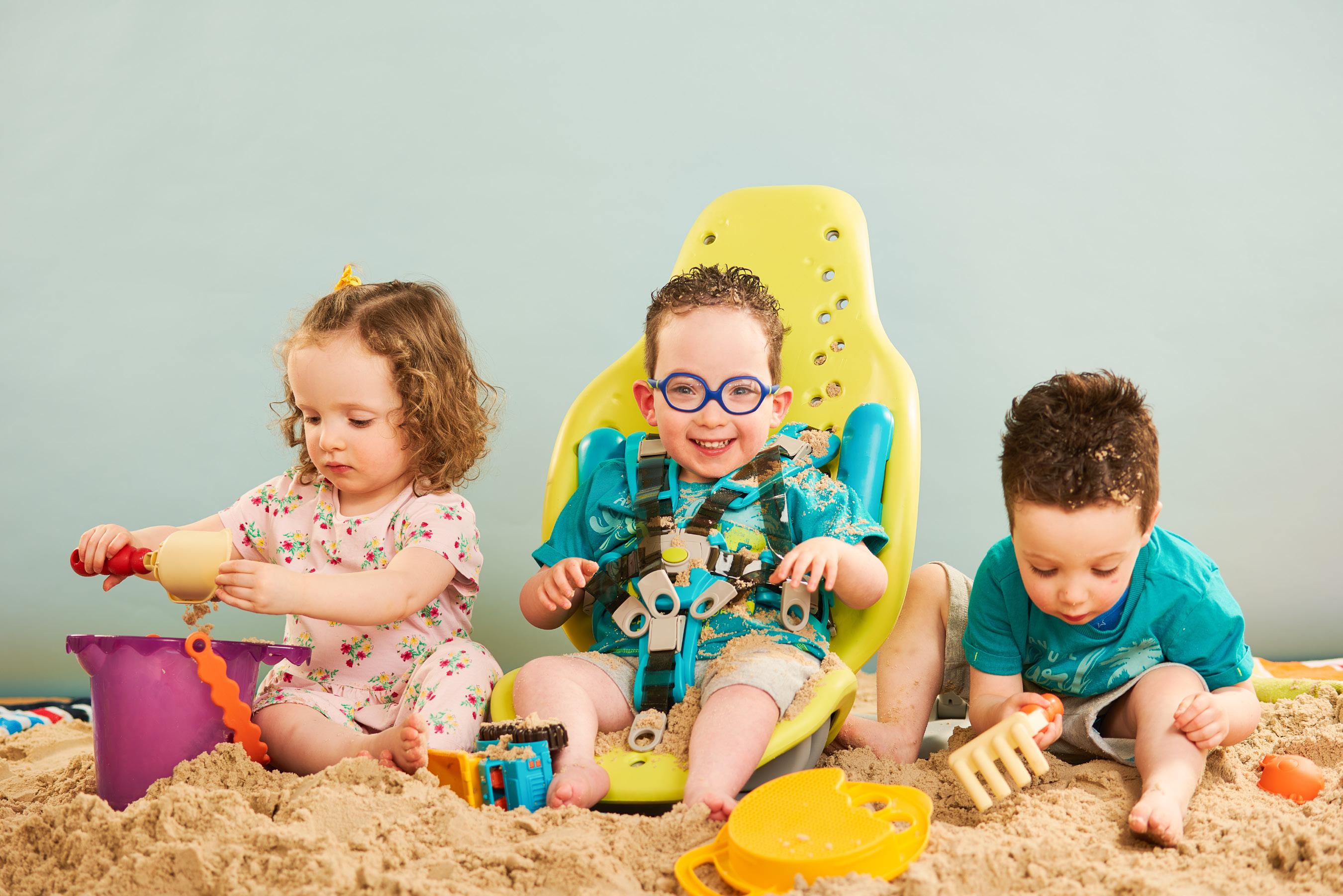
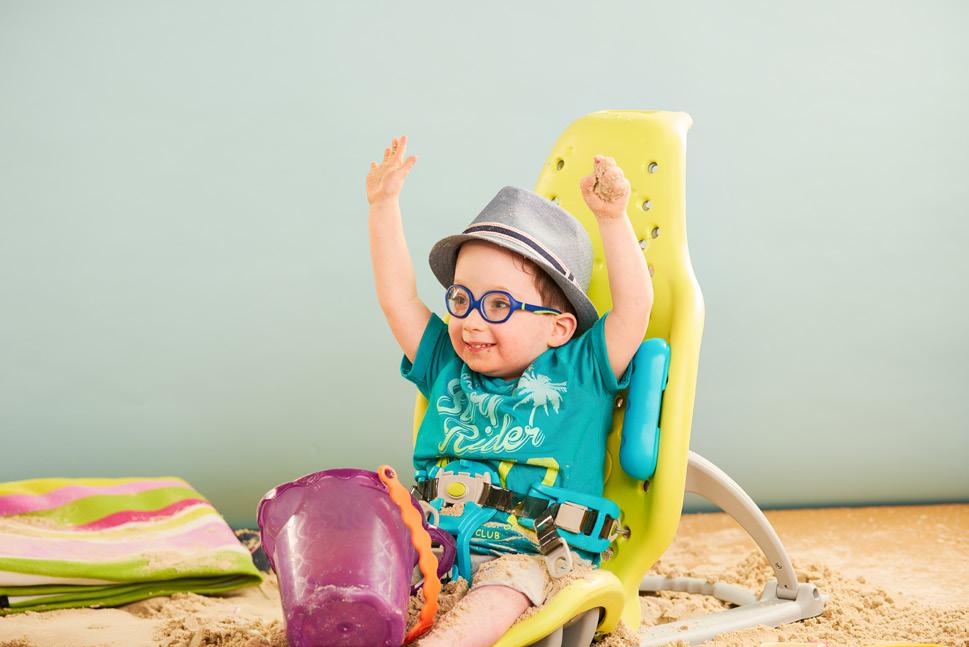

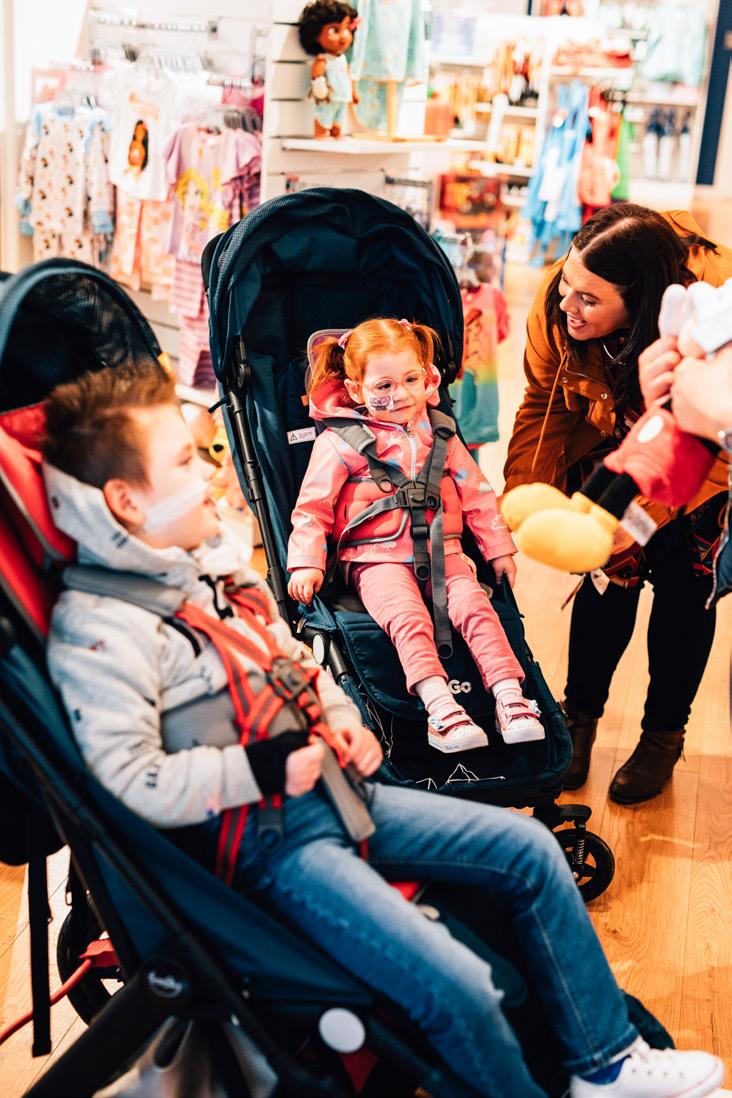
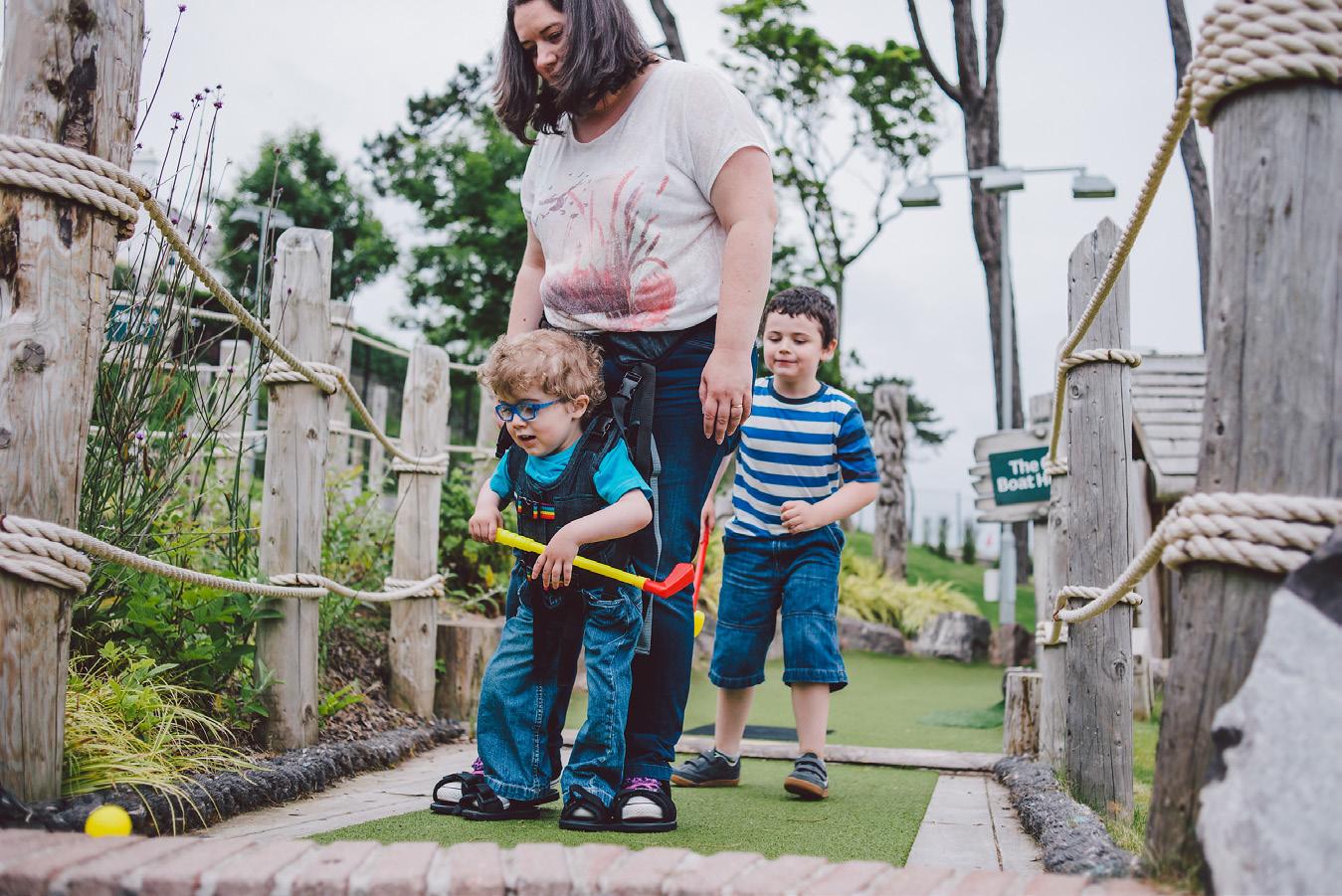
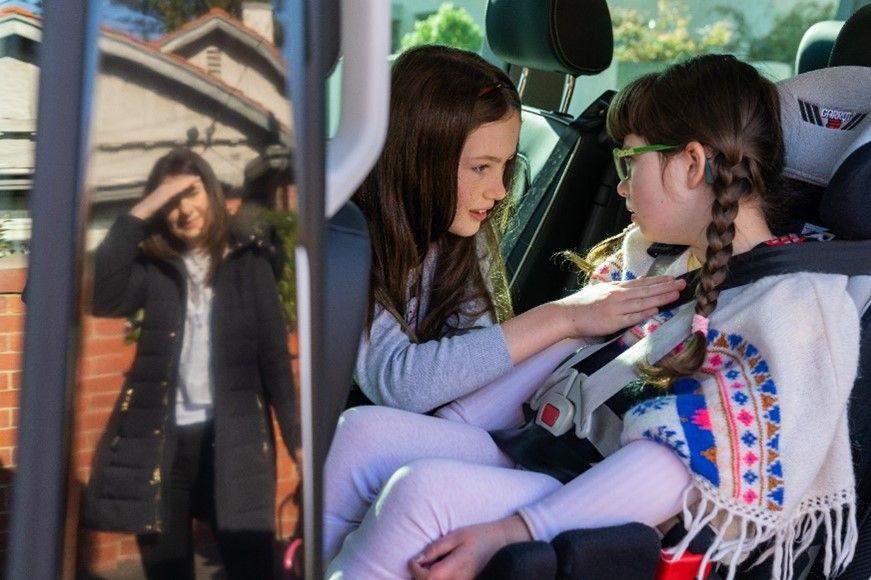
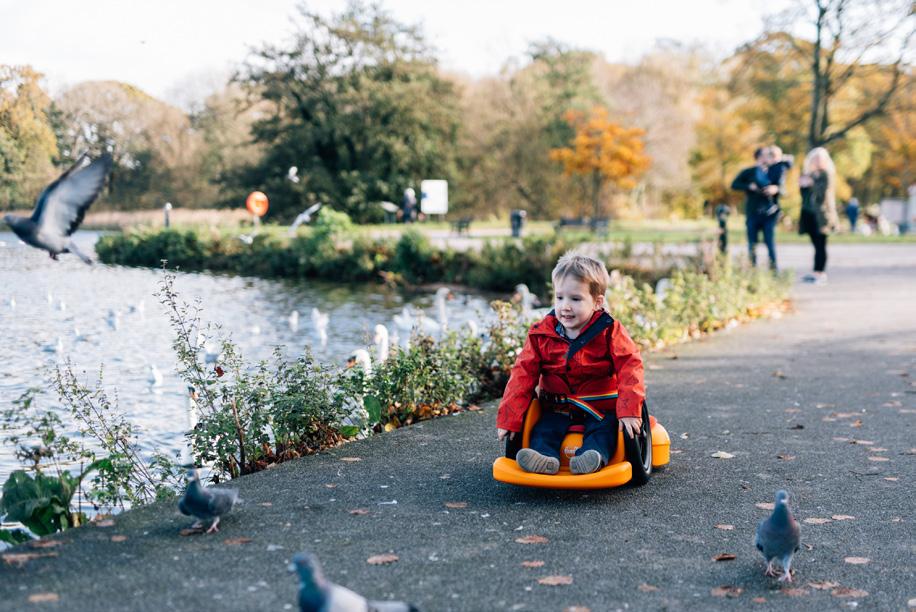
AREYOU SUMMER READY? Beach Shopping Road trips Family fun REHAB EQUIPMENT, TAILORED FOR YOUR LIFE. Picnics Victoria’s leading AT equipment provider, working to help you Live Life! Ph: 03 5441 8966 | E: support@activerehab.net.au | www.activerehab.net.au Exploring
That feeling of real connection
When your Support Worker is someone you know and trust When they feel like part of the family
When you think your child likes them more than you
Did you know that you can directly employ people you know and trust as your Support Workers?
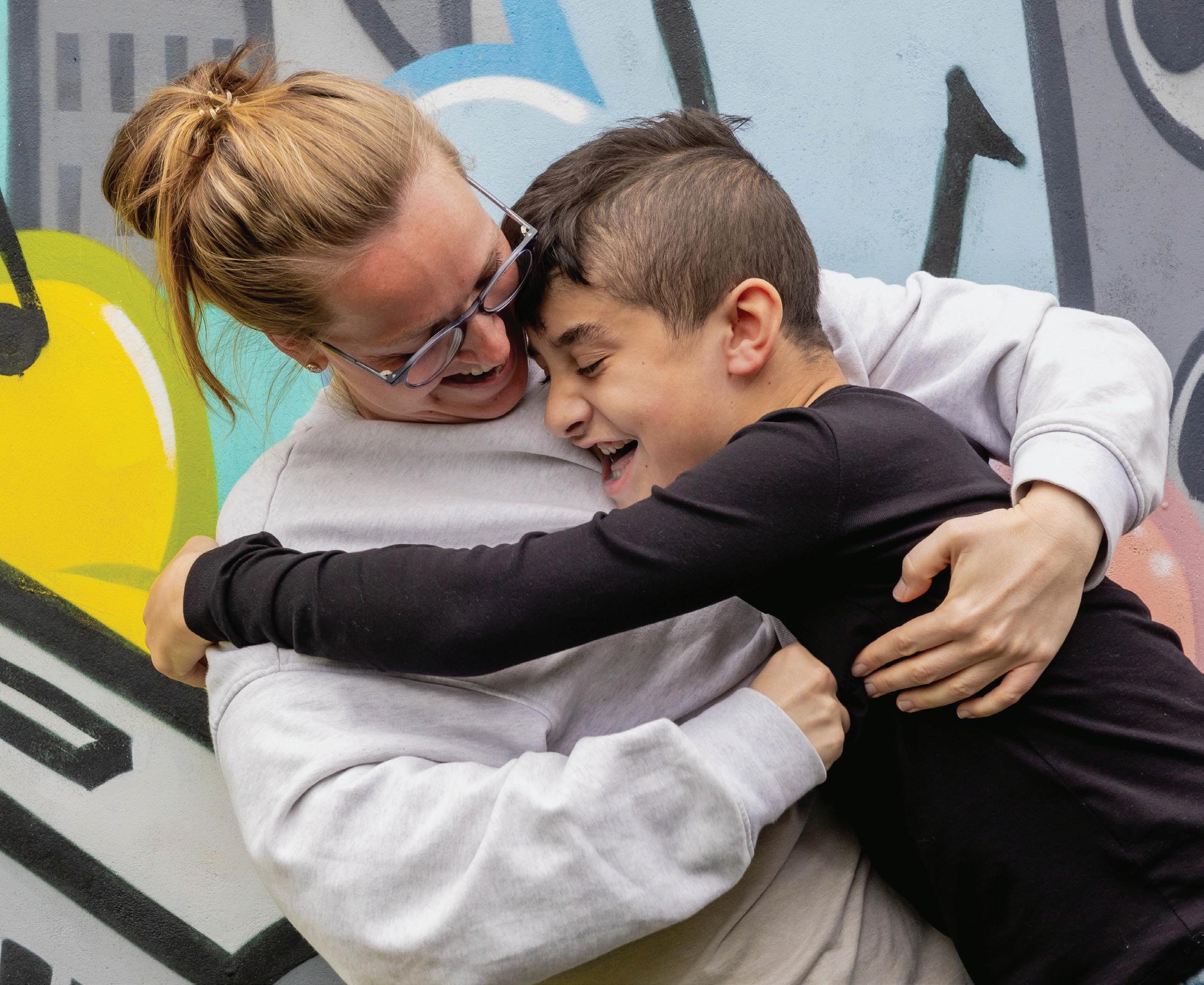

Through our one-of-a-kind service you choose who you really want and on your terms. We take care of the tricky stuff, so you can focus on what matters most.
To find out more, give us a call.
1300 729 839 CarerSolutions.com.au
Anouk & Archer
YOUR TIPS FOR MAKING HOLIDAYS A SUCCESS
Taking (some of) the stress out of travelling
Holidays can be a doubleedged sword. You want the break from routine and a chance to have quality family time together, but being out of routine, and having uninterrupted family time with no support or breaks, can sometimes make things even more stressful. Thankfully, us parents are a resourceful lot. Here are some of your best tips for making holidays a semirelaxing time for everyone!
tip
“A change of clothes for everyone when travelling. You never know what spills, or bodily fluids may necessitate a change. And no one wants to be stuck in a stinky, wet shirt for hours. We also take our own food on the plane.”
TIP “My daughter has CF and I always take a medical letter from her clinic that lists all her medications, doses and devices in case we get questioned while flying. I take extra medication and take the most important ones in my hand luggage. When travelling by plane, I wipe down tray tables, arm rests, screens – everything! I download Netflix shows so the kids can watch without wi-fi. Oh, and I also have a few vomit bags handy.”
TIP “Remember that on an aeroplane, everyone there has headphones. If they don’t like the noise your child is making, they can turn their headphones up. This made such a huge difference to me in feeling the need to apologise to other passengers for bringing any child on a plane, let alone one who could be making all kinds of noises involuntarily.”
TIP “I take my daughter’s fitted sheet off her bed the morning we leave home. Then pop it on her bed in our holiday accommodation so it feels/smells/looks the same as home. Might be an overkill but sleep is a big challenge for her, so I’ll do anything to help the situation.”
TIP “I always buy my child a new toy for when we go on a long car trip or flight. It keeps them entertained and is worth the money for the peace and quiet!”
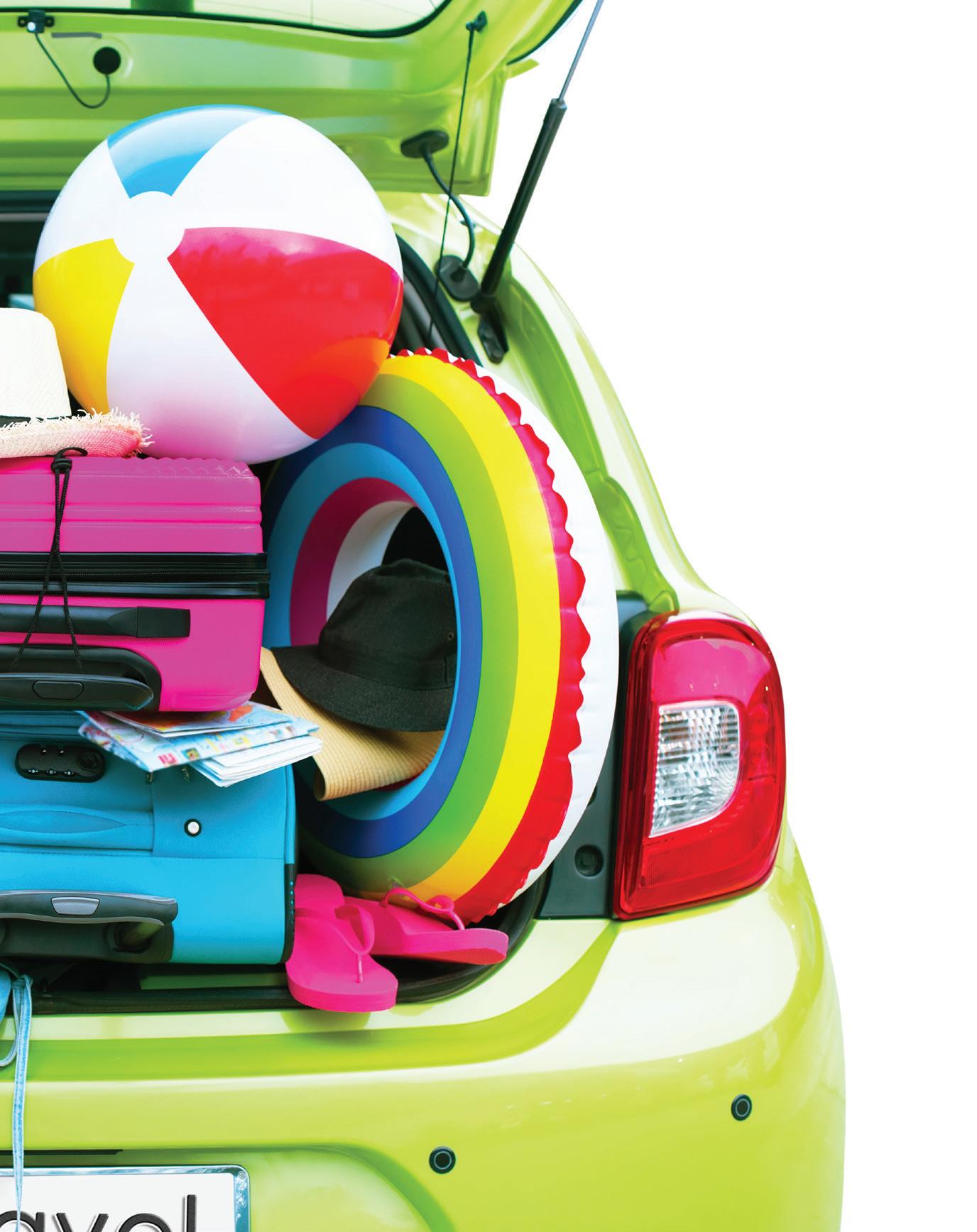
TIP “Planning, planning, planning! Autistic (PDA profile) needs plenty of preparation – needs to know where and how. In addition to this, when flying, a lounge pass is invaluable. We get to the airport early so there’s no rush. We get to the lounge ASAP, move to the gate, and then stand apart from the crowds. One of us speaks to the attendant on the gate, and we usually ask to board early. We get him on the plane ahead of everyone else, sit him by a window with iPad and headphones and once he’s settled, the crowds don’t agitate his anxiety.”
tip
“Take your own comfortable headphones - plane ones may not suit sensory sensitive travellers. I ask for a cup of ice cubes on the plane - if nerves set in, agitation etc then chewing and sucking on them helps my ASD, ADHD kids.

Also helps ears during take-off and landing.”

34 SOURCEKIDS.COM.AU
TIP “Pack rechargeable batteries and a screwdriver. Every parent should be issued with a pack of rechargeable AAA, AA, C and D batteries when their child is born. It should come as a pack in the hospital!! The best thing we ever did was buy rechargeable batteries and a variety charging pack, not only is it better for the environment, but it saves so much money. We take our charger everywhere we go and don’t forget to pack a mini screwdriver as well for those annoying battery covers (just don’t put the screwdriver in your hand luggage!).
overnight on the way down, where we stay in Sydney, who will be there, what we are doing there, the cabin for the way home. It helps all our kids actually…”
them. You can be ultra-organised and do it by day of the week, so an entire outfit for each day goes into one bag, or put all t-shirts in one bag, undies in another… Then keep a large bag for washing. It will help your child or young adult feel calmer and more organised, and offers them independence to dress themselves, without exploding their suitcase every time.”
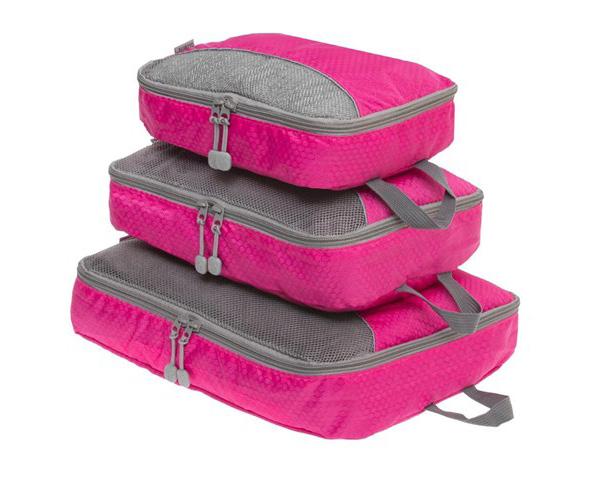 By Rebekah Devlin
By Rebekah Devlin
The kids are in control of

TIP “Talk to your accommodation operator when booking. If you’re in a caravan park, perhaps there is a spot that is a bit quieter, or closer to the toilet facilities. Many hotels will have accessible rooms, or can put you in a room away from the noise of the lift or restaurant, and where any potential noise you make won’t upset other guests. Communication is always key and most places are only too happy to help when you explain your needs. Just have these conversations early, so they can reserve appropriate rooms, rather than waiting until check-in, as there may not be any alternatives they can offer you in busy periods.”
MAKE YOURSELF MORE VISIBLE
One in five Australians has a disability and 80 - 90 per cent of these disabilities are ‘invisible’, meaning that people can’t tell someone has a disability by looking at them. Thanks to the work of Autism Spectrum Australia (Aspect), Hidden Disability Sunflower Lanyards are recognised at all major Australian airports as well as an ever-growing list of organisations across the country including Transport NSW, Yarra Trams, Melbourne Cricket Ground and Sydney Gay and Lesbian Mardi Gras. The Sydney Royal Easter Show has them available in its Quiet Room, while Transport NSW and Yarra Trams will have them at key stations and locations. Contact Aspect or your local airport for more information on how to get one. hiddendisabilitiesshop.com.au or autismspectrum.org.au
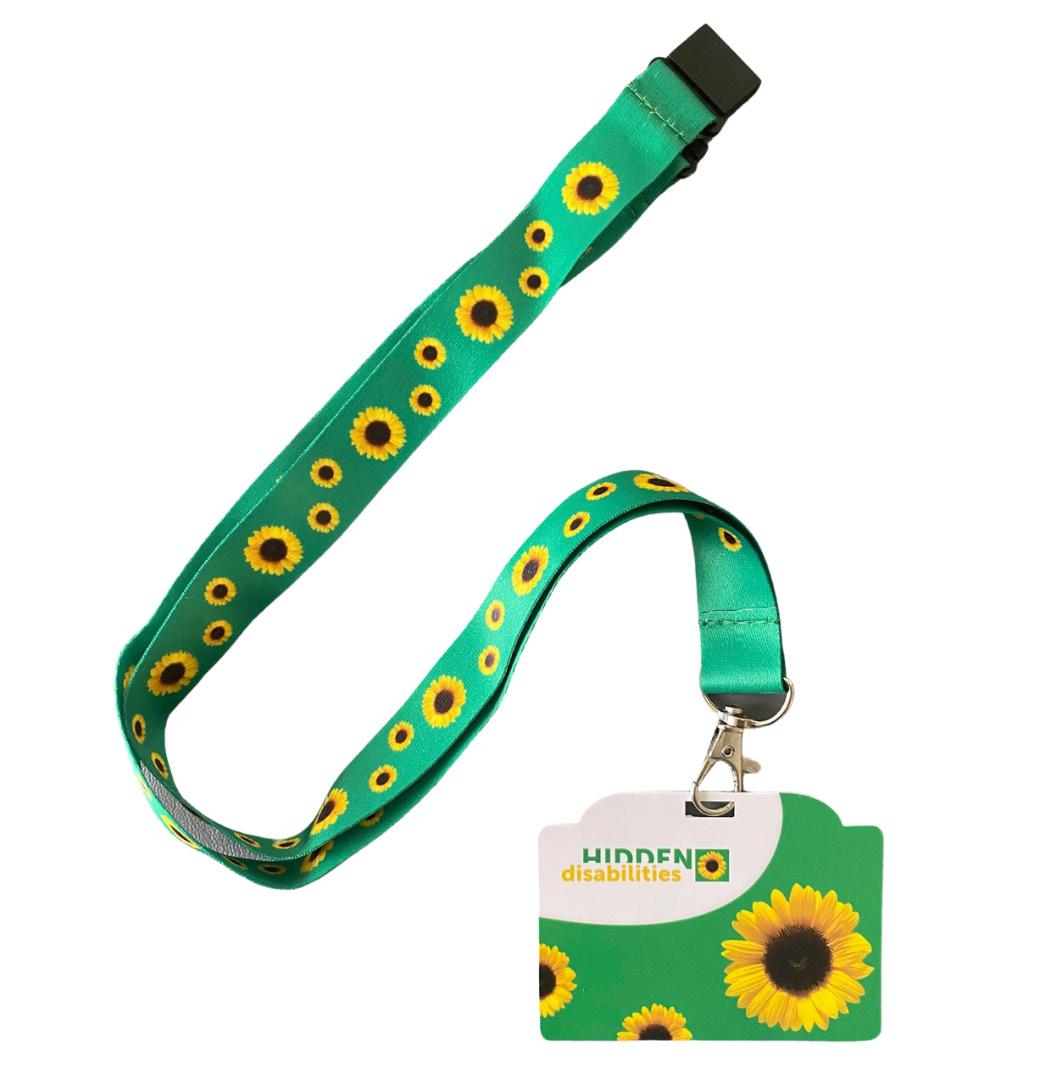
ISSUE 33 SUMMER 2022 35 TRAVEL TIPS

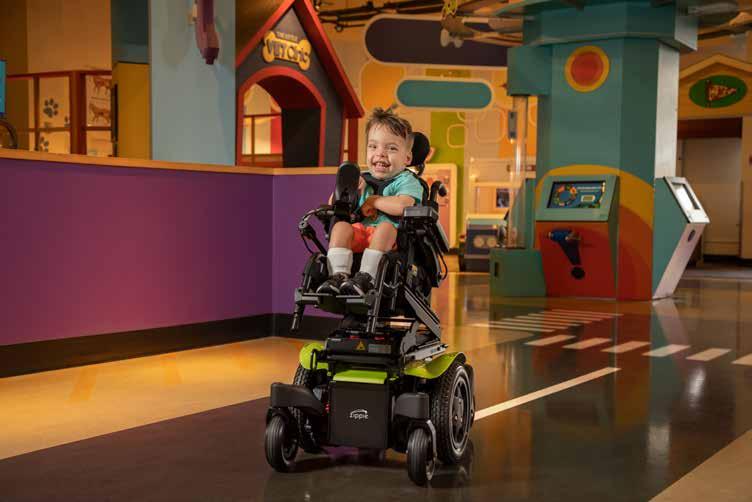
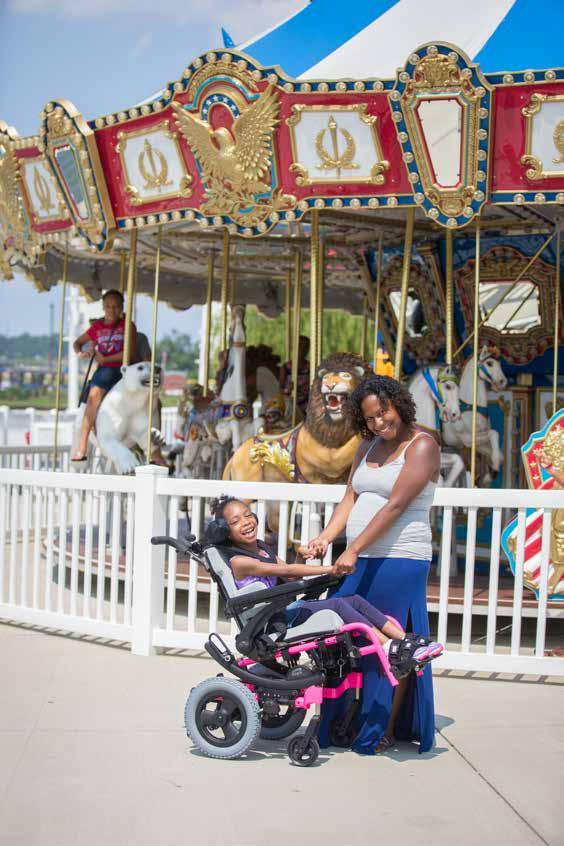
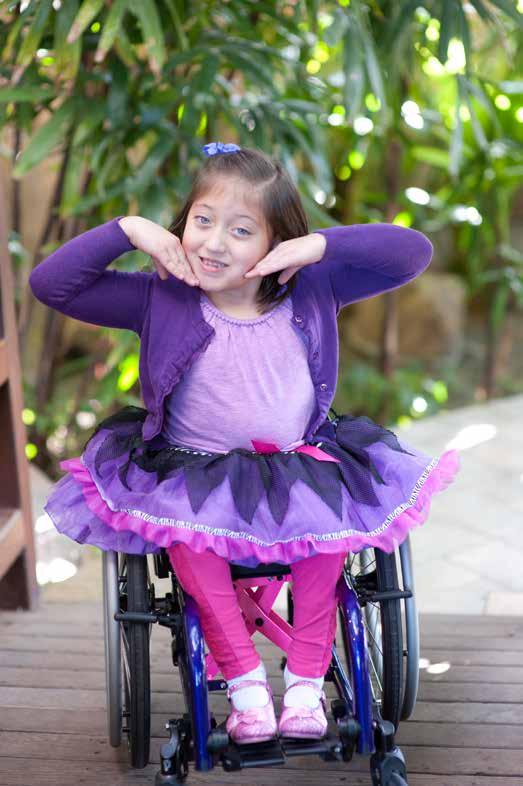

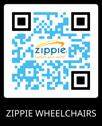

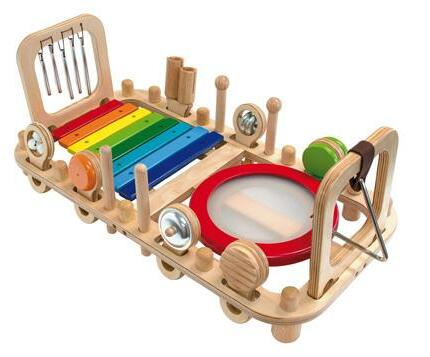
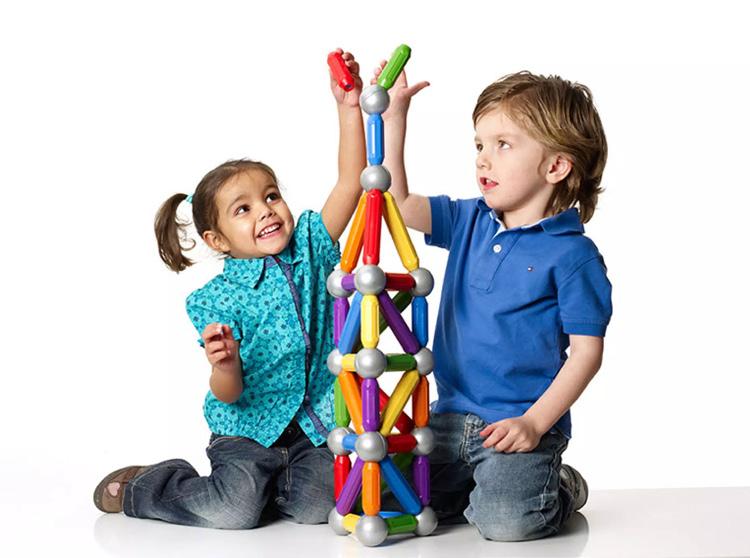
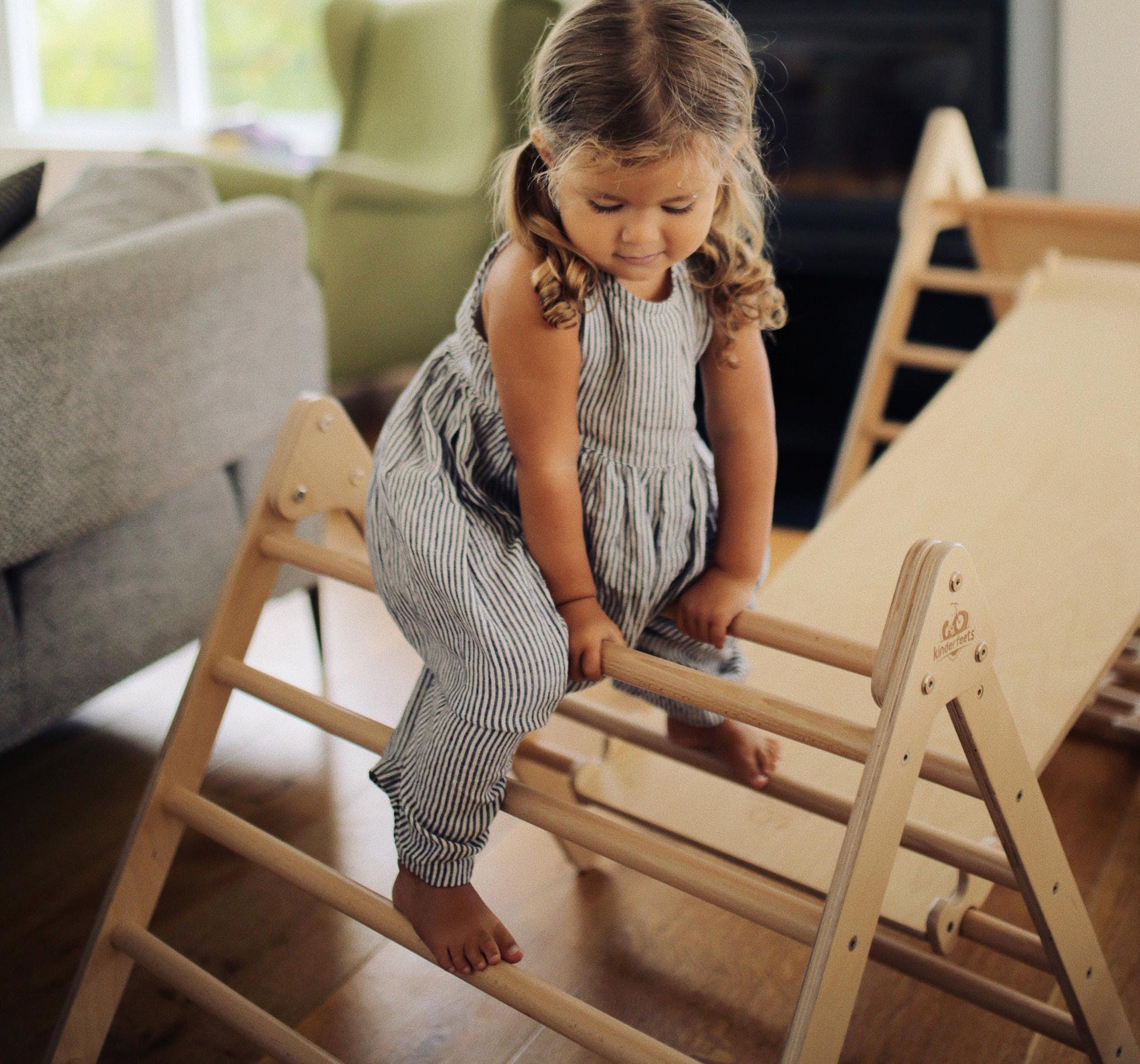


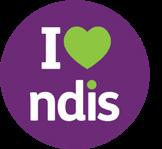
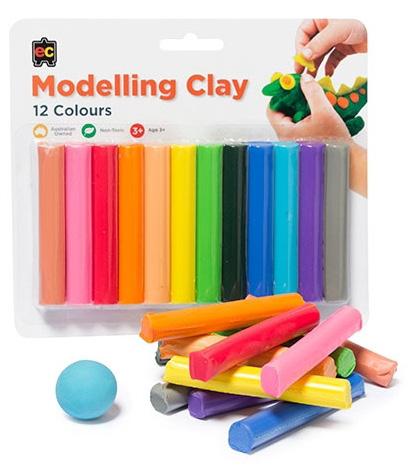
Summer Fun & Holiday Adventures Get Out There! GET 15% OFF, USE DISCOUNT CODE: SKID15 ndis@rainbowfun.com.au @rainbowfunaustralia Sensory Toys Therapy Toys Educational Toys Games & Puzzles Arts & Craft Kits Pretend Play Creative Play for Growing Minds! 36 SOURCEKIDS.COM.AU
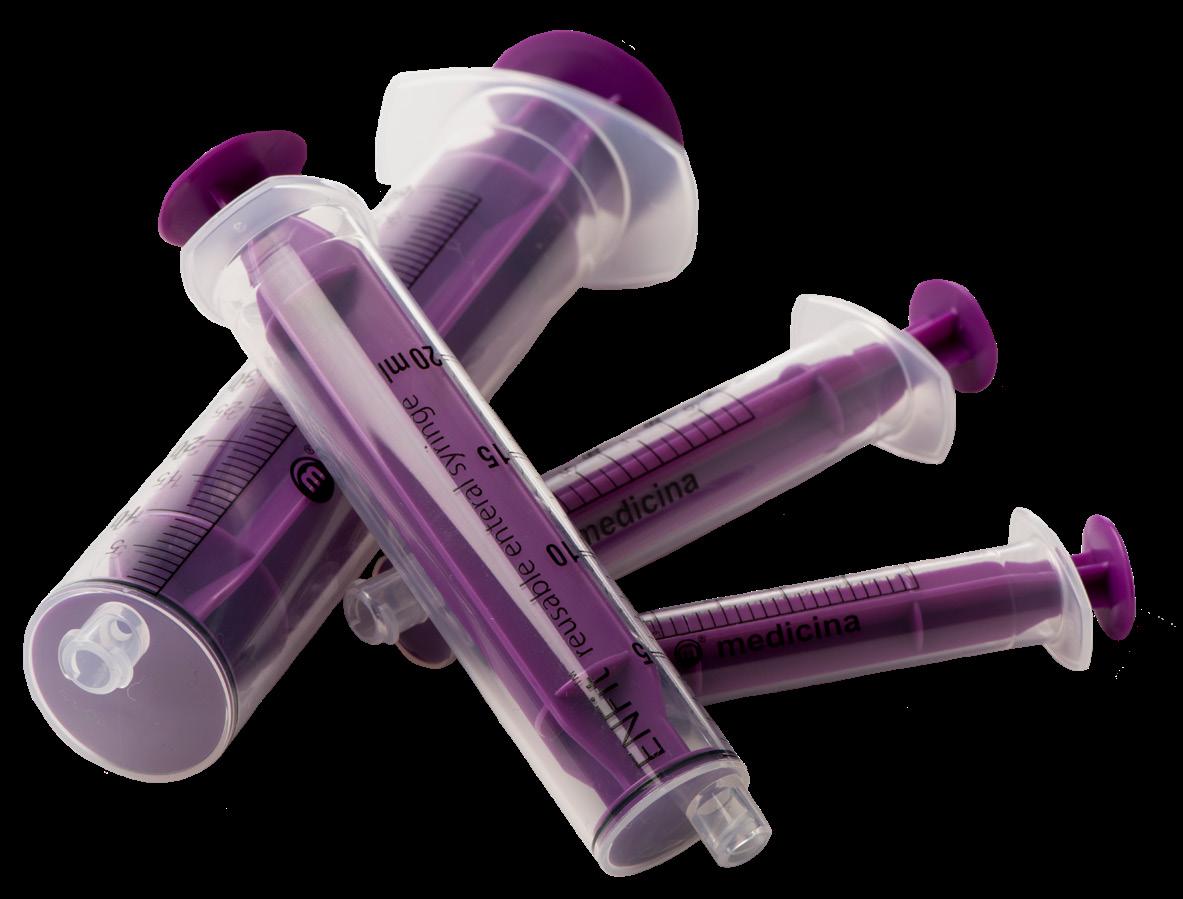
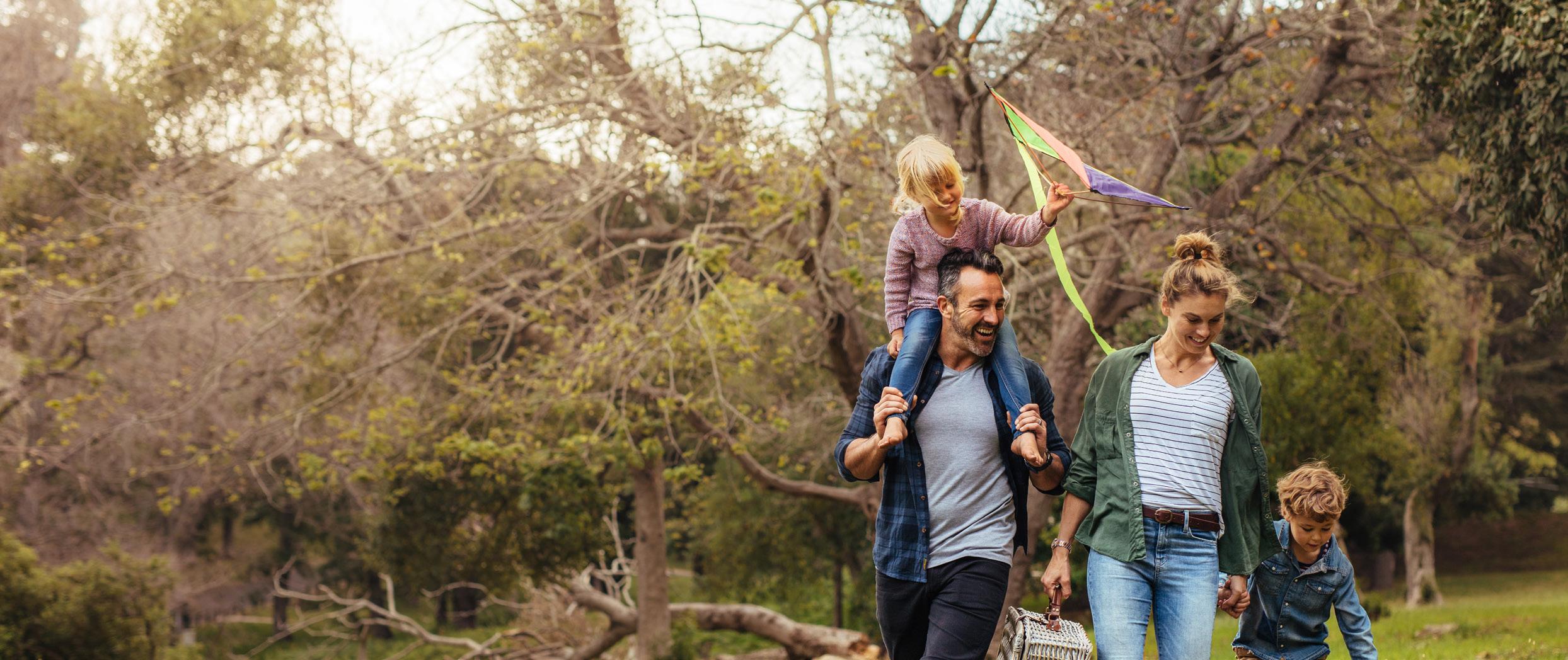

The ENFit Reusable range of enteral syringes has been developed to deliver enteral feeds, medicines and flushes safely to neonatal, paediatric and adult patients at home. Enhancing patient safety Features Reusable/Washable Individually packaged Customer support Clear measurement markings ✓ ✓ ✓ For more information on the Medicina range, please contact us on (02) 9882 3666 or at amsl@amsl.com.au amsl.com.au Australasian Medical and Scientific Ltd. 2 McCabe Place, Chatswood, NSW 2097. Reusable Syringes ENFit ✓ ALWAYS READ THE LABEL AND FOLLOW DIRECTIONS FOR USE. Consult your healthcare professional to see which product is right for you. AMSL is a subsidiary of Dexcom
ADHD Spotlight on
ADHD
brain development and brain activity that is marked by attention differences, self-control and impulsivity. Although it is highly heritable and genetically linked, it's diagnosed according to behavioural symptoms of hyperactivity and impulsivity. The predominant presentation of ADHD is combined type, that is, where people presents with both hyperactive and inattentive symptoms. However, there are two other subtypes, which is ADHD –hyperactive type, and ADHD – inattentive type. It persists into adulthood in 80 per cent of cases and can affect a child at school, at home, in friendships, work and relationships.
Who can diagnose ADHD?
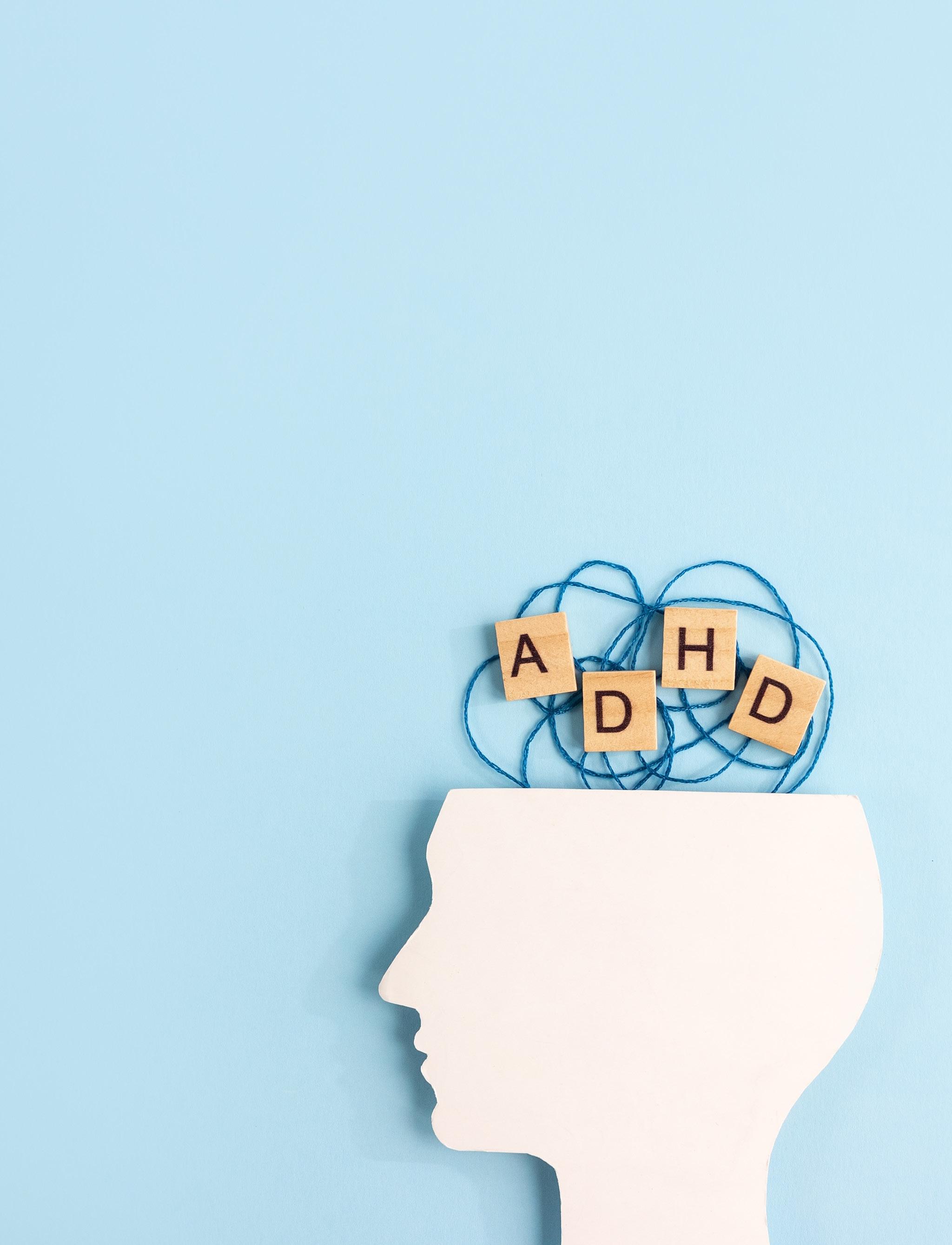
In childhood, a paediatrician or child and adolescent psychiatrist can diagnose (may be supported by assessment from a psychologist). In adulthood, either a psychiatrist or psychologist can diagnose.
Our brains and nervous system are made of cells, called neurons. Neurons communicate with each other by releasing chemicals, called neurotransmitters, which pass between the neurons via synapses (the small gaps between neurons). The neurotransmitter is taken up into the next neuron by attaching to a receptor, kind of like a key (the neurotransmitter) and a lock (the receptor). Once neurotransmitters are released, any excess is reabsorbed by the neurons.
Dopamine is a neurotransmitter that helps to regulate attention, executive function and movement. It is thought that in individuals with ADHD, the dopamine

Stimulant medications get a bad rap. Is this fair? How do they work and what is their benefit?
Once dismissed as a behavioural issue affecting young boys, ADHD is becoming part of the national conversation. But there are still so many misconceptions about the neurodivergent brain and the need for support, says Dr Beth Johnson.
“ADHD affects more than 800,000 Australians with an estimated social and economic impact of more than $20 billion a yearfinancial costs of $12.83 billion and wellbeing losses of $7.59 billion”
Deloitte Access Economics report The Social and Economic Costs of ADHD in
Australia
38 SOURCEKIDS.COM.AU
systems are affected: e.g. dopamine might be produced in lower amounts, the receptors don't bind dopamine so well, or dopamine is reabsorbed too quickly. Stimulants work by making dopamine available at the synapse for a longer period of time (slows reabsorption of dopamine). It's important to note that stimulant medication, and other ADHD medications don't cure ADHD, they just reduce symptoms.
Stimulants are an effective support for many individuals with ADHD, their tolerability has been evaluated for several decades. They're non-addictive, relatively short acting (12 hours), and the impacts of the stimulants can be seen rapidly (within hours to days). If tolerability is poor, then it's safe to withdraw.. Also, the impacts of non-treatment must also be balanced, where adolescents or adults may selfmedicate through alcohol, addictive stimulants (ice, meth, cocaine) or cigarettes/nicotine.
Children with ADHD are often labelled as “naughty”. What kind of impacts can this have on their mental health and self-esteem?
Poor academic achievement, social rejection and isolation, has a cyclic impact (the more they are socially excluded and rejected, the fewer opportunities they have for building positive and sustaining relationships... and so it cycles), which can progress to development of anti-social behaviour, anxiety, perfectionism, withdrawal.
What can schools do to create a more inclusive, understanding and engaging learning environment for neurodivergent kids?
Firstly, education for neurodivergent kids and how it presents in the classroom is key — that these kids aren't interrupting or fidgeting because they want to be naughty or to intentionally cause trouble.
They can't help being distracted by the sounds outside. They're not being intentionally lazy, attention seeking, manipulative or pushy. The work of Ross Greene (author of The Explosive Child and Lost at School ) and programs like the Westmeade Feelings Program have really helped to break down stigmas and help teachers identify the specific lagging skills that children might be experiencing. Examples of lagging skills might be flexibility/adaptability, tolerance for frustration, approaching something new, problem solving. By understanding that the behaviour is an outcome of an underlying skill that the child lacks, breaking down the skill to help them learn and solve the problems, and working collaboratively with the child to help them identify their feelings and identify when struggles routinely occur and how to best help during those times, we can begin to develop a tailored approach for neurodivergent kids.
ADHD has been gaining media attention recently thanks to people like Em Rusciano. How important are these role models in breaking down stereotypes?
It's such a relief to see, particularly as a pathway to self-compassion and help seeking. Regardless of the number of people who actually go on to receive an ADHD diagnosis, it's so heartening to see these difficulties as just another part of the human condition, just like we view anxiety or depression, and that these are things that we can seek help for when they begin to impact on our daily functioning and relationships.
Dr Beth Johnson is Lead Investigator: Monash Autism/ADHD Genetics and Neurodevelopment (MAGNET) project, Turner Institute for Brain and Mental Health.
By Rebekah Devlin
Some key characteristics of ADHD are:
✓ BORED EASY.
✓ NEED LOTS OF THINGS TO DO WHICH BURN ENERGY.
✓ EASY TO BECOME EXPLOSIVE, NOT EASY TO CALM DOWN.
✓ UNLIKELY TO WANT TO FOCUS ON HARD WORK, PREFER EASY REWARD.
✓ NEED SHORTER TASKS WHICH ARE ENJOYABLE.
✓ FOCUS ON FUN THINGS, MINIMISE ANY FOCUS ON WORK.
✓ THE ‘HARD YARDS’ ARE NOT APPRECIATED BY AN ADHD BRAIN MOSTLY; THEY ARE AVOIDED AND DREADED.
✓ VERY HEDONISTIC IN NATURE.
✓ CALMS DOWN ONLY VIA DISTRACTION – NEVER THROUGH CONVERSATION OR ATTEMPTS TO ‘DIFFUSE’.
-----
By Tara Kent
ISSUE 33 SUMMER 2022 39 ADHD
MYTH | ADHD isn't a real disorder, it's just a by-product of busy lives and too much technology.
FACT | It's a condition that has been documented since the 1800s, well before our technological advances, smart phones and compulsory education.
MYTH | ADHD is something kids grow out of it.
FACT | 80 per cent of children go on to have ADHD in adulthood.
MYTH | ADHD is just an excuse for big pharma to sell medication to children.
FACT | No, medication is an effective support for many individuals with ADHD, young and old.
MYTH | People only want an ADHD diagnosis so they can legally access drugs.
FACT | Firstly, ADHD medications (stimulant and non-stimulant medications) are nonaddictive. Secondly, for someone with ADHD not accessing medication, they will be more likely to abuse illegal drugs that are addictive, such as nicotine, methamphetime and cocaine.
MYTH | ADHD is just a label to pathologise boisterous boys.
FACT | No, ADHD has many different presentations, it's present in all genders, and children only receive a diagnosis when their symptoms impact on their daily functioning and quality of life.
More action
“Children with ADHD require different parenting strategies and may not respond to traditional parenting techniques. Hyperactivity, risk taking, difficulty concentrating, and difficulty with motivation are symptoms of ADHD, and can't simply be disciplined away by the parent.”
- Dr Beth Johnson
MYTH | ADHD is just the result of poor parenting. Or, parents just want to medicate their kids so they can have their coffee in peace.
FACT | No, it's that children with ADHD require different parenting strategies and may not respond to traditional parenting techniques. Hyperactivity, risk taking, difficulty concentrating, and difficulty with motivation are symptoms of ADHD, and can't simply be disciplined away by the parent.

 By Dr Beth Johnson
By Dr Beth Johnson
*Common myths about ADHD needed on ADHD
There has been a concerted push by many in the ADHD and disability communities to have ADHD added to the NDIS as a primary condition. Minister for the NDIS, Bill Shorten, seemingly opened the door for this recently during a press conference, then very quickly slammed it shut the next day. “The scheme will not be broadened to include ADHD within this budget cycle” a spokesman said later. And so, the fight continues… By Rebekah Devlin
Plan managers Leap in! have
to say:
“On its own, ADHD is not usually covered by the NDIS because it can be hard to meet the NDIS eligibility criteria.
Eligibility is determined on a caseby-case basis rather than diagnosis. Your child must have a disability causing an impairment that:
Is permanent or likely to be permanent Results in substantially reduced capacity to undertake day-to-day activities
Affects their capacity for social or economic participation
Means they are likely to need lifelong support.
Where ADHD occurs alongside another condition such as an intellectual disability, the child may be more likely to obtain NDIS funding.”
My child has been diagnosed with ADHD. Are they eligible for the NDIS?
this
40 SOURCEKIDS.COM.AU ADHD
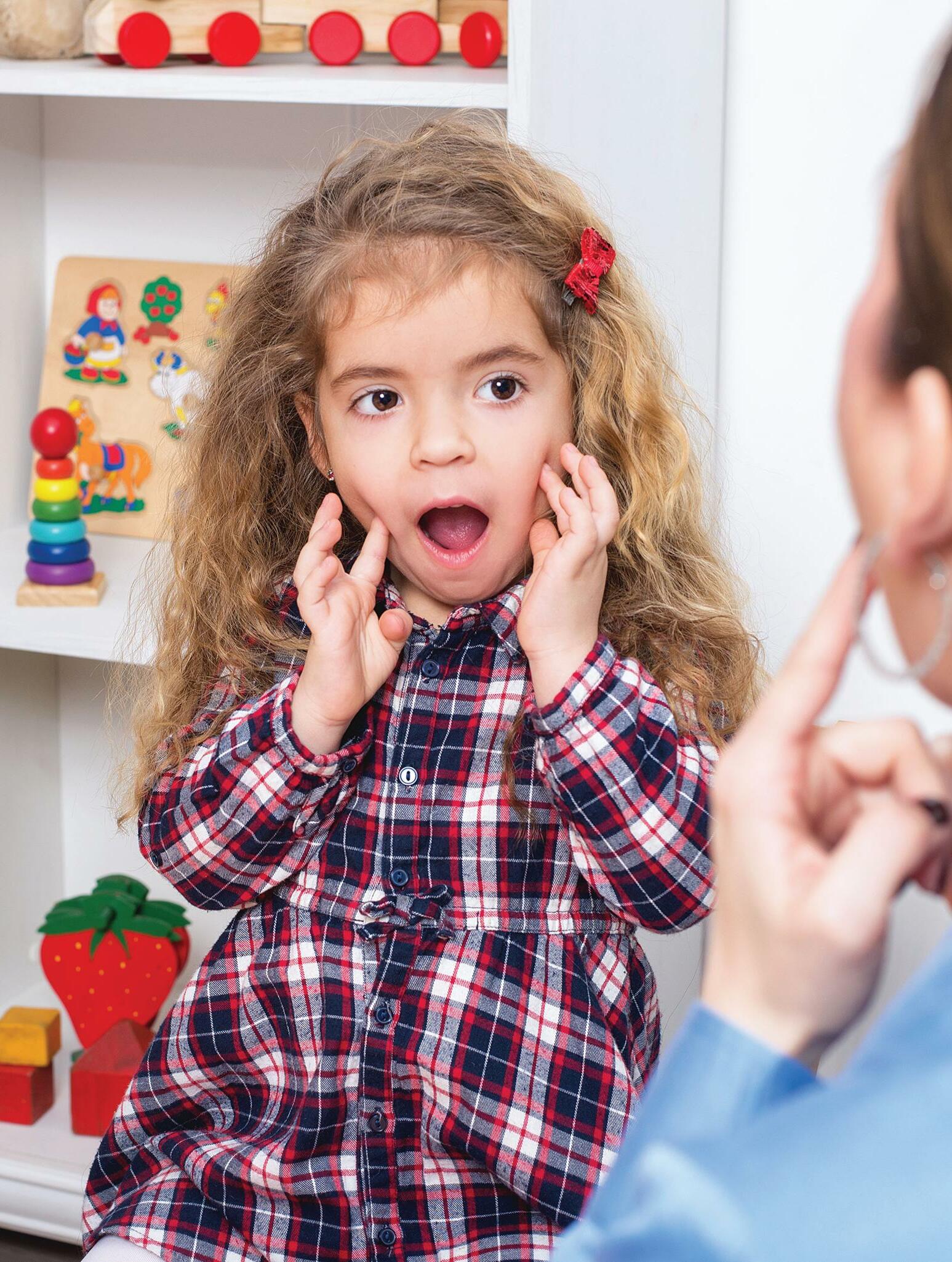
Learn more about our hassle-free approach to plan management www.myplanmanager.com.au | 1800 861 272 Looking for an NDIS plan manager? My Plan Manager takes the stress out of the NDIS • Quick three-step joining process • Invoices paid within three working days • Personalised support and local knowledge • Client and provider technology to track plan spending
THE BENEFITS OF ADHD

Any neurotype has its considerable benefits and perks. The ADHD brain can be quite brilliant and lead to wonderful success, a heightened ability to remain calm in difficult situations and amazing creativity, says Tara Kent.
Adapting YOUR APPROACH
1
| CALM DURING A CRISIS. When others are in a crisis, we can be cool, calm and under control. People with ADHD often pursue and excel at careers like ER doctor, nurse, police officer, journalist, athlete, or entertainer. In contrast, we may struggle to pay attention in calm situations; we need tips and tricks to help us stay on task.
2 | CREATIVE. One study showed that people with ADHD tend to be more creative than people without ADHD. For this reason, people with ADHD can also excel in creative careers. Just don’t forget that structure and organisation is important when following through on those creative ideas in order to see them to completion.
The best way to work with people who have ADHD is that they are seekers of enjoyable experiences and find quiet, still spaces, with expectations of socially regulated conduct to be terrifying. They often love rules that they can follow and can be staunch advocates for rules, once they know they exist and know they can follow them.

There is often boundless energy that exists with those who are ADHD, but this can be coupled with total exhaustion if they don’t acquire the sensory input they need, with the balance they require.
3
| INTUITIVE. ADHD brains often take longer to process sensory information (sights, sounds, etc.) than typical brains. While this may seem like a downside, it can actually mean we notice things that others don’t. In other words, we can think outside the box.
The best way to move forward and work with someone who is ADHD is to:
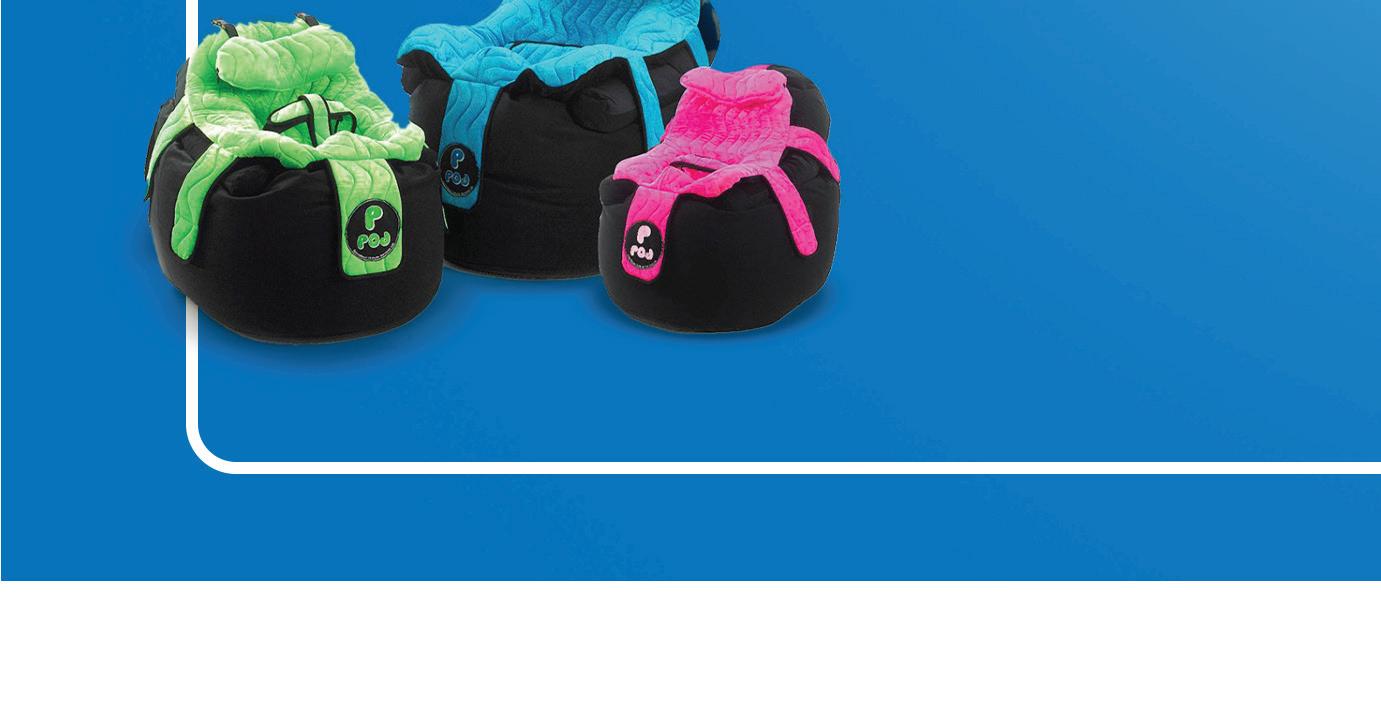
• Use distraction as the primary response to difficult situations.
4



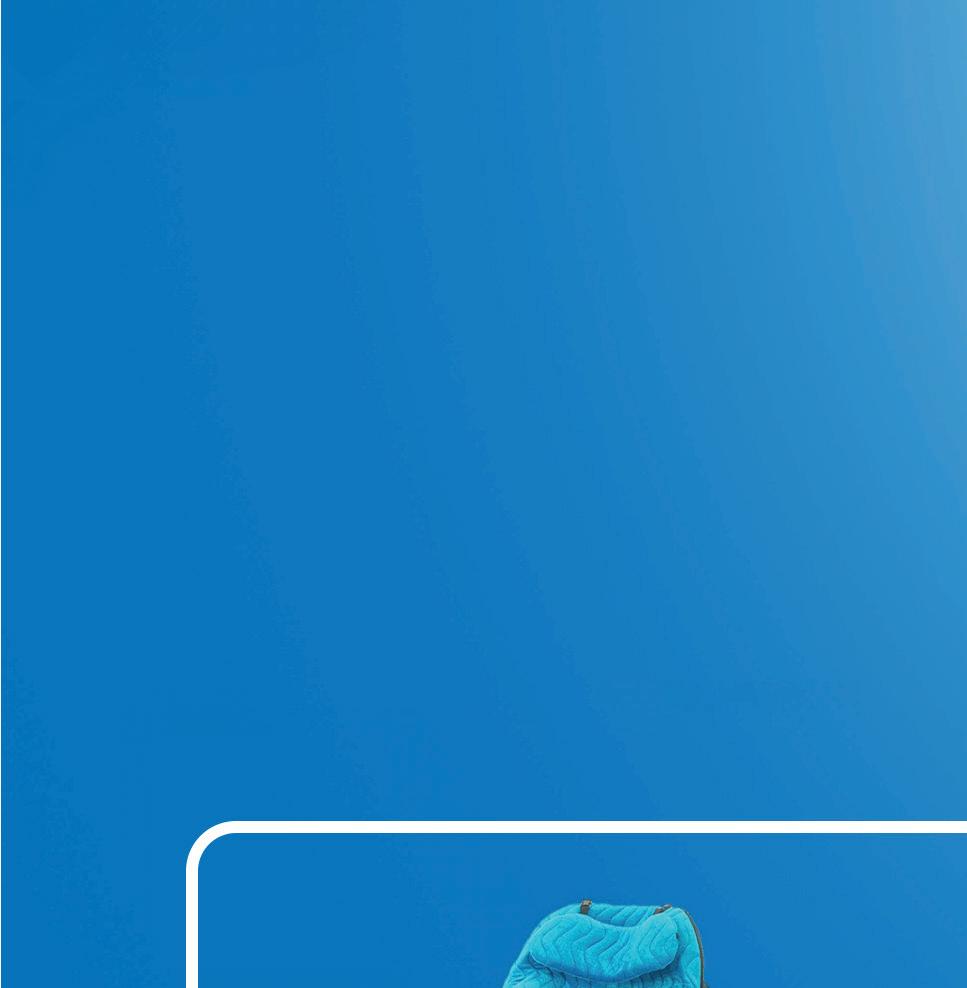
| SPONTANEOUS. People with ADHD are often quick starters that tend to jump right into a new project or idea. Instead of getting stuck following the status quo, we are often motivated to try new things. Planning is often a good thing, but too much planning can also mean you might miss out on a time-sensitive opportunity or that you don’t get
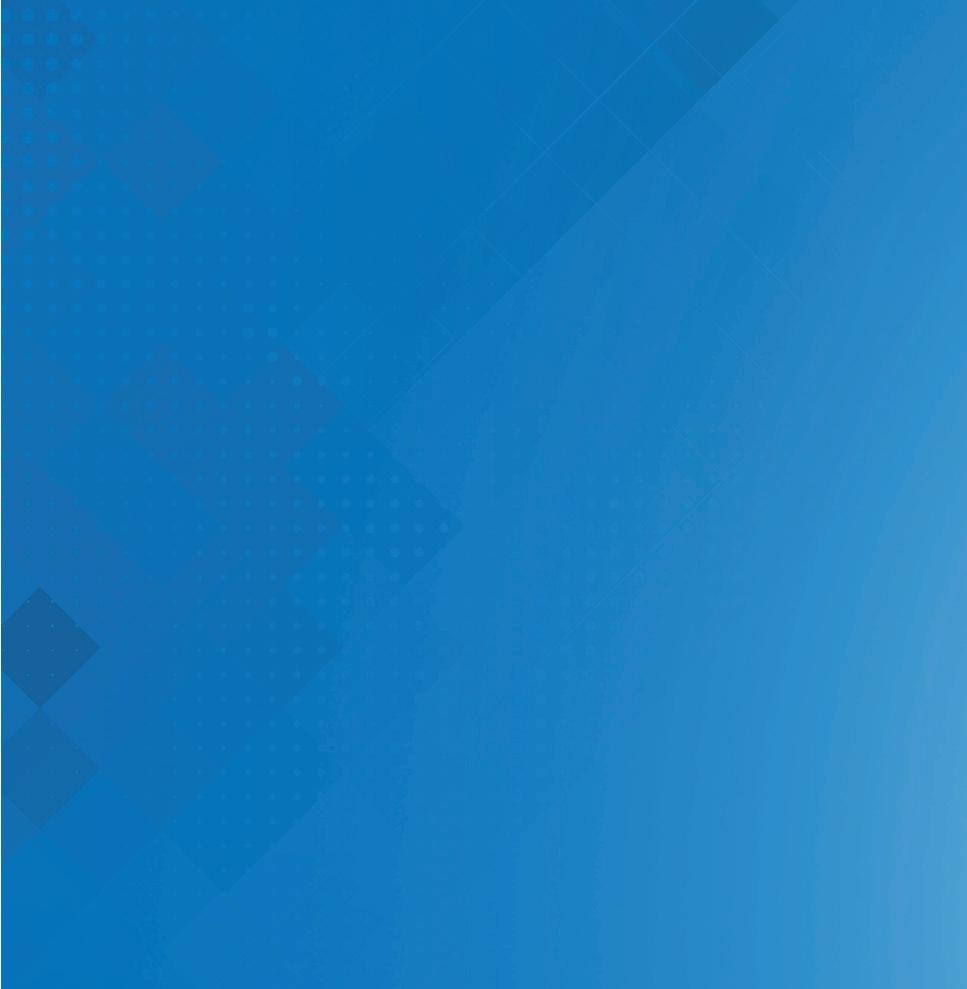
CURIOUS AND DRIVEN. People with ADHD tend to focus really intensely for long periods of time on subjects they’re interested in; this is called hyperfocusing. This is great for working on our hobbies or studying a subject we enjoy. And if we happen to hyperfocus on one thing when we should be doing something else, we usually have people around us to
• Space and break up boring or monotonous tasks with fun, short tasks to make it easier to get through.
• Use consistency in expectations to help manage executive functioning complexities.
• Use reminders and prompts to help the person remember what they are up to.
• Enable the person to have control over their life and wellbeing.
42 SOURCEKIDS.COM.AU ADHD
Tara Kent is a registered specialist behaviour practitioner (non-ABA, neuroscience-based) with Instinct Au, and a developmental educator and director of DivergAntz Collective and TecAntz. You can watch her clips in TikTok or YouTube by searching Miss_DivergAntz.
Play Engage Participate












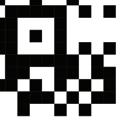













The uniquely designed P POD is the only beanbag seat support system that maintains proper postural alignment. Stylish, supportive, and ideal for all ages, P POD provides a super comfy alternative for people who spend most of their day in a wheelchair.
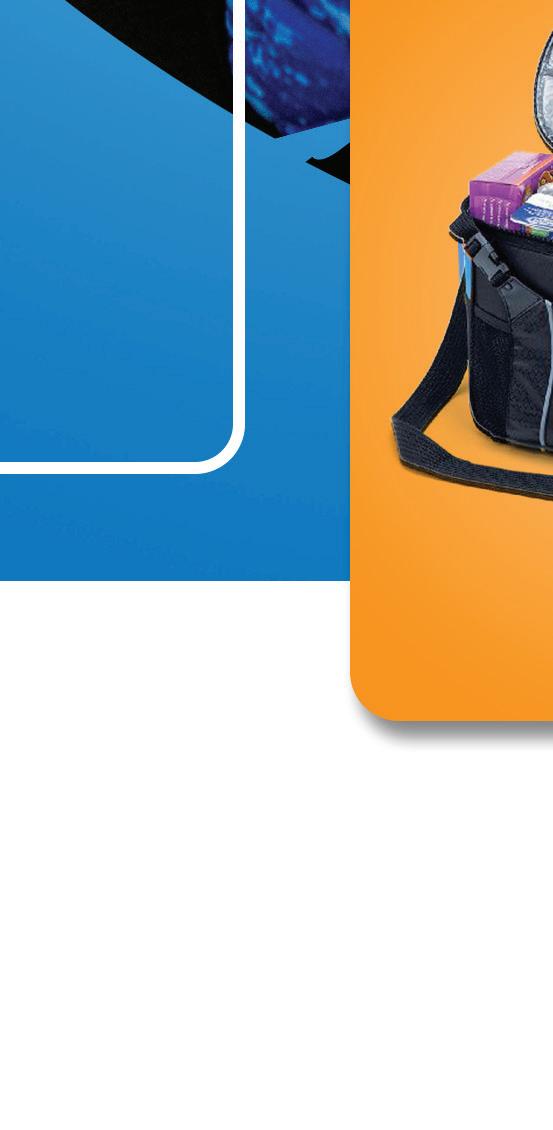


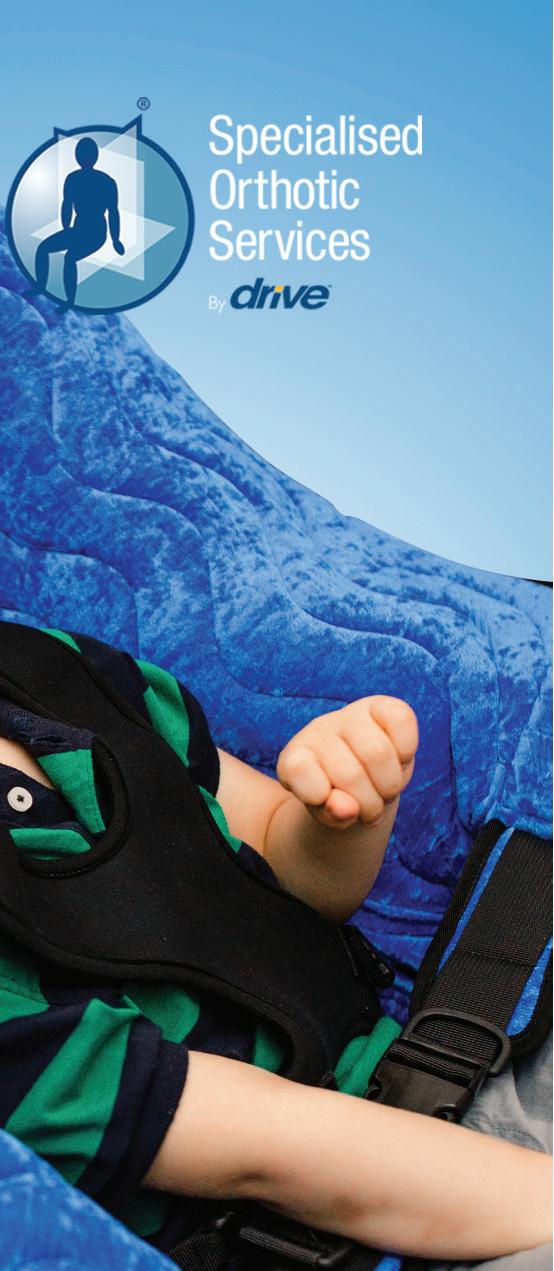

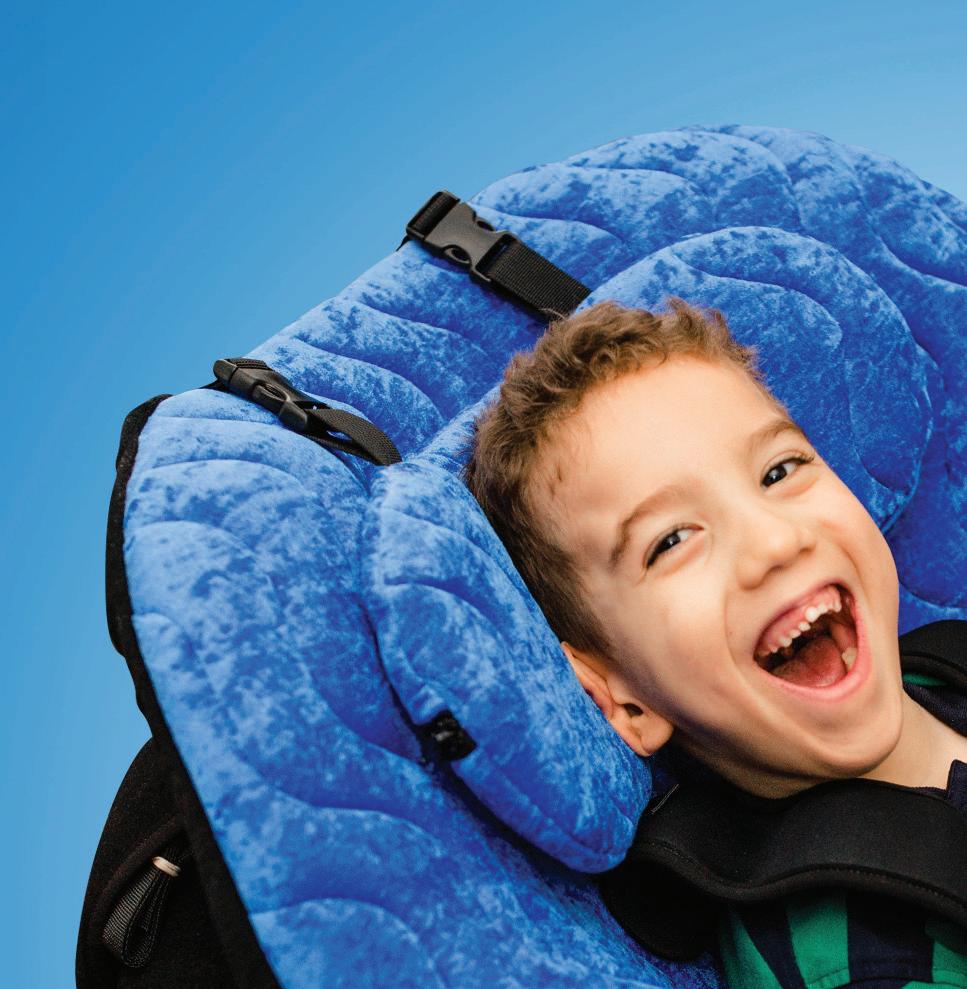
Lightweight and easy to move around Quilted stretch velour covers which are easily removed for cleaning Available in four sizes and a wide range of vibrant colours Stocked in Sydney for quick ship across AU/NZ
NEW STOCK of ‘Outlast’ covers have arrived! These special quilted covers can be purchased as an accessory for existing or new P PODS. Outlast covers continually regulate the skin’s microclimate, keeping users more comfortable by absorbing excess body heat and reducing perspiration.
DEALERS AUSTRALIA-WIDE apexmobility.com.au 1300 212 192
* Receive
bag valued
$55
purchase
APEX
1
Keep
FREE GIFT*
a premium cooler
at
when you
a P POD from any
Mobility dealer between
Dec 2022 – 31 Mar 2023.
cool this summer!
Specialist Physio joins the GTK team!

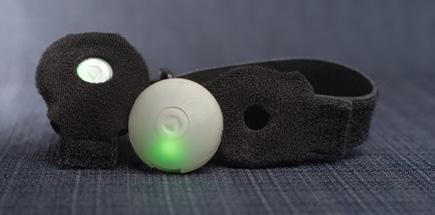

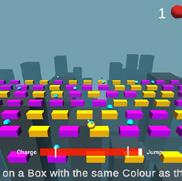
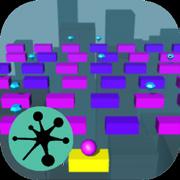
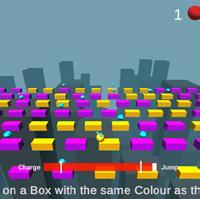
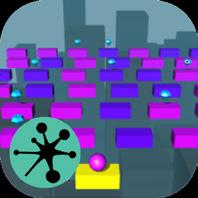

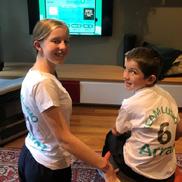



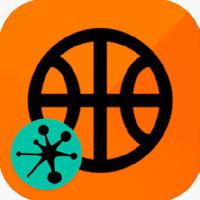
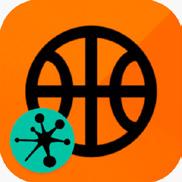

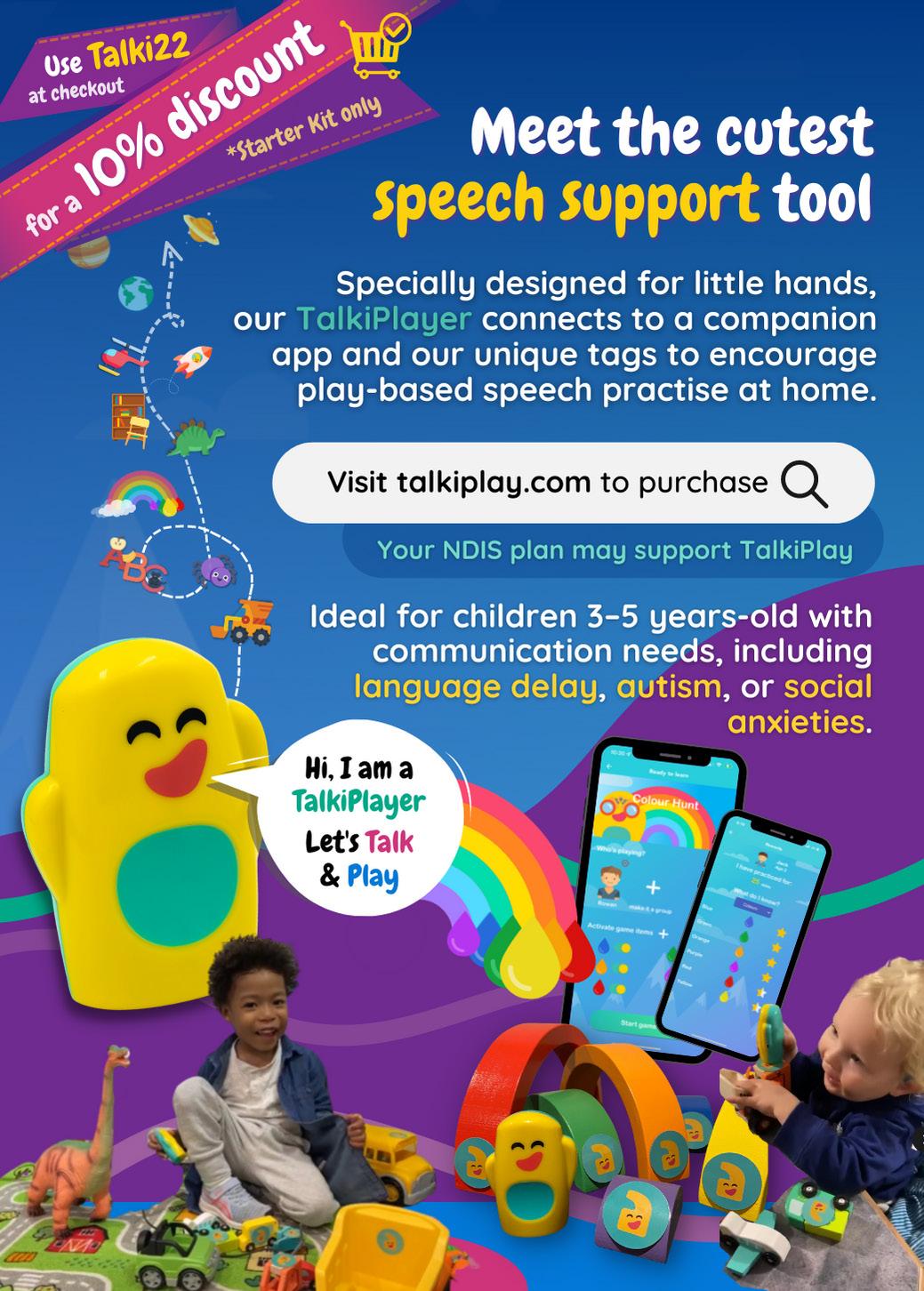

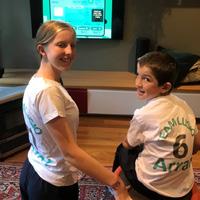
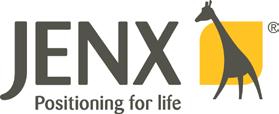
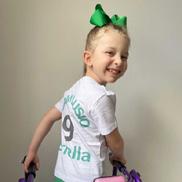

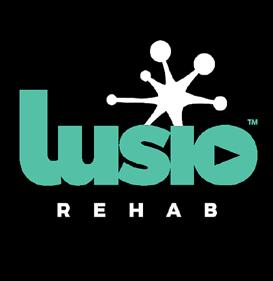
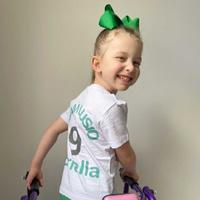
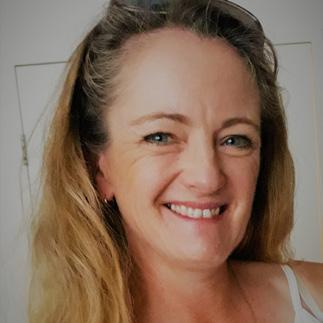
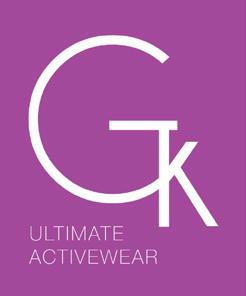
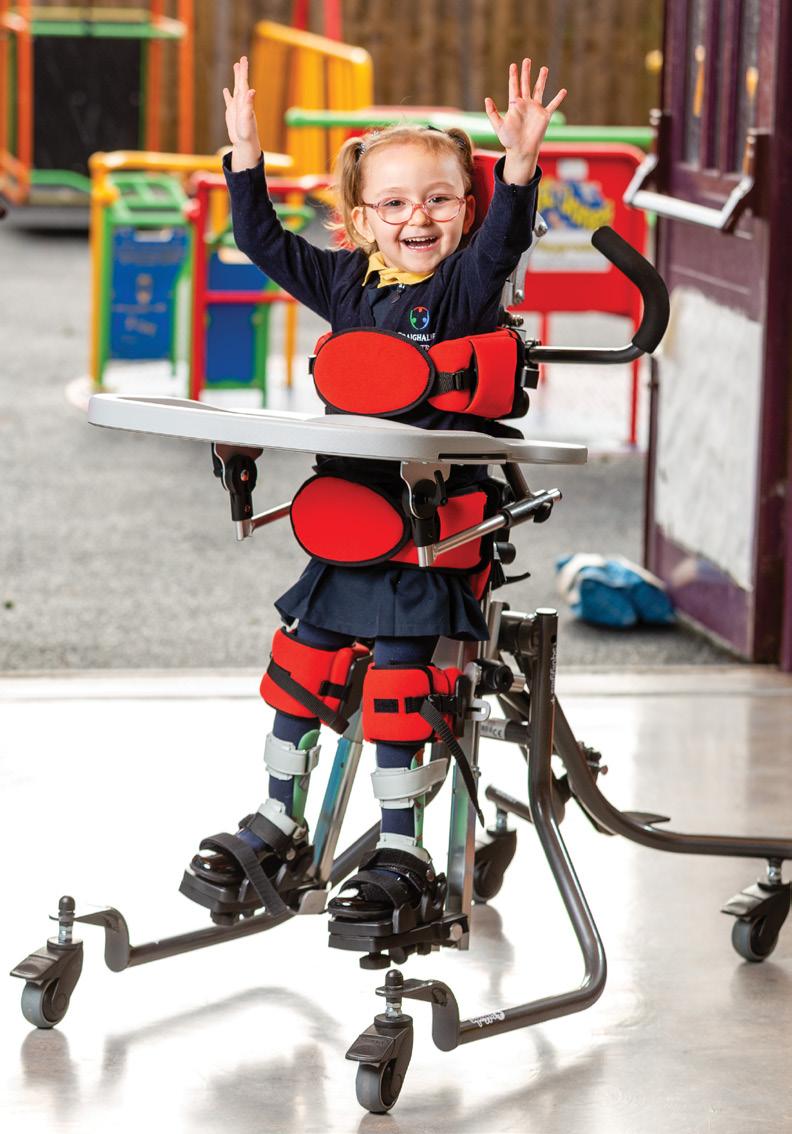

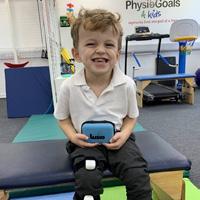
Mellinda holds a Bachelor’s degree in Physiotherapy from the University of Queensland. She is an experienced physiotherapist with a career over 22 years working mostly in paediatric facilities. She worked for the CP League before moving to New Zealand, where her roles included the Child Development Unit for Christchurch District Health Board, a hospital for the elderly, 4 years at a physical disability unit within a state school, and then 10 years at Ferndale Special School. These settings provided her with the opportunity to work with children with neurodevelopmental and musculoskeletal disabilities across the range of their needs including all equipment, splinting, and therapy, as well as an understanding of rehabilitation needs across the lifespan.
Mellinda then moved on to work with a private rehabilitation company, where she continued to specialize in paediatrics as well as providing community rehabilitation for clients with a variety of injuries including amputees, spinal injuries, stroke, brain injury, and musculoskeletal. A large part of her role included assistive technology prescription to clients across the age span, which led to a clinical lead role in this area.
Mellinda believes that looking at the whole person and their family is the key to providing effective rehabilitation and assistive technology prescription, ultimately helping them live their best life.
Making Physical Therapy FUN New Improved LusioMATE App Now Launched! Low cost, low risk with NDIS Motivates achievement of ALL movement goals Remote monitoring by clinicians Use in clinic or at home Get a quote today 1300 1 LUSIO letsplay@lusiorehab.com www.lusiorehab.com MAKING PHYSICAL THERAPY FUN New Improved LusioMATE App Now Launched! Low cost, low risk with NDIS Motivates achievement of ALL movement goals Remote monitoring by clinicians Use in clinic or at home Get a quote today 1300 1 LUSIO letsplay@lusiorehab.com www.lusiorehab.com MAKING PHYSICAL THERAPY FUN lusiorehab.com OFFICIAL PROVIDER letsplay@lusiorehab.com 1300 1 LUSIO LusioMATE is an app with wearable sensors that attach to any part of the body and connect via Bluetooth to an ever growing number of FUN exergames created to entertain and motivate Players through their tailor made PT programs. • Low cost, low risk with NDIS • Motivates achievement of ALL movement goals • Remote monitoring by clinicians • Use in clinic or at home “LusioMATE helps Jon do his physio exercises while thinking about the game instead of how many more reps he has to do!! It’s been fantastic, and I just wanted to say thank you for your follow up and suggestions. He is loving the new games!” HERE’S WHAT OUR PARENTS ARE SAYING OFFICIAL PROVIDER
Meet Mellinda Fitzgerald
FOR ENQUIRIES PLEASE RING 1300 485 485 WWW.GTK.COM.AU 44 SOURCEKIDS.COM.AU

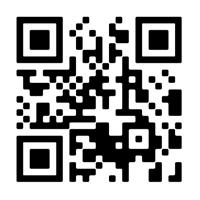

8 Prize Packs. More than $6000 of prizes on offer. ‘More the Merrier’ SUMMER GIVEAWAY! Thanks our generous sponsors, who have kindly donated these incredible prizes, eight Source Kids families will have an extra-magical summer. With EIGHT prize packs up for grabs, you’ve got more chances to win. So get entering!!! Go to sourcekids.com.au/win to enter and for full terms and conditions. Winners drawn 5pm, January 25, 2023. 1 ASSIST TECH A sensational Special Tomato EIO Stroller and Special Tomato Seat & Back Liners (Size 1, 2 or 3 Liners). 2 THRILL SEEKER An adrenalinefilled starter iFly experience – various locations. 3 PLAY Passes We Rock The Spectrum – various locations. 6 KIDS Treats to keep any kid happy! 7 TEEN Loaded with cool stuff for teens. 8 YOUNG ADULTS A swag of prizes for young adults. 4 RIDE Kidvelo bike for the adventurous. 5 RELAX Kloudsac and sensory pack to chillax. Scan to enter and see all the prizes! ISSUE 33 SUMMER 2022 45 WIN
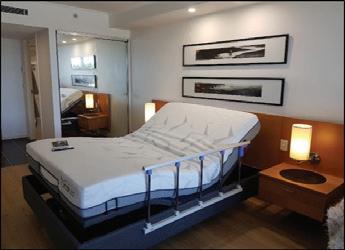
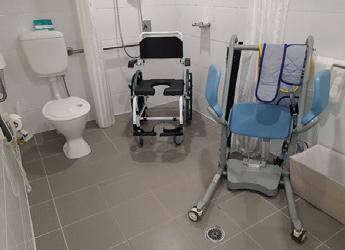
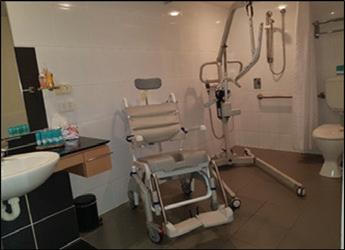
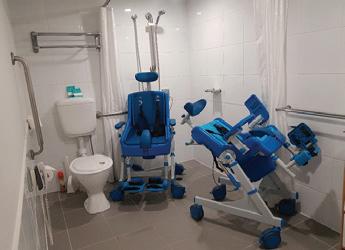
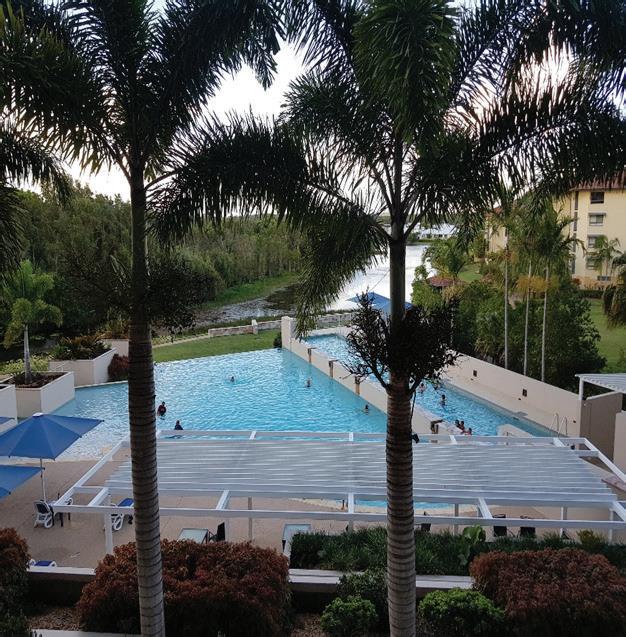
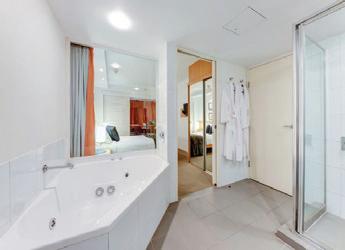

Caloundra, S unshine C oast. Qld, 4551 Other locations by request s suitable for children & adults Owner discretion to gift accommodation for family members and flights for Participant SHORT TERM ACCOMMODATION paid by NDIS
Stability, practicality





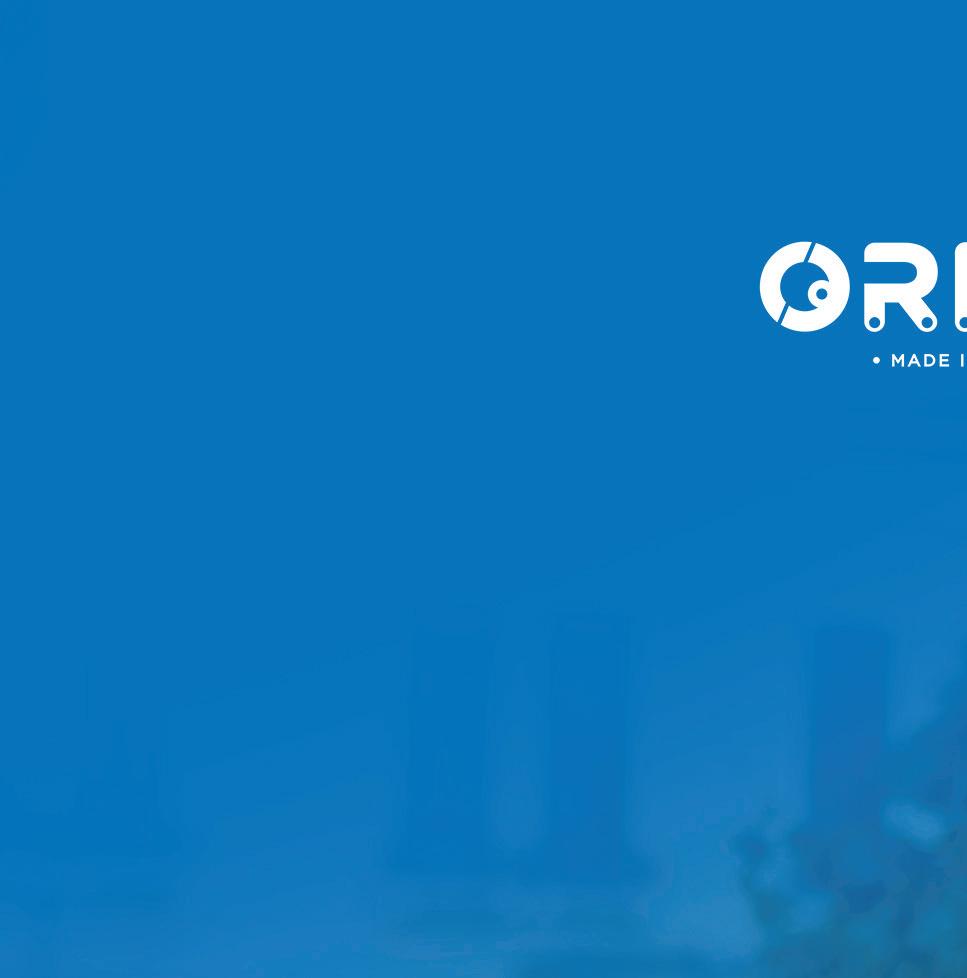
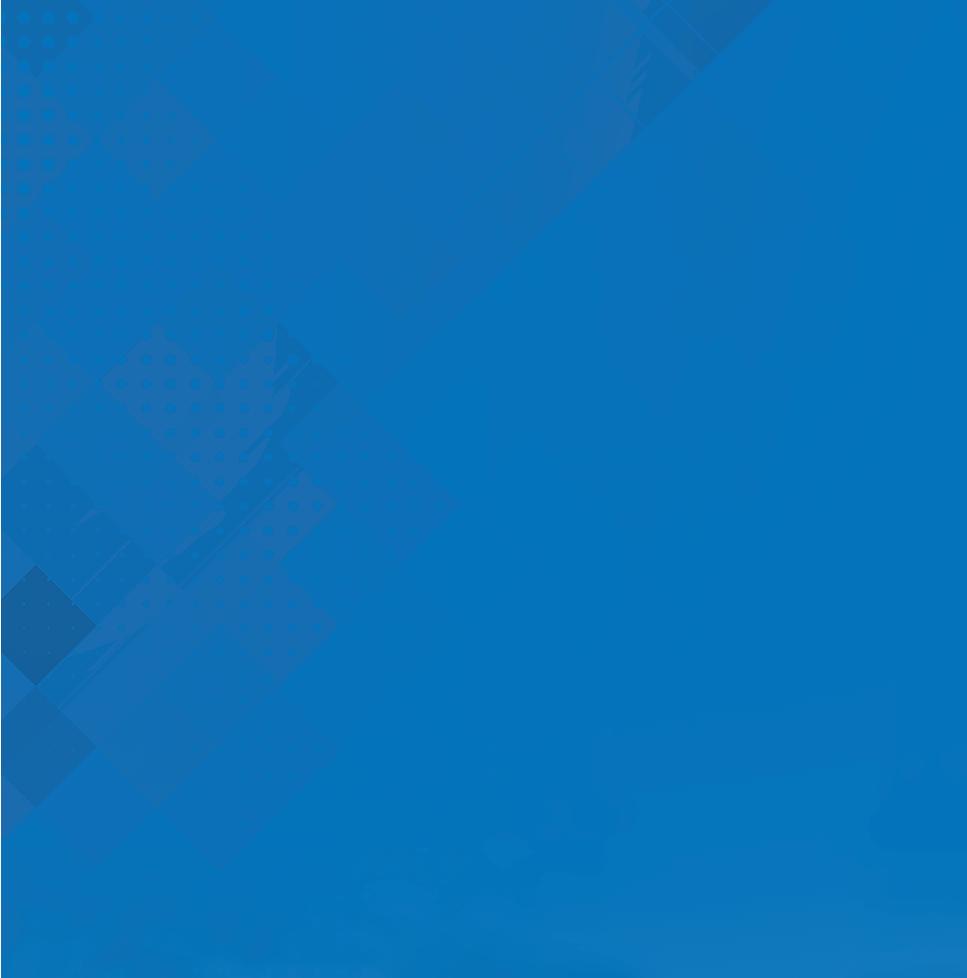





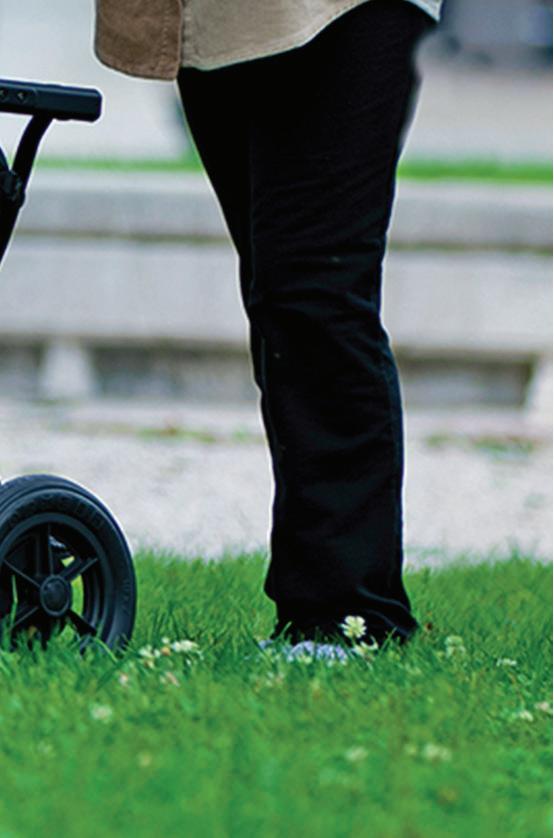





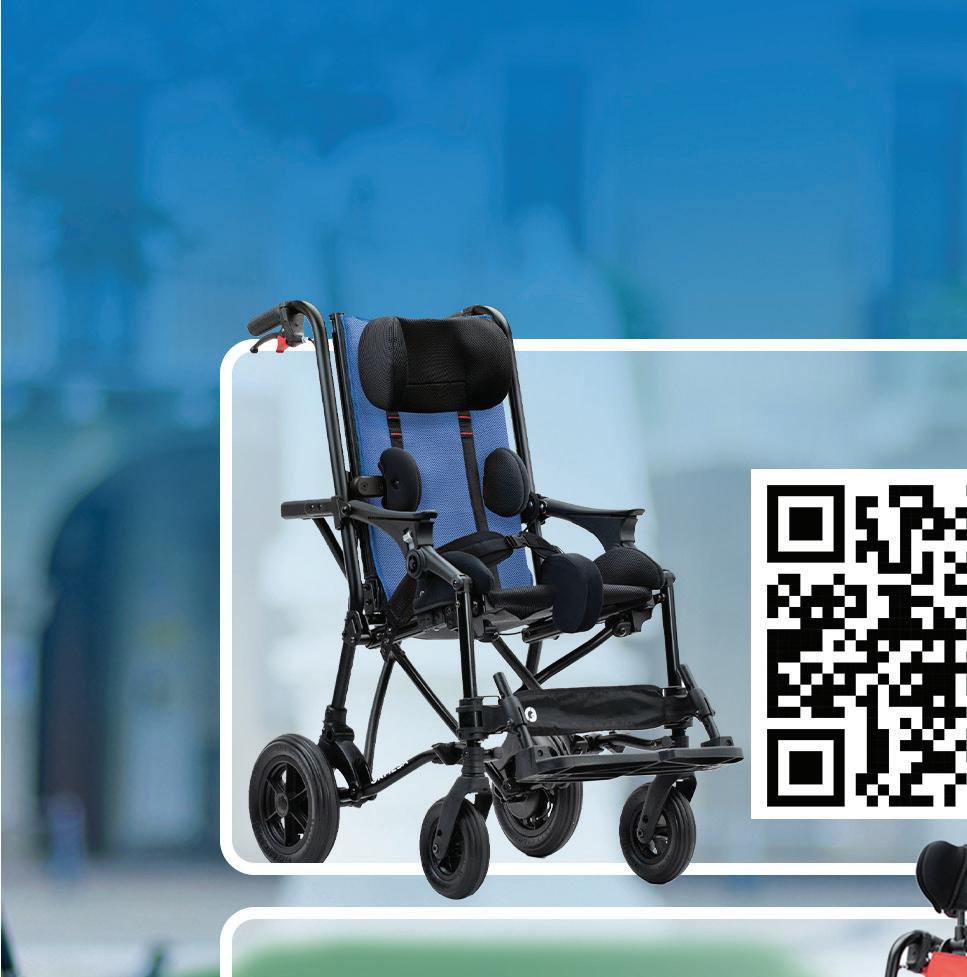
DEALERS AUSTRALIA-WIDE apexmobility.com.au 1300 212 192
& comfort Introducing the Adjustable Trolli and Trollino from Ormesa. Designed and engineered in Italy, these innovative new strollers are compact, light and easy-to-handle. Thanks to its internationally patented system, these strollers can be folded in one swift movement and they take up very little space. Their compactness allows them to be loaded in the boot of any car or taken on public transport. Contact your APEX Mobility dealer to find out which model is right for your needs.
Adjustable Trolli
Trollino
Getting back IN THE SWIM
HOW TO INTRODUCE YOUR CHILD TO SWIMMING LESSONS
Swimming is a potentially life-saving skill that every person needs. The benefits of swimming lessons to a child’s physical and cognitive development are well documented. But there is also the very serious reason why lessons are vital. Drowning is still the number one cause of accidental death for children under five and drowning stats are significantly higher overall for children since the pandemic, when lessons were forced to stop as pools were directed to close.
Swimming lessons should be inclusive for all, but given the nature of the pool environment, lessons are not always easy for kids who are autistic, have other neurological conditions like epilepsy, or are affected by physical or intellectual disabilities.
Challenges for children can include:
• Sensory issues with movement of the water, noise, the feel of the platform under their feet.
• Not wanting to be touched/supported by the teacher.
• Concentration issues.
• Communication difficulties.
However, lessons are certainly worth persisting with.
It is critical that all children, but especially those with disabilities, are exposed to safe water practices in swimming lessons from an early age and never swim alone.
THE HEIGHTENED WATER RISK FOR AUTISTIC KIDS
Some autistic children are particularly attracted to water environments and have little inherent sense of danger or threats. There can be a tendency to wander and to go in search of a retreat away from a stimulating environment, and water can offer a calm and quiet allure, which can prove deadly in the wrong circumstances.
Children with sensory issues often enjoy the sensation of the pressure of water on the body, preferring to be fully submerged, which again creates increased risk.
The latest figures from Royal Life Saving Australia show that autistic children are three times more likely to drown than neurotypical children – but this can be addressed through specialised learn to swim programs.
If you’re looking at starting your child in lessons for the first time, or returning to the pool, it can be understandably daunting for both child and parent. Here are five tips to help all of you feel as comfortable and calm as possible:
1. Find a swim school that offers a free trial lesson. No child is the same and trial and error to work out the best approach for each child is required.
2. Try to find a swim school that has small class numbers. Not only does this create a less-stimulating environment, but it also allows the teacher to closely supervise and observe children, which is essential for kids with disabilities or challenges.
3. Visit the pool in the days leading up to the first lesson and even meet the teacher ahead of time.
4. Talk to your child about what is going to happen in the lesson. The teacher can provide some detailed information about this so nothing is a surprise on the day.
5. Keep an open line of communication with the teacher. There are lots of different things swim teachers can tweak that can make a big difference. Sometimes it’s necessary to move the child to a smaller class or introduce things like playing with a toy while waiting for their turn or being allowed to go under water on the platform while waiting for their turn to block out the noise.
Techniques used are very dependent on the individual child, so as long as there is lots of communication and you
With pools forced to close for extended periods during the pandemic, swimming lessons fell off a lot of parents’ radars. But learning to swim is a vital skill, especially for kids with disabilities, who are at increased risk of drowning says Sharyn Loller.
48 SOURCEKIDS.COM.AU
Autistic children are three times more likely to drown than neurotypical children.
Teaching the
TEACHERS
Royal Life Saving, in partnership with Autism Spectrum Australia (Aspect), has recently released a new online module aimed at improving swim teachers’ knowledge and skills when it comes to swimming lessons for autistic people.

TOPICS INCLUDE:
• Understanding what autism is, and what it isn’t.
• I dentifying the strengths, interests, characteristics and behaviours of neurodiverse people and better understanding how they may think and learn.
• Understanding the relationship between autism, water, swimming and drowning prevention.
• Preparing lessons or programs tailored to individual participants.
• Preparing for and managing behaviours you may experience when teaching .
• Utilising a range of strategies and techniques during lesson delivery.
To find out more information about the module, or other professional development offerings, contact your local Royal Life Saving office.
- Rebekah Devlin
ISSUE 33 SUMMER 2022 49 SWIMMING
have an observant swim teacher, the right approach for each individual can be found depending on what their individual preferences and triggers are.
Many tools are available to assist swimming teachers to support children with disabilities to learn to swim including visual aids and the use of AUSLAN sign language related to swimming actions. These tools, along with a swag of understanding of behaviours and how to manage these in a positive way, will lead to a successful swimming lesson. It is important to work with the right teacher to get the best outcome for each student.
In some instances, it may help to build familiarity if the child watches a few lessons without participating, and in other situations, the teacher may recommend a few one-on-one lessons to settle the child into the routine of the class and understand the basic safety rules within the lesson (listening, staying above the water, staying on the platform etc).
For other children, one-on-one lessons may be required for a longer period or a support person may need to be engaged to accompany a child in group lessons.
The benefits of swimming lessons are many and include improved independence, building physical and emotional development, improvement in physical fitness and, of course, better water safety knowledge.
If, however, your child continues to be very distressed in a swimming lessons environment, take a short break for a few weeks and try again.
Sharyn Loller is a JUMP! Swim School owner and a qualified swim instructor of more than 30 years. She has previously won an Inclusive Swimming Award from the Australian Swim Schools Association for her work with autistic children, in particular. For more information head to: jumpswimschools.com.au
SWIMMING LESSONS AND THE NDIS Do they fund them?
Swimming lessons fall under parental responsibility.
The NDIS also does not agree with funding private classes for children, as they say this takes away opportunities for participation in group activities.
The NDIS has been known to fund the difference between group classes and private classes in special cases, but in recent years, these requests also seem to be getting knocked back.
Swimming and safety advocates are urging the NDIS to reconsider its stance.
“Some children need one-onone lessons – sometimes just initially, to get them comfortable in the water and the lesson environment – or in some cases, private lessons are the best option ongoing,” says CEO of JUMP! Swim Schools, Mark Collins.
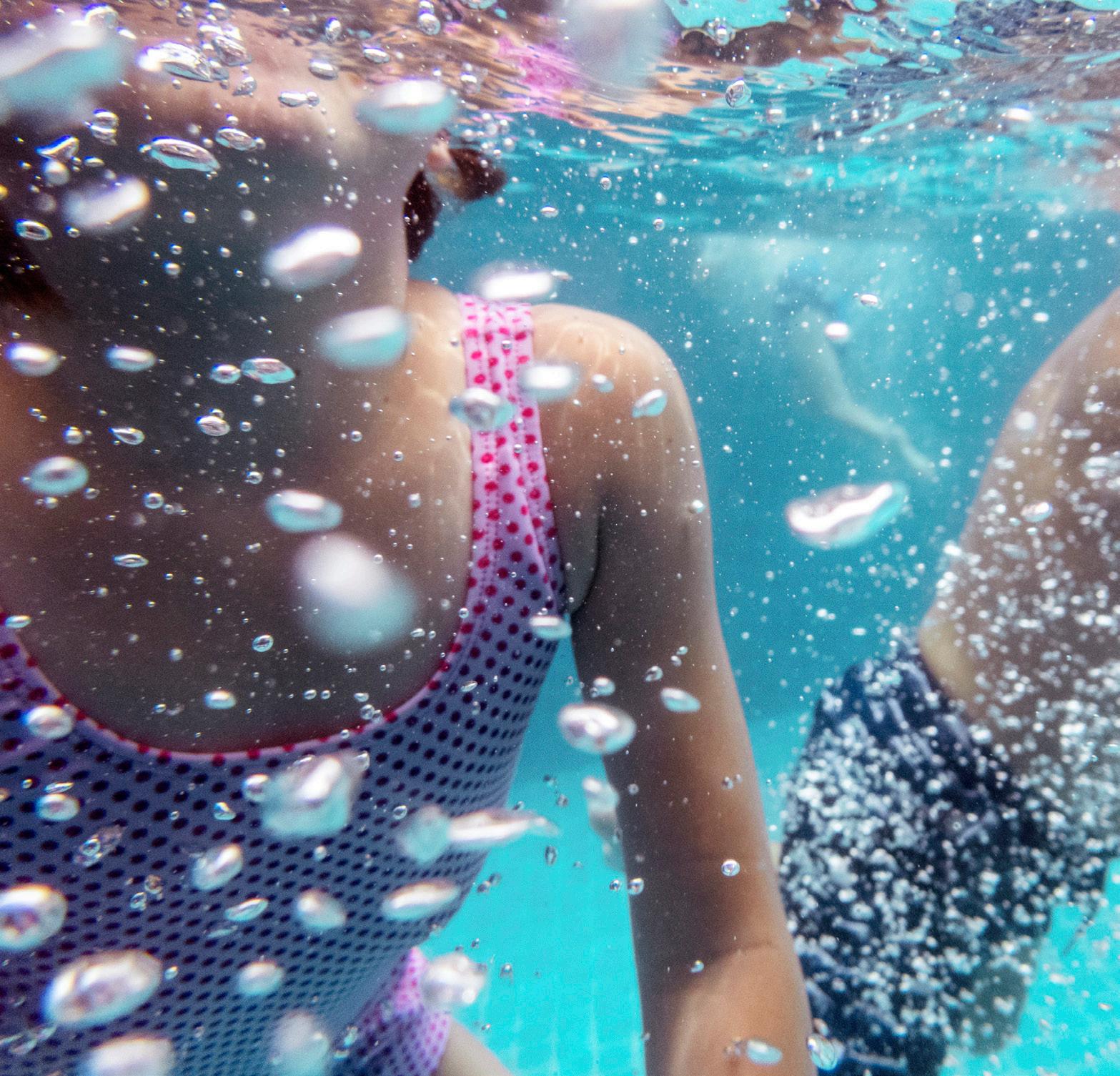
“We really hope this is something that is reviewed by the NDIS given learning to swim is a life-saving skill that every child needs to have, regardless of the challenges they face.”
By Rebekah Devlin
“Drowning is still the number one cause of accidental death for children under five and drowning stats are significantly higher overall for children since the pandemic.”
50 SOURCEKIDS.COM.AU SWIMMING




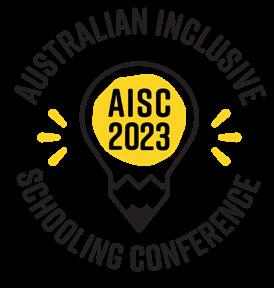
WE DELIVER FREEDOM YOU CHOOSE THE DESTINATION INTRODUCING OUR HYUNDAI STARIA CONVERSION! NEW FREE CALL 1800 672 437 OR VISIT OUR WEBSITE WWW.FREEDOMMOTORSAUSTRALIA.COM.AU SAVE $100 Use code: SOURCE Can’t make it to Sydney? Register for the AISC Virtual Spotlight inclusiveschoolingconference.com.au INCLUSIVE SCHOOLING Sydney, 16-17 March An inclusive education is the first step towards an inclusive life. Join other parents, educators, and therapists as we come together to be informed and inspired by education experts from across Australia, and the world. 2023 AUSTRALIAN CONFERENCE ISSUE 33 SUMMER 2022 51
Emily’s Story
FROM HER DAD
“As parents who have a child with a disability, there are many emotions you go through when your son or daughter is born with a disability. Sometimes these uncertainties can distract you from the joy of having a beautiful daughter.”
Our beautiful daughter Emily is now a young woman who is 21. Emily is non-verbal and has a dual disability of Down syndrome and autism. When I think about my daughter Emily, I think about her like every other parent. I don’t see someone with a disability, I see a pretty young girl who will share many of the same feelings, hopes, interests and dreams that other
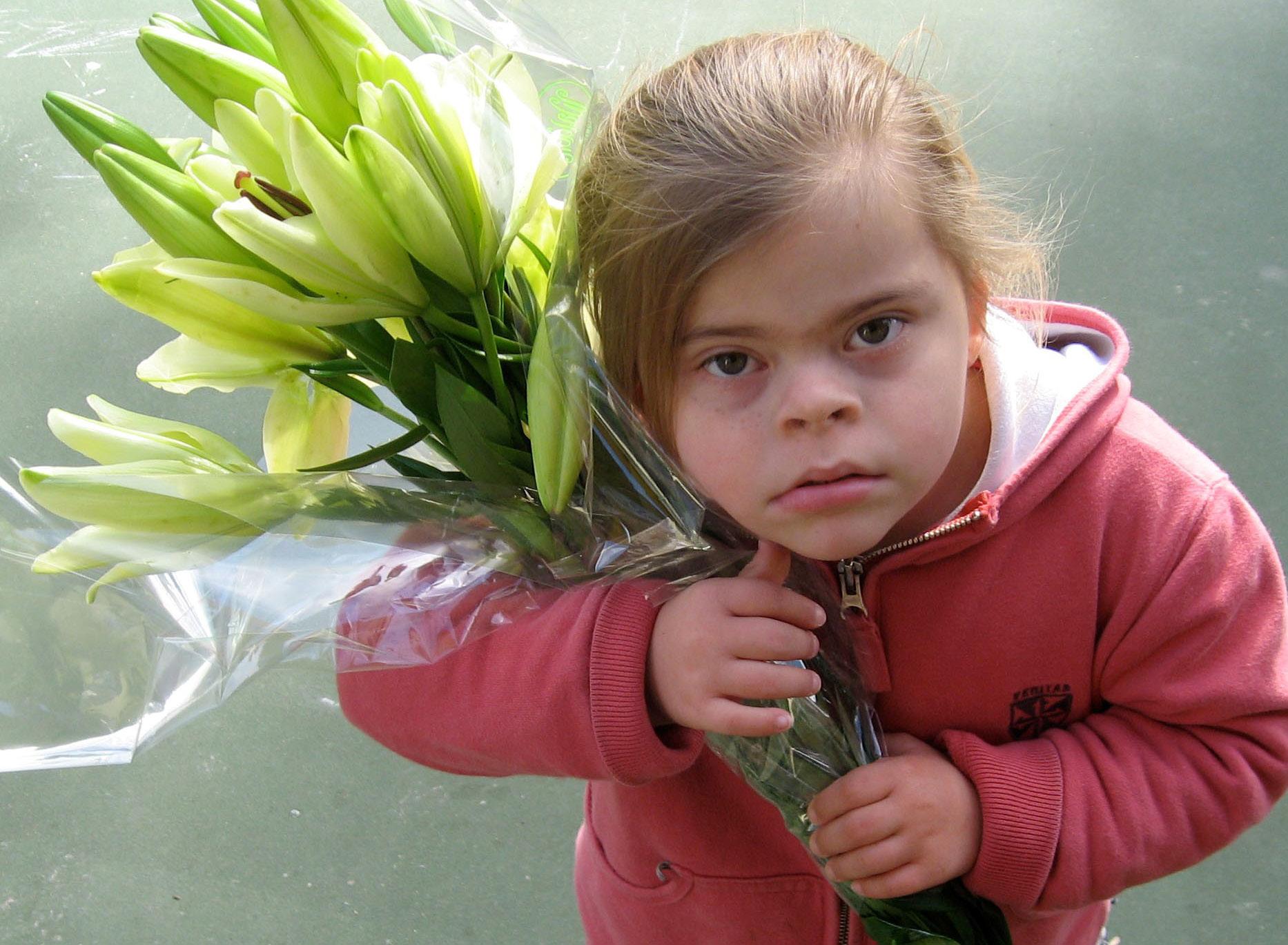 By John Collins
By John Collins
girls have. She will also face the same challenges with friends, school, socially and at work. She has a unique personality with different likes and dislikes, just like the rest of us.
Communication has always been a challenge with Emily. Our communication approach has been multidisciplinary and we have tried everything including sign language, gestures, Picture Exchange
GET THE SUPPORT YOU DESERVE PMA prides itself as being different from other providers in that we are carers for family members that have disabilities. We have first-hand experience and knowledge about the NDIS with in-depth experience from both sides and we deliver a passionate, personal and quality driven plan management service.
52 SOURCEKIDS.COM.AU
(PECS), some basic words, and now an App called Proloquo2Go.
To any other parent or carer, I would say never give up, just because one approach doesn’t work, never hesitate to try something else as you never know what might work. Our successes came not only from our own knowledge of Emily, but we also partnered with numerous speech therapists, occupational therapists, exercise physiologists and many carers. Everyone needs to be on the same page including schools and support providers to help Emily to be the best person she can be.
From our perspective it’s worth investing time to find the right school and supports for any child, and you only get out what you put in. Many of the schools and carers become like extended families, the teachers can be amazing, and you will meet lifelong friends.
Schools and your support network play a vital role. Emily started with Lifestart Intervention from newborn to four-yearsold. She then attended St Lucy’s Special Catholic School in Sydney's Wahroonga for her primary years and moved to Giant Steps in Gladesville for high school.
She now attends a mix of day programs including What Ability, Sunnyfield and Adult Services at Giant Steps along with home support workers.
Age-appropriate activities and community involvement are also a big part of Emily's family. We had Emily in a learn to swim program when she was a oneyear-old. She didn’t swim for many years after, but now it’s something she enjoys and can do unsupervised. Emily also needed more than three years to learn to walk, but if you saw her walk now, you would never know as she loves walking. Both these activities have given Emily a sense of freedom and independence, so always plan for the long game.
Get involved, do whatever you can to help, join a disability group or committee, and if a program doesn’t exist you want for your child, go set one up like we did for dancing and swimming in our local area, which still run today.
There are struggles and demands having a child with a disability, it can impact relationships and life is filled with challenges. However, the successes we have is what makes Emily special and we wouldn’t want her to be someone
else. We can see how hard she tries with everything, and how frustrated she is when she can’t communicate what she wants from time to time. Emily is a young woman with feelings and emotions she wants to share, so being frustrated occasionally is understandable.
Always maintain your own sanity and relationships. Sometimes it can be a struggle and it’s important to remember to put time aside for yourself and your relationships. We took our first holiday without Emily a few years ago after 18 years, it was fantastic, but we should have started doing that many years ago. Don’t wait, just plan for it.
Regardless of the challenges, like every child Emily has brought us plenty of love, hugs, happiness and laughter. She has shown us what true love really is and has even started saying a few words from time to time.
Emily’s Dad, John Collins, is one of the founding partners of Plan Manage Assist (PMA), and with other founding partners, Kathleen Collins, John Corrigan and Josephine Proust, have families with disabilities.

PMA are passionate about disability and pride themselves as being different from other providers. They have first-hand experience and knowledge as they have been through the journey and understand the frustrations and the challenges you can go through.
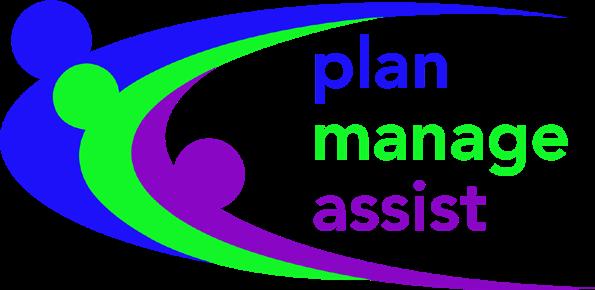
Are you an NDIS participant who is looking for Plan Management? Call us on 1300 199 960 planmanageassist.com.au ISSUE 33 | SUMMER 2022 53 ADVERTORIAL
Primitive REFLEXES
They are there to protect your baby in their early days, but not all children’s primitive reflexes integrate when they should. The team at Occupational Therapy Helping Children explain what to look out for and when to seek help.

WHAT ARE PRIMITIVE REFLEXES?
Primitive reflexes are the first reflexes for our development. They are involuntary movement patterns that assist with survival in early childhood. These reflexes are usually naturally integrated in the first three years of life. However, they can be retained and may impact developmental delays.
There are many different primitive reflexes, but occupational therapists usually work with these five reflexes:
• Moro Reflex
• Asymmetrical Tonic Neck Reflex (ATNR)
• Tonic Labyrinthine Reflex (TLR)
• Spinal Galant Reflex
• Symmetrical Tonic Neck Reflex (STNR).
Moro Reflex
The Moro Reflex is the baby’s automatic reaction to sudden sensory stimulation, such as bright light, change in temperature, touch, and others. Often called the startle reflex, you may have observed your baby throw back their head, extends out their arms and legs, cry, then pulls the arms and legs back in. This reflex will typically disappear between two and four months of age. Older kids with retained Moro Reflex might present with:
• Hypersensitivity to light, movement, sound, touch and smell.
• Motion sickness.
• Attention difficulties.
• Impulse control difficulties.
• Heightened responses to stimuli which might present in aggressive behaviours.
• Poor Balance — difficulties playing ball games.
Asymmetrical Tonic Neck Reflex (ATNR)
The ATNR is also known as the defensor position. It prepares the baby for future transitional movements like rolling, crossing the midline and hand-eye coordination. You may have observed it in your baby when they lie down on their back and turn their head to one side. Their arm and leg on the same side they are looking towards will extend, and the opposite side will bend. This reflex typically disappears between four and six months of age. Older kids with retained ATNR might present with:
• Lack of sense of direction.
• Hand dominance confusion.
• Handwriting difficulties.
• Reading difficulties.
• Focus and balance difficulties.
Tonic Labyrinthine Reflex (TLR)
The TLR assists the development of neck and head control and prepares the baby for
54 SOURCEKIDS.COM.AU
What are they and how do they affect your child’s development?
rolling, crawling, standing and walking. You may see the TLR in your baby during tummy time. When the baby looks up, their arms and legs will extend. If the baby looks down, their arms and legs will bend towards their body. This reflex must be integrated between three and five years. Older kids with retained TLR might present with:
• Difficulties crawling.
• Poor posture control.
• Balance difficulties.
• Motion sickness.
• Toe walking.
• Lack of spatial awareness.
• Lack of interest in sports.
Spinal Galant Reflex
The primary function of the Spinal Galant Reflex is to support the baby during birth, helping the baby push their hips through the birth canal. Through early development this reflex can support the child to develop body awareness, postural control and co-ordination. You can observe this reflex in your baby by positioning them facing down, on your arms and tickling them with your index finger along one side of the spine. The reflex will present with the baby moving his hips towards the stimulated side. This reflex typically integrates between three and nine months after birth. Older kids with retained Spinal Galant reflex might present with:
• Difficulties with bladder control.
• Poor attention and concentration.
• Difficulties sitting still.
• Back pain.
• Avoidance of wearing tight clothes.
Symmetrical Tonic Neck Reflex (STNR)
The STNR is also known as the crawling reflex. It supports the baby in building gross motor coordination skills, such as separating arm and leg movements, developing balance, and controlling sitting posture. You may see this reflex
in your baby when they move their head in a crawling position. If you gently bend their neck (move their head down), their upper body will bend, and their lower body will stretch. If you gently extend their neck (move their head up), their upper body will elongate, and their lower body will bend. This reflex typically integrates between nine and 11 months. Older kids with retained STNR might present with:
• No crawling.
• W sitting.
• Difficulties copying activities from the board at school.
• Toe walking.
• Difficulties with ball skills.
• Difficulties with eye-hand coordination.
WHAT ARE THE CAUSES OF RETAINED PRIMITIVE REFLEXES?
There are many factors that may contribute to primitive reflexes being retained including:
• Traumatic birth.
• C-section.
• Use of drugs and alcohol during pregnancy.
• Constant ear infections in early childhood.
• Insufficient tummy time.
• Delayed or difficulties crawling.
• Neurological conditions and divergences such as cerebral palsy, autism, ADHD or sensory processing issues.
• In some cases, primitive reflexes can reappear as a result of brain trauma, stroke, or brain lesions.
WHAT CAN I DO IF I HAVE CONCERNS?
It is important to remember retained primitive reflexes may be one cause of developmental delays, however there are many other reasons for children to experience delays in their development.
If you are concerned about your child’s development, please talk to your child’s paediatrician, occupational therapist or physiotherapist.
Some great activities to assist with reflex integration are:
• Have your child complete activities when lying on the stomach. For example, watching TV, drawing, colouring, and playing board games.
• Crawling through tunnels.
• Obstacle courses.
• Wheelbarrow walks.
• Cat/cow yoga pose.
• Superman pose lying down on their stomach.
• Star jumps.
• Throwing a ball on a target.
• Roll down a ramp or a mountain of cushions.
Occupational Therapy Helping Children is a specialist team of occupational therapists in Sydney’s Frenchs Forrest dedicated to helping children thrive, offering one on one supports, as well as parent workshops and teacher training sessions. occupationaltherapy.com.au
It is important to remember retained primitive reflexes may be one cause of developmental delays, however there are many other reasons for children to experience delays in their development.
THERAPY ISSUE 33 SUMMER 2022 55
We want to honour and celebrate the determination, courage and triumphs of our kids and young adults, for all that they have achieved this year.

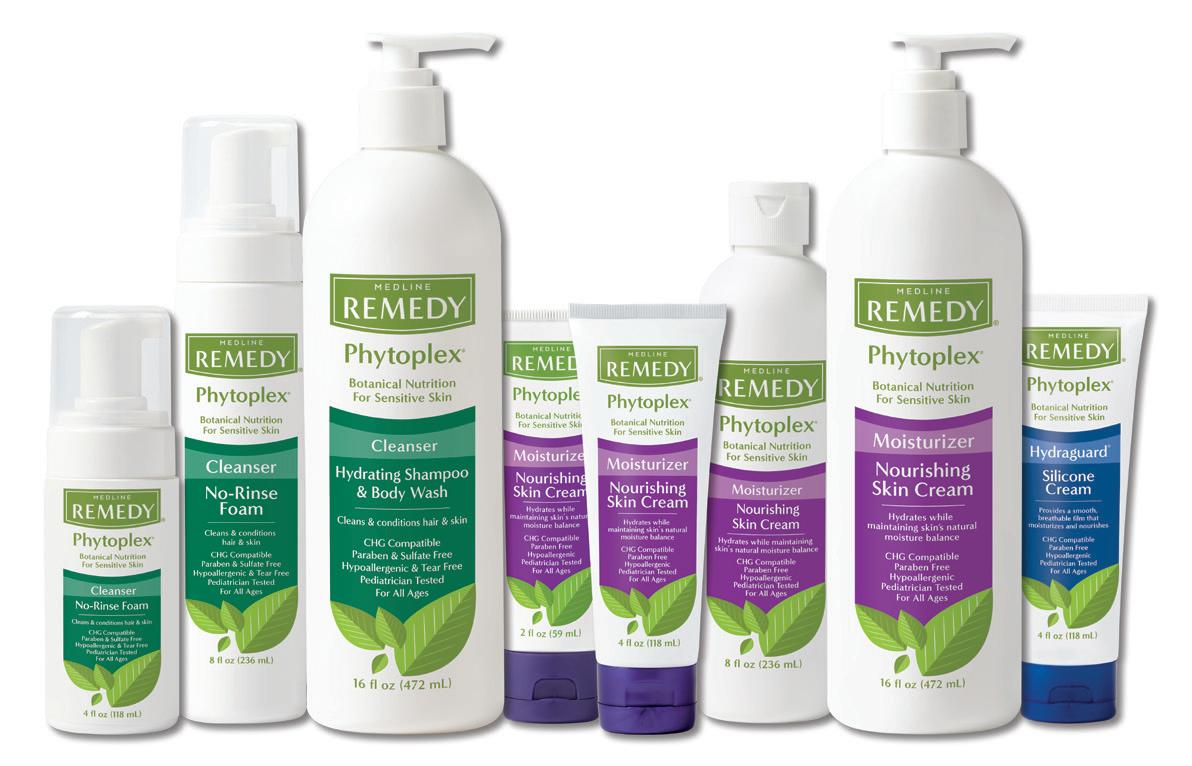
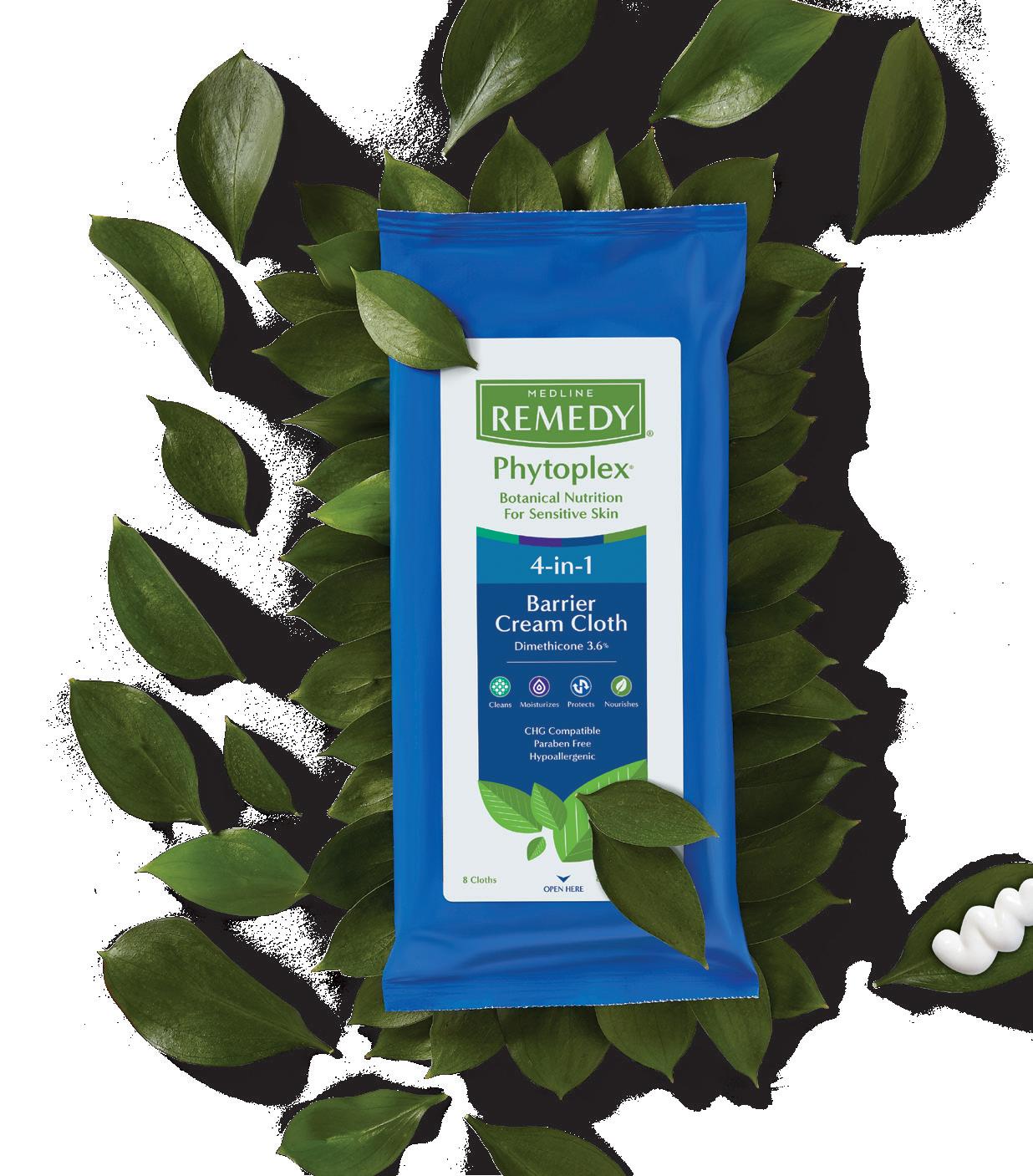
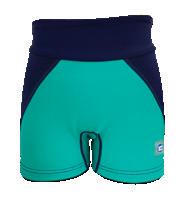
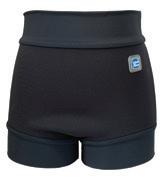


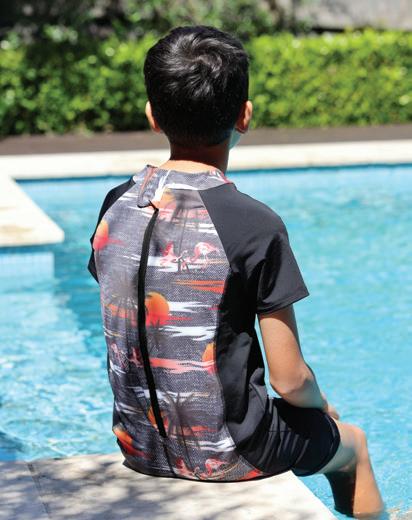

It might be toilet training, learning to ride a bike, developing the physical control to shake their head, learning to use their communication device, coping with yet another surgery, eating a new food. Whatever the achievement, we want to recognise and celebrate them. Download your certificate now, share their achievement with us and let’s lift up these wonderful people in our lives.

1. Download 2. Fill in 3. Print 4. Snap photo 5. Upload sourcekids.com.au/source-awards SCAN FOR MORE INFOMATION BECAUSE EVERY SOURCE KID DESERVES AN AWARD 56 SOURCEKIDS.COM.AU
Relax this summer with our Back Zip swimsuit. Designed to prevent unwanted undressing & nappy access, it will help bring peace-of-mind when having fun in the outdoors. • durable high UV protection & chlorine resistant stretch fabric
Large bodysuits to assist everyday living www.wonsie.com.au Registered NDIS Provider & swimmers NEW PRINTS COMING SOON Medline International Two Australia Pty Ltd 2 Fairview Place, Marsden Park NSW 2765 1800 110 511 medline.com.au Medline International Two Australia Pty Ltd 2 Fairview Place, Marsden Park NSW 2765 1800 110 511 © 2022 Medline Industries, LP. All rights reserved. Medline is a registered trademark of Medline Industries, LP. PC16 6-May22-V1 Remedy cleansers come in rinse and no-rinse, lotions, gels, foams and sprays to cleanse and condition the skin. Remedy moisturisers absorb quickly to hydrate and condition the skin without feeling sticky or greasy. Remedy barriers are formulated to keep moisture out at the same time keep hydration in. MOISTURISERS BARRIERS CLEANSERS
• room for a swim nappy (also available on our website) • available in sizes up to large adult
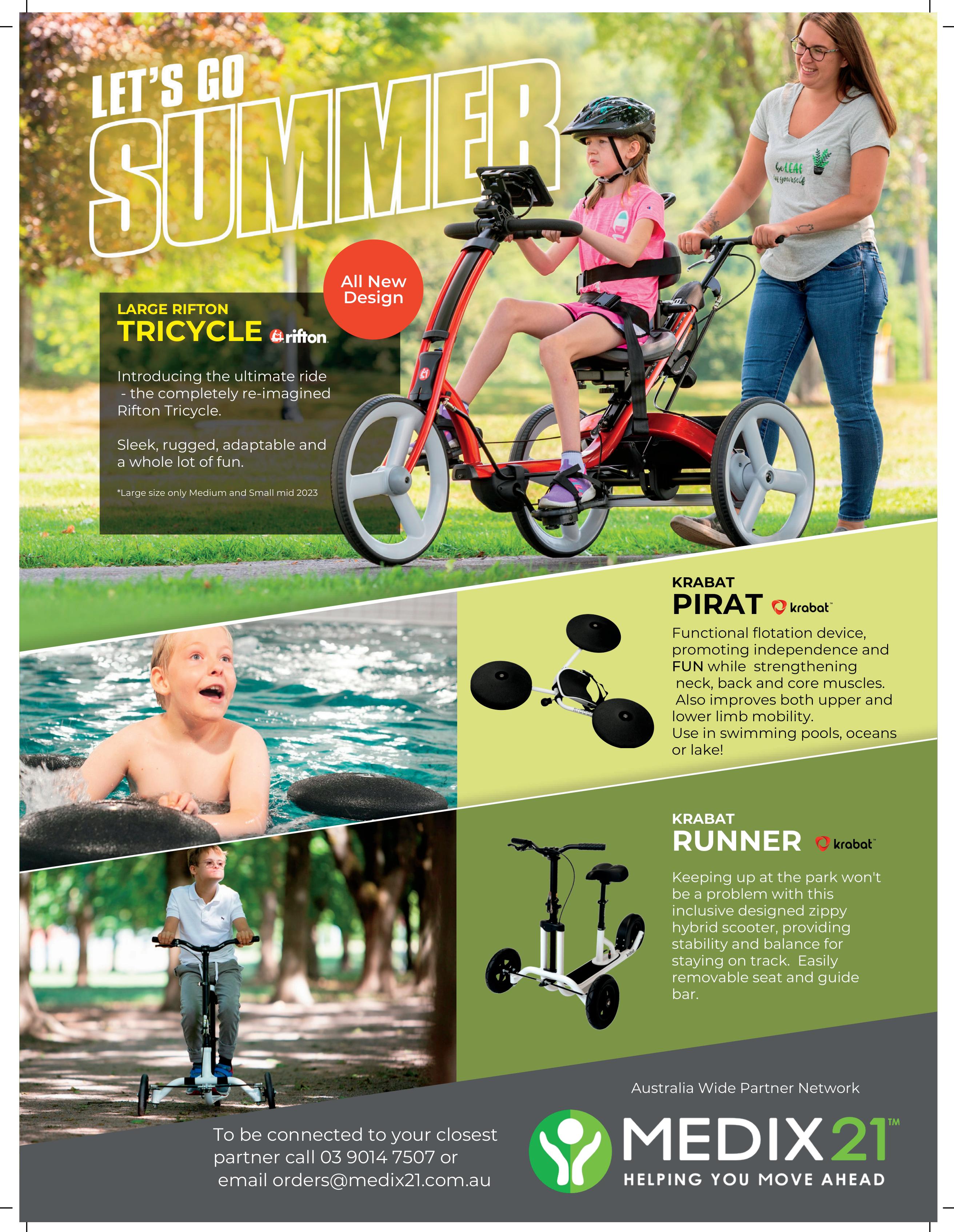
BIGGERFIVE FITNESS TRACKER WATCH
A budget-friendly option, but still brimming with features, this smartwatch is ideal for kids aged five to 18 years, supporting them, and their health, throughout their school years. It automatically tracks steps, heart rate and sleep. In addition to a stopwatch function, the compact and sturdy watch can set up to 10 alarms, so you can have a different reminder for wake up, medication, study, toilet breaks, even drinking reminders. It's waterproof, so they can keep it on 24/7, and the battery lasts up to a week.
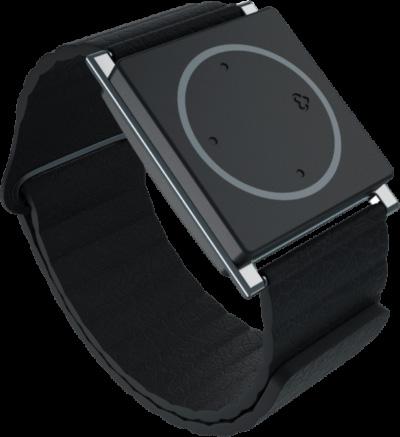
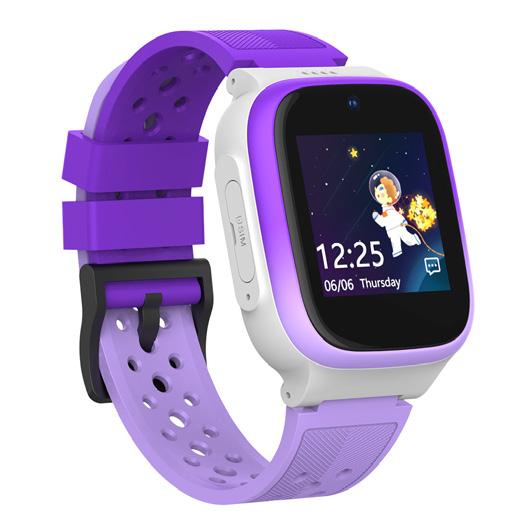
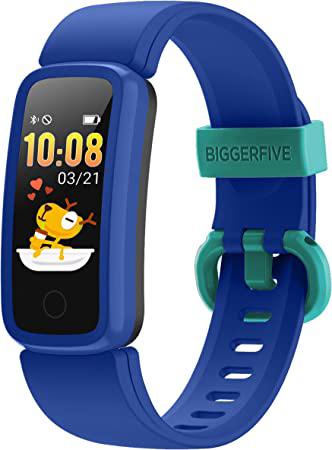
RRP$39.99



amazon.com.au
You better WATCH OUT
Yes kiddies, Santa Claus is indeed coming to town very soon. Here’s our pick of the latest smart watches. Time to start writing those letters to the North Pole.
SPACETALK ADVENTURER
KIDSOCLOCK
Australian-owned, KIDSOCLOCK is the perfect starter watch for your kids. It allows parents complete control over the watch via the mobile app, including tracking via GPS. It even comes with geo fencing, so you can set up a “safe zone” when kids are out to play. If your child goes outside that zone, you will be notified with a text message. It features SMS, video and voice calling as well as an SOS button, which instantly calls you.
RRP $179 kidsoclock.com.au

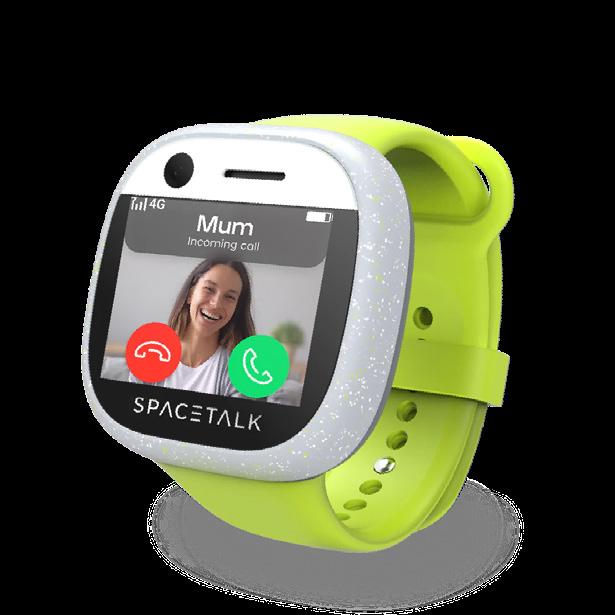
APPLE WATCH
The Apple Watch gives kids a way to stay in touch with parents, share location, and build responsibility without needing a smartphone. With limited access to the web and no social media apps, this watch can be a great starter device for kids. The family setup feature on the Apple Watch allows the entire family to benefit from the important health and safety features like Emergency SOS. While Maps, Siri, Alarms and the App Store build independence. RRP $299 apple.com.au
EMBRACE2
The Embrace2 watch is a medicalquality wearable smartwatch to help detect seizures and monitor activity and sleep. It is linked to the wearer’s mobile device via Bluetooth connection. This connection allows detection of unusual events like convulsive seizures in real-time, instantly alerting caregivers, whether they're sleeping next door or living in a different house. $US249, Ships to Australia. epilepsy.org.au
Spacetalk Adventurer is an all-in-one 4G mobile phone and GPS Tracker, equipped with a 5MP camera, improved battery, heart rate monitor, Bluetooth connectivity and is water-resistant (IP67).
The Adventurer requires a Nano SIM card with calls, SMS and data, and a Spacetalk in-app subscription for up to two watches is $5.99/month or up to five watches is $8.99/month.
It also has schoolfriendly mode, resulting in less distractions.
RRP $349 spacetalkwatch.com
BY KELLY WILTON
COMPLILED
1 2 3 4 5 1 2 4 5 3 58 SOURCEKIDS.COM.AU PRODUCTS

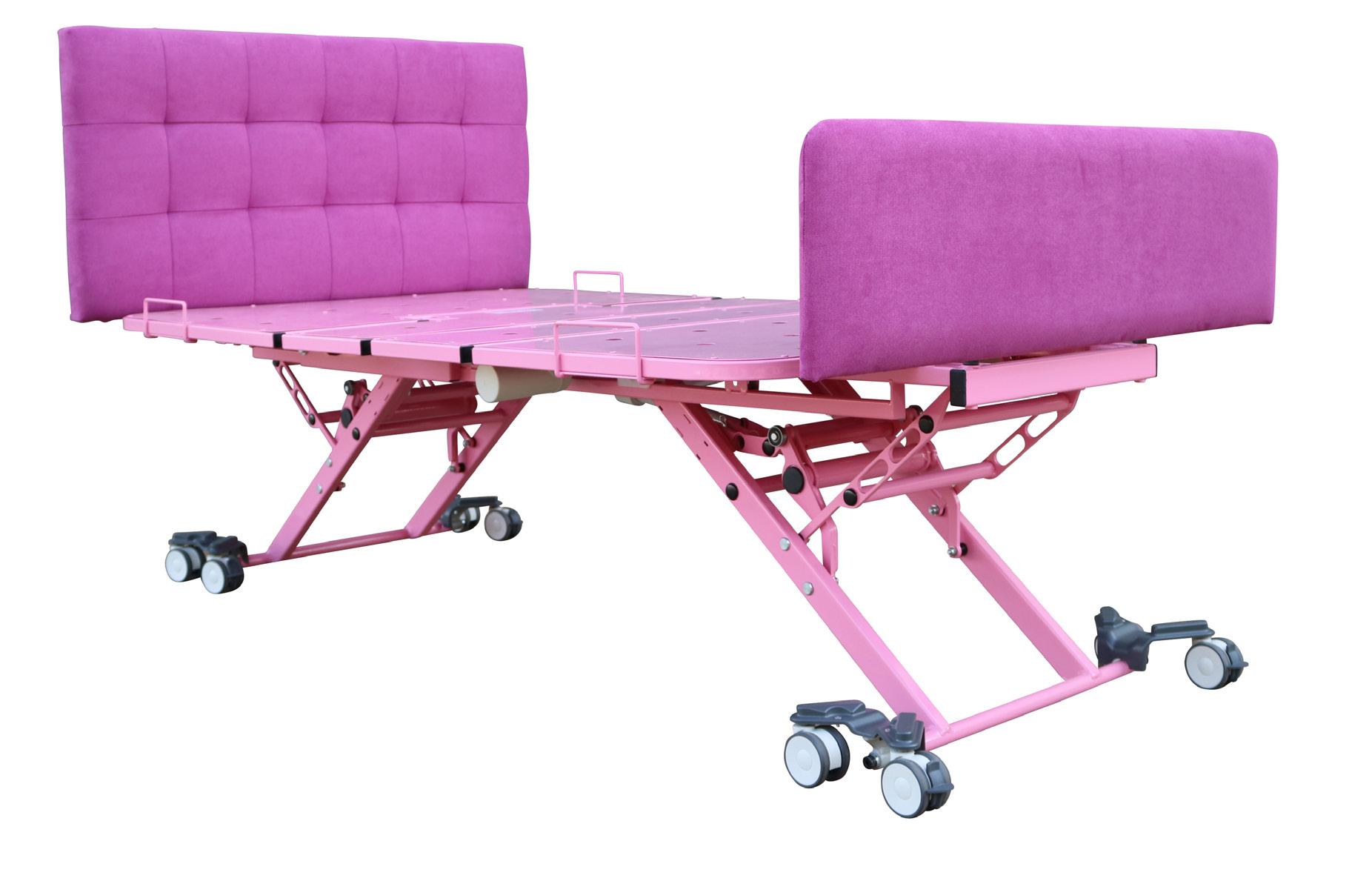


Create your style Choose your
Measure required length We
it
Connect with us Custom Bed Solutions: L i ke what e you s ee? Reo rder C ode: EN 9/PB/MSP
Healthcare furniture built for legends. T: 1800 282 001 E: sales@caremed.healthcare W: www.caremed.healthcare Pick your colour
width
build
for a legend
Looking for a different colour? Contact us for a copy of your Custom Bed Script Form.

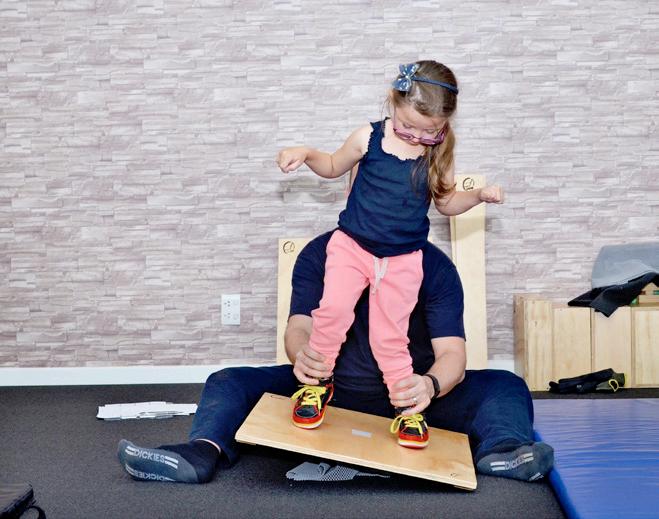
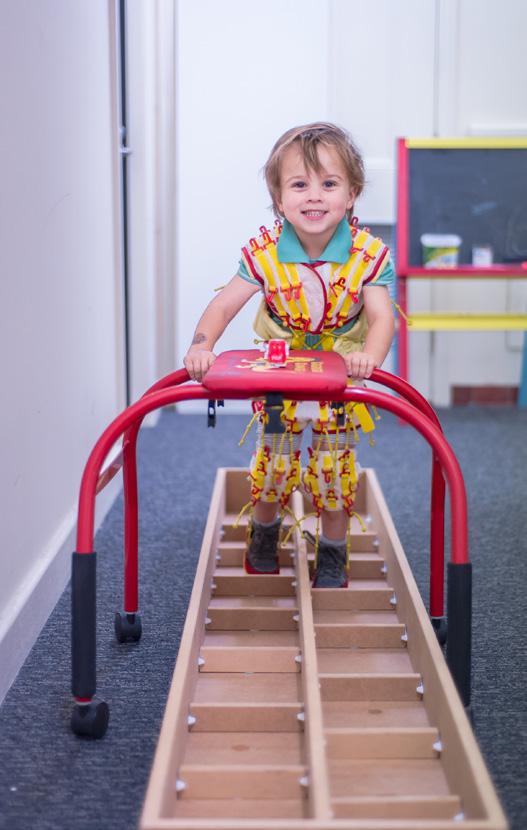

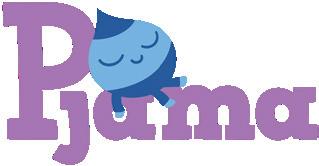
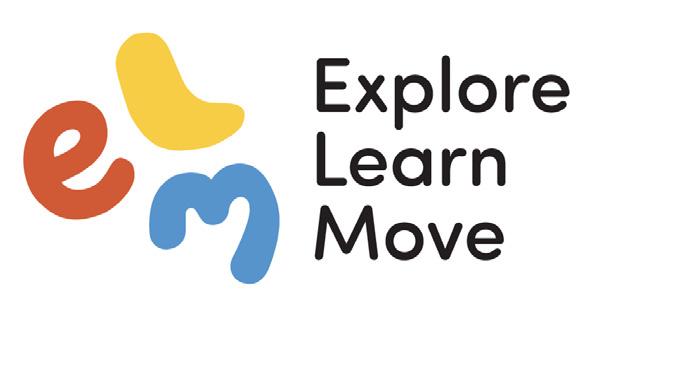



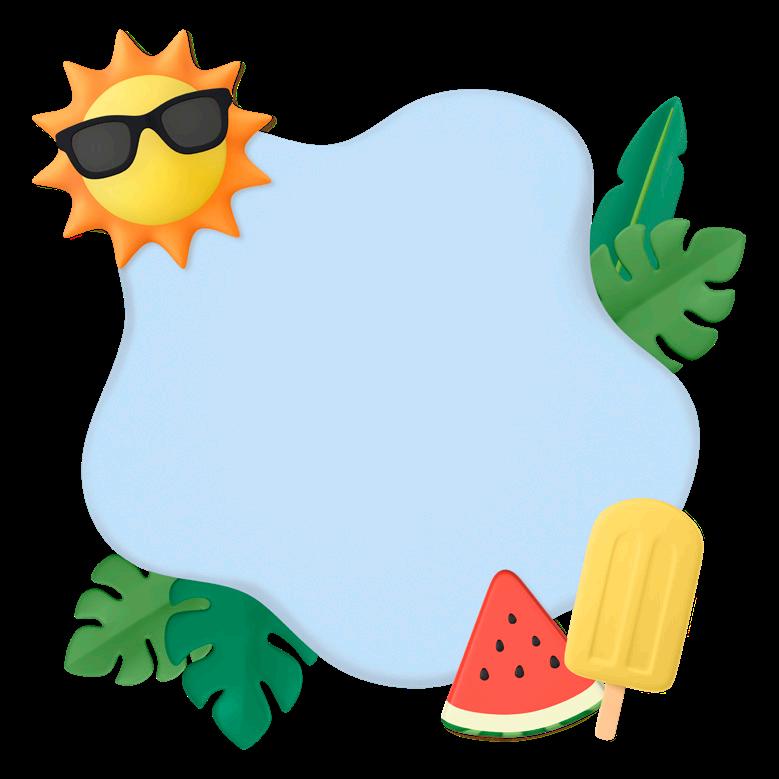
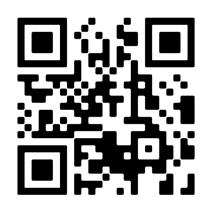
At BrightSky, you can shop all your specialist healthcare products from the comfort and privacy of your own home. Our convenient, one-stop online shop delivers an extensive range of continence, wound and skin care, nutrition, respiratory, mobility aids & equipment, pressure management and Personal Protection Equipment (PPE) direct to your door. Shop our reliable, discreet, home delivery service now at … A brighter way to shop your healthcare products Call us on 1300 886 601 www.brightsky.com.au orders@brightsky.com.au To book your free assessment email admin@timmermansmethod.com.au or phone 0411 696 839 Adelaide • Melbourne Combining parent education and intensive therapy to unlock childrens’ potential. The new standard in Intensive Therapy CME | TheraSuit | Powerplate | Parent Education pjama.com.au Pjama Down Under Washable Convenient & discreet Soft & breathable A great solution for traveling, camps & sleepovers WHOLESALERS: BRIGHTSKY, EVERYHUMAN, MEDICALSTORE BEDWETTING SOLUTIONS Be independent using Pjama’s Bedwetting Alarms & Protection Pyjamas Removes stress & anxiety • Get school ready • For as little as $19 a week • Fun therapy activities and resources • Perfect for supporting school readiness explorelearnmove.com.au 8 Prize Packs. More than $6000 of prizes on offer. Moremerrierthe SUMMER GIVEAWAY! SCAN TO ENTER 60 SOURCEKIDS.COM.AU
Getting to know YOU
The start of the school year can be a nervous time for your child, but also for us parents. Will they make friends? Will their teacher understand them? Be sensitive to their needs? Be kind and patient? Will they give them the supports they need to thrive? Can they spot the signs of dysregulation before a meltdown hits?
Knowledge as they say, is power. You are the expert on your child, and most teachers are only too happy to download all that insight into what makes your child tick and what strategies work, and what don’t.
Association for Children with a Disability has created this handy guide to creating your own “All About Me” resource for your child, setting them up for the best possible year at school.
Creating an All About Me student profile not only helps your child’s teacher, but is a handy reference for other staff who support them, such a PE teachers, librarians, health staff and coaches, and is an invaluable easy-read resource for relief teachers.
This is a basic template to help get you started. There are many examples online with different ideas for how to make it reflect your child’s personality and interests. Whatever style you choose, try to keep it easy to update each year.
By Rebekah
Education Support Planner
WHAT I NEED AT SCHOOL
This is a summary of key information about my needs at school. It summarises my interests, strengths, and what helps me to feel comfortable and to learn.
Name: Date: ABOUT ME
My special interests and motivators are:
I am good at, and feel confident about:
I might need support with:
SUPPORTING ME THROUGHOUT THE DAY
The best communication method for me is:
Types of schedules, social stories and/or advice that help me:
Items or strategies to include in my ‘sensory/self-regulation’ toolbox: What else helps me to feel comfortable at school and motivated to learn:
SUPPORTING ME IN STRESSFUL SITUATIONS
Situations I may find stressful or hard (e.g. being told I am wrong in front of the class):
Strategies to address situations that I can find stressful or hard:
Signs I’m becoming overwhelmed:
Strategies to help if I am becoming overwhelmed:
If there are changes to the school day (e.g. My teacher is away), these are other teachers and peers I work well with and situations that may stress me:
OTHER HELPFUL INFORMATION
Any other helpful information available about me:
Therapists consulted in preparation of this document:
Document review date:
: acd.org.au/about-me-student-profile // acd.org.au/education-support-planner
Devlin
YOU CAN DOWNLOAD THE TEMPLATES HERE
It can feel like you’re just getting into the groove with your child’s teacher… and then end of year comes. This handy one-pager can help get your child’s new teacher up to speed, fast!
ISSUE 33 SUMMER 2022 61 SCHOOLING
BE REASONABLE BE
REASONABLE
Schools have legal obligations to support your child’s access and participation at school by making what’s called “reasonable adjustments”.
There are many ways that school can support your child’s learning in partnership with you. An inclusive approach by schools can inform a range of decisions – from building works, to new programs, curriculum planning, professional development and the venue for school camps.
At the classroom level, teachers can make plans and choose teaching and learning strategies that are inclusive and
meet the needs of all students, including those with disability.

WHAT ARE REASONABLE ADJUSTMENTS?
Under the Disability Standards for Education, schools and education providers must make reasonable adjustments so that students with disability can participate on the same basis as other students. This can include making changes to the curriculum and programs, teaching approaches, the classroom, or accessing support services. For an adjustment to be reasonable, it has to be fair to everyone involved.
Working in partnership with your child’s school is always the best course of action. But what adjustments can you ask for and how do you go about it?
62 SOURCEKIDS.COM.AU
Adjustments made to support students with disability can also be helpful to other students as well. Professional development for school staff can help to build capacity across the school, to better meet the needs of all students.
Schools can make many different kinds of adjustments to meet your child’s needs, in many different areas. For example, adjustments can be aimed at supporting your child’s: Academic progress.
Personal or medical care needs.
Participation in school activities. Communication.
Physical development and therapy. Social learning and inclusion.
If an activity, facility, service or program cannot be adjusted or made accessible or suitable for your child, the school is legally required to offer an alternative comparable to what is offered to students without disability.
New approaches to supporting students with diverse learning needs are being developed all the time. Your input and ideas are also of great value, as you know your child best. You should feel confident to offer them through the Student Support Group and in communication with your child’s teachers.
WHAT ARE SOME EXAMPLES OF REASONABLE ADJUSTMENTS?
TAILORING THE TEACHING APPROACH
• Choosing activities for the whole class with your child’s access needs in mind.
• Modifying classroom activities, or the classroom itself, adjust the curriculum or adjust their teaching or assessment approaches.
• Breaking down information into smaller ‘chunks’ or asking your child to research using online picture searches rather than in the library.
• Writing down instructions rather than giving them verbally.
• Asking a series of questions to test knowledge, rather than your child writing an essay.
• Choosing different resources to suit different learning preferences. For example, counting blocks, activity sheets, a computer program or the student’s favourite toys.

MODIFYING THE CURRICULUM AND CLASSROOM TASKS
• Modifying the quantity or complexity of a task by allowing a student to complete the task in a different way from the rest of the class, or by giving a student more time to complete a task.
• Using tasks and materials that are age-appropriate and engage a student’s interests.
ADJUSTING THE PHYSICAL ENVIRONMENT
• Providing a visual timetable so that your child knows what is coming up.
• Rearranging the classroom. For example, if your child needs to sit closer to the front due to difficulties with hearing, sight or concentration, or creating a ‘quiet corner’ if your child needs time away from the noise and activity of the classroom.
• Allowing for ‘movement breaks’ in the playground if your child finds it difficult to sit still.
• Providing a specialised desk or chair, or other equipment to support your child’s physical development.
SUPPORTING YOUR CHILD’S COMMUNICATION, ACCESS AND CARE
• Providing access to assistive technology such as a communication aid or equipment, as well as training for teachers and support staff in how to use these to support your child.
• Training for staff around support plans for your child’s personal or medical care. A private area can be created within the classroom or elsewhere at school, where your child can be cared for safely and privately.
PROVIDING ACCESS TO THERAPISTS AND CONSULTANTS
• Therapists and consultants, such as speech pathologists, occupational therapists, physiotherapists, and psychologists, can work directly with your child, teacher, education support worker and school to give advice on modifications to the environment and curriculum.
“For an adjustment to be reasonable, it has to be fair to everyone involved.”
SUPPORTING SOCIAL DEVELOPMENT AND INCLUSION
• Using tools and strategies to encourage all students to communicate effectively.
• Teaching students the social skills they need to include each other well in play and in learning.
• Providing supervised or structured activities for students who find recess and lunch stressful.
SUPPORTING POSITIVE STUDENT BEHAVIOUR
Behaviour Support Plans can help schools to provide a safe and respectful learning environment for all students and staff.
Behaviour Support Plans can be developed by your child’s Student Support Group in consultation with other relevant staff or professionals.
This information is reproduced with permission from the Association for Children with a Disability (ACD) who’ve been advocating for children with disability for more than 40 years. Visit acd.org.au
“This can include making changes to the curriculum and programs, teaching approaches, the classroom, or accessing support services.”
SCHOOLING ISSUE 33 | SUMMER 2022 63
Christmas GIFT GUIDE

While Santa always seems to know the right thing to get, our kiddos and young adults can be tricky to buy for sometimes. Here’s a helping hand to make your Christmas gifting that much easier.

1 | Kidzta – more fun, less stuff
Sick of explaining to people what your child needs/wants for Christmas, birthdays and beyond? Kidzta helps you create wish lists of presents your kids will actually like, which can then be sent on to relatives or friends. It even allows you to split up expensive items so multiple people can chip in. We’ve created a “Source Kids recommends” list on there to make gifting even easier. kidzta.com
2 | iFly - For the adrenaline junkie!
Safe, fun and accessible for people of all abilities, the iFLY team offers adrenalinedriven flights for all. Indoor skydiving is a great experience to try with friends and family. With a glass tunnel, it allows spectators to watch and cheer on from the front seats as you free fall and enjoy the freedom of flight. RRP from $79. iflyworld.com.au
3 | The Paeds Ed Family First Aid Kit
Ok, so it’s not a present that will have the kids in raptures, but we all know how important it is to have the right products in those vital moments. The Paeds Ed Family First Aid Kit is robust, functional and versatile - the clearly labelled modules can be taken out and thrown in a backpack or handbag when taking the kids on an outing, and are easy to identity and grab when incidents occur. RRP $130. paeds.education

4 | Sonic the Hedgehog Lego

Win some serious cool parent points (and relive your youth) with Sonic the Hedgehog Lego. This 1125-piece set recreates all the authentic details from the Green Hill Zone including palm tree, bridge loop, rings and screens. Step-by-step building instructions are included, and just like in the game, you collect Chaos Emeralds as you progress. Recommended for 18+. RRP $129.99. justbricks.com.au
5 | We don’t talk about Bruno lego Disney’s Encanto fans of all ages will love
The Madrigal House. The kit features a threelevel house, a sticker sheet for decorating it, printed building instructions plus digital instructions, which help kids zoom, rotate and see the model on screen. RRP $79.99. justbricks.com.au
6 | Pirate attack water table
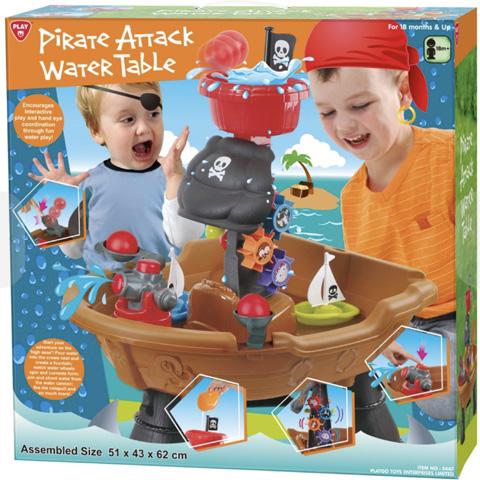
What’s better on a summer’s day than sensory fun with water play? Fire the catapult, create a fountain, watch the wheels spin and even shoot water from the cannon. This compact water table will keep the kids happy, cool and entertained… all while working on a bunch of fine and gross motor skills, but don’t tell them that! $39. bigw.com.au
practical gift for carers
7 | Mini jelly fish lava lamp
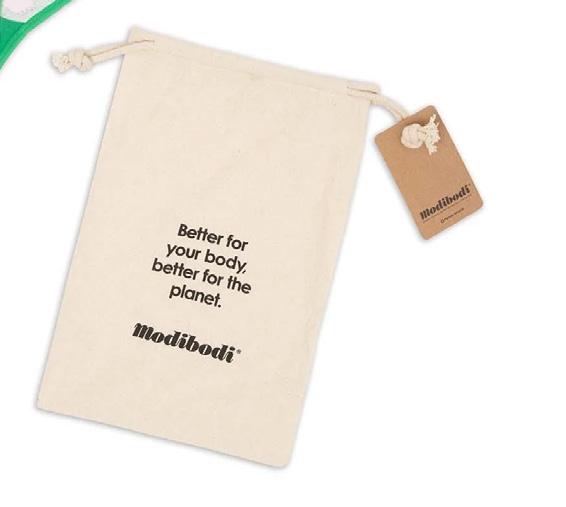
This jellyfish lamp is a fantastic addition to any sensory space. Perfect for emotional regulation and soothing away stress, its compact size makes it ideal for school desks or bedside tables. There are a bunch of different themes to choose from including fish lamp, vortex, volcano, even fairies and unicorns. RRP From $34.95. sensorypoodle.com.au
8 | Don’t forget the
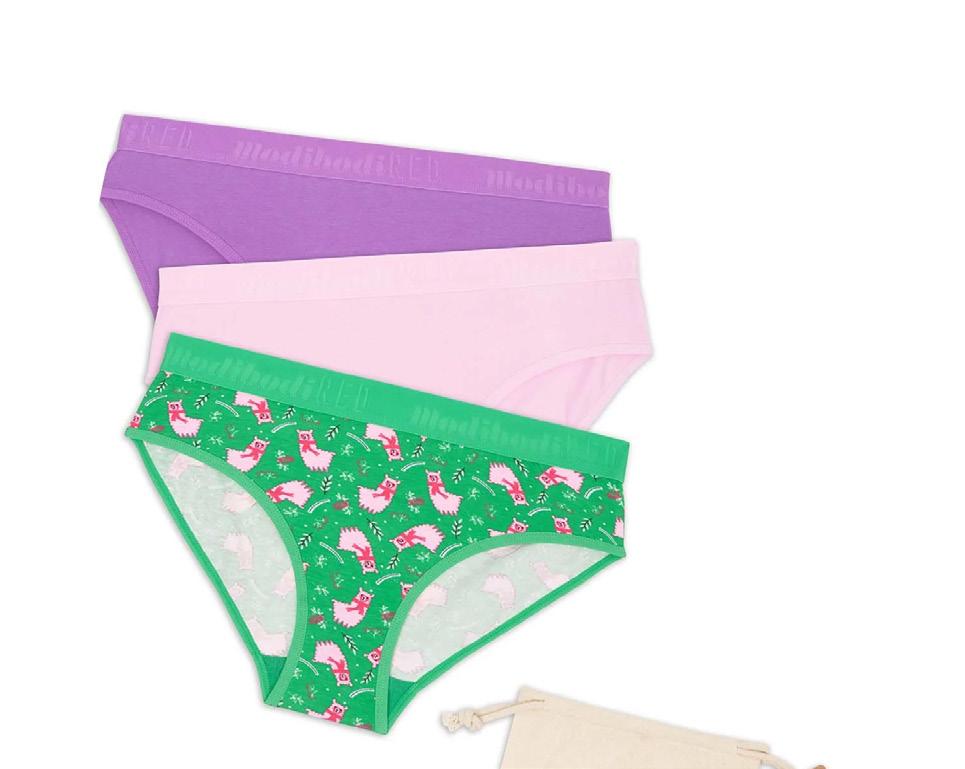
undies!
What’s Christmas without the gift of undies?! These fabulous limited-edition undies from Modibodi are the planet-friendly way to period. Comfortable, reliable and dry, they even come with a waterproof bag for easy use. RRP $160.20 modibodi.com
6 3 4 8 64 SOURCEKIDS.COM.AU GIFT GUIDE
The



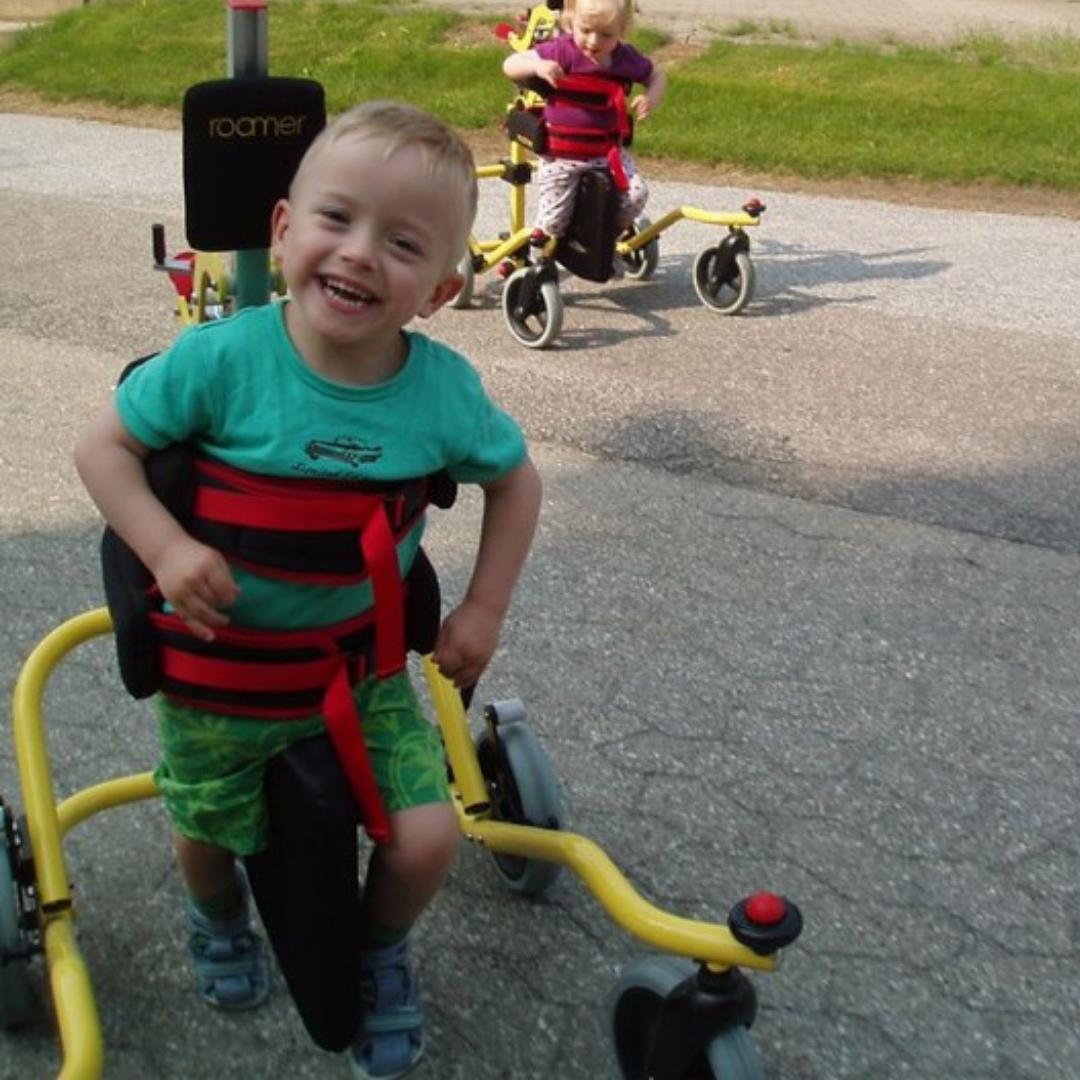

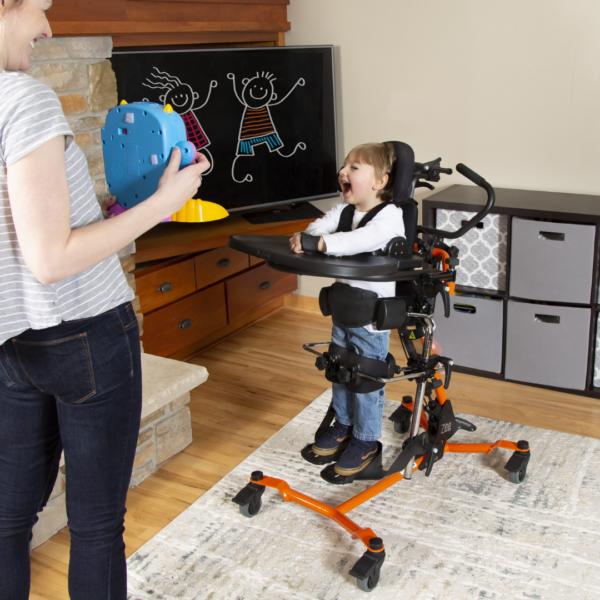
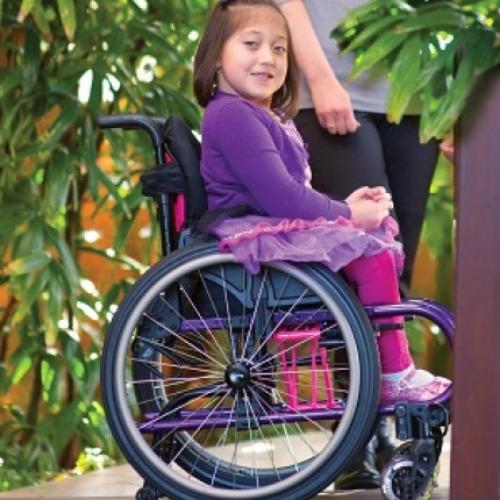
M O R E T H A N T R I K E S & F R A M E R U N N E R S www.dejay.com.au therapy@dejay.com.au 02 9838 8869 H e l p i n g f a m i l i e s f o r o v e r 3 5 Y e a r s
& Watches Reads
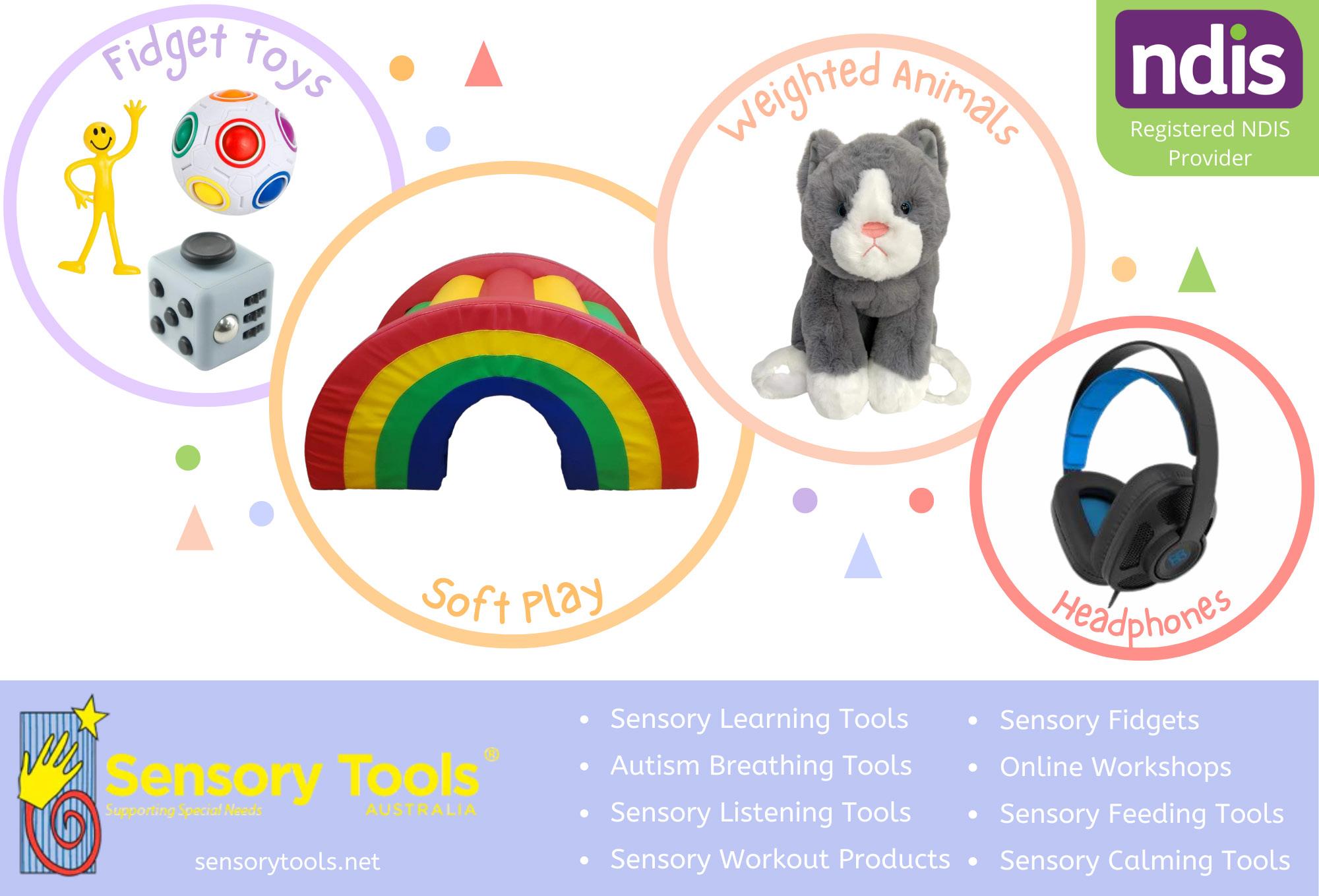
Books and shows on our radar right now…
FREDDIE AND THE FAIRY
CHLOE HAYDEN
–

DIFFERENT, NOT LESS
An empowering lived-experience guide to celebrating and supporting neurodivergence from 24-year-old actor, social media star and disability advocate Chloé Hayden, who stars in the Netflix hit reboot of Heartbreak High chloehayden.com.au
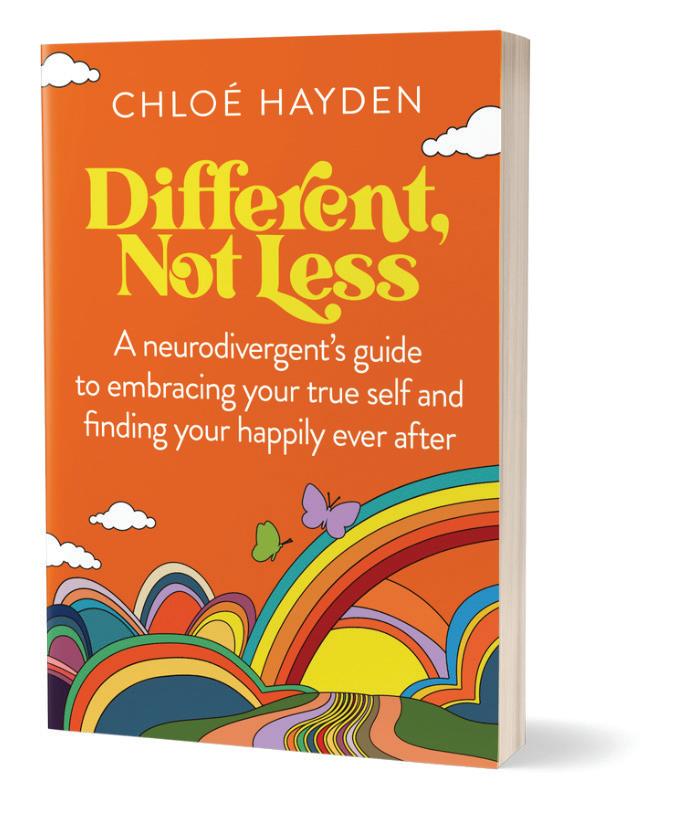
Freddie and the Fairy is written by beloved author of The Gruffalo, Julia Donaldson, and illustrated by Karen George. Fairy Bessie-Belle wants to grant Freddie his wish, but Bessie-Belle can’t hear very well, and Freddie tends to mumble, so the wishes aren’t turning out quite as planned! The fun rhyming tale normalises the experience of being deaf or hard of hearing and highlights how children can find ways to communicate with each other. booktopia.com.au
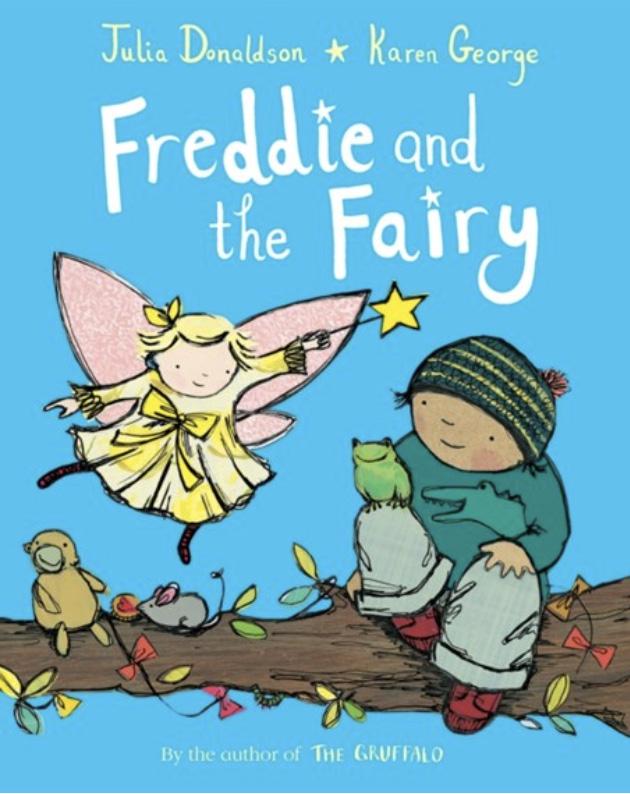
66 SOURCEKIDS.COM.AU
PERFECTLY NORMAN
Perfectly Norman shows us there's nothing better than celebrating what makes you unique. It tells the story of a little boy who grows wings, but is afraid to show them to the world, covering them up with a big coat. Can Norman summon the courage to be himself? booktopia.com.au
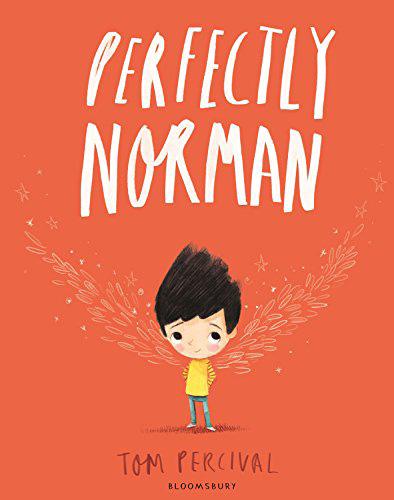
Listen!
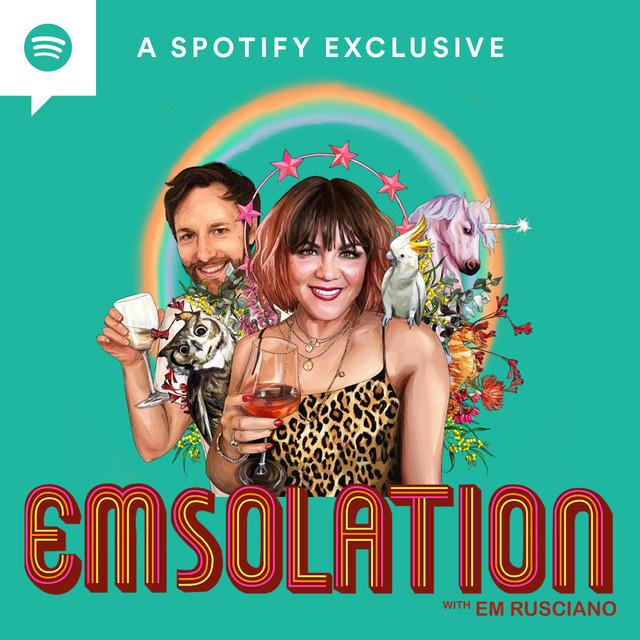
EM RUSCIANO’S PODCAST ABOUT ADHD
If you loved Em Rusciano’s address to the National Press Club of Australia about her own diagnosis and discovery of ADHD, you must take a listen to her raw and honest discussion with Dr Perry Mandanis. Dr Mandanis is a psychiatrist, therapist and coach who draws on 30 years of experience to deliver plain-speaking advice and tips on ADHD and anxiety. spotify.com (@emsolation)
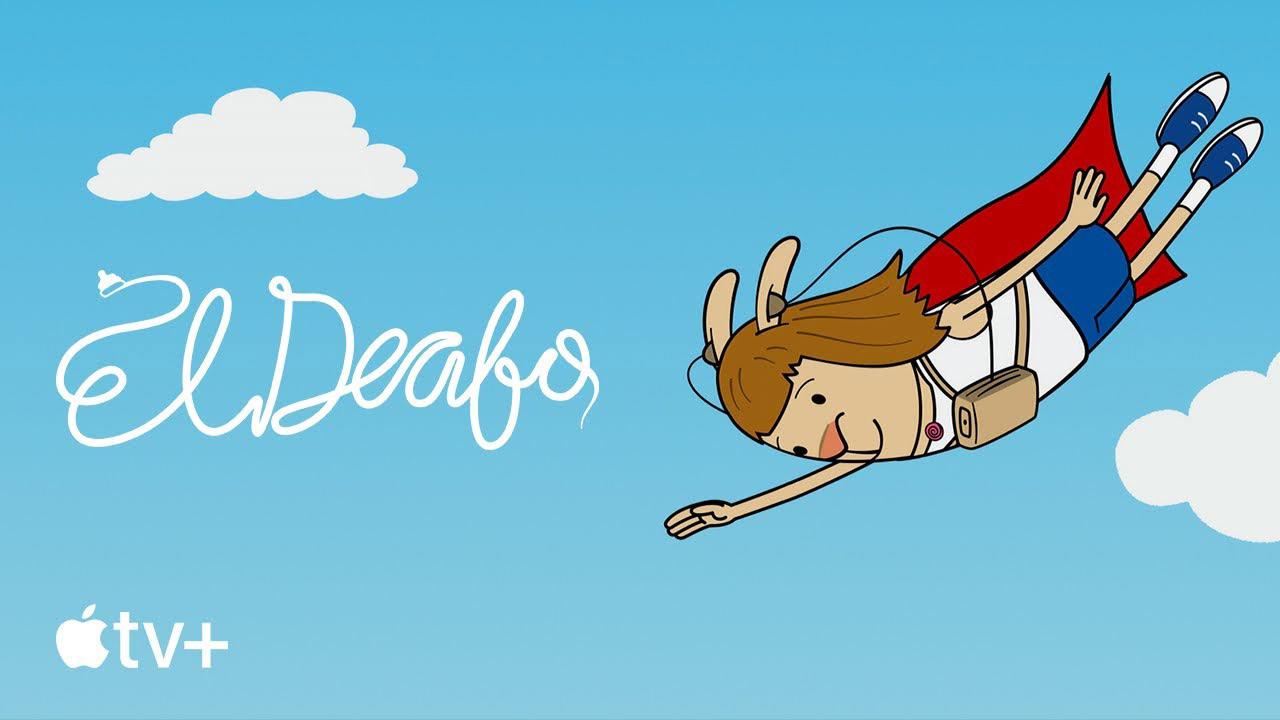
EL DEAFO
First it was a book, now it’s an animated series. Written by deaf author, Cece Bell, which is also the name of our heroine, El Deafo follows Cece as she navigates the world growing up with a hearing aid and being seen as different. The equipment and technology superheroes use reminds Cece of her own phonic ear equipment – so she pretends to be a superhero with super hearing, called El Deafo. You can watch the series on Apple TV now and the trailer here: youtube.com

SOURCE MAMA
I NSPIR E, EMPOWER , UNITE
We invite you to join the most exclusive, inclusive club Source Mama. Unapologetically candid, uncut + heartbreakingly real, whilst uniting, elevating and fiercely empowering. Join the greatest pride of lioness in our community that supports mums raising children with disability and additional needs.
Mums raising children with a disability
Join the
Mama community now!
Source
SOURCEMAMA.COM.AU @sourcemama ISSUE 33 | SUMMER 2022 67 WATCH, READ & LISTEN
Parks Vic
parks.vic.gov.au
Accessible canoe launcher – Mildura
OUTDOORS GREAT AGAIN Making the
Victoria's first all-accessible floating pontoon and canoe launcher is at Psyche Bend in Kings Billabong, Mildura. The facility provides a stable platform on the static jetty, a secure ramp with hand rails and supportive rollers for people with mobility limitations to easily launch into the water (and get out safely).
Accessible accommodation – Wilsons Prom
Wilsons Promontory National Park offers modified accommodation and accessibility equipment to make it easier for people with disability, families and carers to stay and enjoy the spectacular natural beauty.
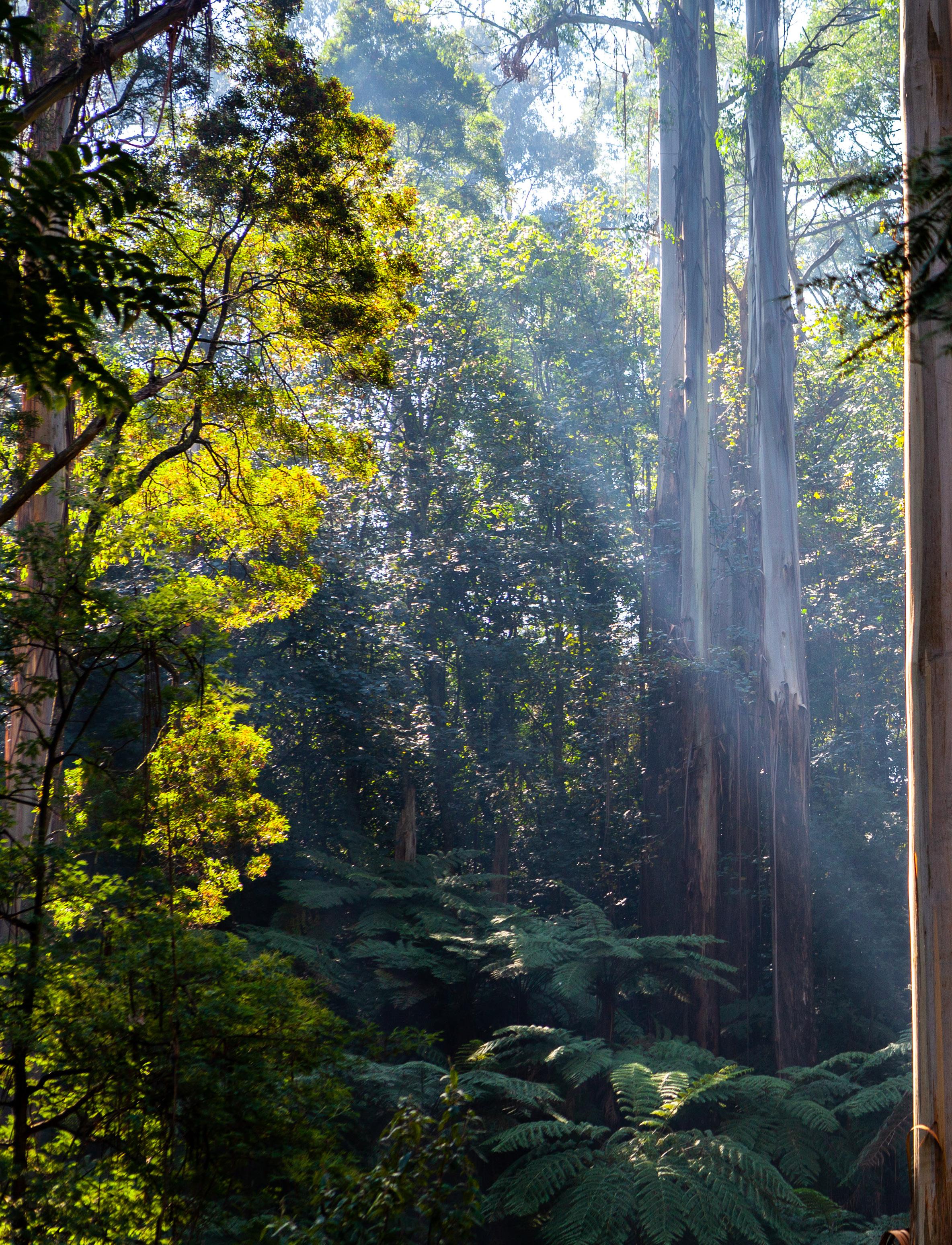
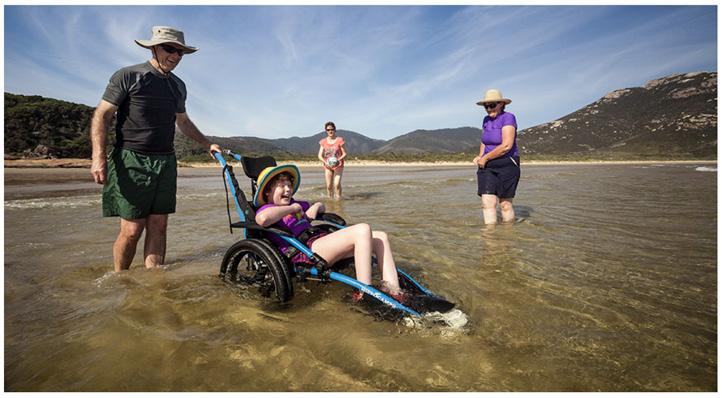
Wheelchair to boat access - Patterson River and Tooradin Jetty
A free electric hoist at the Patterson River boat ramps assists wheelchair users to transfer safely in and out of boats.
All abilities walk video series
Accessibility advocate Ryan Smith details some of Parks Victoria’s best all abilities walks, inspiring people to be active and connect with nature.
All-terrain wheelchairs
TrailRider all-terrain wheelchairs are allowing visitors with limited mobility to access more rugged walking trails in a number of Victoria’s parks. Local staff can provide expert advice on the best routes for chairs. A minimum of two chair operators are required. Free to use, but please book in advance.
National Parks have come a long way in recent years with accessible tracks and adventurous additions like accessible canoe launchers, free loan all-terrain wheelchairs and assistance dog-friendly tracks.
Assistance dogs in parks
Assistance dogs are welcome in Parks
Victoria parks and reserves. Entry requirements apply for parks and reserves that are usually dog prohibited, such as national parks. You do not need to notify anyone of your visit, however when visiting the park, handlers are required to carry evidence that the dog is an assistance dog.
Autism-friendly visits
Social stories, created in partnership with autism peak body Amaze, are available for Brimbank Park, Buchan Caves, Jells Park, Serendip Sanctuary and Wilsons Prom. They feature photographs and simple text to explain what may be seen and experienced during a visit.
Beach wheelchairs
Beach wheelchairs are enabling visitors to explore many spectacular beaches and walking trails that have sandy surfaces.
Blind or vision impaired visitors
The Walk in the Park program provides group walks in parks for visitors who are blind or vision impaired.
Parks SA
parks.sa.gov.au
Beach wheelchairs
Sandcruiser and Sandpiper wheelchairs are available for hire for use on Normanville Beach in Encounter Marine Park. Free of charge, however a donation of $20 is encouraged by the Normanville SLSC.
Accessibility Trike
Belair National Park offers visitors free use of the MT Push, an all-terrain assisted wheelchair with mountain bike-style tyres. The MT Push is a perfect partnership for both the rider and the assisting person pushing –offering comfort, safety and ease of use.
TrailRiders
The District Council of Yankalilla have a TrailRider wheelchair available for free hire for up to three days that can be used in Deep Creek National Park.

68 SOURCEKIDS.COM.AU
Parks NSW
nationalparks.nsw.gov.au
Sydney and surrounds
NSW national parks offer some amazing wheelchair-accessible tracks. Around Sydney, Royal National Park and Sydney Harbour National Park have wheelchair access areas. On the outskirts of Sydney, Fairfax Heritage walking track provides incredible views along an easy path suitable for people with disability. Further north near Taree, Devils Hole lookout walk has a flat paved track that takes you to panoramic scenes of World Heritage-listed wilderness.
Bundilla accessible track, Thredbo – Perisher
Mostly flat with a small slope at the end, this short track is fully accessible and is great for walkers, cyclists, wheelchair users and families with young children in prams.
Accessible Kayak launch –Murray Valley Regional Park
All abilities can enjoy kayaking or canoeing using a wheelchair-accessible launch at Edward River Bridge picnic area.
Free to hire mobility chairs
NSW National Parks provides the allterrain TrailRider and Hippocampe mobility wheelchairs for visitors at Royal National Park, Morton National Park and Kosciuszko National Park. Free to hire.

Parks QLD
parks.des.qld.gov.au


Tactile indicators
Accessible parks in Queensland feature walking tracks with tactile indicators for visitors with vision impairment, as well as many other recreational activities.
Accessible fishing
Reel in a big one at Burrum Coast National Park on the wheelchairaccessible fishing platform.
Turtle spotting and animal watching
Spot a sea turtle from the wheelchairaccessible jetty on tropical Green Island. Or get closer to the state’s most fascinating creatures at Daisy Hill Koala Centre, Walkabout Creek Discovery Centre and David Fleay Wildlife Park with tracks suitable for all abilities.
Guide, hearing and assistance dogs in parks
Visitors with certified guide, hearing and assistance dogs in parks are welcome in all public areas of Queensland’s parks and forests.
Parks TAS
parks.tas.gov.au/explore-our-parks/ know-before-you-go/access-friendly
All-terrain wheelchairs
Cradle Mountain, Freycinet and Mount Field national parks have TrailRiders available for free-hire to explore the rugged tracks. Bookings essential.
Assistance animals
Guide Dogs and assistance animals are permitted in national parks and reserves, however an authority needs to be granted prior to arrival.
Parks WA
exploreparks.dbca.wa.gov.au
Accessible tracks and accessible fishing
Big Brook Dam, near Pemberton, is on the Karri Forest Explorer and provides a 4km sealed trail following the shores of the dam. There are accessible fishing platforms along the way.
The Brook Forest Path
Near Dardanup is a hidden jewel, featuring interpretive signs about flora and fauna on a 600m loop trail.
Karri Forest Explorer drive trail
We are thrilled that Queensland Premier, Annastacia Palaszczuk, has declared 2023 to be the Year of Accessible Tourism, announcing a $12 million investment “that will ignite change and create opportunities for Queensland tourism operators, including small to medium tourism businesses to build infrastructure and install technology to assist travellers with an impairment; awareness of accessibility needs and services; promoting accessible Queensland visitor experiences”.
The project is aimed at ensuring Queensland is a destination for people of all abilities.

Winds through some of the south west’s most magnificent karri forest around Pemberton. Big Brook Dam, Beedelup Falls and Cascades have accessible facilities.
By Kelly Wilton
QLD 2023 YEAR OF ACCESSIBLE TOURISM SCHOOLING ISSUE 33 SUMMER 2022 69
Bikes&trikes
Find
DISCOVERY SERIES TRICYCLES
Manufacturer: Freedom Concepts
Supplier: AC, BM, DJ, DO, PAFL, RM, TM
Up to 158kg
• Designed specifically to help children of all abilities to increase mobility and gain independence through cycling.
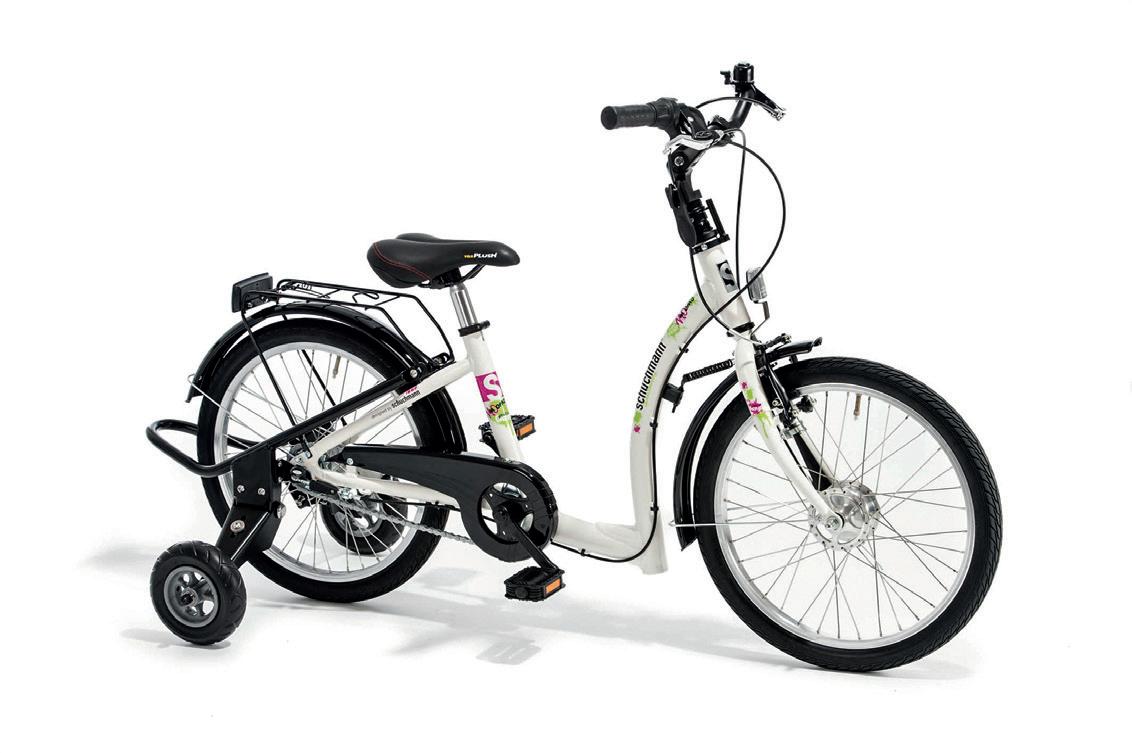
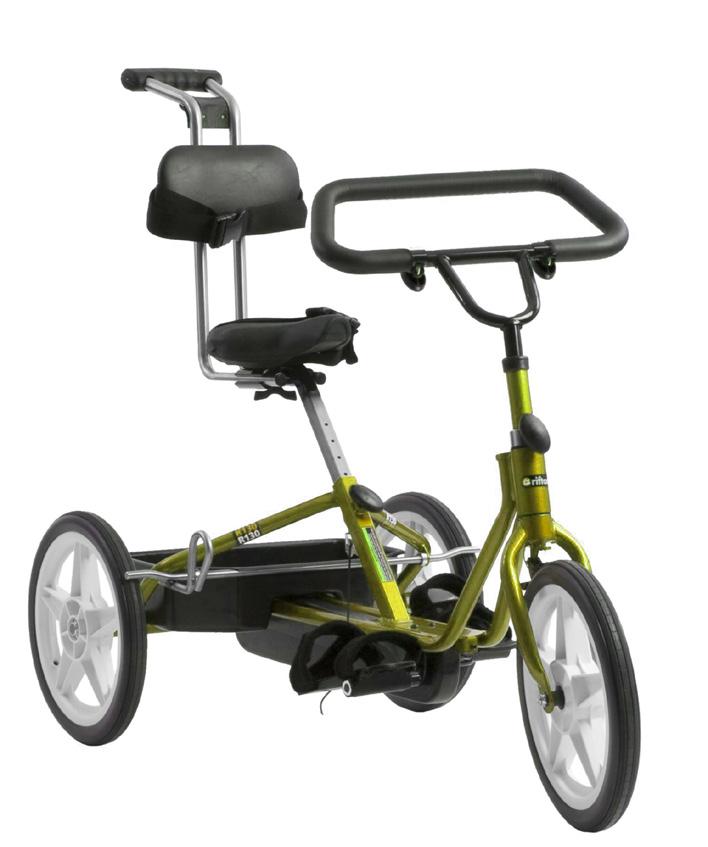
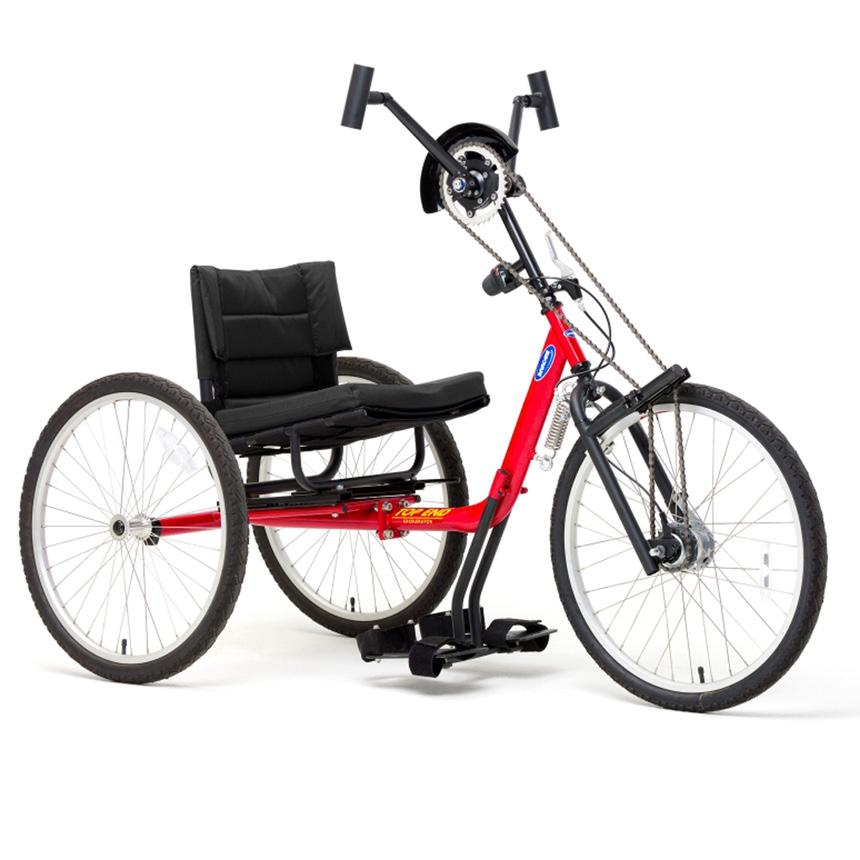
• Four models in the range to suit from 18 months and up, includes supportive seat to improve and maintain posture for efficient cycling.
• Powered option and new folding frame option for easy transport.
MOMO THERAPY BICYCLE
Manufacturer: Schuchmann
Supplier: AP, AX, DO, JJ
35 to 100kg
• Individual drive – from a rigid drive via a seven-gear freewheel brake hub, right up to an electrical support.
RIFTON ADAPTIVE TRICYCLE
Manufacturer: Rifton
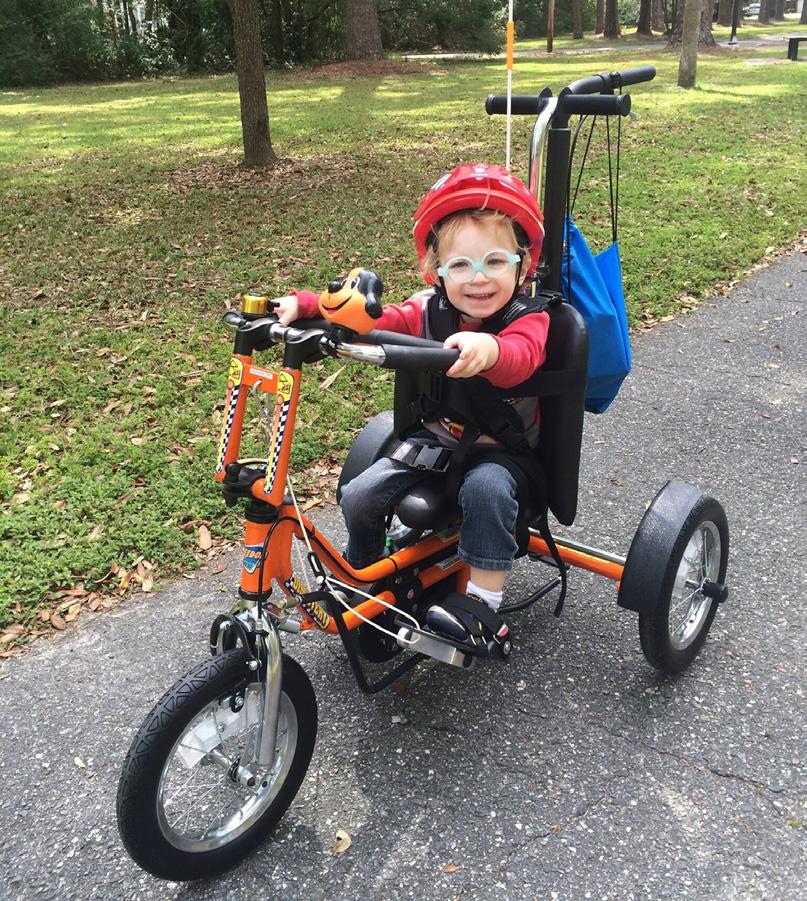
Supplier: AP, AX, DO, GTK, ILS, MO, MX, SAP, SNS
Up to 90kg
• The Rifton trike provides the therapeutic benefits of cycling including lower extremity strengthening, balancing skills, visual/spatial perception and social development.
• There is a hidden stop to prevent over-steering, and a low gear ratio that helps to slow the trike down.
• Features large, puncture-proof BMX-type wheels that are easy to use outdoors and indoors. No-tool adjustments make it easy as the child grows.
• Low access level as standard feature which permits the rider to climb on conveniently and also allows independent transfer.
• Stabiliser wheels can be adjusted from rigid to very soft which helps train balance, co-ordination and endurance.
INVACARE TOP END EXCELERATOR HANDCYCLE
Manufacturer: Invacare
Supplier: GTK, PM
Up to 158kg
• The Top End Excelerator is an ultramanoeuvrable upright three-wheel handcycle featuring ovalised ergonomic hand pedals and performance wheels.
• Stable, oval tube carbon steel frame construction with adjustable sliding seat makes transfers in and out easy.
• Features a Shimano® seven-speed internal hub with reversing drum brake and is capable of speeds up to 24km/h.
*See supplier list over page
the perfect ride to get you out and about this summer.
70 SOURCEKIDS.COM.AU A C Y C Y C Y C Y C Y A Children Youth Adults KEY
COME AND TRY!
MOMO TRICYCLE
Manufacturer: Schuchmann
Supplier: AP, AR, AX, DO, JJ
40 to 120kg
• The Schuchmann Momo trike is beautifully designed to provide both therapeutic and riding pleasure with features that optimise comfort and ease of pedalling.
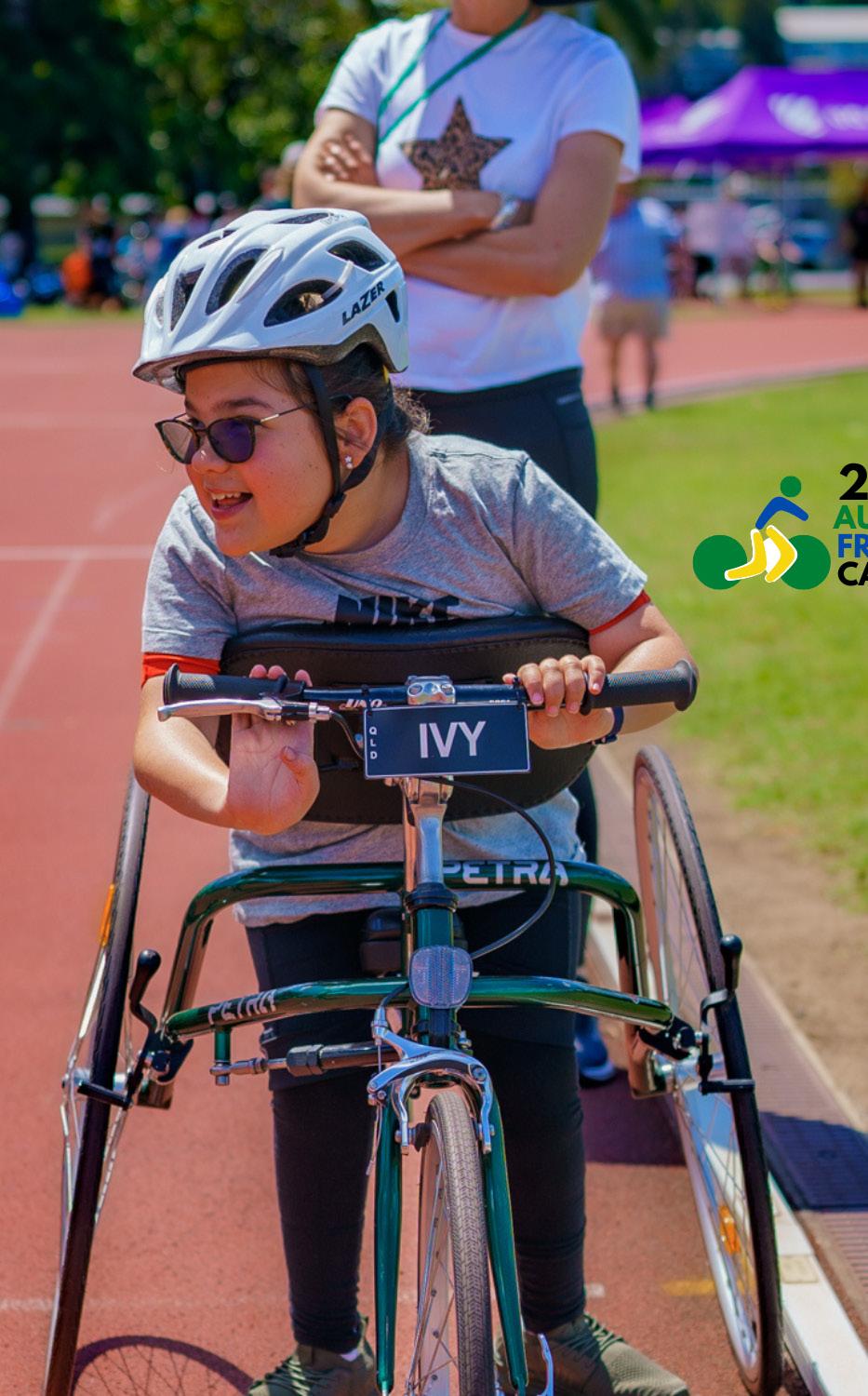

• Low centre of gravity, ultra-low bar and wide frame makes it easy to get on and off the trike safely and independently.
• Multi-directional seating adjustments, available in six sizes to suit all ages and a selection of frame colours.
PETRA FRAME RUNNERS
Manufacturer: ConnieHansen
Supplier: AC, BM, DJ, FW, PAFL
Up to 120kg
• The Petra Frame Runner is designed for multiple activities including basic mobility, play, family rides, sport and physical fitness.
• Available in seven sizes, catering for ages 18-months to adult, with a wide range of support options to suit all abilities.
• Rolls so freely that even children and adults using power wheelchairs can propel themselves by their own efforts.
WOLTURNUS ROADRUNNER
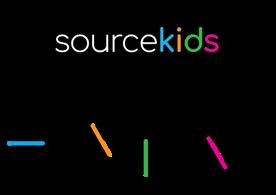
Manufacturer: Wolturnus
Supplier: DJ
Up to 120kg

• Wolturnus Roadrunner is purpose-built for frame running, an athletic discipline for people with disabilities such as cerebral palsy or other neuromuscular disorders.
• Lightweight, aluminium frame to be fast, but stable, on the track. Plus a front wheel disc brake for braking in all conditions.
• One frame with three wheel sizes to grow with you.
INVACARE FORCE 3 HANDCYCLE

Manufacturer: Invacare
Supplier: GTK, PM
Up to 113kg
• The Force 3 is perfect for those just starting out or looking to get into competitive handcycling.
• Features a sleek wrap-around frame that is stiff with high ground clearance, and has 27 speeds.
• Comes with performance wheels and Shimano components, adjustable back angle, seat and footrests.
NEW 27 SPEEDS
Most of these products will be on display at our expos: sourcekids.com.au/disability-expo
to a product specialist about your child’s individual needs
*Chat
A Y
ISSUE 33 | SUMMER 2022 71 PRODUCT REVIEW A C Y C Y
DC TRI ELECTRIC TRIKE
Manufacturer: DC Supplier: DC
Up to 120kg
• This e-trike doesn’t require pedalling, is highly manoeuvrable and has a zero turning radius.
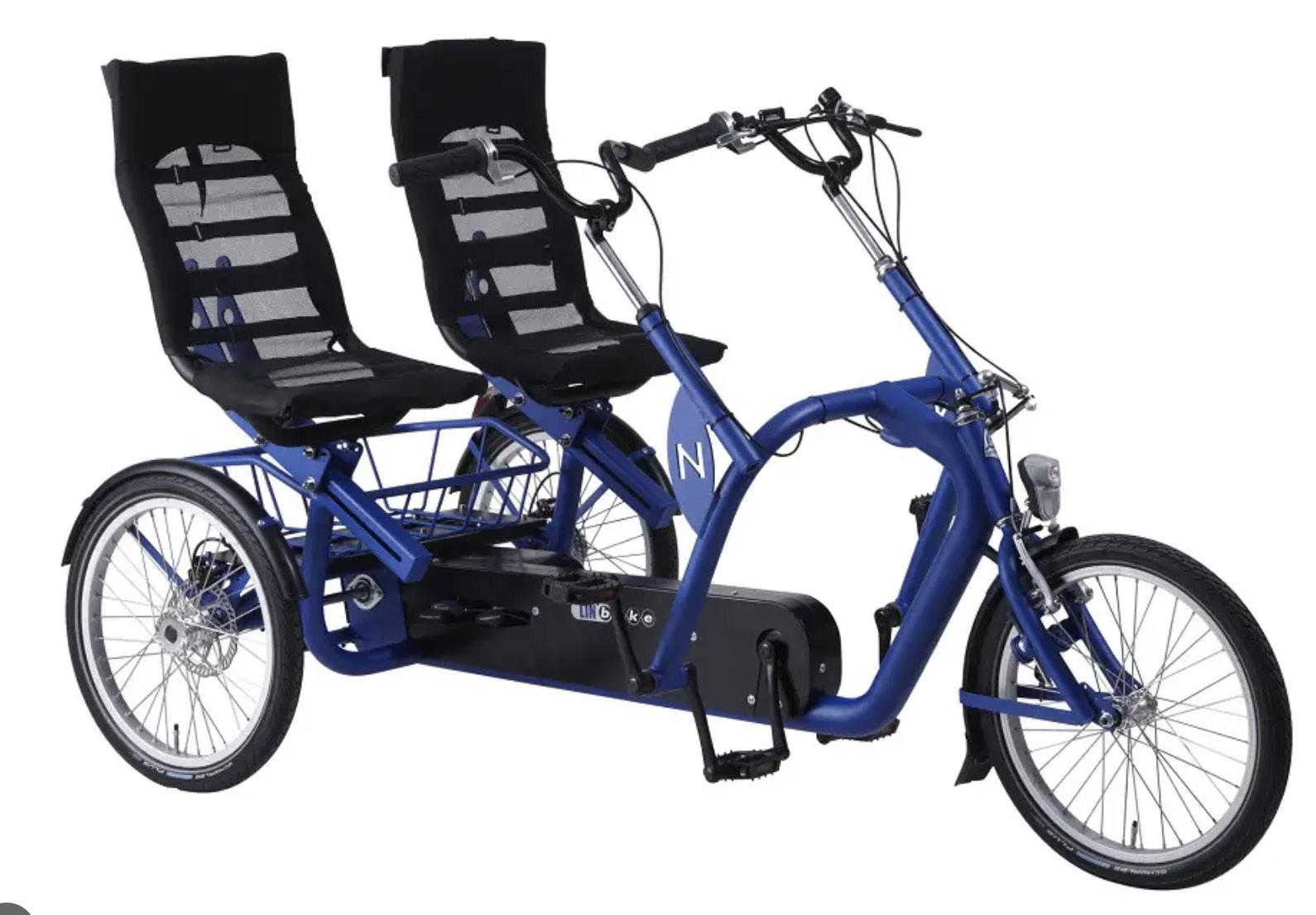
• Fun to ride and, with three wheels, it’s an easier and safer ride than any two-wheel bike or scooter.
• Serves the purpose of a mobility device without looking like one.
KRABAT RUNNER
Manufacturer: Krabat Supplier: MX
Up to 35kg and up to 70kg
• The Krabat Runner is a combined kick bike and walking bike for children with disabilities from three years of age.
• Detachable seat, transforming it from a walking bike to a kick bike.
• Both the seat and steering bar are height adjustable and the foldable steering bar makes it easy to transport.
TOOGETHER ADAPTIVE E BIKE
Manufacturer: Nijland Cycling
Supplier: DCB
Up to 220kg
• The Toogether makes it possible for passengers with a physical and/or mental disability to safely take a bike ride.
• Armrests and a seat belt are optionally available for the passenger seat. Both seats and handlebars are adjustable for a relaxed sitting position.
• Seven-speed Shimano. Passenger can pedal but does not have to.
TANDEM COUPLING SYSTEM
FOLLOW ME MOMO
Manufacturer: Schuchmann
Supplier: AP, AX, DO, JJ
40 to 80kg
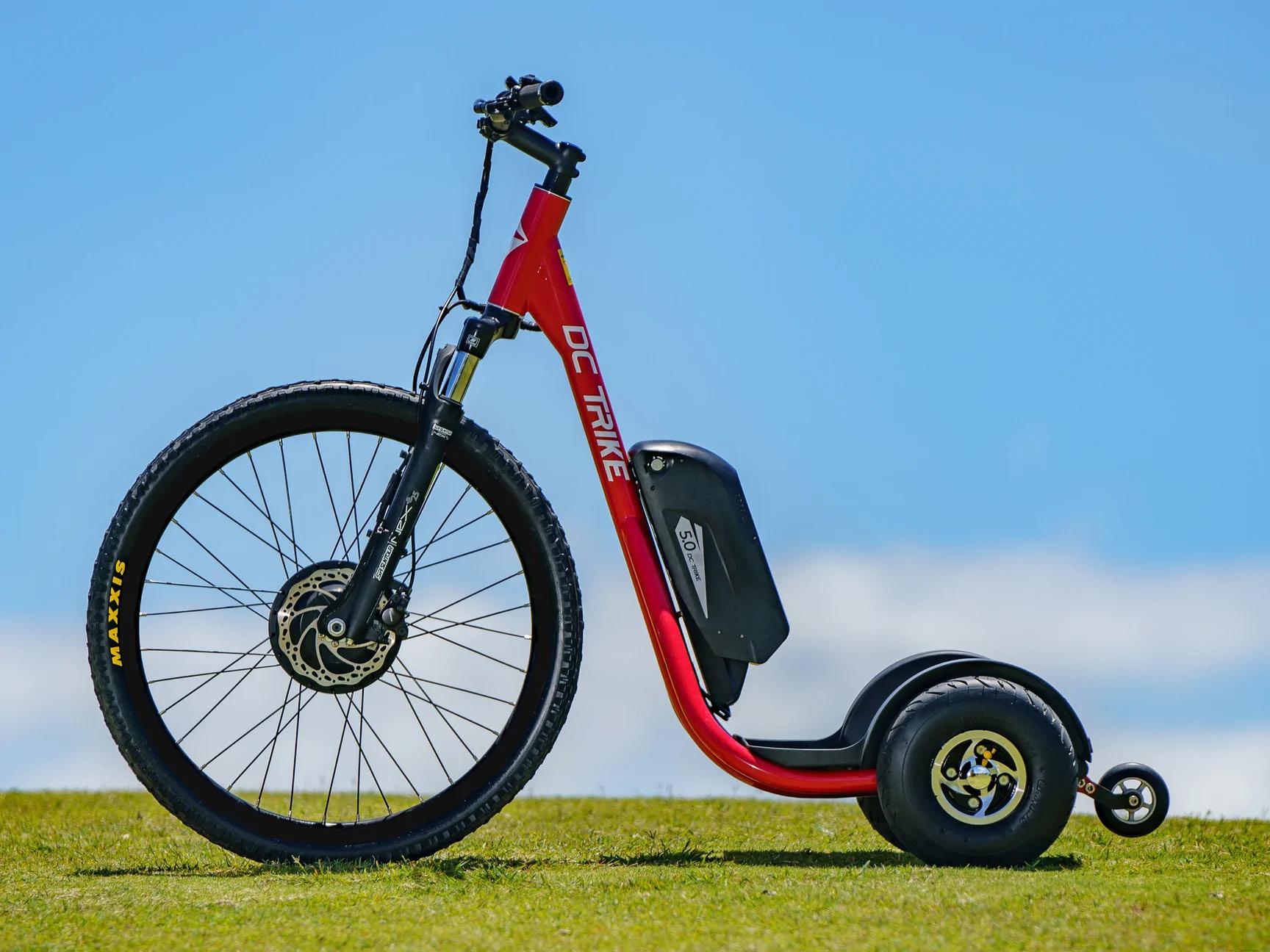
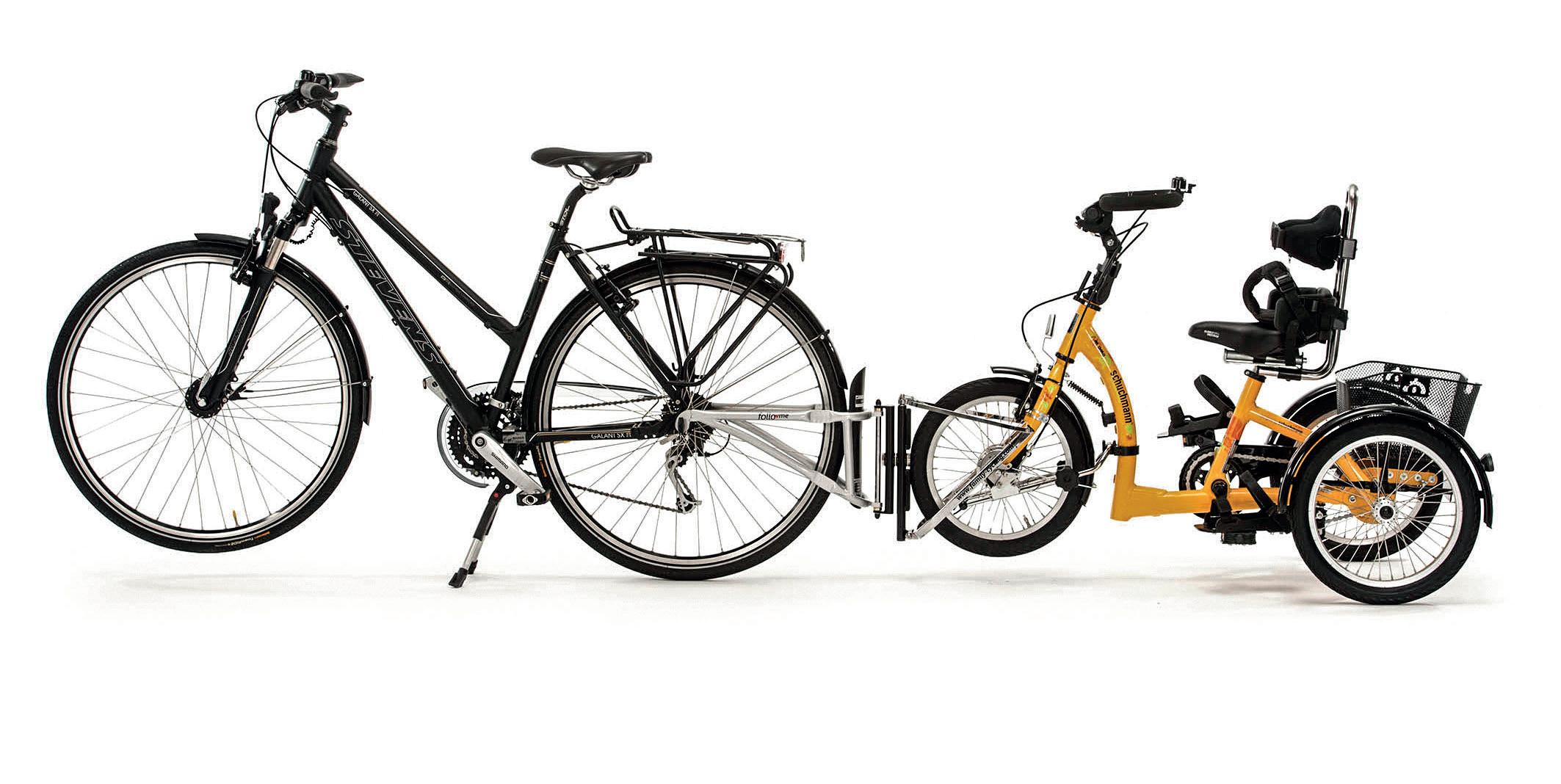
• Follow Me Momo is a clever parent-child tandem coupling system to connect the Momo Tricycle to any adult bicycle.
• Fits onto all 66cm and 68cm adult bicycles.
• Pivot function for safety – so the tricycle and parent bike can tilt independently of each other.
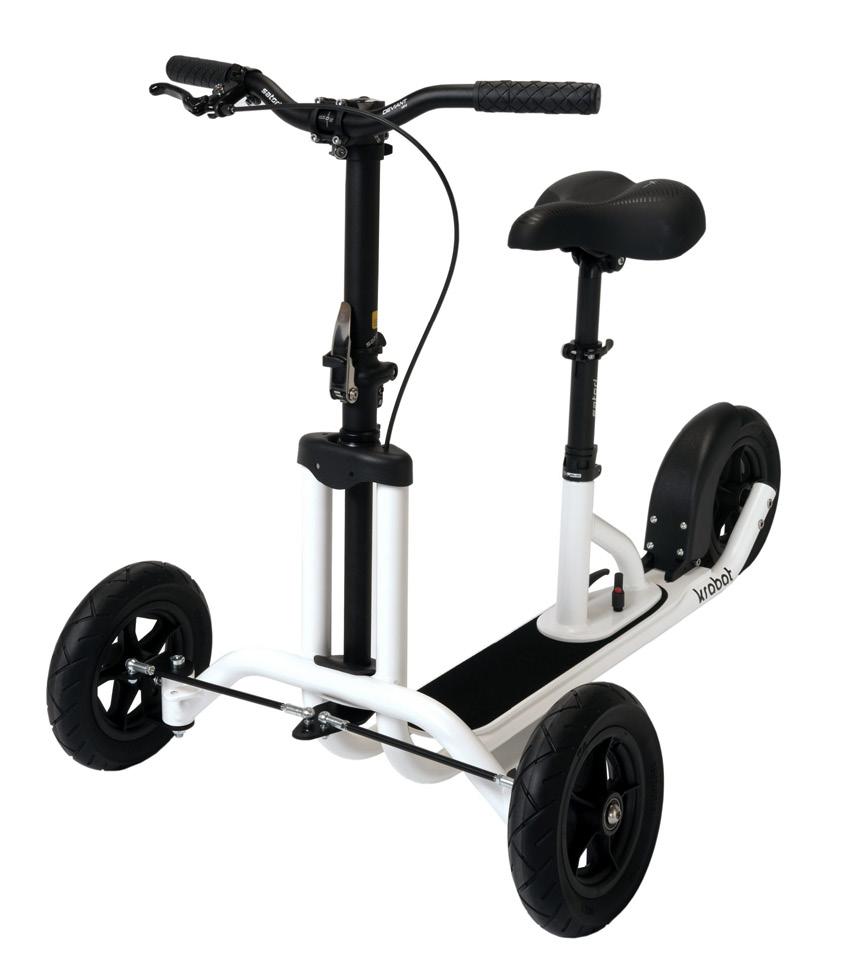
A C Y A C Y
72 SOURCEKIDS.COM.AU C Y C Y C Y A Children Youth Adults KEY
EDGE TRICYCLE
BALANCE BIKE –ROOKIE 12
Manufacturer: Kidvelo Supplier: KB
Up to 30kg
• The Rookie Balance Bike helps toddlers as young as two learn how to ride a bike without needing stabilizers or training wheels.
• Lightweight, with an adjustable seat range of 30-44cm and comes in four bright neon colours.
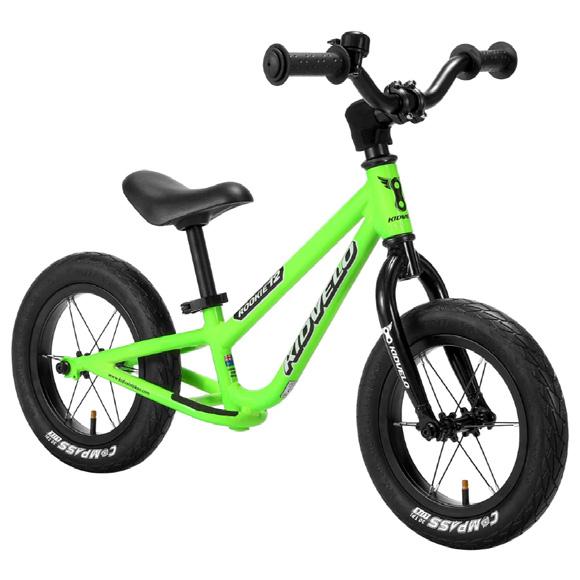
• Learning balance before pedals are introduced speeds up the transition to a pedal bike - it is far easier to learn one new skill than three at one time (such as balance, pedalling and braking).
EASY FOLD
IMP, TERRIER AND TMX TRIKES
Manufacturer: Theraplay Supplier: DJ, ILS 32 – 90kg (avail in 3 sizes)
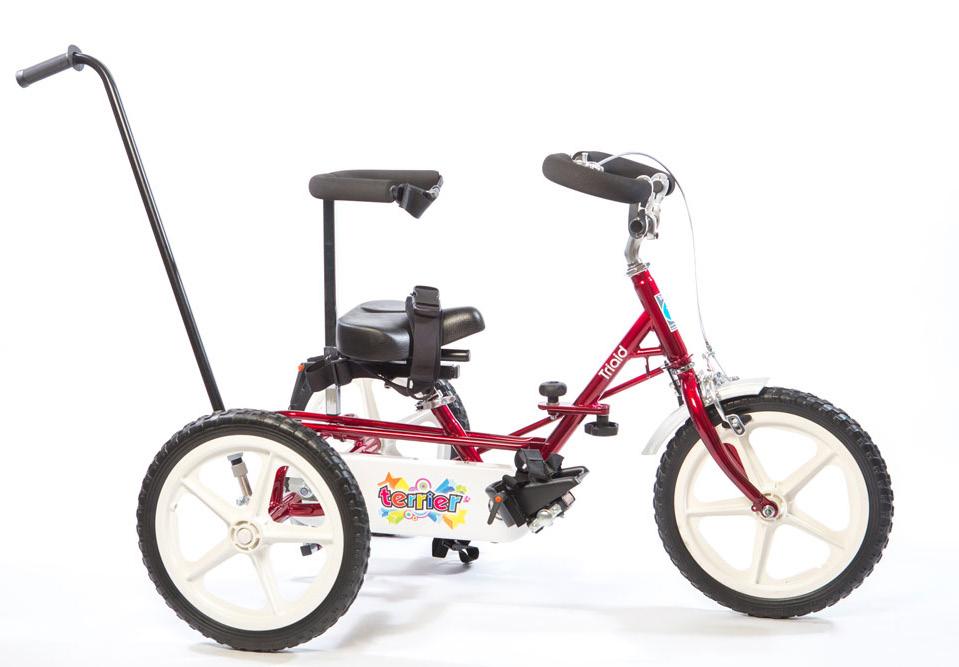
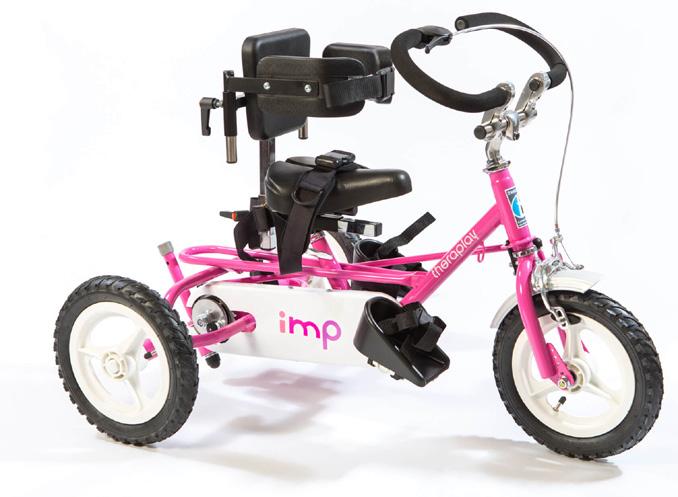
• Theraplay trikes are modular and adaptable to the rider’s needs, with optional positioning accessories to provide comfort and support if the rider needs it.
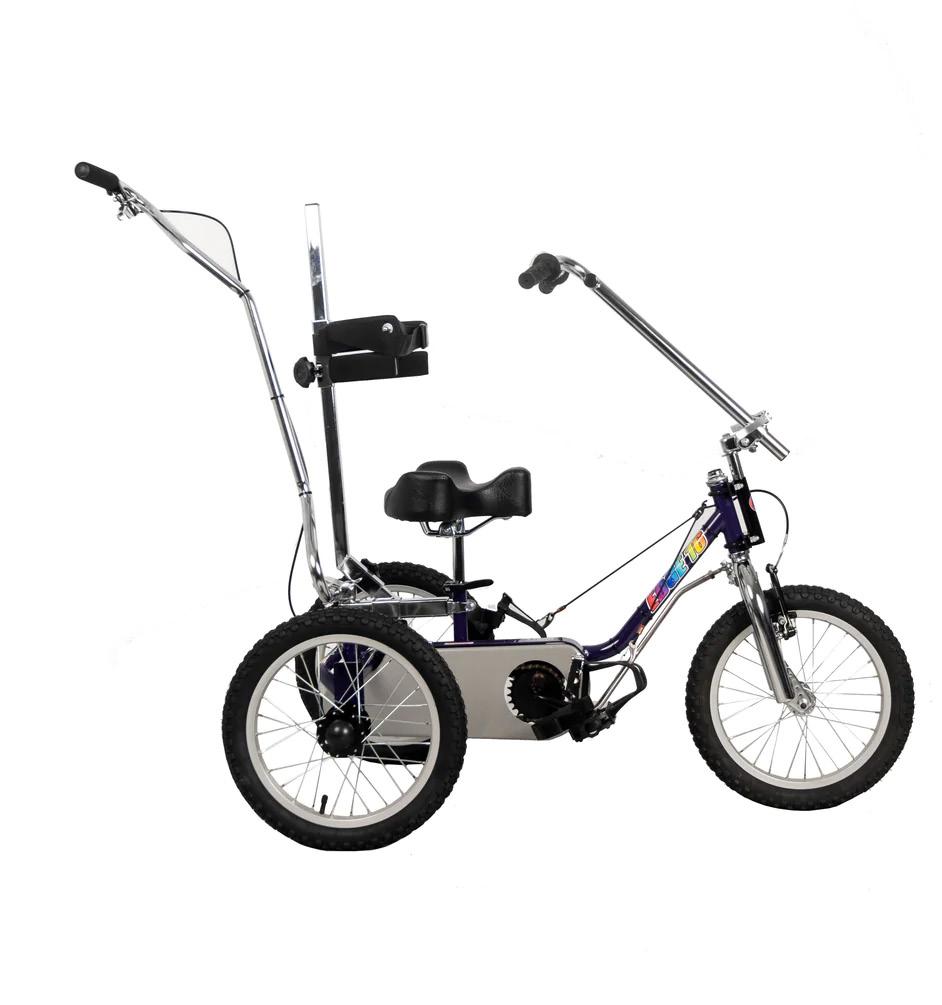
• Multiple gearing options available, including freewheeling option, when fatigue occurs.
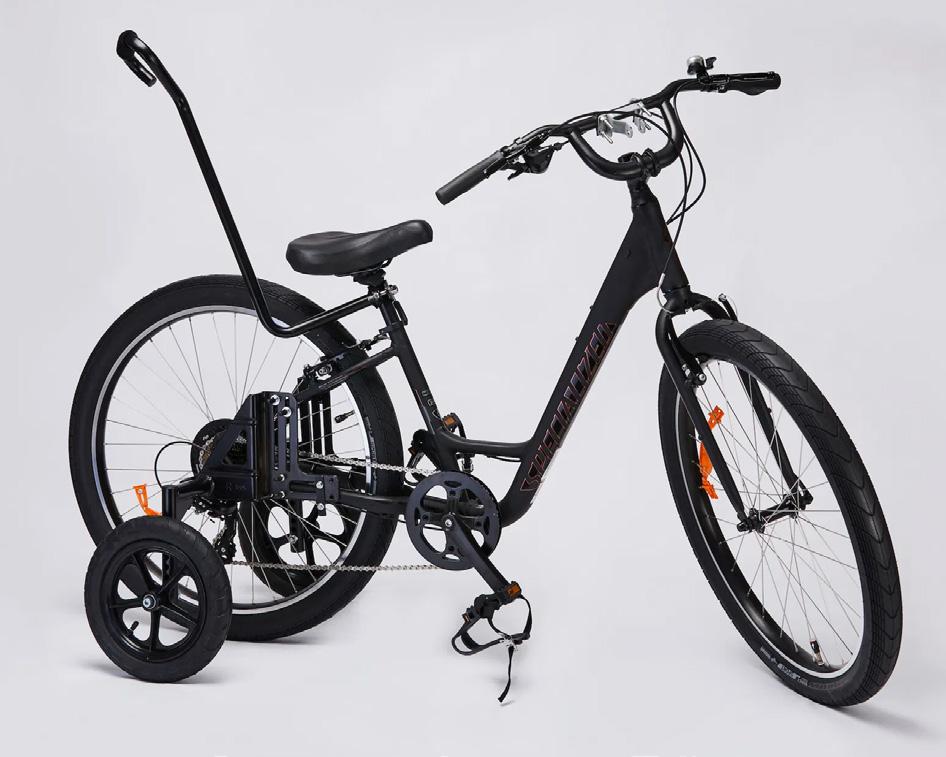
• The Terrier and TMX are foldable and have the ability to be hitched to a family member’s bike.
THE VOYAGER

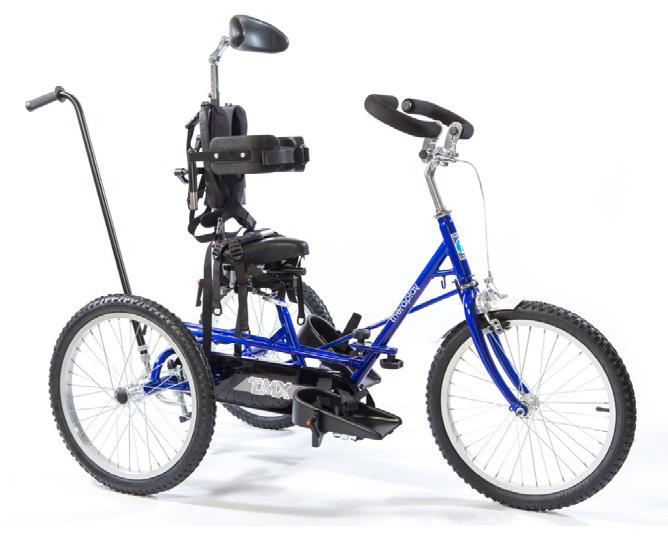
Manufacturer: Freedom Wheels Supplier: TAD Up to 120kg
• The Freedom Wheels Voyager provides a low step-through frame.
• Suitable for teens and adults who are independent riders, have good safety awareness and can pedal without hip and trunk support.
• Support includes outriggers to provide stability. Outriggers are wider and stronger than training wheels and much more flexible, for a smoother, quieter ride.
A Y
C IMP AR: Active Rehab activerehab.net.au // AC: Aidacare aidacare.com.au // AX: APEX apex.com.au // AP: Astris PME astris-pme.com.au // BM: Better Mobility bettermobility.com.au // BC: Body Cycles bodycyclesaustralia.com.au // DC: DC Trike dctrike.com // DJ: Dejay dejay.com.au // DO: Doability doability.com.au // DCB: Dutch Cargo Bike dutchcargobike.com.au // E: Etac etac.com/en-au/australia // EB: everyBody eBikes blindfreddyebikes.com.au // FW: Freedom Wheels freedomwheels.org.au // GTK: GTK gtk.com.au // ILS: Independent Living Specialists ils.com.au // JJ: Just Juniors justjuniors.com.au // KB: Kidvelo Bikes kidvelobikes.com // MX: Medix21 medix21.com.au // M: Motum motum.com.au // PAFL: Professional Assistance for Living pafl.com.au // PM: Push Mobility pushmobility.com.au // SNS: Special Needs Solutions specialneedssolutions.com.au // SPE: Specialised Paediatric Equipment at4kids.com.au // SAP: Step Ahead Paediatrics stepaheadpaediatrics.com.au // TAD: Tad Solve solve-tad.org.au // TM: Think Mobility thinkmobility.com.au SUPPLIERS Terrier C Y TMX
Manufacturer: Mission Cycles Supplier: BC, EB, JJ (formerly Blind Freddy Bikes) • The Edge range of tricycles are chain driven with three wheels to give added support, stablility and to build confidence. • Adjustable handle bars plus a front locking handbrake.
Available in 12” right up to 24” sizes. • Multiple colours to choose. ISSUE 33 | SUMMER 2022 73 PRODUCT REVIEW C
•
Care with Confidence
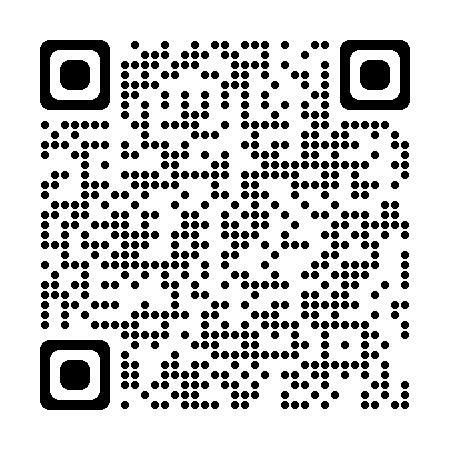
With daily activities, the opportunity to interact with new friends and expert medical and nursing staff on hand, you can have peace-of-mind while your child enjoys a break from routine.
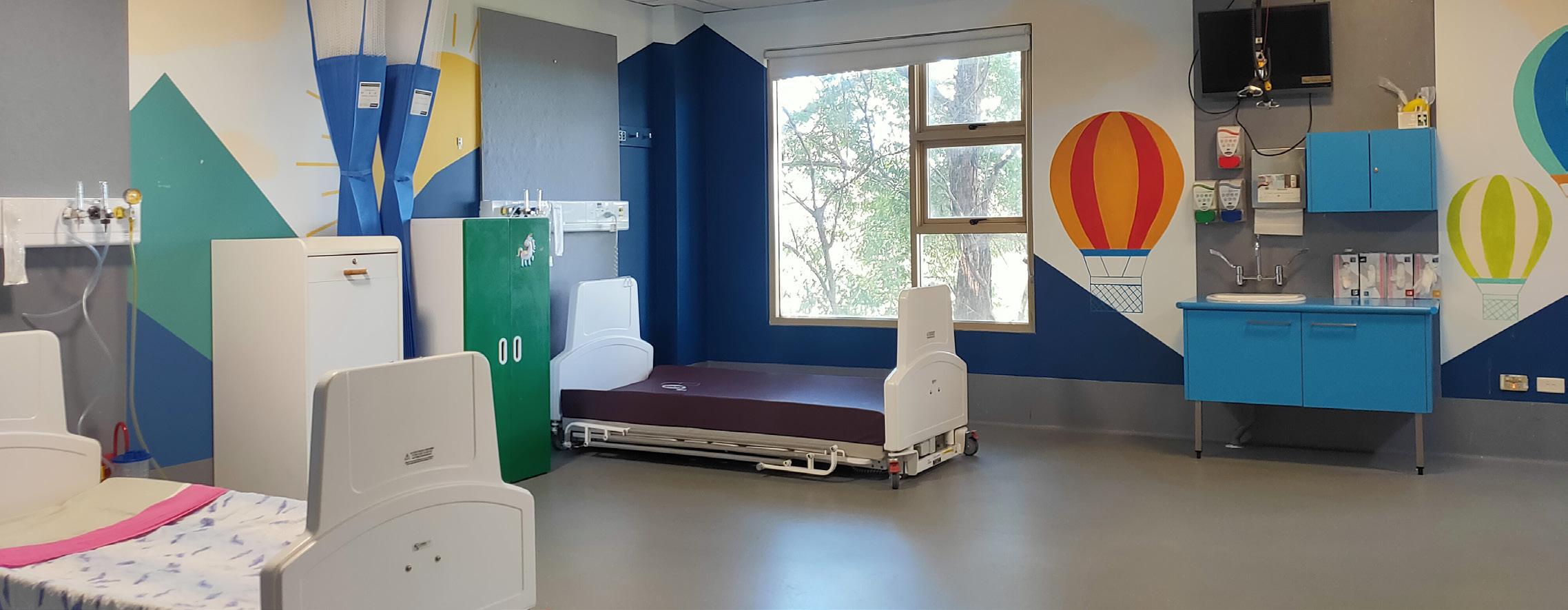
Our team of nurses and support staff are especially trained in caring for kids with complex needs. With at least one Registered Nurse on site at all times, and experienced paediatricians on call 24 hours a day, 365 days a year, you can be confident that your child is well looked after during their stay.
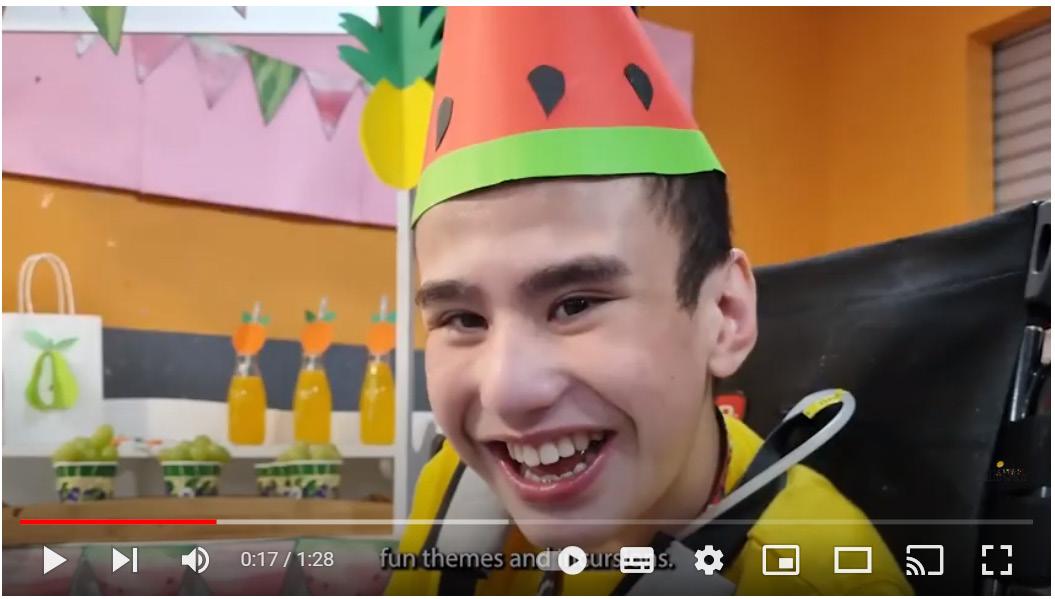
Our wonderful support staff organise activities for the kids each day. It’s a great opportunity for new connections, experiences and fun! Your
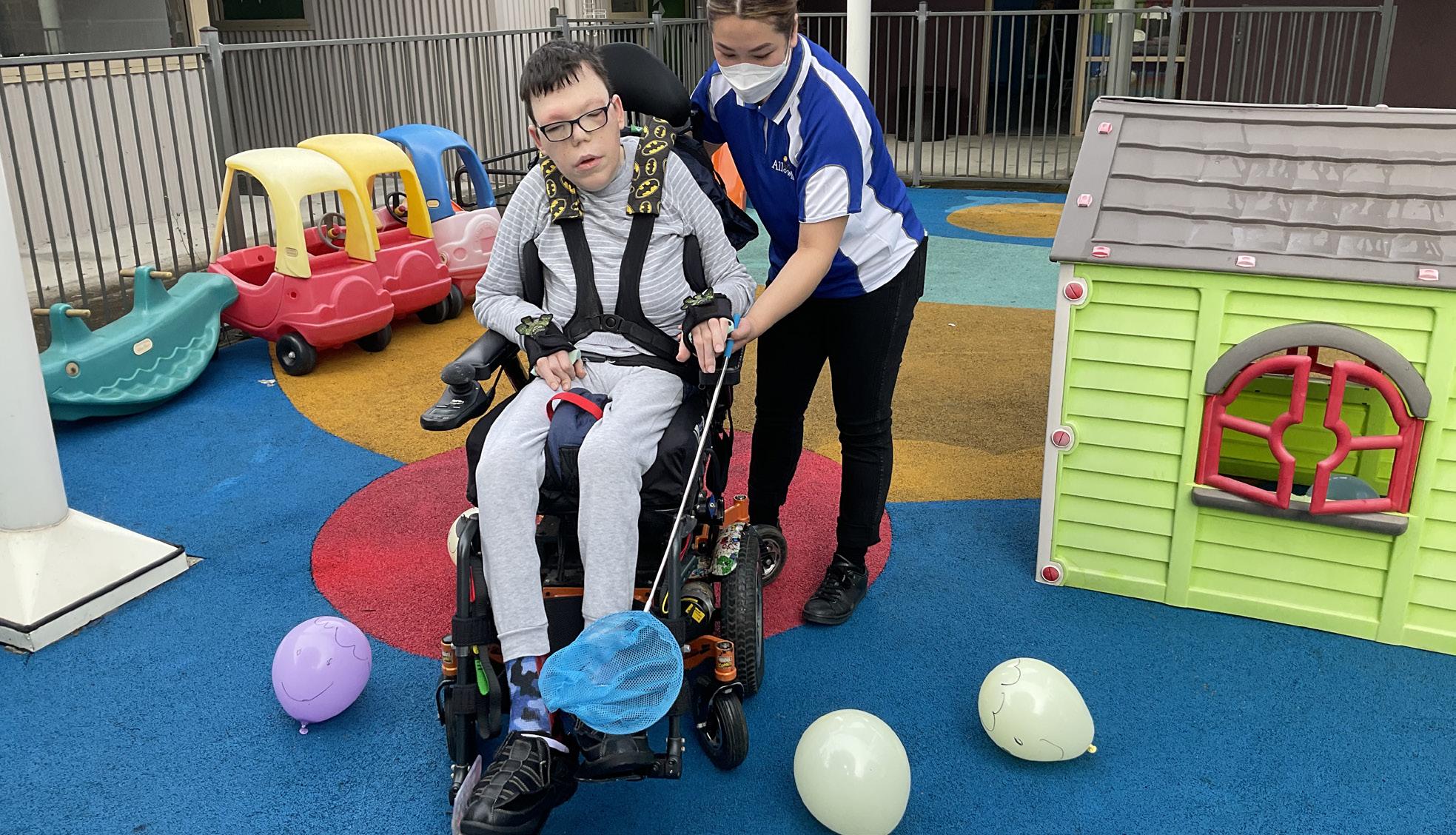
may be able to purchase an Accommodation Package using NDIS Core Supports.
child
Watch to find out more!
Allowah can provide respite for children with requirements for tracheostomy care or home ventilation. We can also provide respite for children with home total parenteral nutrition (TPN).
Allowah can provide respite for children with requirements for tracheostomy care or home ventilation. We can also provide respite for children with home total parenteral nutrition (TPN).
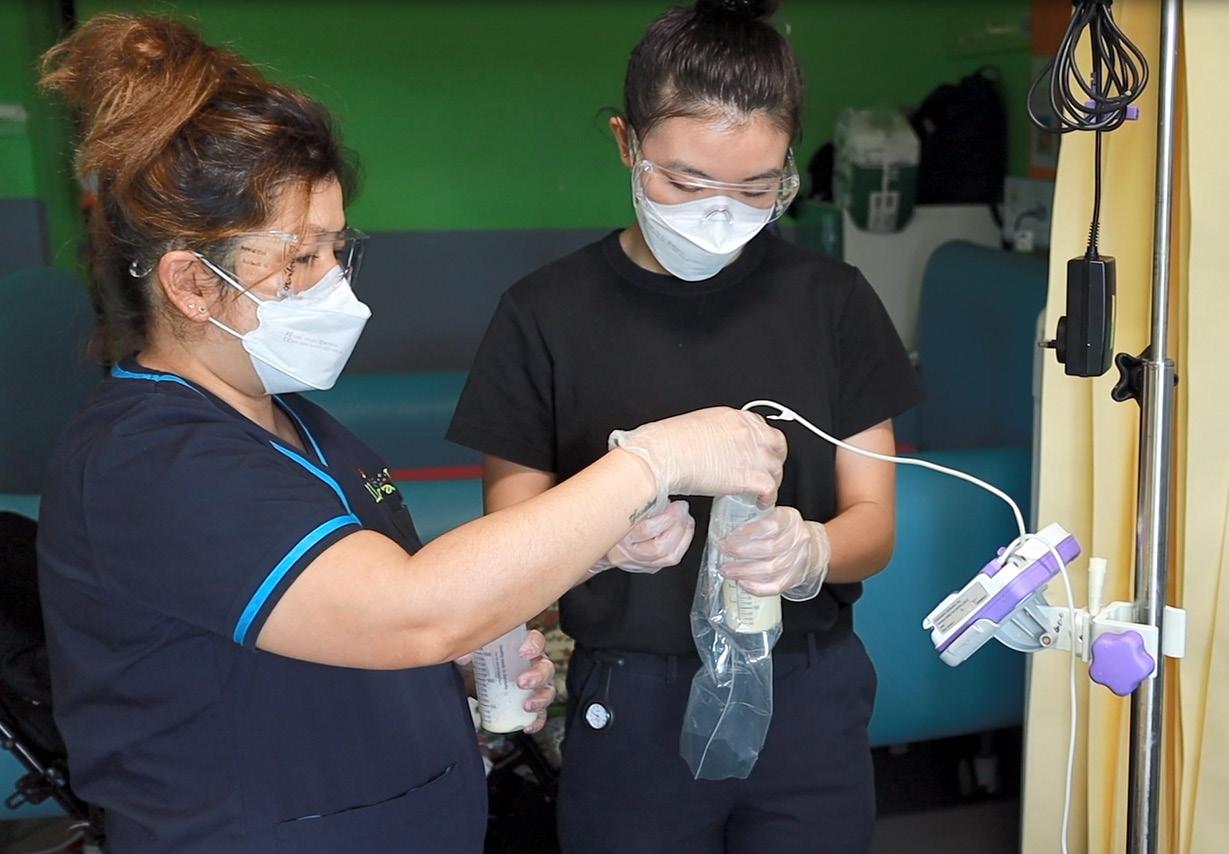

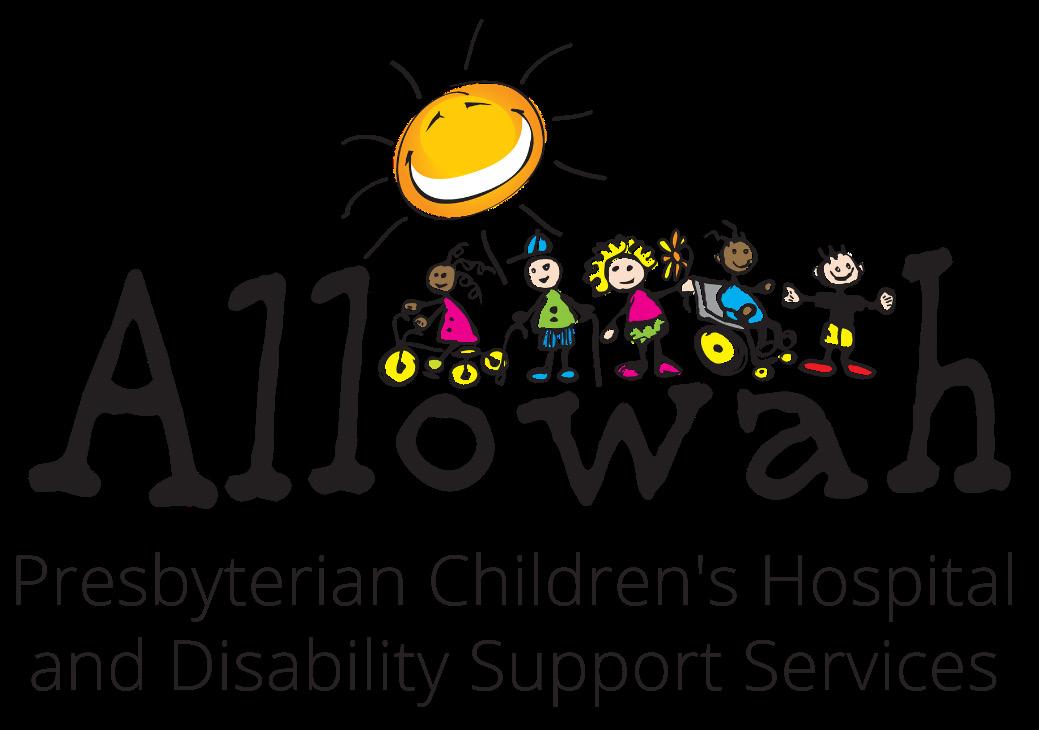
Start a conversation today!
Start a conversation today!
02 8877 3400
02 8877 3400
admin@allowah.org.au
admin@allowah.org.au
We are centrally located in Sydney at 8 Perry Street, Dundas Valley, NSW, 2117
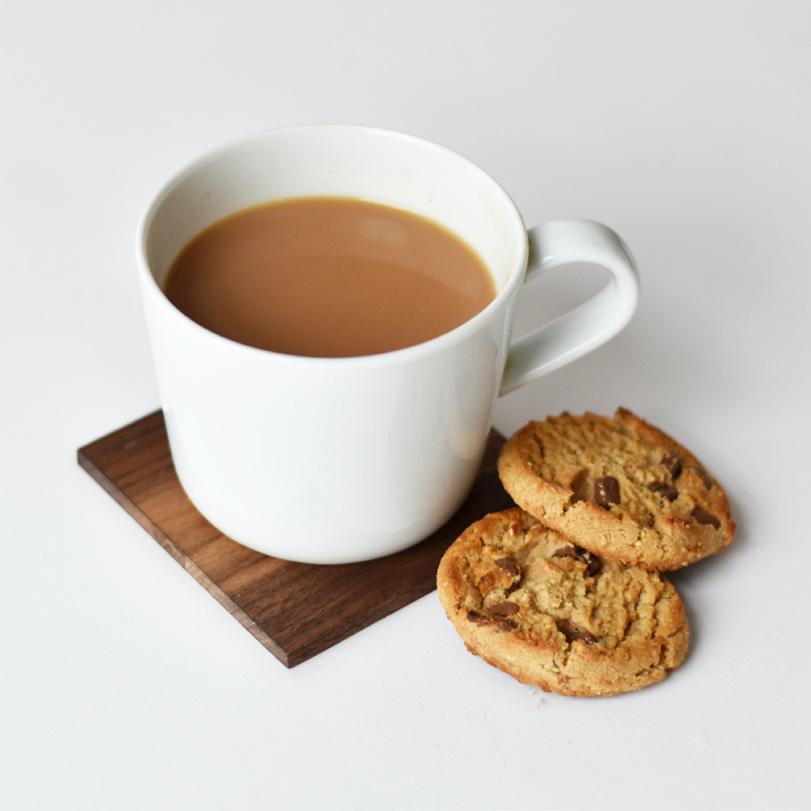

We are centrally located in Sydney at 8 Perry Street, Dundas Valley, NSW, 2117
a weekly support group for parents of children with disabilities
a weekly support group for parents of children with disabilities
Meet other parents and family carers of children with disabilities. MyTime is a place to socialise, to discuss, to get information, and to support and be supported by other carers.
Meet other parents and family carers of children with disabilities. MyTime is a place to socialise, to discuss, to get information, and to support and be supported by other carers.

“MyTime has allowed me to connect with other carers who understand and can empathise with the challenges of complex needs in a child.”
“MyTime has allowed me to connect with other carers who understand and can empathise with the challenges of complex needs in a child.”
- Allowah
- Allowah
MyTime Parent
MyTime Parent
www.allowah.org.au
Come visit us on social media
Come visit us on social media
When?
When? Tuesdays
Tuesdays
10.30am - 12.00pm during School Terms Where?
10.30am - 12.00pm during School Terms Where?
Allowah Presbyterian Children’s Hospital, or via Zoom.
Allowah Presbyterian Children’s Hospital, or via Zoom.
@ Allowah NSW www.allowah.org.au
@ Allowah

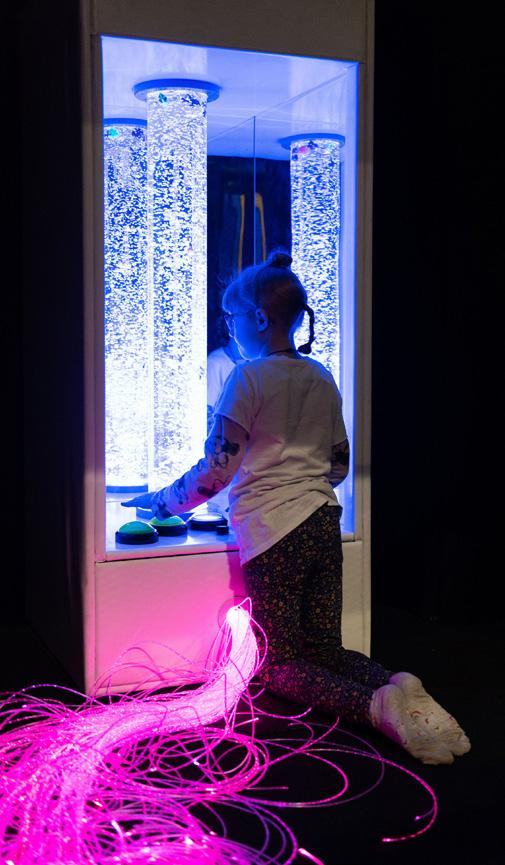
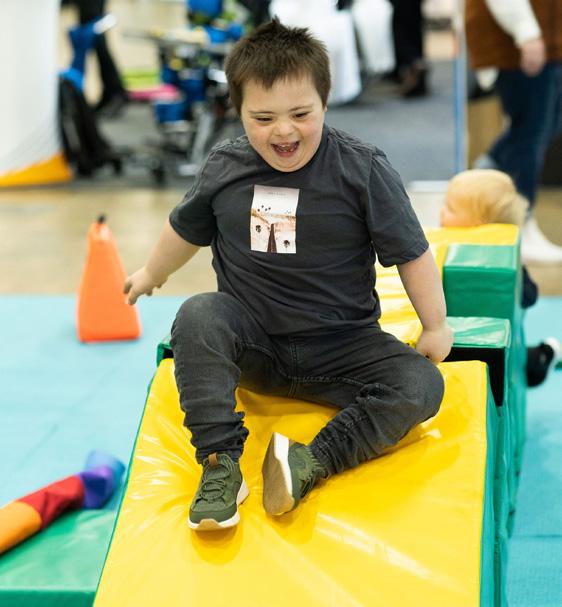
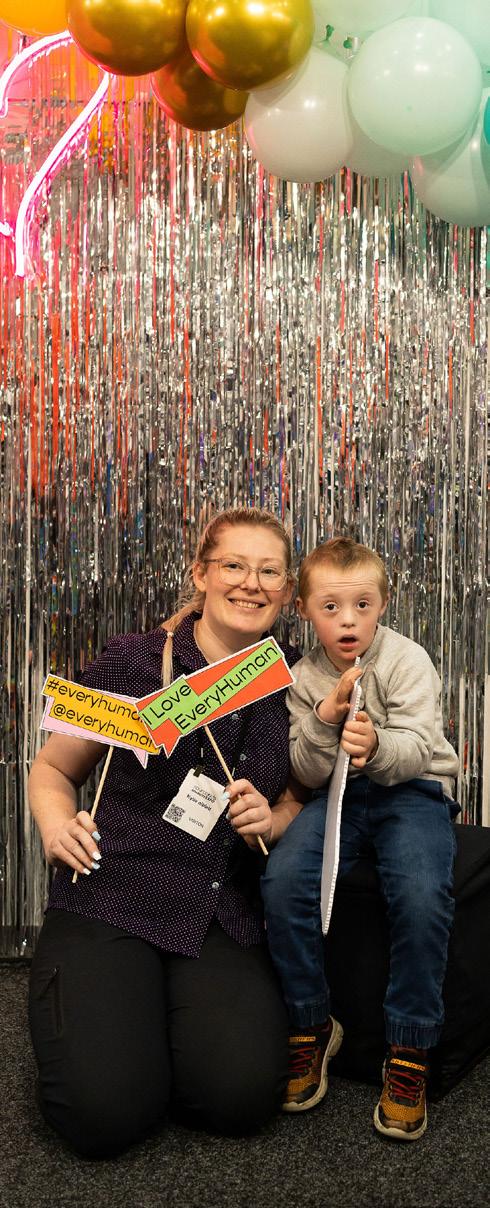


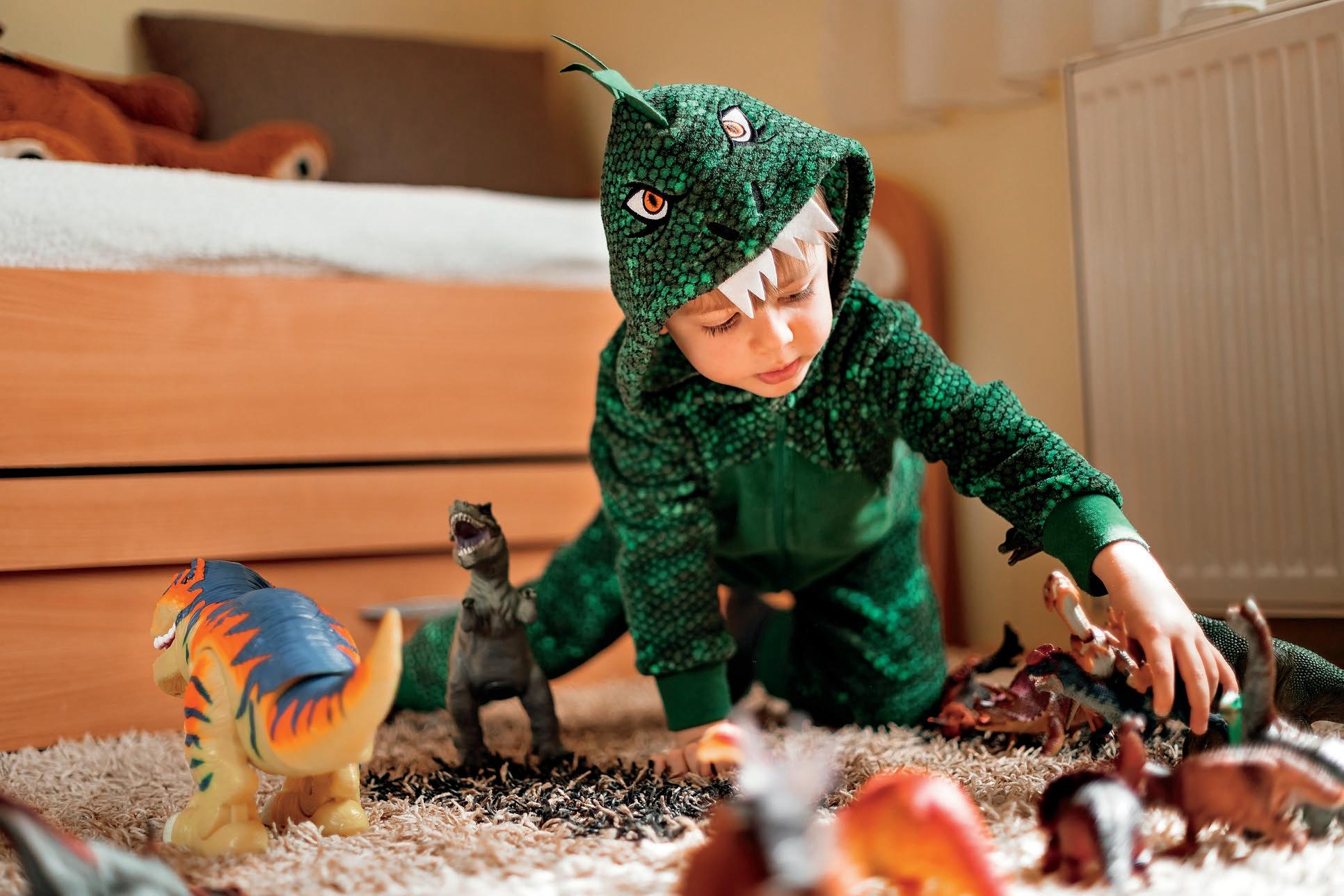
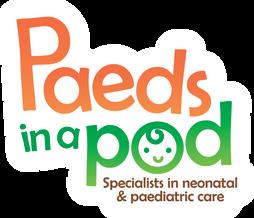
ADELAIDE 25-26 February 2023 SYDNEY 25-26 March 2023 MELBOURNE 7-8 July 2023 BRISBANE 29-30 July 2023 PERTH 28-29 October 2023 S e e you there 2023 Lego Social Club (Three classes) Pokemon Sonic the Hedgehog Wings of Fire Dinosaurs Mad Scientists For more information or to book your spot, contact Paeds in a Pod www.paedsinapod.com.au | 07 3177 2000 76 SOURCEKIDS.COM.AU QLD

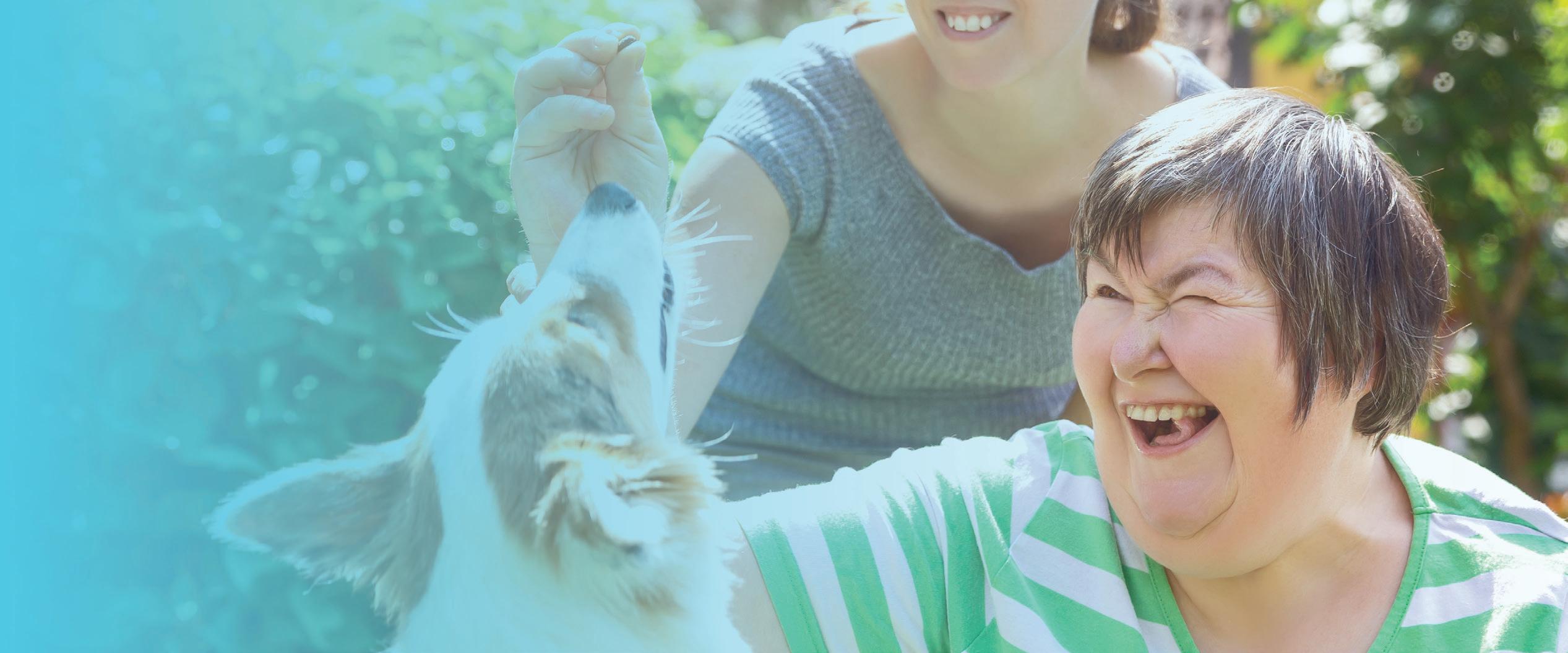
ISSUE 33 | SUMMER 2022 77 QLD
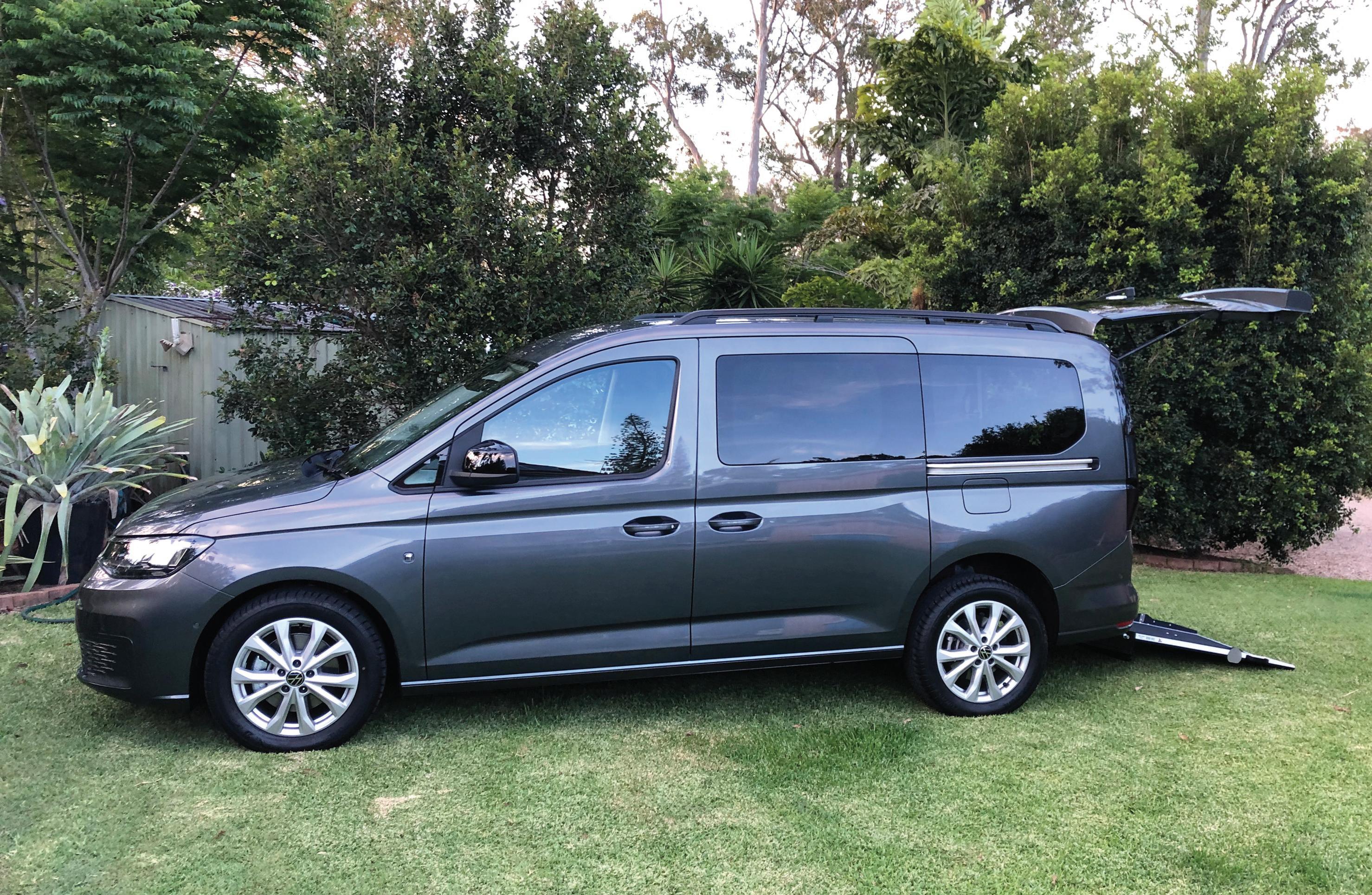
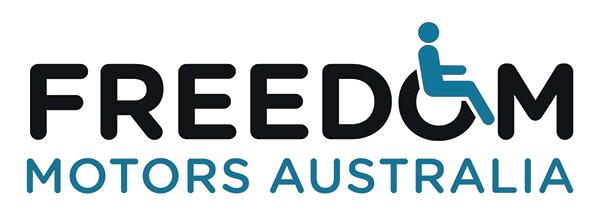
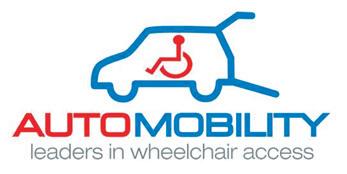

78 SOURCEKIDS.COM.AU Alternate Mobility Unit 1/5 Miller Street Slacks Creek Qld 4127 Email: sales@alternatemobility.com.au NDIS Approved “ Freedom of Motoring” NDIS Provider# 4050004526 call (07) 3474 6575 or visit www.alternatemobility.com.au To find out how to simplify your family’s transportation Get Your Family Mobile with Simple Upgrades To Your Vehicle • Van Fit Outs • Turney Seats • Hoists • Docking Stations NDIS Approved • Wheelchair Ramps & Lifts • Hand Controls • Careva Harnesses • Custom Jobs Disability Vehicle Conversion for Wheelchairs & Mobility Scooters Volkswagen CADDY GEN 5 with a lowered floor set up Brisbane Service Agents for: QLD

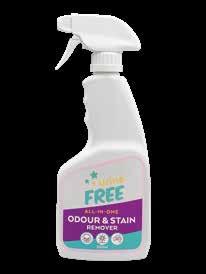
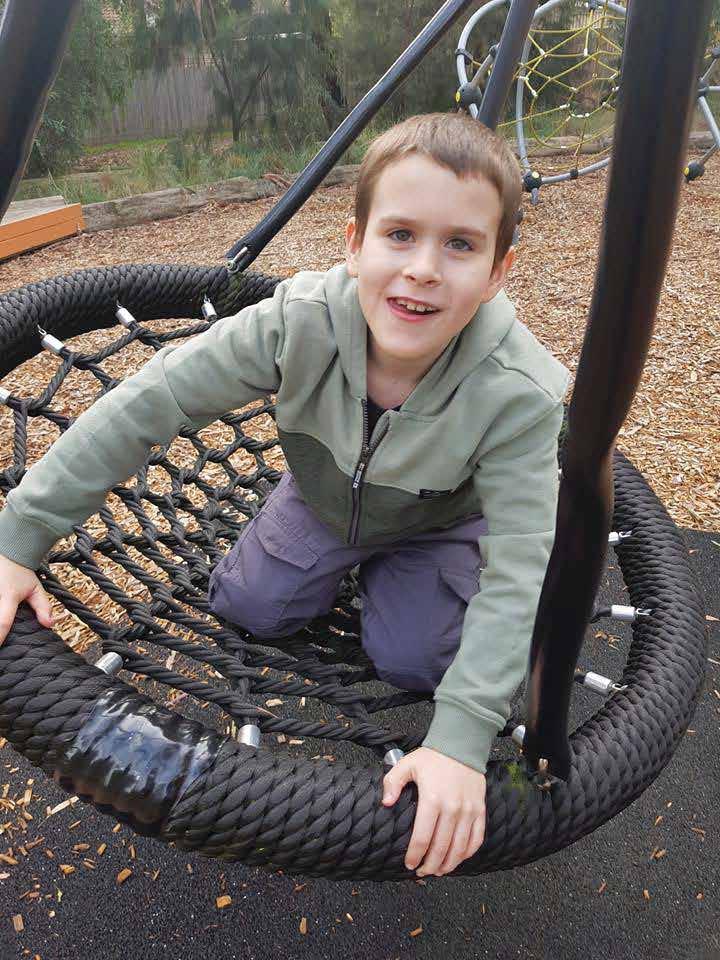

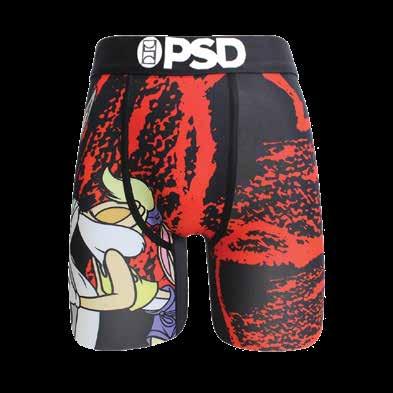


Proudly Family Owned & Operated Contact us today! Comfort & Confidence Comprehensive Continence Care & Support Services Supplier of healthcare, continence and bedding products from ALL your leading manufacturers A dedicated team of nurses and specialists here to help you with bladder/bowel care, bed/day-wetting, soiling, catheter/stoma care, product support, toilet-training and more… (03) 8201 7137 Order online at www.topcathealthcare.com.au (03) 9876 3374 Book today at conquip@suttonhouse.com.au We are a Registered Provider Contact us today! ISSUE 33 | SUMMER 2022 79 VIC





























































































































































































































































































 By Rebekah Devlin
By Rebekah Devlin























 By Dr Beth Johnson
By Dr Beth Johnson


















































































 By John Collins
By John Collins


















































































































